DQ Drama Quarterly


The Bardot effect Raising The Good Mothers Welsh drama after Hinterland Fanning the flames of The Firebrands Life beyond Westworld for Lisa Joy The Night Manager comes to India And more...




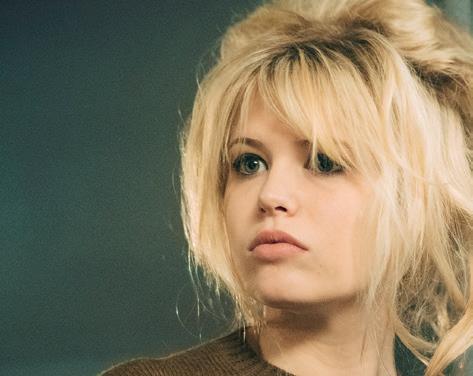
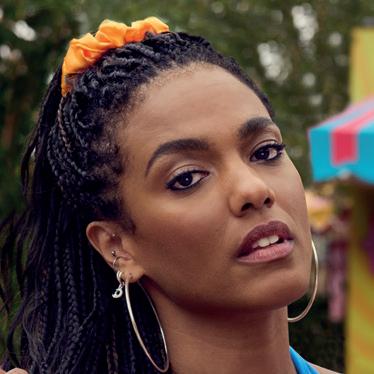
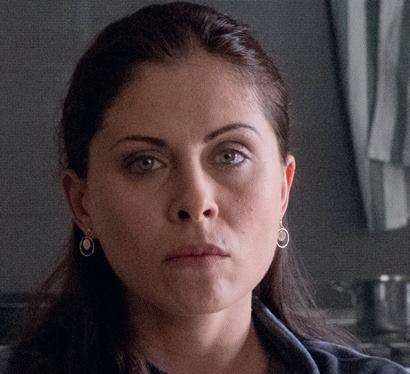

029 . Spring 2023

£5/US$8
£5/US$8
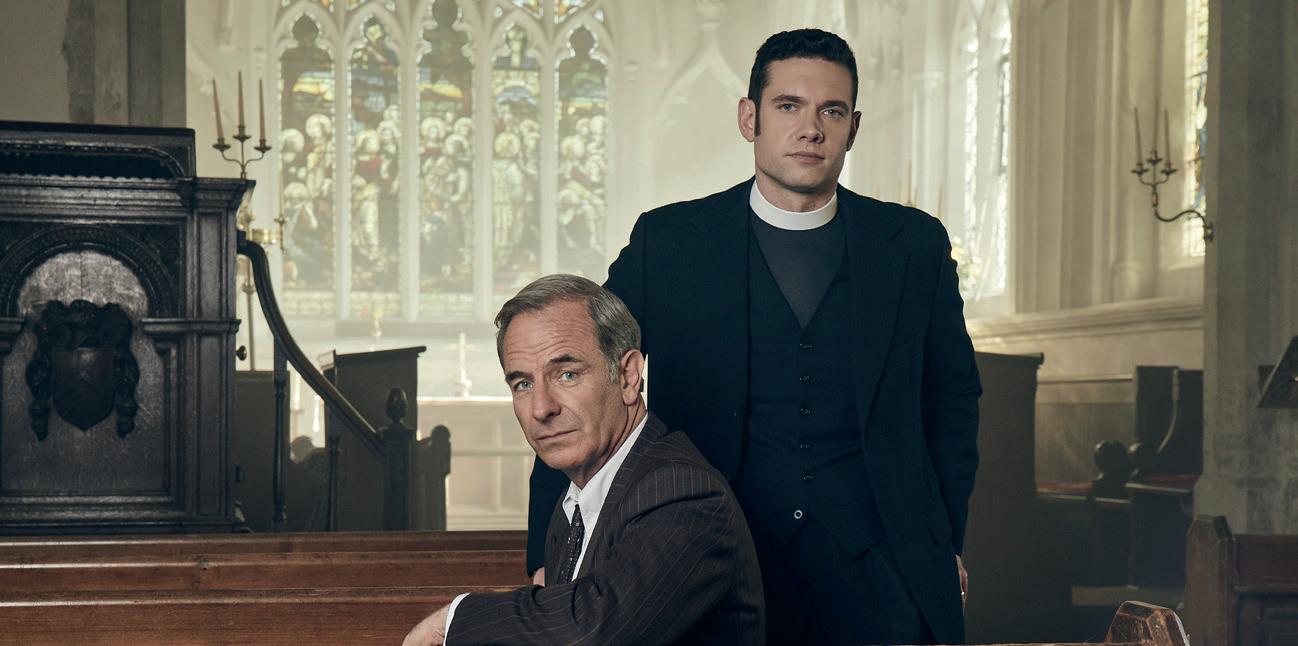
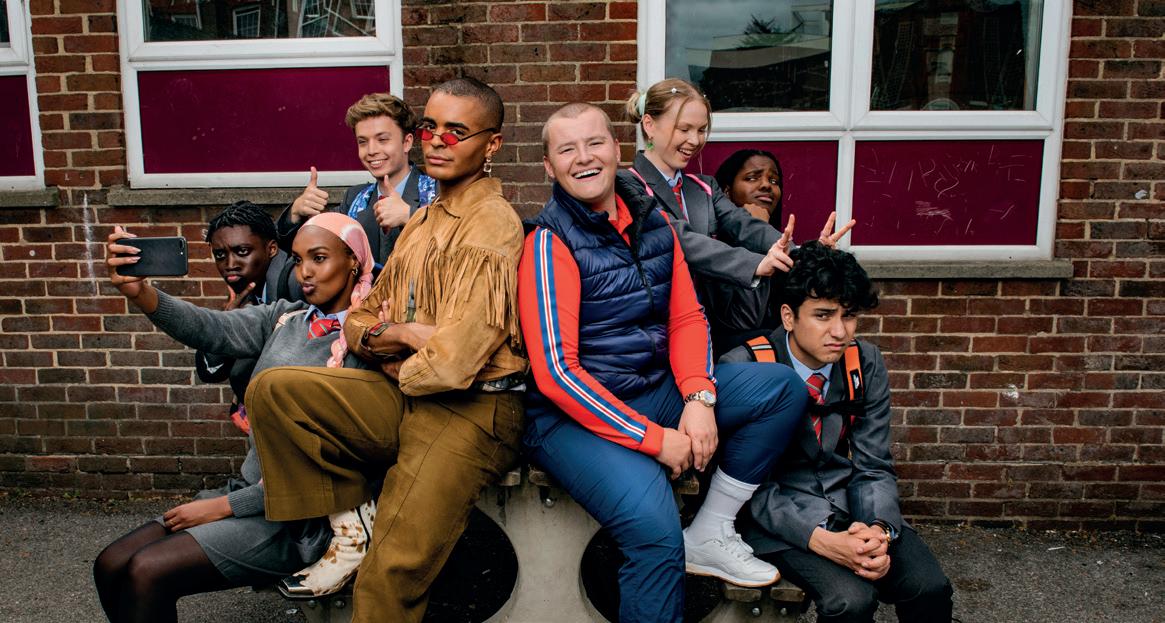
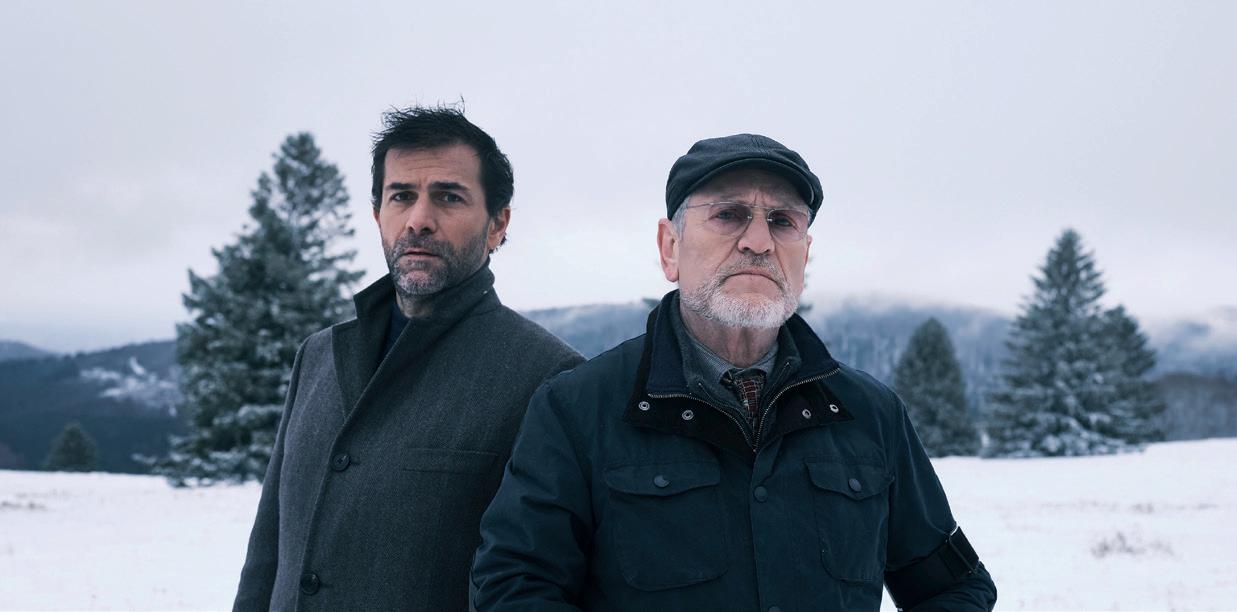

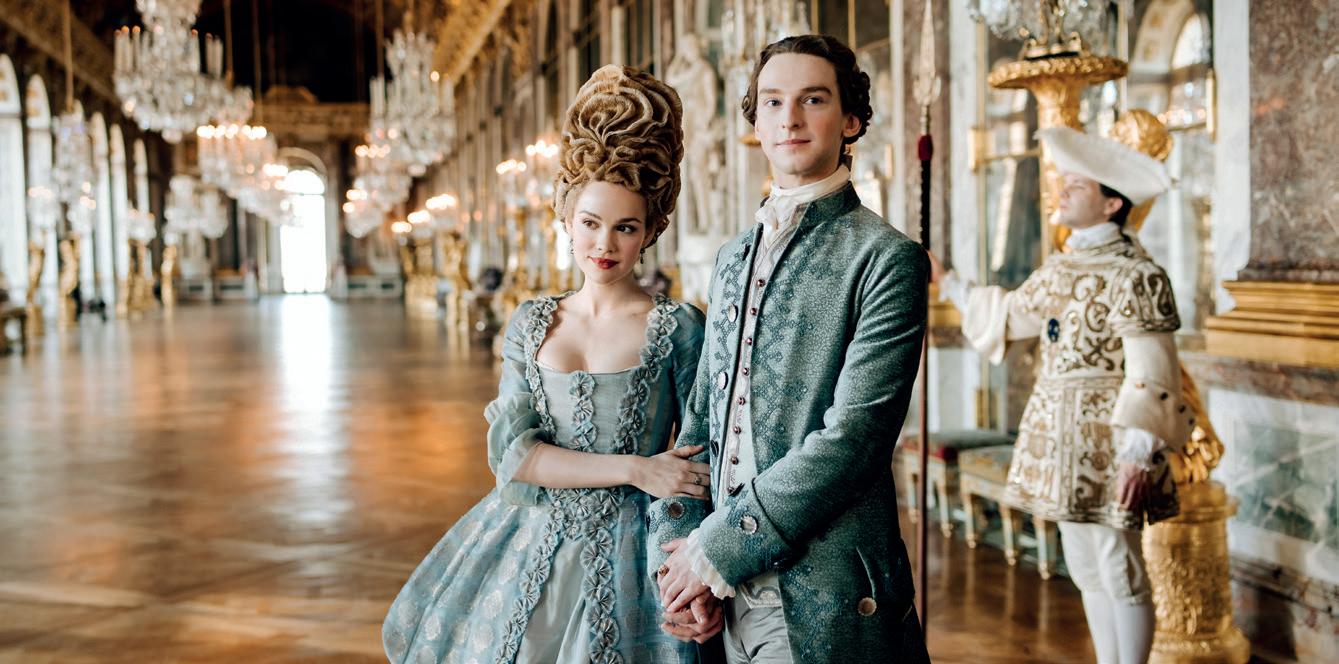
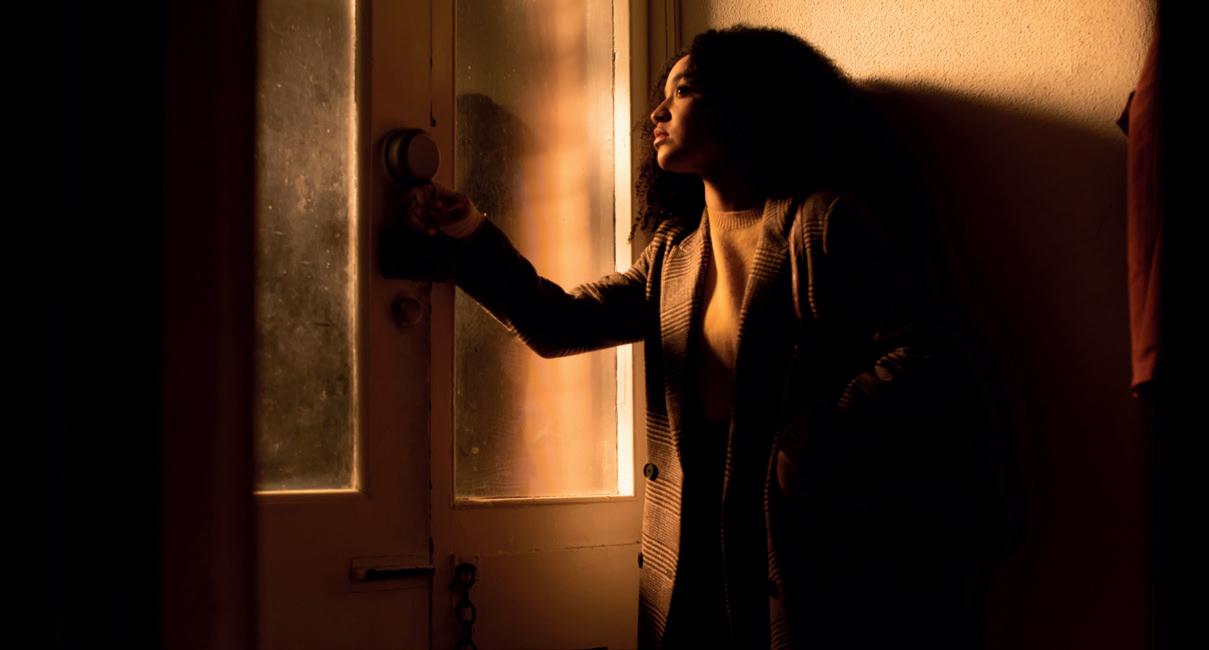
banijayrights.com Bad Education Les Disparus de la Forêt Noire
Then You Run Safe Home
Marie Antoinette
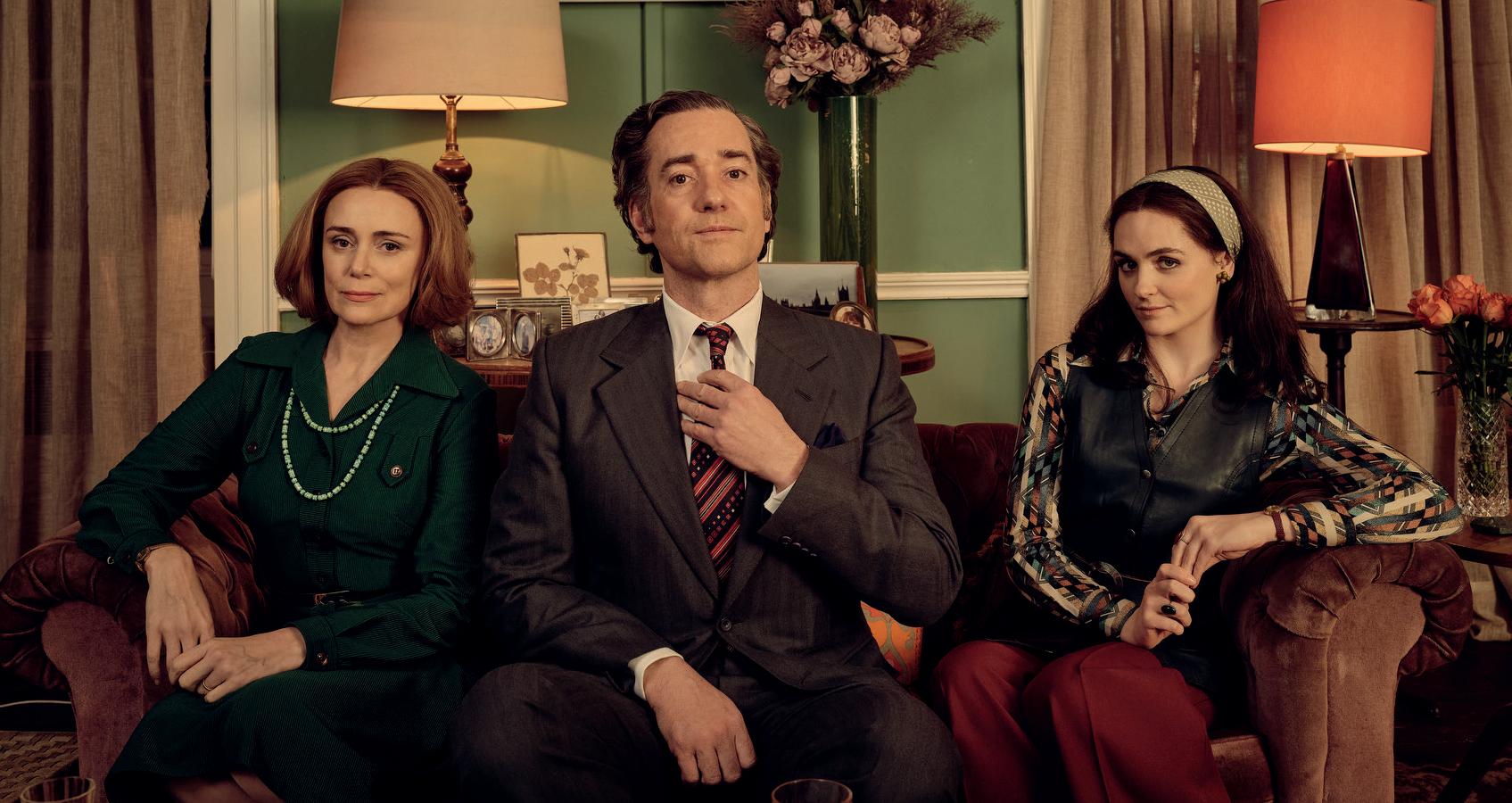

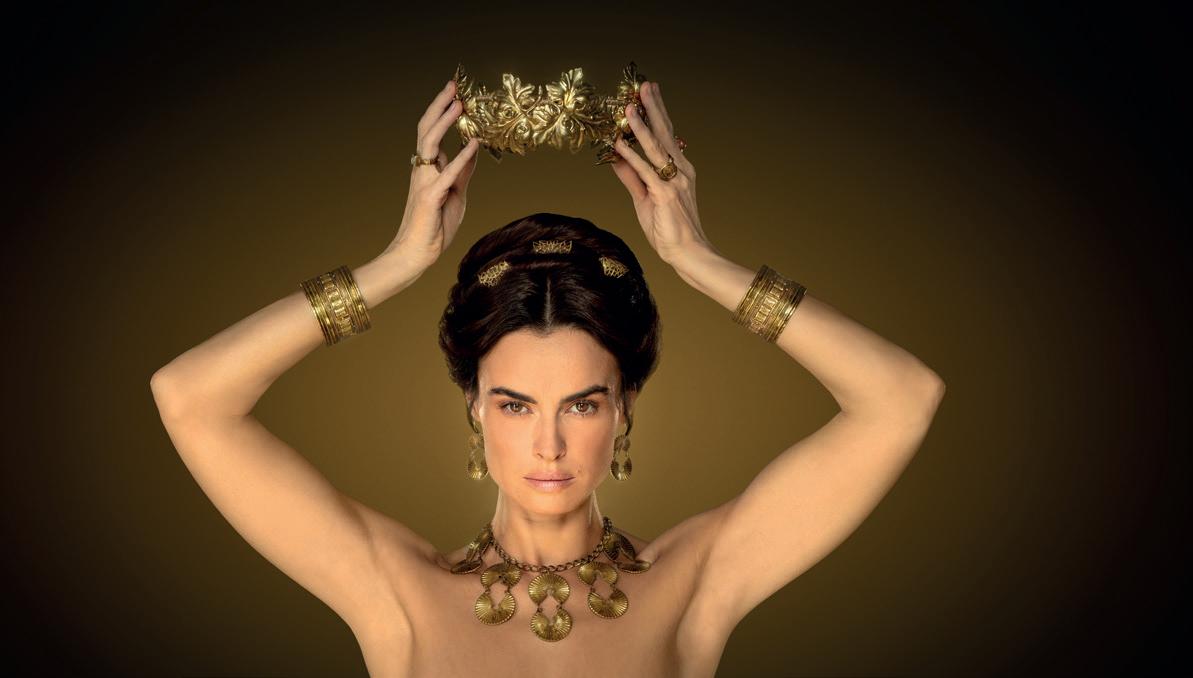

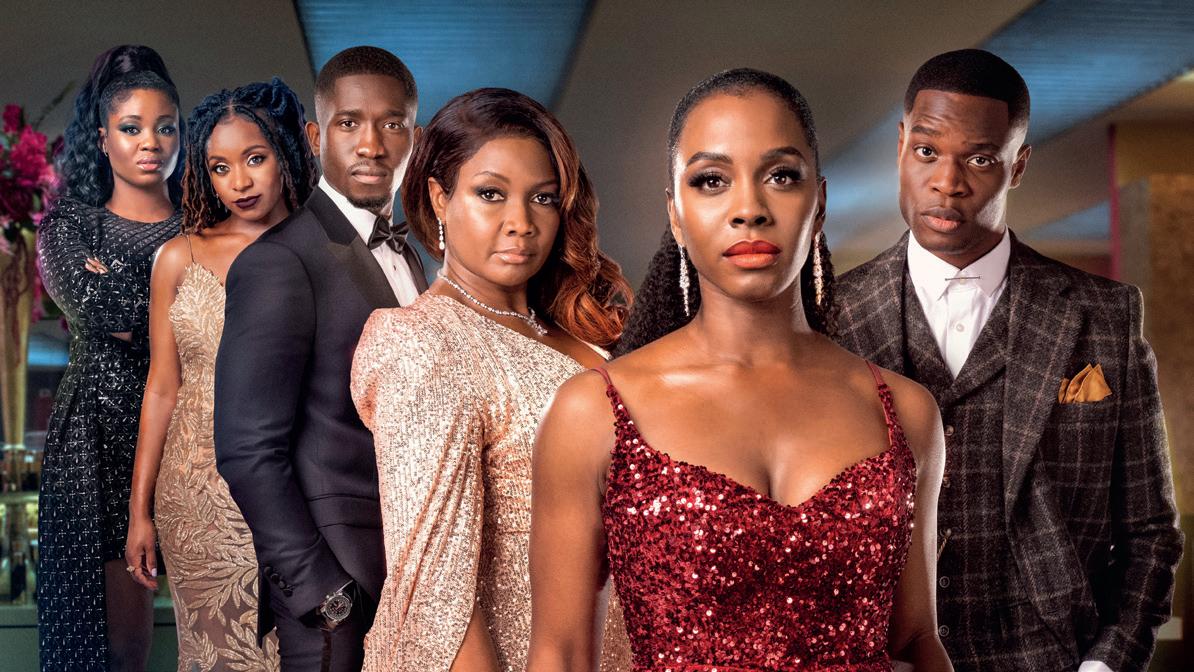
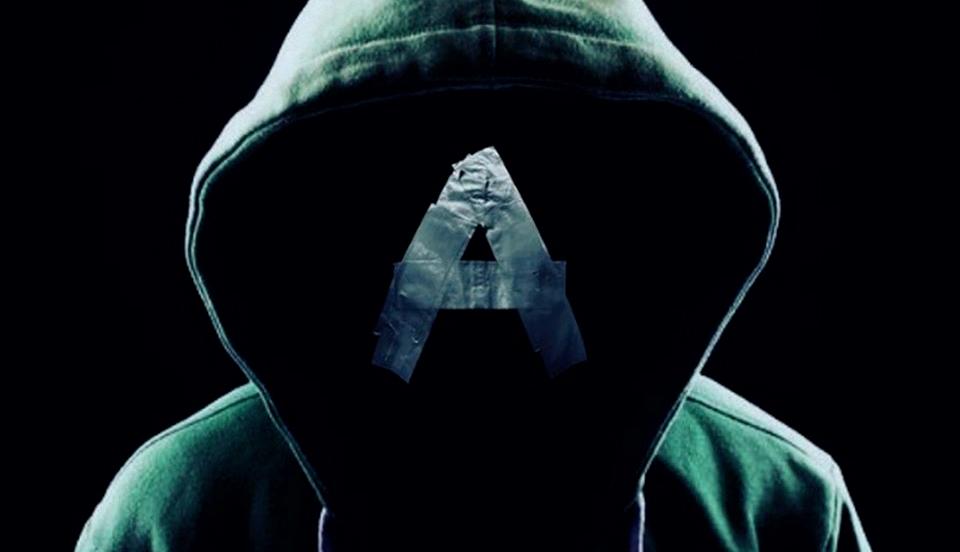
 Grantchester
Riches
Grantchester
Riches
Stonehouse Anonymous #Storymakersforalifetime
Domina
A smart two-day conference & development market connecting the domestic US scripted, unscripted, FAST channels and copro business with international partners
The Fairmont Century Plaza
18-19 May 2023


contentla.com



Spring 2023
Features

DIRECTOR’S CHAIR:



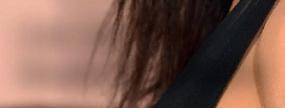


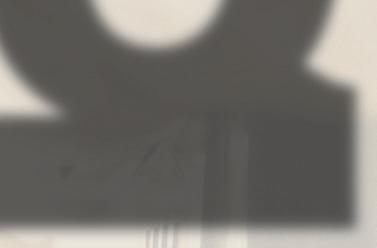

Danièle and Christopher Thompson
The mother-and-son writing and directing team explain why and how they wanted to tell the story of the ‘world’s first influencer’ with their Brigitte Bardot biopic.
IN FOCUS: The Good Mothers
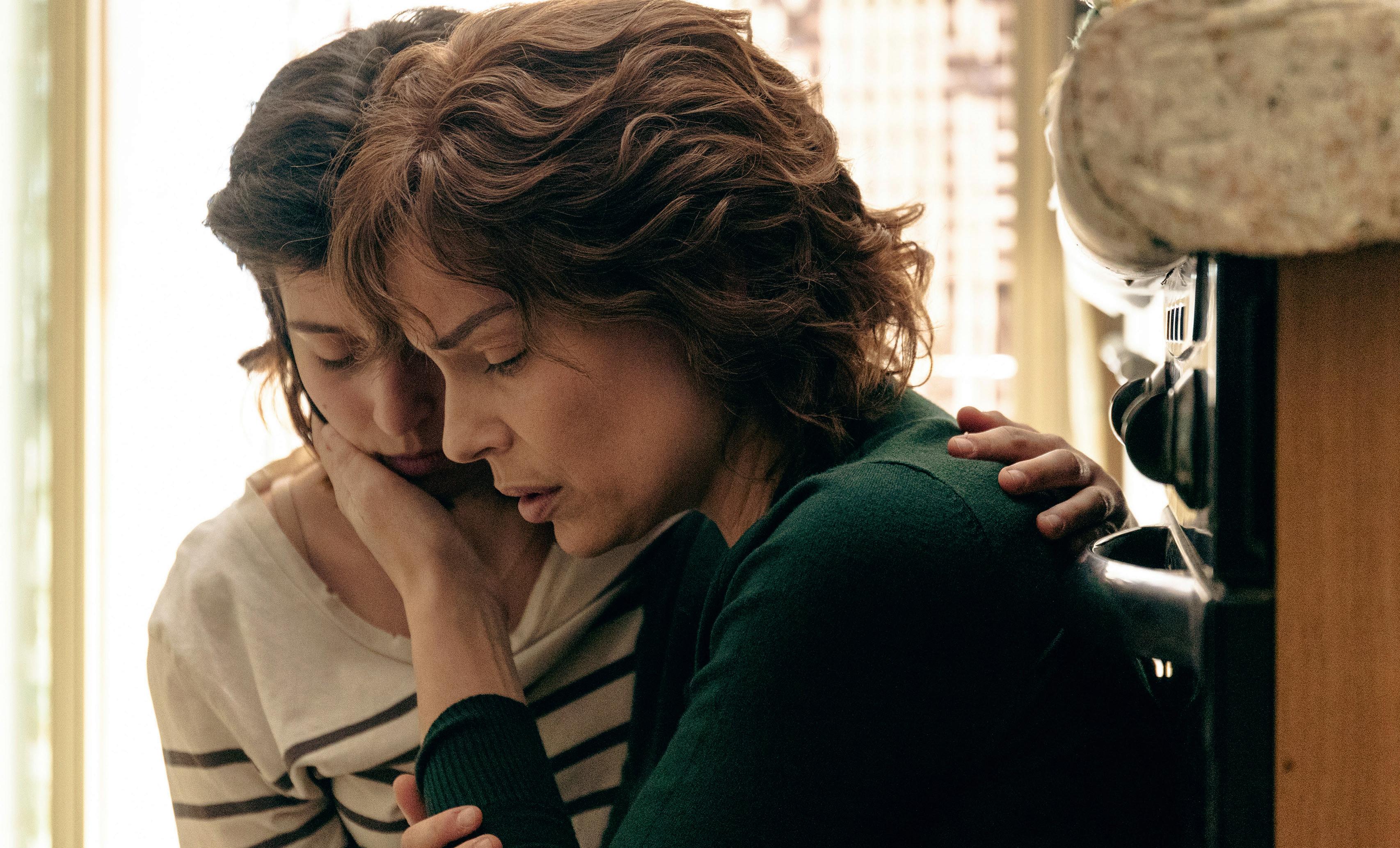
The cast and creative team behind this Italian series discuss how it flips the script on mafia dramas with the true story of how three women found the courage to bring down a deadly clan.
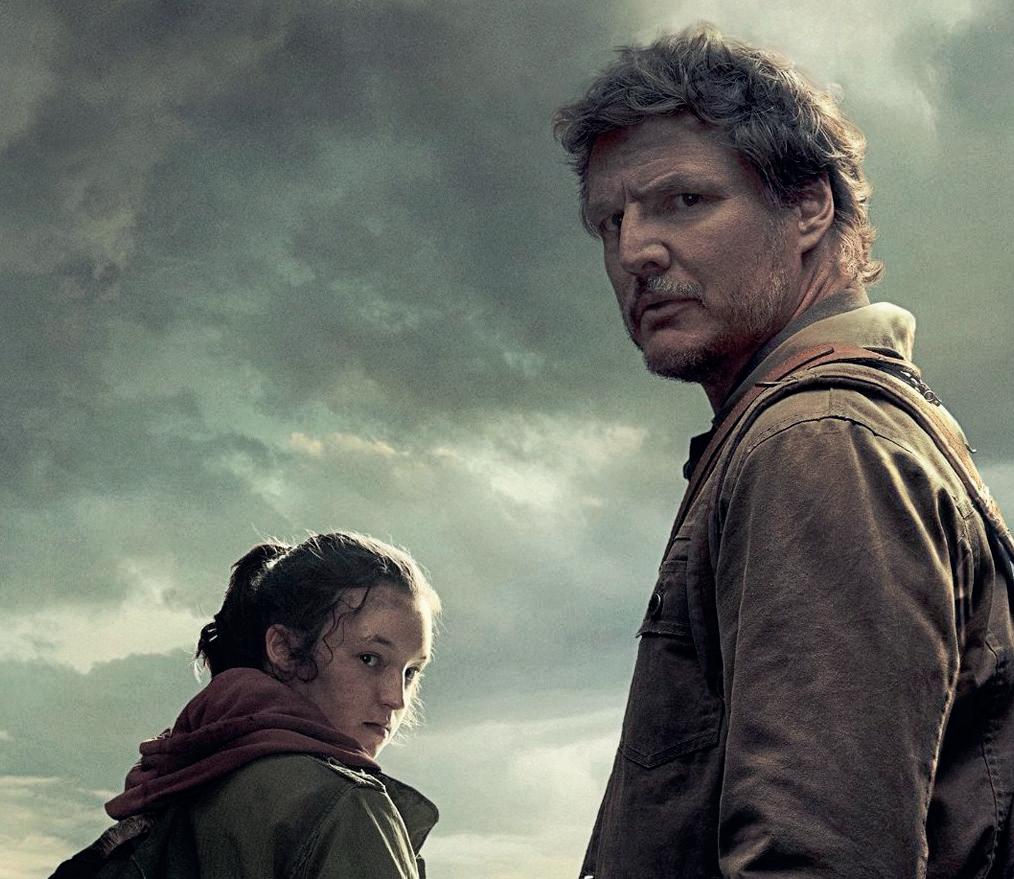
STAR POWER: Lauryn Ajufo
Having shot to prominence with parts in Boiling Point and the recent Luther movie, the rising star tells DQ about her dream role.
WE NEED TO TALK ABOUT: Welsh Drama
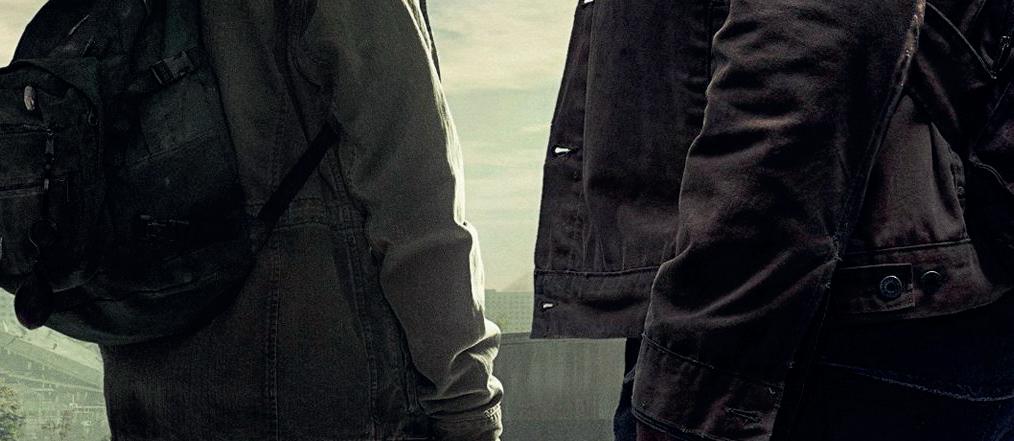
It marked the emergence of Welsh language drama on the international stage, but what came next for the makers of Y Gwyll (Hinterland)? Ed Thomas, Ed Talfan and Gethin Scourfield talk about their latest projects.


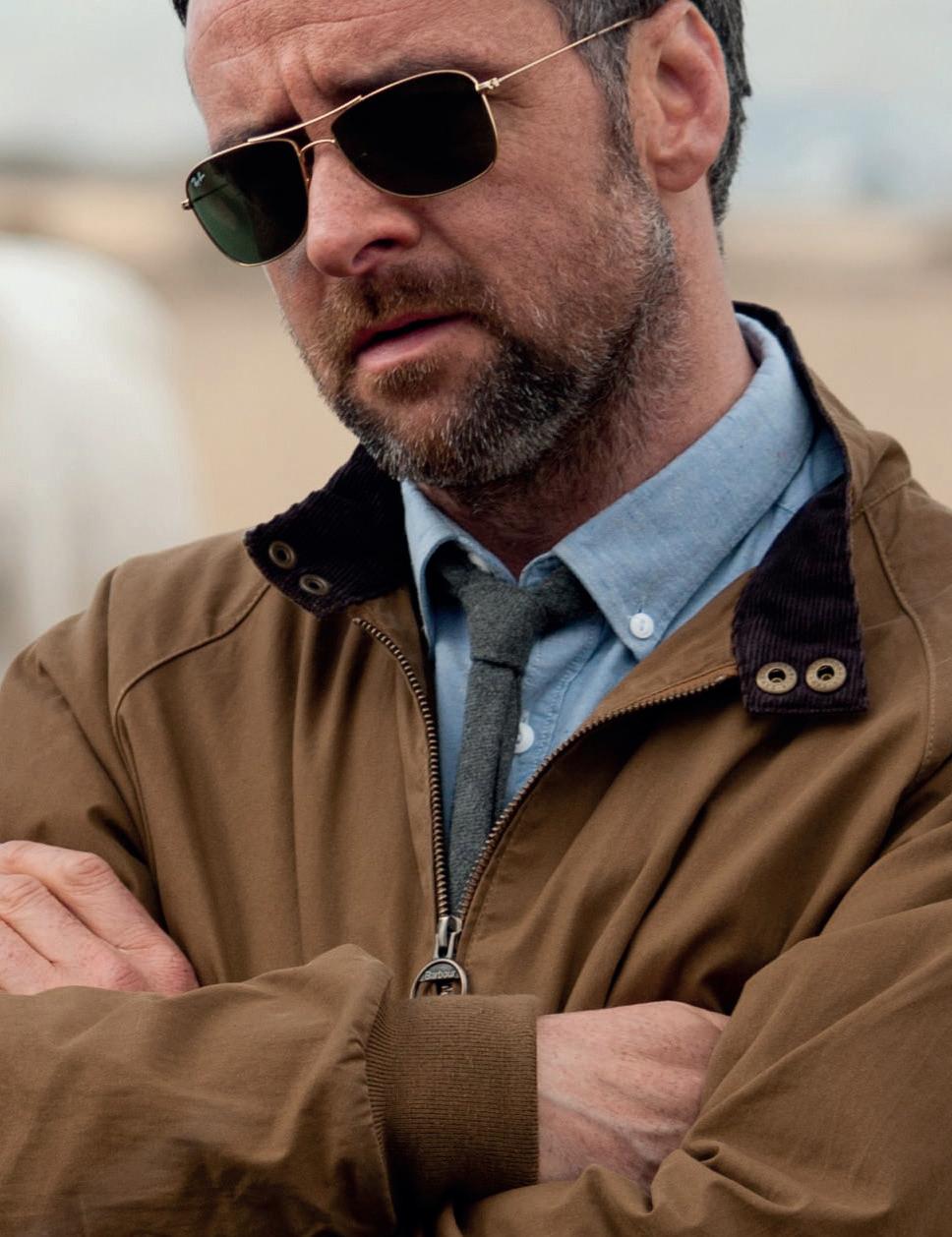
DIRECTOR’S CHAIR: Dalei Zhang
The award-winning film director outlines his small-screen series Why Try to Change Me Now, which blends a sweeping intergenerational drama with a crime story and luscious visuals.
STAR POWER: Freema Agyeman
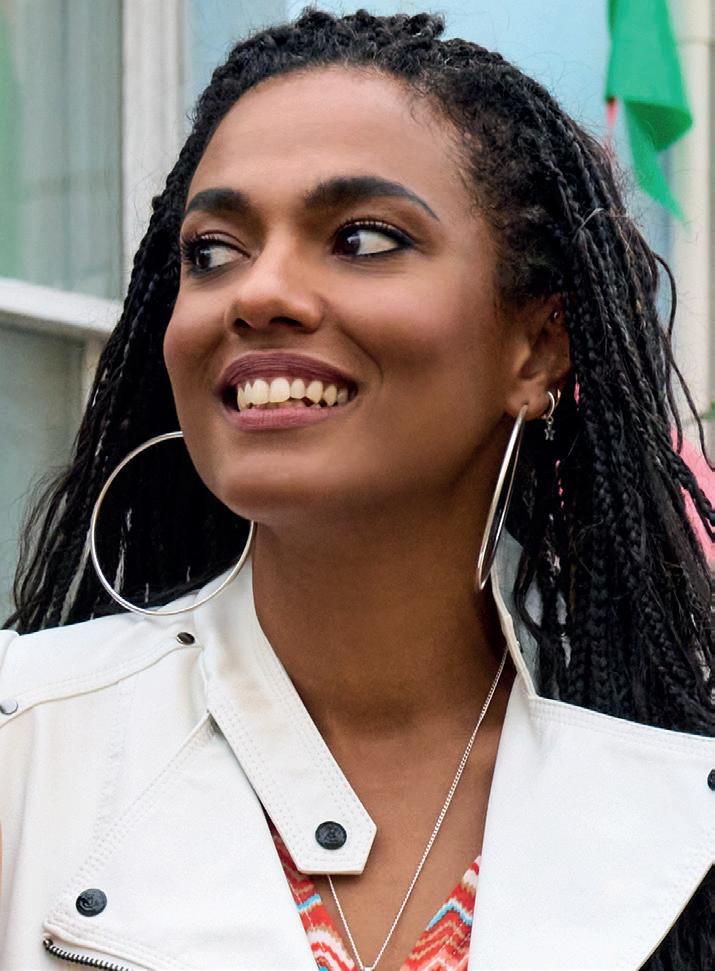
Dreamland marks the first comedy for the former Doctor Who star, who has been busy saving lives on screen in the US since 2018.
IN FOCUS: The Firebrands

A Swiss graphic novel is translated for TV in this five-part drama about a group of friends in the midst of a new drug culture. DQ hears from director Delphine Lehericey and stars Maya Sansa and Thibaut Evrard.
SHOWRUNNER: Lisa Joy
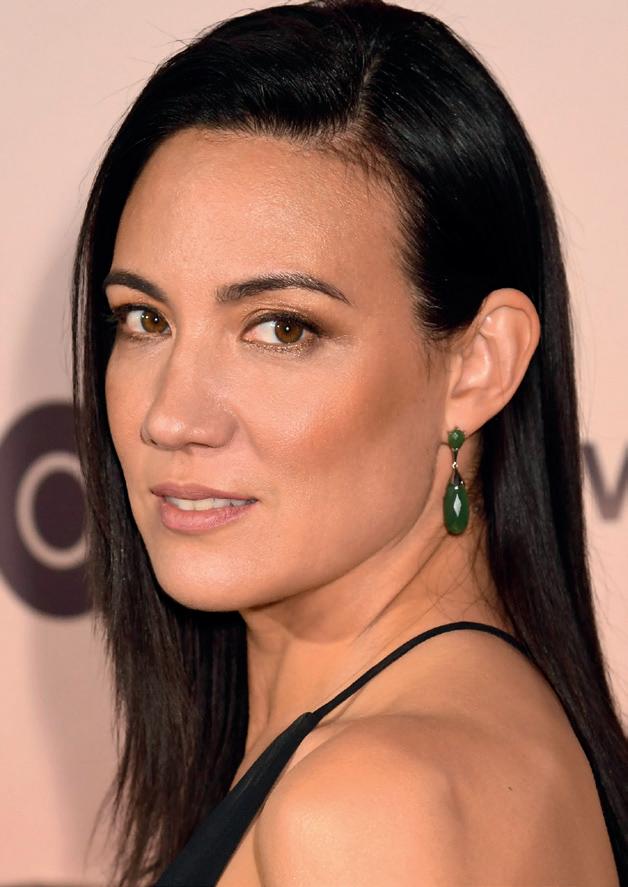
The trip to Westworld may be over, but the show’s co-creator and showrunner is now watching the rise of AI play out in the real world.
DQ100: Part One 2023/24

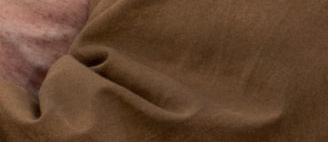
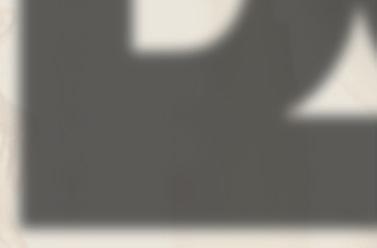
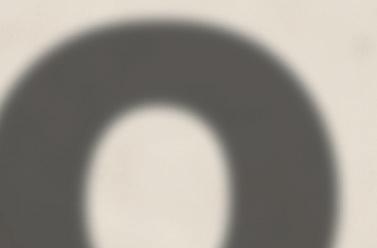
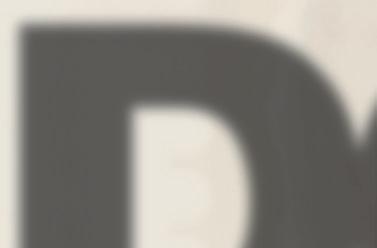

We pick out a range of shows to tune in for and the actors, directors and writers making them, as well as the trends and trailblazers worth catching up with.
End Credits



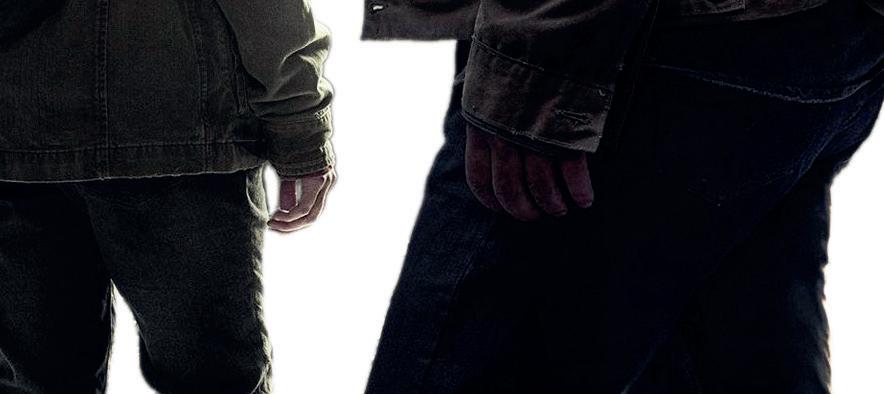


REMADE ABROAD: The Night Manager

SIX OF THE BEST: S4C’s Gwenllian Gravelle
SCENE STEALER: The Man Who Died
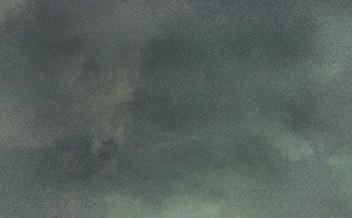


DRAMATIC QUESTION: The art of pitching a drama

Freema Agyeman tries her hand at comedy 26
Good Mothers take on the mafia 10
Italy’s
6 10 14 16 28 22 26 32
32
Lisa Joy looks beyond Westworld
16
34 34
Welsh drama after Hinterland
The Last of Us features in the latest
DQ100
36 39 40 42
Birth of an icon

A young French actress’s rapid rise to global superstardom is charted in six-part biopic Bardot. Mother-and-son writing and directing team Danièle Thompson and Christopher Thompson explain why and how they wanted to tell the story of the ‘world’s first influencer.’


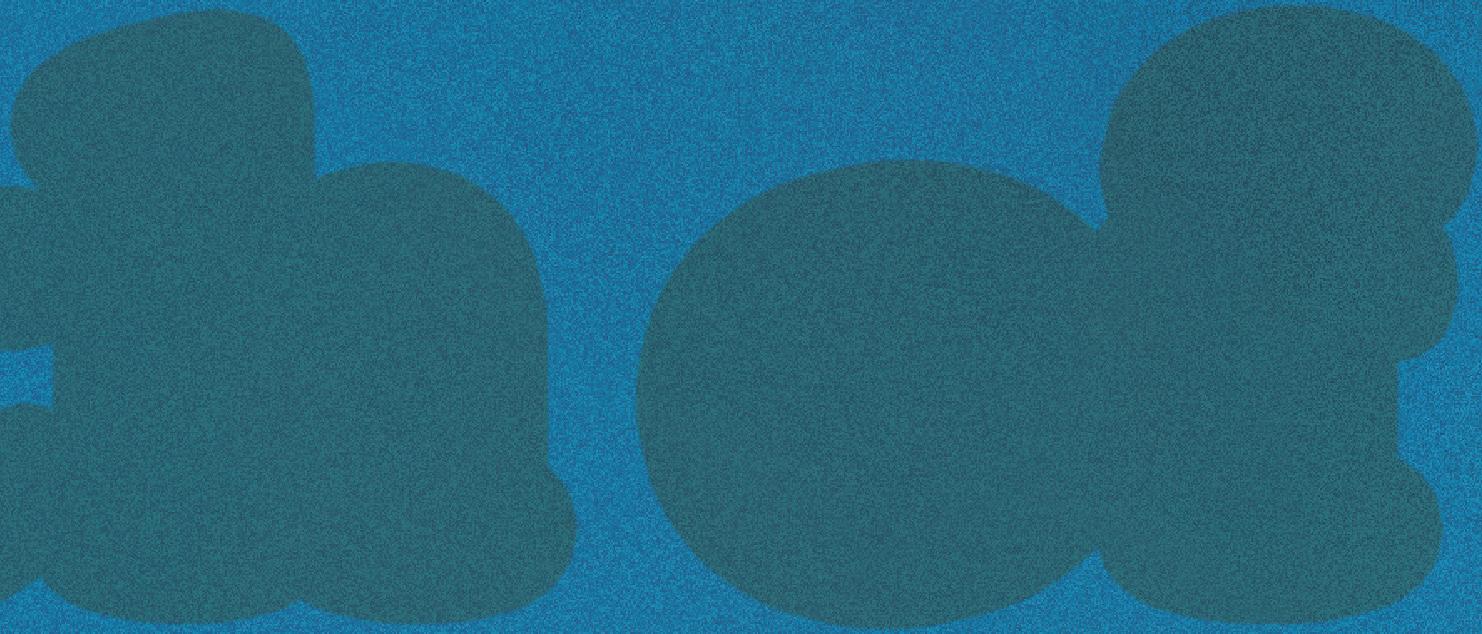
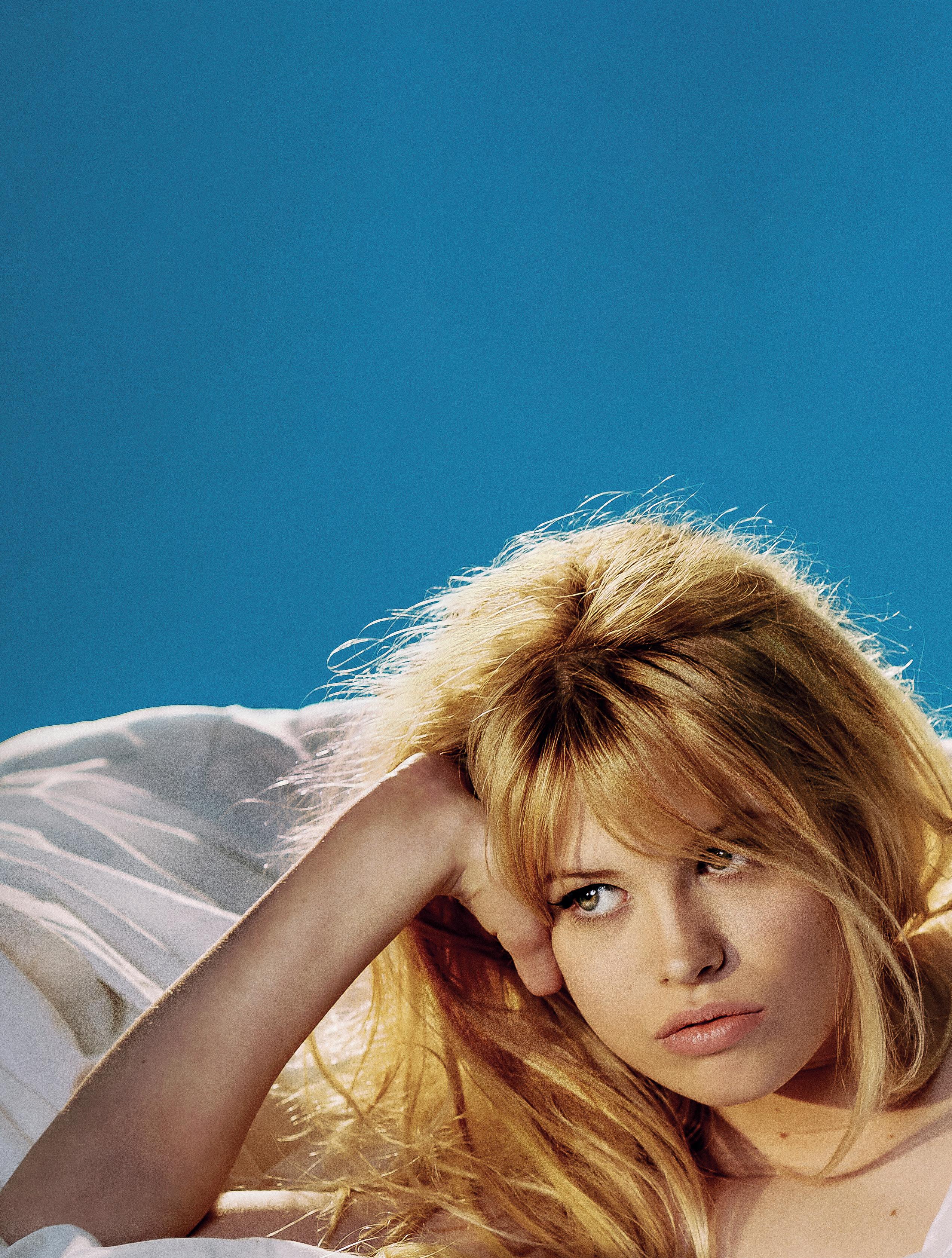 By Michael Pickard
By Michael Pickard
DQ . Spring 2023 6
DIRECTOR’S CHAIR: Danièle and Christopher Thompson
rench model and actor Brigitte Bardot’s rise to fame was nothing short of meteoric. Becoming an influencer in an era decades before Instagram and 24-hour news cycles, she drew crowds wherever she went and featured on the front pages of newspapers around the globe.
Now, a six-part biopic called Bardot explores her early life and the decisions and relationships that catapulted her from a 15-year-old Vogue cover star to international icon on the back of 1956 feature And God Created Woman – which was directed by her then husband Roger Vadim – and how she began to struggle with the attention brought on by her new-found fame.

Starring Julia de Nunez in her first major role, the French-language series comes from mother-and-son writing and directing team Danièle Thompson and Christopher Thompson, who have previously collaborated on Juliette Binoche and Jean Reno feature Jet Lag and comedies A Change of Plans and It Happened in Saint-Tropez . Approached by a producer with an idea for a series about Bardot, they immediately found a story full of drama, set in a post-war period when changes in society were heightened by the freedom and liberation Bardot herself sought from her protective parents.
“It’s been said, and it’s true, that for a good series to describe a world that’s changing, having a central character who’s a king or queen in that world is a good place to start,” Christopher tells DQ. “That’s really what we saw in this story. France is coming out of World War Two in the late 40s and early 50s, society is changing and Bardot’s explosion, which started with the worldwide release of And God Created Woman, really became a central point in French popular culture at that time. >








CHAIR:
DQ . Spring 2023 7
DIRECTOR’S
Danièle and Christopher Thompson
< “We were also interested in the intimacy of her character and describing what goes on in the life of a 15-year-old, the age we first meet her, who is longing to live her life and have her freedom, and then what happens to that longing for freedom when ultra-fame hits her.”
Danièle and Christopher have been working on the project since before the pandemic struck in 2020, reading material about Bardot and the changing role of women in the 1940s and 1950s – a theme that gets almost equal billing in the series, which is produced by Federation in coproduction with G-Films for France 2 and Mediaset Italia. Federation is also distributing Bardot, which will air on Netflix in Germany, German-speaking territories, Benelux and Switzerland.
“We went through all this research and pinpointed events or specific relationships we thought would be interesting as a television drama and that also carried a certain theme – what women were going through in the 50s,” Christopher says. “That’s how the show was then structured from episode one to six.”
maybe every single girl can look like her, walk barefoot and have their hair like hers. This is a completely new thing that appears all over the world.”
Bardot retired from acting, and public life, in 1973 following the release of her final films, and the animal rights activist went on to launch the Brigitte Bardot Foundation. Danièle and Christopher wrote to her when they first started working on the biopic, but she told them she didn’t want to participate in the project in any way.
“She trusted us and she was OK with it, but she didn’t want to be part of it, which actually was fine with us because we wanted to be free to tell the story the way we wanted,” Danièle says. Instead, they spoke to lots of people who knew Bardot at the time depicted in the show and could offer them insight into the world she inhabited.
“We’re telling the real story,” Christopher says. “What we describe and is described by her in various interviews is she wanted out from her family and she found a new equilibrium with this young man [Vadim] she met. That’s part of her story.
“She has been perceived, like many women, as an object, a sex symbol, an object of desire, and what did interest us through the series is how she’s in charge of what she decides and what she wants from life and from her relationships –until her life is made impossible by the hysteria around her and the rise of this paparazzi culture. That’s when this freedom is taken away from her. She is, in a sense, the first influencer and the first person whose privacy has been invaded in such a way.”
For such experienced filmmakers, it’s surprising to hear that making Bardot proved to be a “very new” experience for both Danièle and Christopher, who have most commonly written together on films Danièle has subsequently directed.
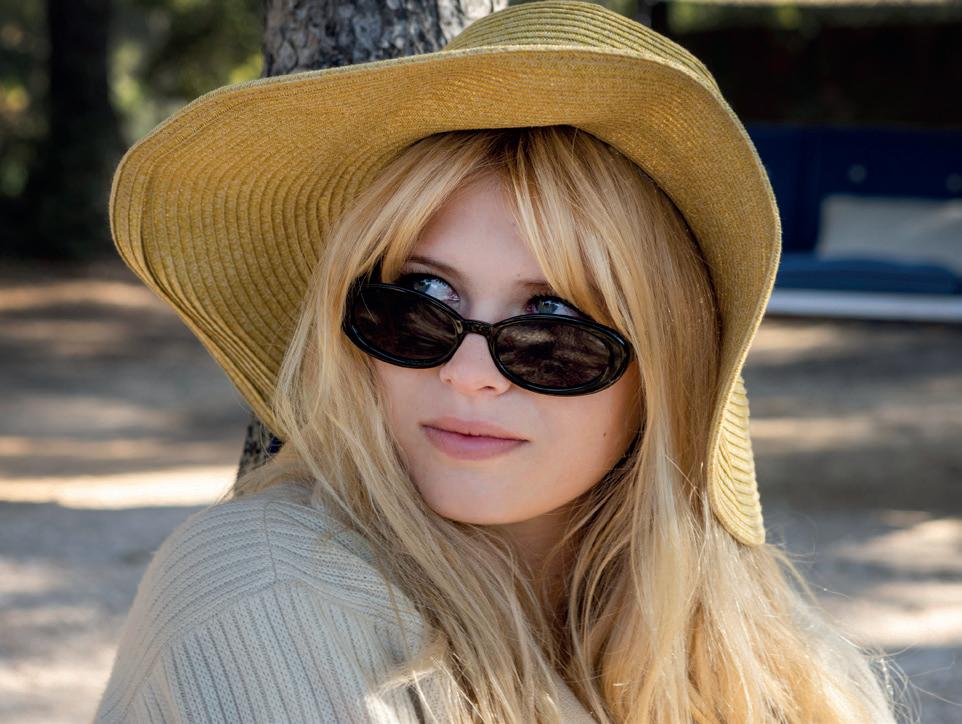
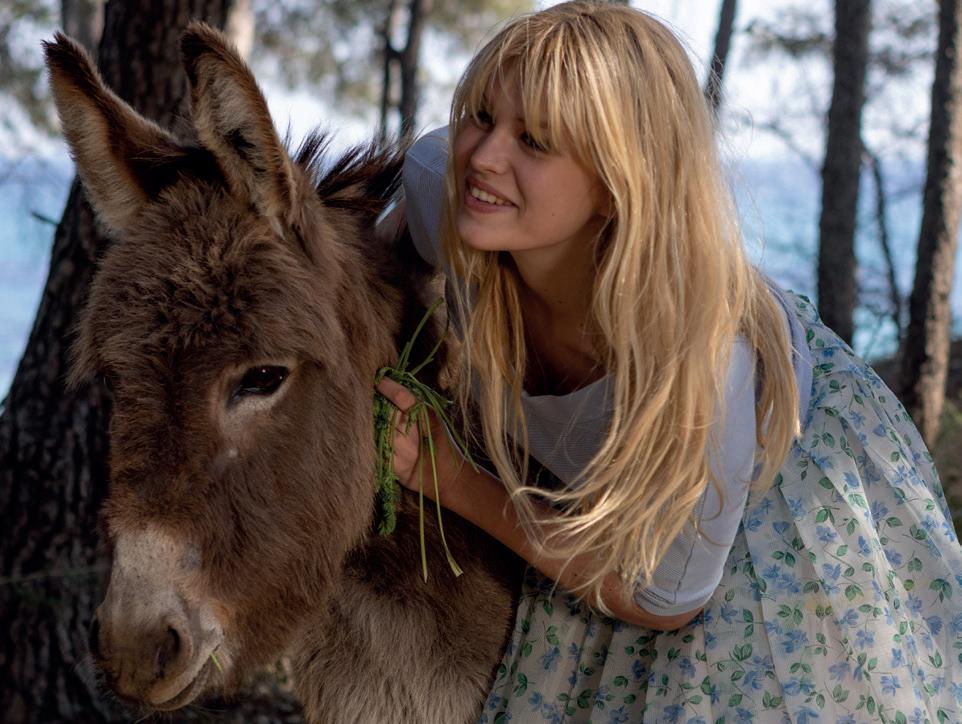
In the first episode, Bardot meets Vadim and breaks free from the confines of her family, before episode two jumps to the filming of And God Created Woman , the film that would make her a star.
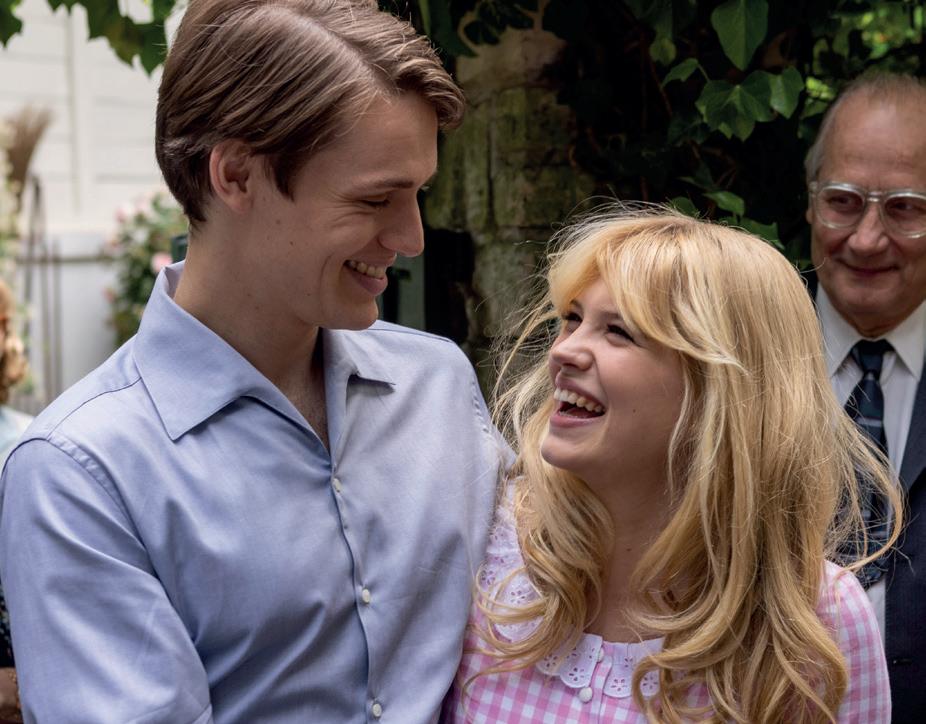
“Suddenly, with this second chapter, it’s the end of her love with Vadim and the beginning of her love affair with Jean-Louis Trintignant, who was the actor in the film,” Christopher continues. “So there was a lot of drama there. It’s the beginning of the myth of Brigitte and the shockwave created throughout the world, because this young girl on screen is completely natural and exactly how she was in real life. It creates a reaction no one really expected.”
“It was very new,” Danièle says of Bardot’s naturalistic acting style. “What everybody saw on screen was so different from the image of all these beautiful actors who were stars since the beginning of movies, which was a little more than 50 years before. She suddenly brings the new idea that
On this series, they decided to showrun and co-direct all six episodes, but then had to work out what that meant in practical terms once production was underway. In the end, Danièle directed episodes one, three and six, while Christopher picked up two, four and five.



“From then on, it was really quite wonderful because we were able to cross board everything and just commit ourselves to this four-month shoot,” Christopher says. “Sometimes one of us had a day o because the other was shooting. We did not cross over on the set but everything else, from pre-production to post-production, we did hand in hand and it was a wonderful setup. It was also very economical because, with the same crew, you could have one of us doing a scene on the set in the morning and the other in the afternoon. There was no block one, two or three. All the money is on the screen.”
Writing together, they would sit around a table and talk “for weeks and months,” taking notes and digesting their thoughts about story and character and identifying the key scenes. They would then write scenes together, but always
DIRECTOR’S CHAIR: Danièle and Christopher Thompson DQ . Spring 2023 8
Brigitte Bardot trusted us and she was OK with it, but she didn’t want to be part of it, which actually was fine with us because we wanted to be free to tell the story the way we wanted.
“ ”
Danièle Thompson
Bardot follows the iconic French star, played by Julia de Nunez, as she experiences uncomfortable levels of fame
keeping their directing roles in mind and ensuring the story unfolded from Bardot’s point of view.

“We even decided we were going to show all the young men she had in her life over those years through her eyes, so we show men without their shirts on, and practically nude, more than her,” Danièle notes. “She loved men and she actually displayed a freedom that women did not have at the time by having affairs with several men. This is in the 50s – it was something that was not accepted by any society anywhere. She always decided she was going to do what she wanted to do.”
“The whole show is from her point of view and the sexual drive in the show is also something we wanted to do from her point of view,” Christopher says. “That’s a way of turning around the narrative of her as a ‘sex symbol’ in the 50s and that she’s only regarded through the desire of others and men. We really wanted to be with her, showing her desire and what she feels.”
To find the actor who would play Bardot, the directors saw dozens of young performers before they met with rising French star de Nunez. They were particularly bowled over by her personality, because more than wanting someone who simply looked like the real Bardot – and de Nunez has a startling likeness – they were looking for someone who could play a role that evolves from young girl to international star. De Nunez was picked, and she shares the screen with co-stars Victor Belmondo, Géraldine Pailhas, Hippolyte Girardot, Yvan Attal, Anne Le Ny, Oscar Lesage, Noham Edje and Jules Benchetrit.
“We never asked her to imitate Bardot. We just wanted someone who had her own personality and could slowly, through the show, forget the real Bardot and become her,” Danièle says of casting de Nunez. “Suddenly this young girl appeared on the screen and there was something about the way she was moving, talking and improvising.
“It was quite remarkable – and we were immensely relieved because we’d decided if we didn’t find the right person we would literally not do the show, because she has so much on her shoulders. The first episode is mostly when she’s 15, so we made her look much younger, which we recreated from Bardot’s pictures of the time. But she becomes a woman and she’s just a great actress.”
Once they had found their star, Danièle and Christopher faced the task of recreating Paris and the south of France during the time period featured in the series. But as Danièle notes, they quickly discovered “nothing is the same anymore.”
“It was really a challenge because this is not a big US or British project where you have an immense amount of money to recreate the past,” she continues. “This was very interesting for us to really work on recreating the apartments, the details, the fashion. Our costume designer, Marylin Fitoussi, a very talented woman who did the costumes for Emily in Paris , worked hard to keep inside the budget and yet make it true and identifiable as the 50s.”
While the real Bardot might have been out of the public glare for several decades, Christopher likens her to the late Queen Elizabeth II when he describes her as an ordinary young girl who finds herself in extraordinary circumstances.
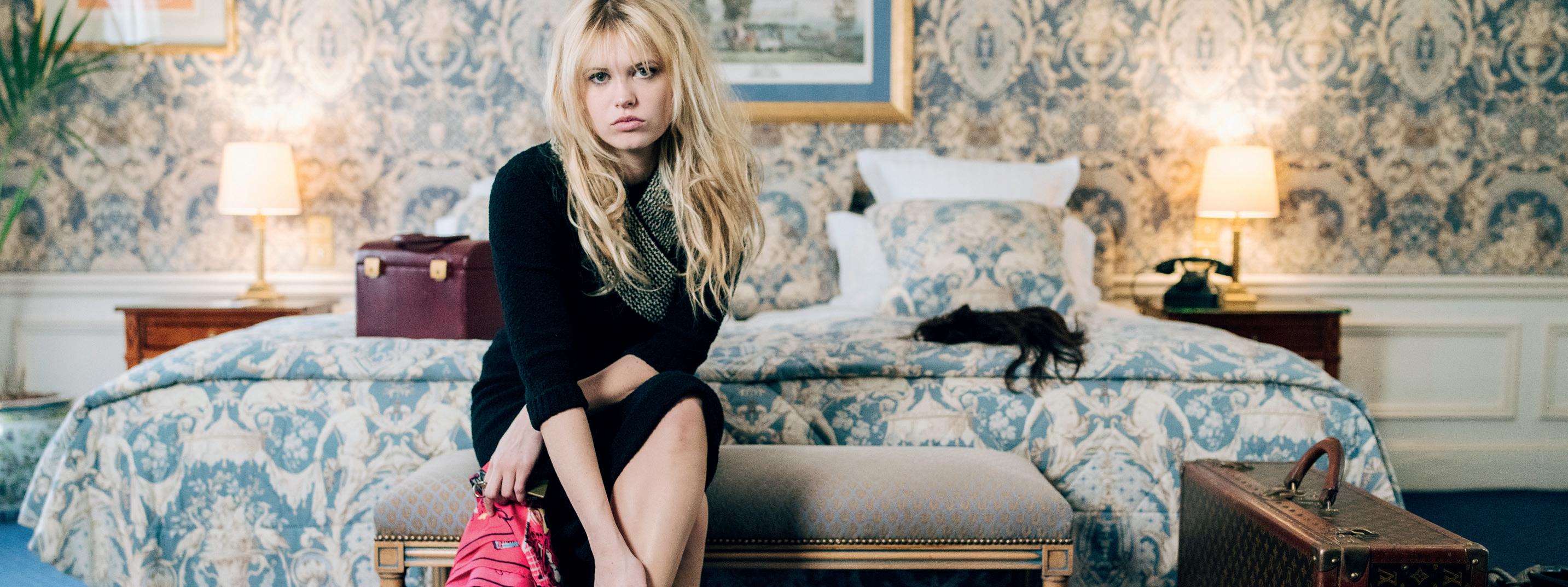
Bardot is similar to Netflix’s royalty drama The Crown in that it’s based on facts but is entirely the work of screenwriters, he says. “The conversations that take place between people we know are totally invented, yet it’s based on reality. This is great fun for us.”
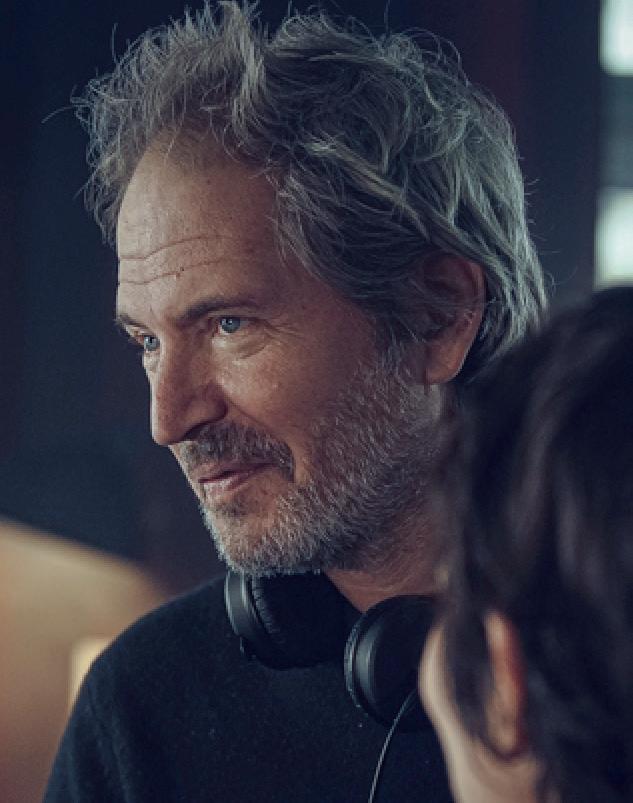
“But the difference between Brigitte and the Queen is that, very early on, the Queen was supposed to be the Queen of England,” Danièle says. “Brigitte was just a young girl who wanted to make a living in movies, have fun and work like many other women who have succeeded in this business.
“What suddenly changed her life was this film, And God Created Woman , because she started living in a prison, maybe a gilded prison, and she has been trapped everywhere she has been from then until today. She has a phobia of crowds and being looked at, so she hardly goes out. She started living differently after that moment at the end of episode two. It changes everything.”
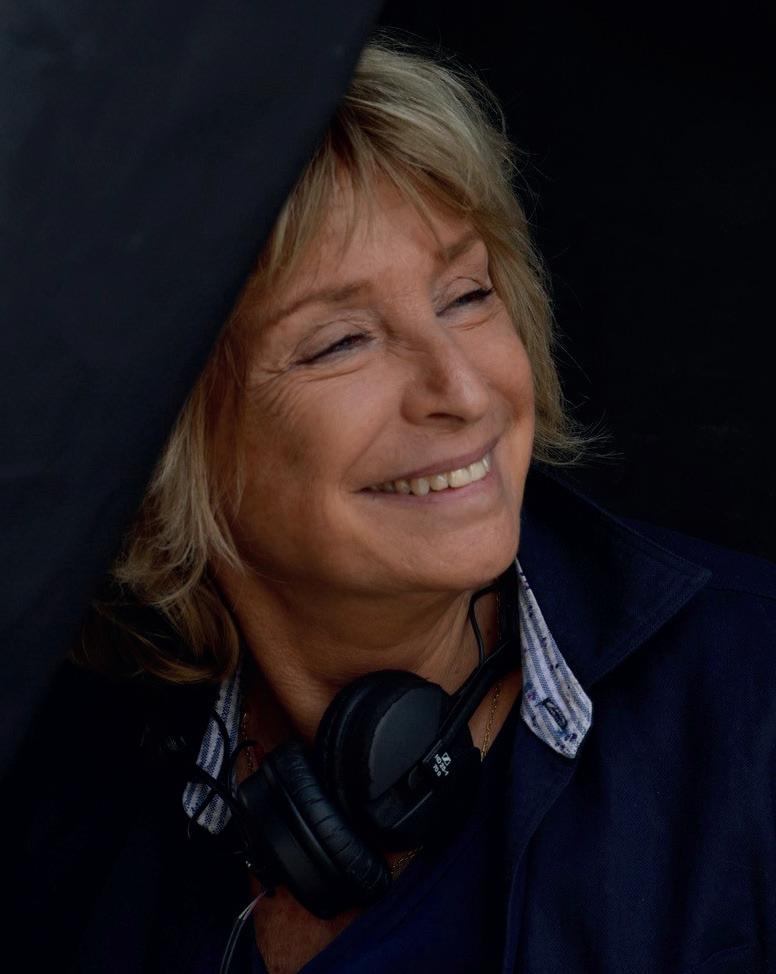
DIRECTOR’S CHAIR: Danièle and Christopher Thompson DQ . Spring 2023 9 DQ
Danièle and Christopher Thompson
MAMA
DRAMA
The cast and creative team behind Italian series The Good Mothers discuss how it flips the script on mafia dramas with the true story of how three women found the courage to bring down a deadly clan.
While series such as Gomorrah, Suburra and The Sopranos have turned stories about the mafia into a genre of their own, a new drama from Italy draws on real events to uniquely explore the downfall of one Calabrian clan from a fresh perspective.

The Good Mothers, a Disney+ Italian original series, tells the true story of three women who were born into the deadly ‘Ndrangheta clan and how they worked with a courageous female prosecutor to bring it down from the inside, in an attempt to fight for their freedom and the chance to build a new future for their children.
Produced by Italy’s Wildside (My Brilliant Friend) and House Productions (Sherwood) in the UK, the six-part series is written by British screenwriter Stephen Butchard (A Child in Time). His interest in the project began when he read a news article about the ‘Ndrangheta, while at the same time, Foreign Press Association journalist Alex Perry was writing a book about the mafia family. After reading some of Perry’s early chapters, Butchard was hooked.
“It’s such a fantastic story. I definitely wanted to be involved,” he tells DQ during the Berlin International Film Festival, where the show had its world premiere and won the inaugural Berlinale Series award. “It was a familiar world but from a totally different point of view of the women. Then once you got more into the story, it was about the incredible courage of the women and I knew this story needed to be told.”
When it came to writing the Italian-language series, Butchard penned the scripts in English before New York-born Italian writer Claudia Durastanti translated them. “She really understood the nuances of the English,” Butchard explains. “We went through it, sat down and spoke about what we wanted, and with any problems with the English where the Italian was difficult to find, we discussed an alternative, so it was a long process, a detailed process but really worthwhile and really interesting.”
In fact, when Butchard first started work, the series was due to be made in English. “But more and more we found it had to be a story that was told in Italian,” he says. “Otherwise you would lose all the authenticity, so it was completely necessary and a really good experience.”
Lead director Julian Jarrold (This England, Appropriate Adult) signed up after reading Butchard’s scripts and Perry’s book, and partnered with Elisa Amoruso (Time is Up) behind the camera. “In England, the ‘Ndrangheta are not very well known. It was a complete eye-opener to learn about the culture of this invisible mafia that conceals its wealth so cleverly but has this very oppressive family structure. And the idea of these women,
>
IN FOCUS: The Good Mothers DQ . Spring 2023 10
Clockwise from main image: Simona Distefano, Micaela Ramazzotti and Valentina Bellè play three women who work with Barbara Chichiarelli’s prosecutor to bring down the ‘Ndrangheta clan from the inside
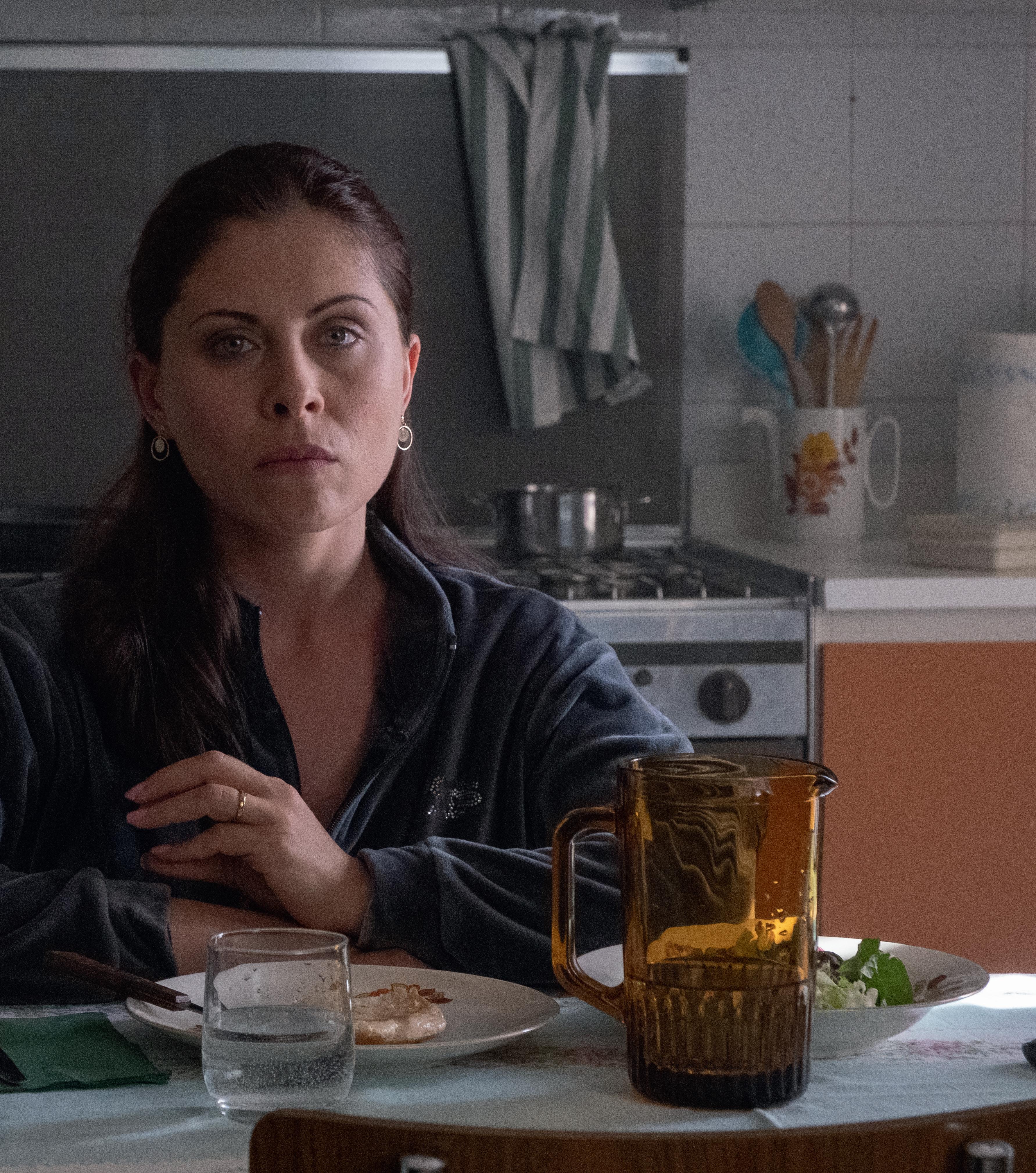

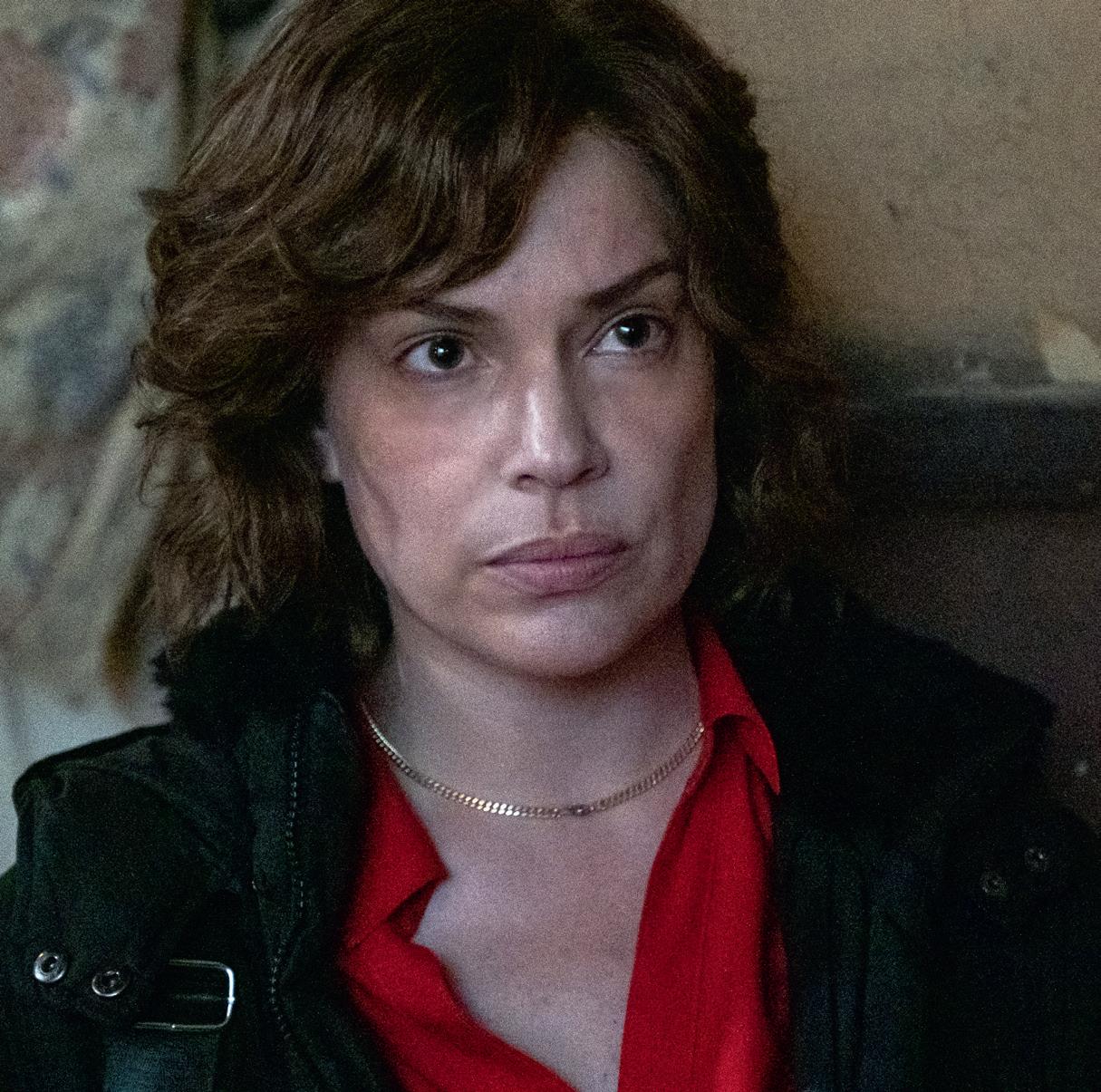

IN FOCUS:
Mothers DQ . Spring 2023 11
The Good
This story had not been told in this way, from the women’s point of view, so it was necessary to tell it. These invisible women have been so strong and brave to fight against their families, and their sacrifices are huge.
Elisa Amoruso Co-director
< who are prepared to take on the mafia and consider betrayal, was such a powerful story. It was too good to miss,” he says.
Amoruso was working on another set when she took the call from Wildside and later read the first episode script. “Of course, as an Italian, I knew about the ‘Ndrangheta and I knew the story of these characters – Lea Garofalo, Giuseppina Pesce and Maria Concetta Cacciola – because they are quite known,” the director says. “But this story had not been told in this way, from their point of view, so it was necessary to tell it. These invisible women have been so strong and brave to fight against their families, and their sacrifices are huge.”
Shining a light on these “invisible women” also appealed to the show’s stars: Gaia Girace (My Brilliant Friend), Valentina Bellè (Catch-22), Simona Distefano (The Traitor) and Micaela Ramazzotti (Like Crazy).
The series follows Denise (Girace), daughter of Lea Garofalo (Ramazzotti), plus Maria Concetta Cacciola (Distefano) and Giuseppina Pesce (Bellè), who dared to defy the ‘Ndrangheta. To help them, prosecutor Anna Colace (Barbara Chichiarelli), having just arrived in Calabria, determines that focusing on the women is the key to bringing down the clan. Though the ‘Ndrangheta is famous and feared for its iron fist and insidious power, Denise, Giuseppina and Maria Concetta attempt to free themselves from its shackles and collaborate with the authorities.
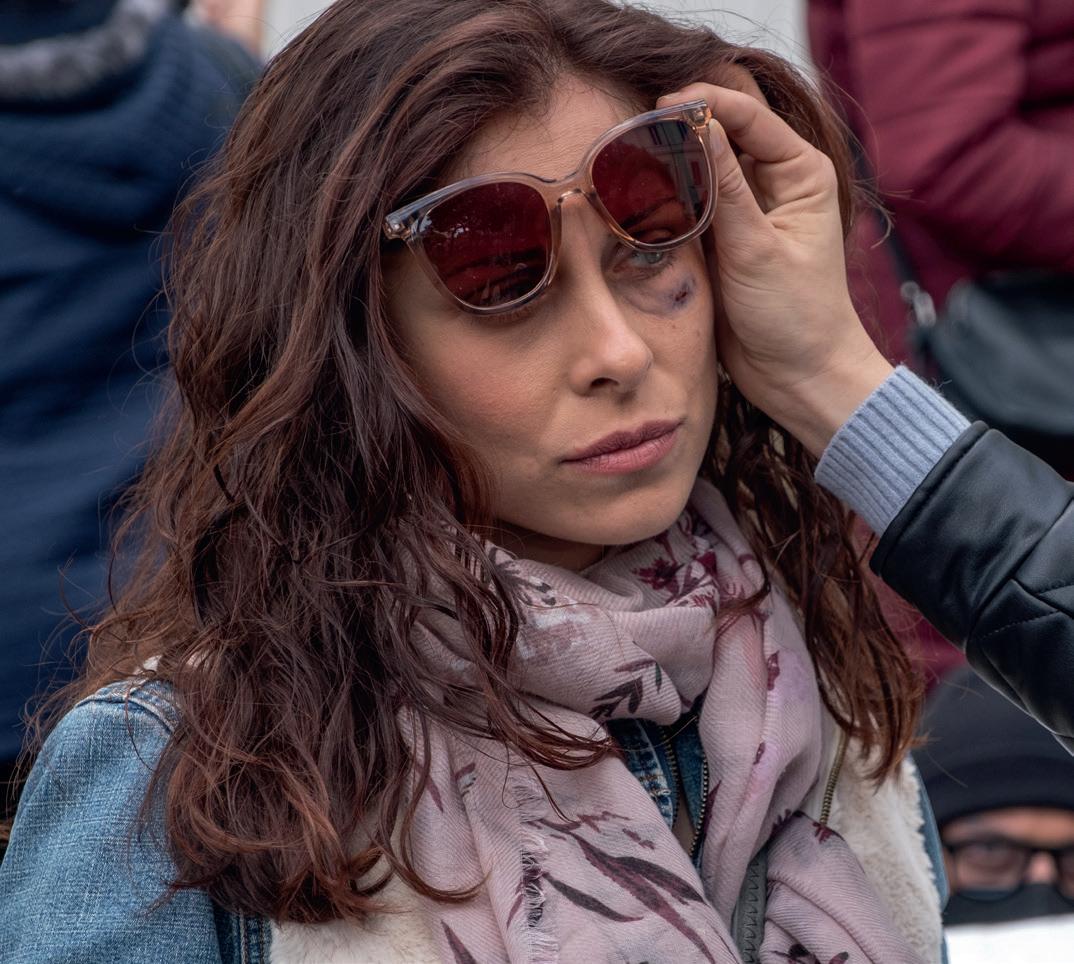
“That’s really the magic thing about cinema, because what The Good Mothers does is shed light on this story,” Ramazzotti says. “It’s very powerful because previously almost nothing was known about them. It’s based on a true story, and what the directors managed to do was shape that in a cinematic form.
“We are actors, we give our bodies, we give our voices, but the magic and power of cinema is that it can give voices and shine a light on these women. Their stories weren’t terribly well known, but Lea Garofalo’s story was partly known because she was born into this family of the Calabrian mafia and was killed by them. But at the same time, she managed to pass on freedom to her daughter Denise, who testified against her father, who killed her mother. So although her mother, a very strong woman, had been killed, her daughter was freed by that. If they were invisible before, they certainly aren’t now. Soon they will be very visible.”
Distefano says that when people talk about characters like those in The Good Mothers, they talk about “revolutionary women like Joan of Arc, or feminists out on the street demonstrating.”
“But what’s really important here is our characters are fighting for the little things of everyday life,” she continues.
“My character, for example, is fighting to be free to meet a girlfriend, to chat on Facebook, to wear certain kinds of make-up or to dress in a particular way. That freedom to do the small things was very important.”
Meanwhile, Girace can see similarities between Denise – who initially finds herself in the middle of events she doesn’t understand and can’t control when her mother disappears after meeting with her father – and Lila, the determined, forthright character she plays in the adaptation of Elena Ferrante’s My Brilliant Friend novels.
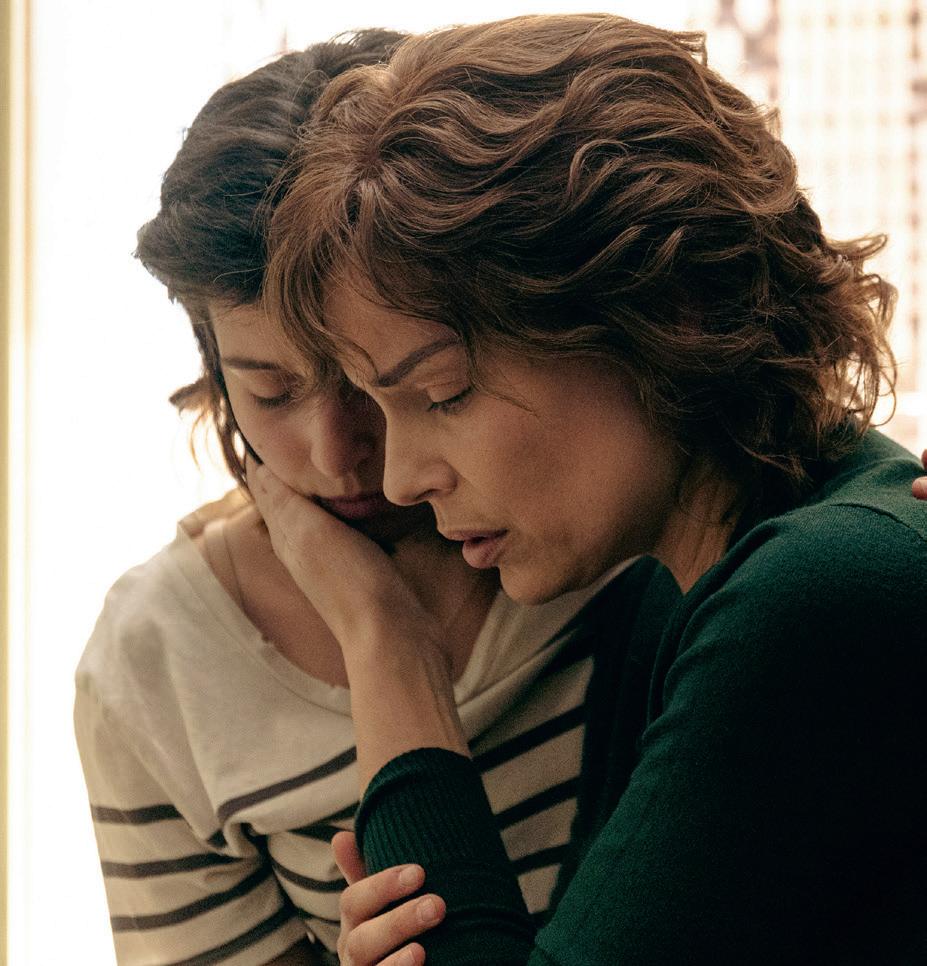
“Lila and Denise are both strong and brave women,” the actor says. “Denise is very gentle and sincere. She wants to shed light on what’s happened, and what’s important to her is that sense of justice. But they’re also very different characters, and it was important for me to differentiate between the two.
“It was a huge responsibility to play this role, because life has been so hard for Denise. She’s had so many blows from life, she’s struggled, but she’s very brave and, at the end, she’s also alone because she has to turn against her family; she testifies against her father and boyfriend. What’s important for her at the end of the day is justice, and also a sense of love for her mother.”
Undertaking a long period of preparation before production, Jarrold toured “every little mountain village” in Calabria in southern Italy, where the story is set, looking for a location that was both safe enough to film in and similar to the locations where the real events took place. He also took the time to get a feel for the region’s culture.
“It is very different in Calabria compared with the north of Italy,” he notes. “Then it was a process of Elisa and I talking and going over references and coming up with a visual style to present something that was visceral, that was from the women’s point of view and also gave an insight into that world.”
“It was such a huge honour to work with Julian, as he had brilliant ideas and a very specific way to look at our places,” Amoruso says of Jarrold’s eye for locations. “At the beginning, I was surprised he had chosen very narrow spaces for these women – they were like cages. We also had prisons in the show, but he had chosen little rooms for them, so there was this sense they are in a cage and they couldn’t express their world. These women didn’t have freedom in their lives, so I liked it very much.”
And while those small spaces weren’t particularly crew-friendly, Amoruso says the team behind the scenes – both from Italy and the UK –were singularly focused on telling this story.
“I loved the fact we could work together and they had a completely different point of view on Italy,” she says. “It was very interesting to work like that. The translator, Claudia, translated the script in a way we could really feel in Italian – and this was also my job. I am Italian, but I was following the job Julian was doing while also trying to make this transition from English to Italian, and it was magic. We made it.”
IN FOCUS: The Good Mothers DQ . Spring 2023 12 DQ
“ ”
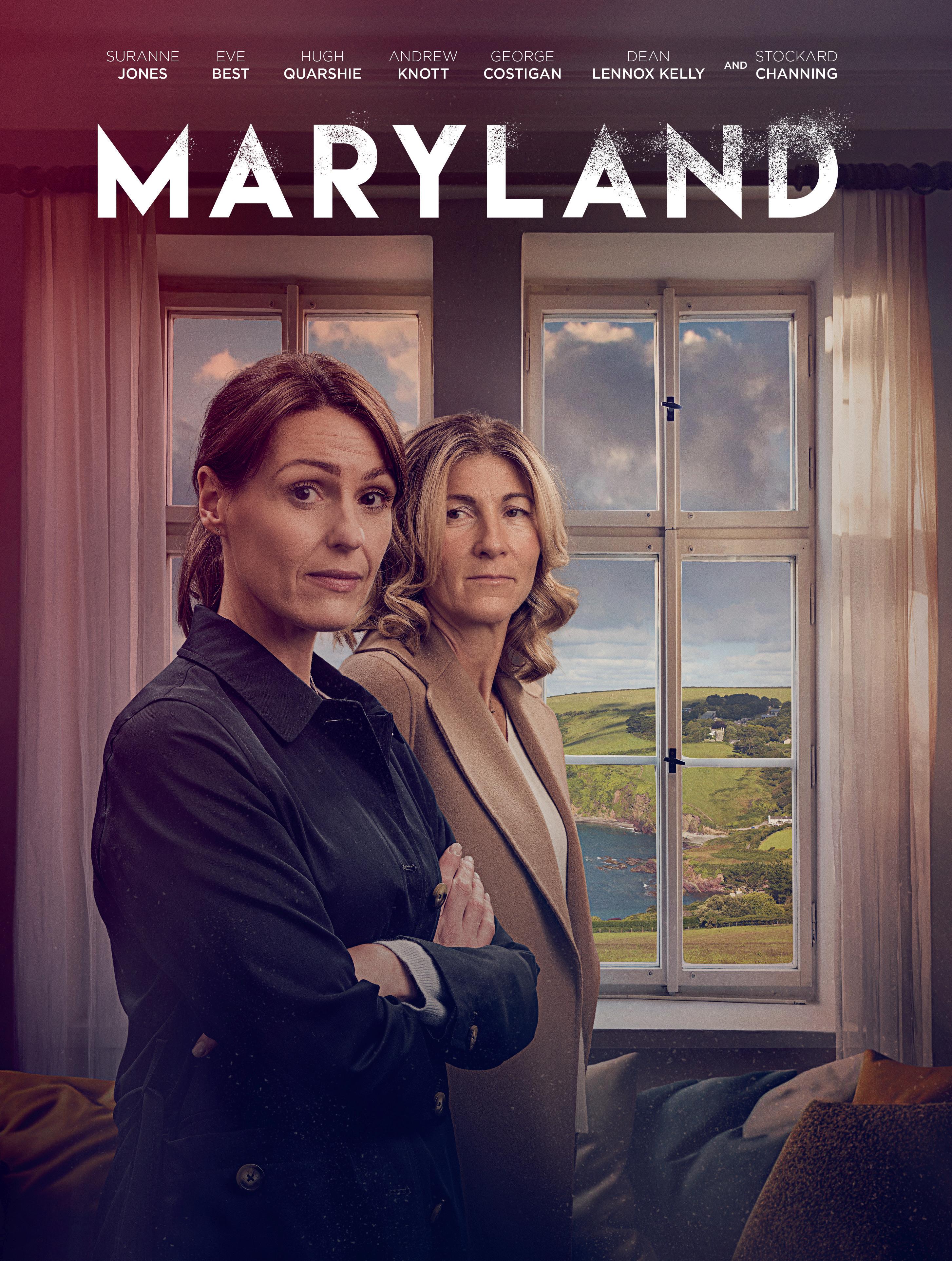
NEED FOR SPEED
It’s been a busy couple of years for Lauryn Ajufo, who has burst onto British screens with roles in series The Last Bus and Tell Me Everything and films Boiling Point and Luther: The Fallen Sun

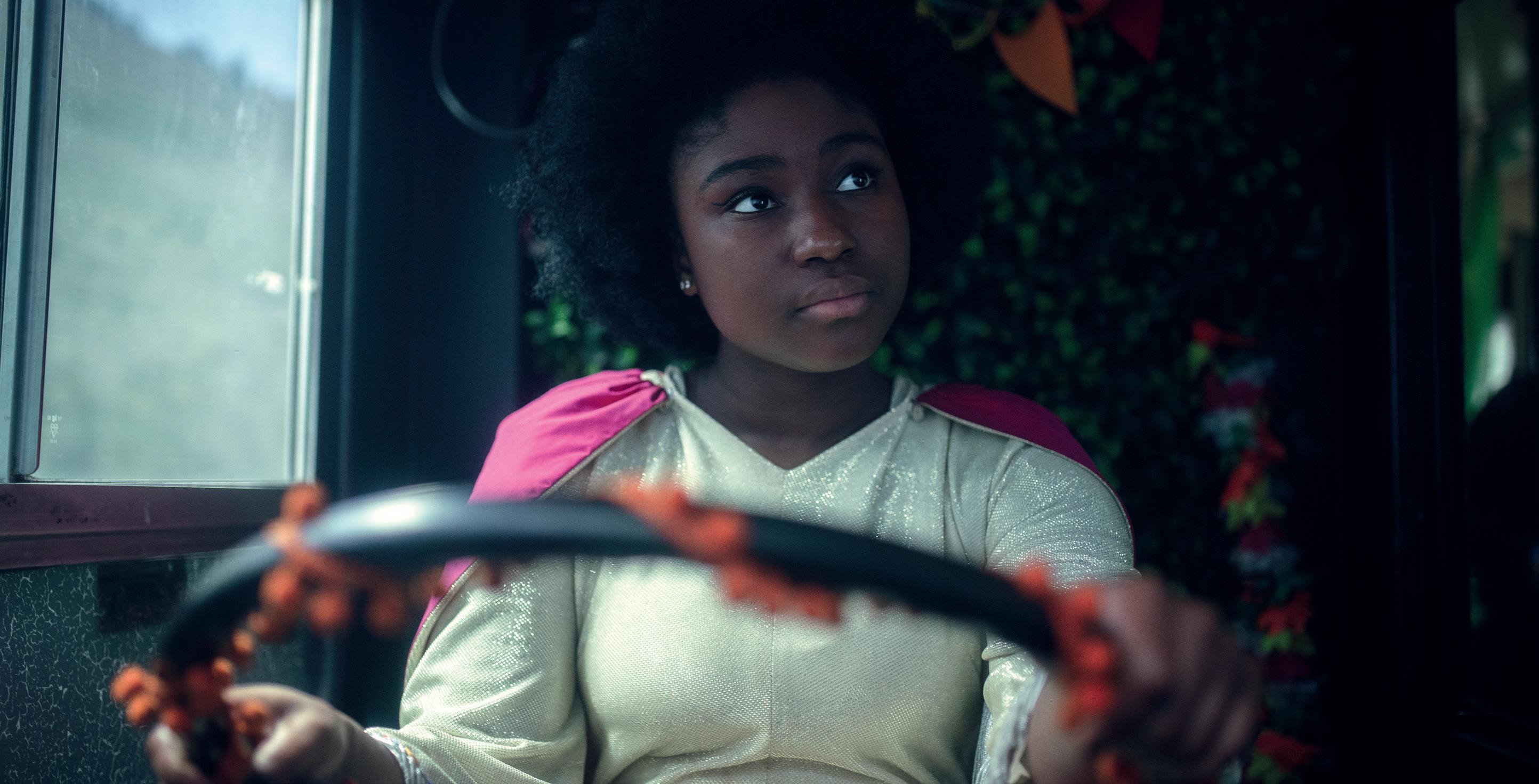
In fact, her first screen role came in the short film of the same name that inspired Boiling Point, a one-take feature directed by Phil Barantini and set in a restaurant run by Stephen Graham’s head chef Andy. In both the 2019 short and the 2021 feature, Ajufo plays a waitress.
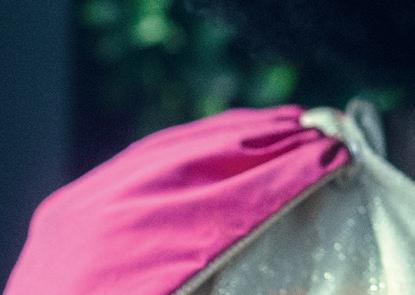

“I’m really glad the breakout point in my career was with Phil because he’s a great director. No question is a stupid question and he’s super supportive,” she tells DQ. “Boiling Point was a lot of fun. I was in a room with amazing actors but the pressure there wasn’t to the point where it was scary. It was motivational. I’m glad I got to be a part of something that was so important, did really well and is very British.”
The daunting task of filming the feature in just one take was made simpler by the fact the script contained very little dialogue. “The improv was great but, to this day, I still can’t open a wine bottle,” Ajufo jokes about a scene from the film. “I remember the first two takes where it was a struggle and I couldn’t open it. You could hear Phil going, ‘Keep rolling,’ and I’d run out of things to say. But other than that, it was a great experience.”
Netflix’s The Last Bus , meanwhile, is an action-packed eco-fable that premiered last year. It follows a group of mismatched teenagers, including Ajufo’s Misha, who become unlikely heroes when a robot apocalypse zaps away the rest of humanity.

Also debuting last year with the launch of ITVX was Tell Me Everything , which focuses on how the challenges of modern society affect the mental health of a group of teens who are searching for their own identities while experimenting with relationships, drink, drugs
and sex. Ajufo plays Neve, who struggles to meet her family’s expectations compared with her high-flying sister.

“Especially being a young black girl, I grew up in a similar situation where it was hard. I got told I sounded too posh to be from south London and things like that, so it was nice to play a character with traits and issues I grew up experiencing, because I could put those into my character and show that to the world,” the actor says.
Most recently, Ajufo appeared in Netflix’s Luther: The Fallen Sun , a feature-length sequel to the BBC psychological crime drama starring Idris Elba as DCI John Luther. Ajufo plays Anya, the daughter of Cynthia Erivo’s counterintelligence operative on the hunt for the title character after he escapes from prison.
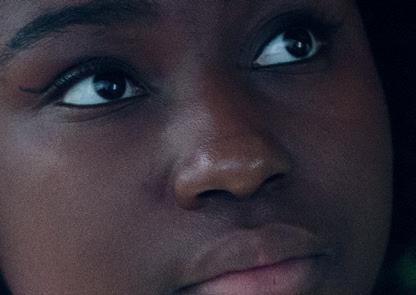
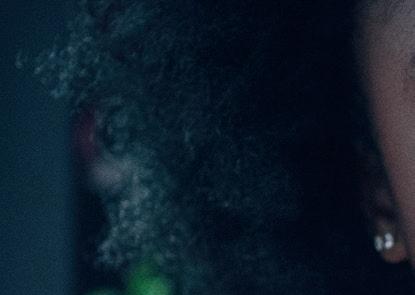
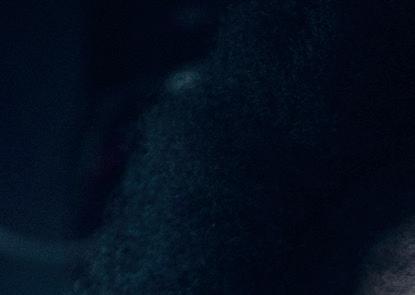
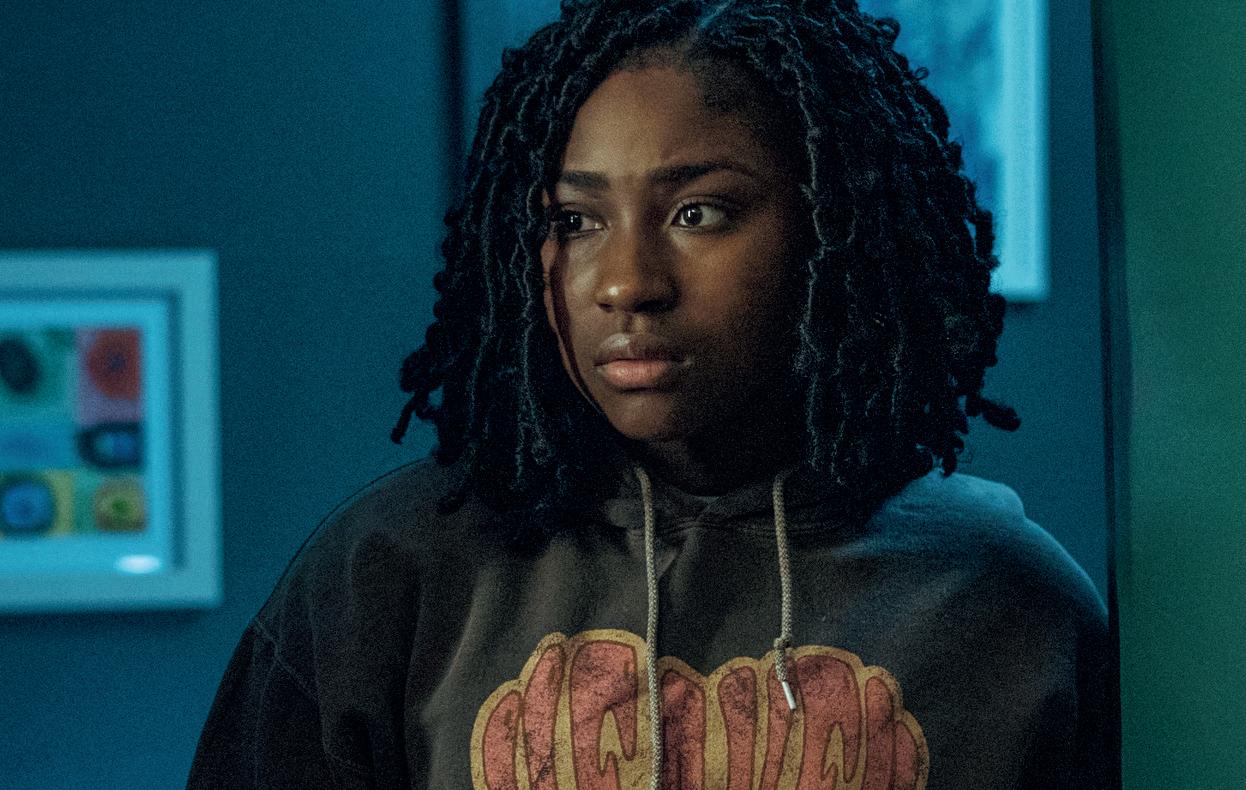
She started work on Luther the day after Tell Me Everything wrapped, throwing her straight into this “bigger, bolder” take on writer Neil Cross’s detective. “There was no time for me to
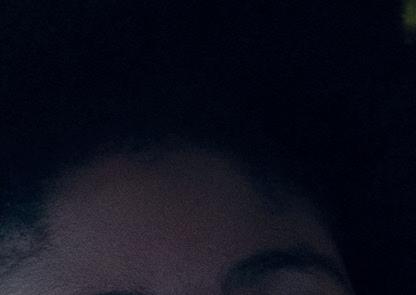
mentally prepare myself, it was just, ‘Go, go, go.’ But I loved it that way,” she says. “I loved being on set. I was very nervous at first because you’re working with really big actors who’ve been in the game for so long, but everyone was so supportive and fun and friendly to be around.”
During her fledgling career, Ajufo says she has learned not to commit to a script straight away, as they have a habit of changing through numerous new drafts. But as the variety of series in which the actor is appearing indicates, she’s up for a challenge. “Every single role I’ve played so far has been very different and I’m grateful for that because it helps me grow as an actor,” she says. “I wouldn’t want to be onedimensional. I would like to challenge myself and try something different.”
Her upcoming projects include Accused, a feature film reuniting her with Barantini for a story about a man (Sex Education’s Chaneil Kular) wrongfully accused of being a terrorist. She also stars in Netflix’s The Fuck It Bucket, playing best friend Becca to protagonist Mia (Sophie Wilde), who emerges from hospital after a battle with anorexia intent on catching up on her childhood by completing a bucket list.
“I’m a sucker for teenage films or TV shows,” Ajufo says about The Fuck It Bucket . “I was obsessed with Gossip Girl and The Vampire Diaries , so to be a part of something aimed at a similar age group to the things I grew up watching is so cool.”
She’s also a fan of romcoms and would one day love to star in a new take on Richard Curtis favourite Notting Hill . But one job in particular would trump them all. “If I could be a Disney princess, my life would be complete,” she says. “I’d retire straight afterwards. I’d be content with life.”
DQ
From top: Lauryn Ajufo in The Last Bus, Tell Me Everything and Luther: The Fallen Sun
DQ . Spring 2023 14
Rising star Lauryn Ajufo isn’t hanging around, with a slate of assorted projects already to her name. Just don’t ask her to open a bottle of wine...
“
”
If I could be a Disney princess, my life would be complete. I’d retire straight afterwards.
STAR
Lauryn Ajufo
POWER: Lauryn Ajufo
Life beyond


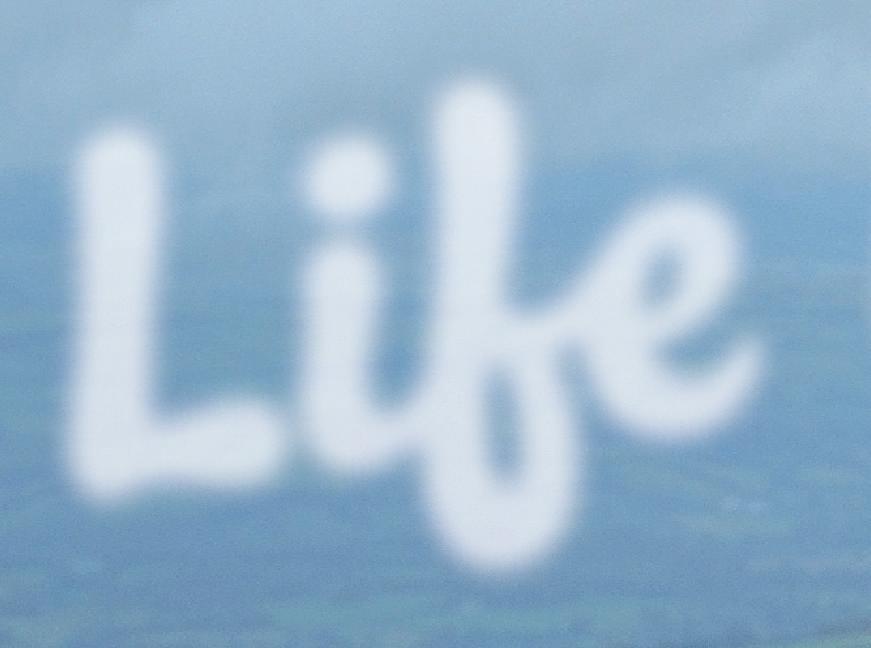
It marked the emergence of Welsh language drama on the international stage, but what came next for the makers of Y Gwyll (Hinterland)? DQ speaks to Ed Thomas, Ed Talfan and Gethin Scourfield about their latest projects.

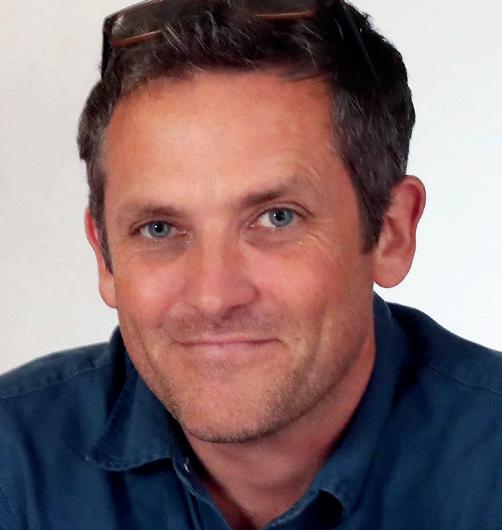

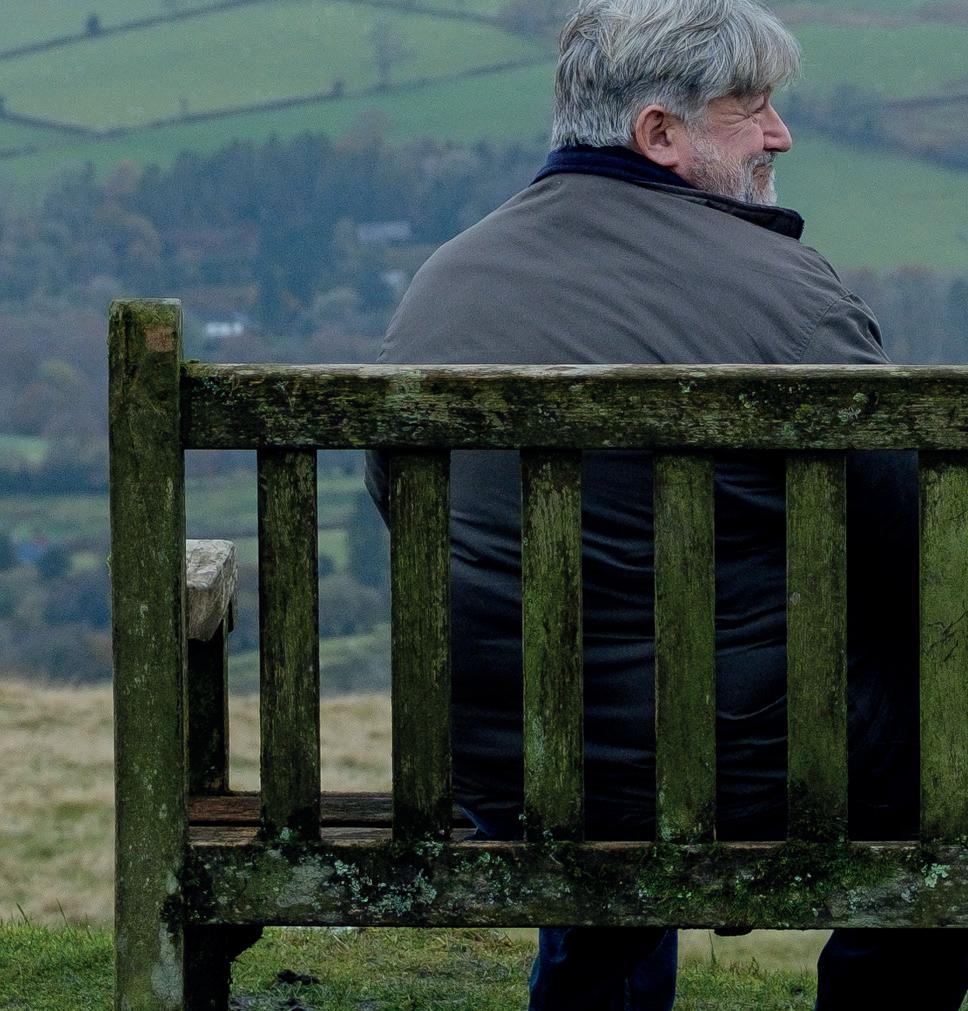
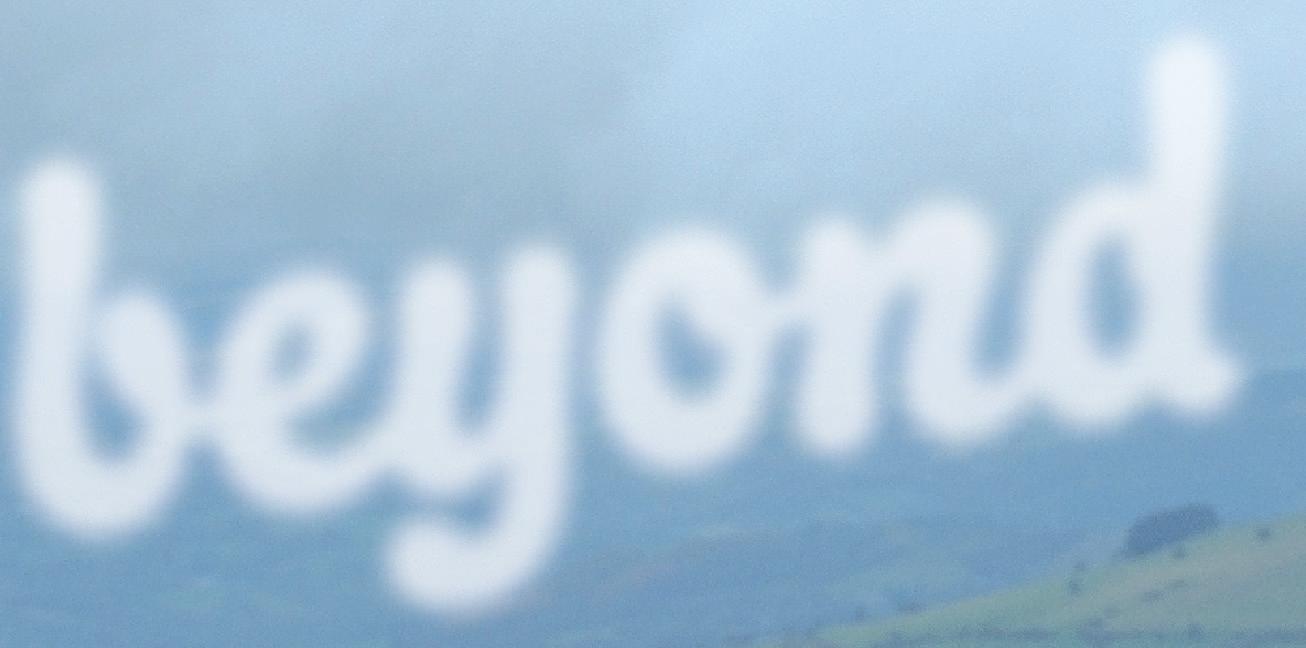
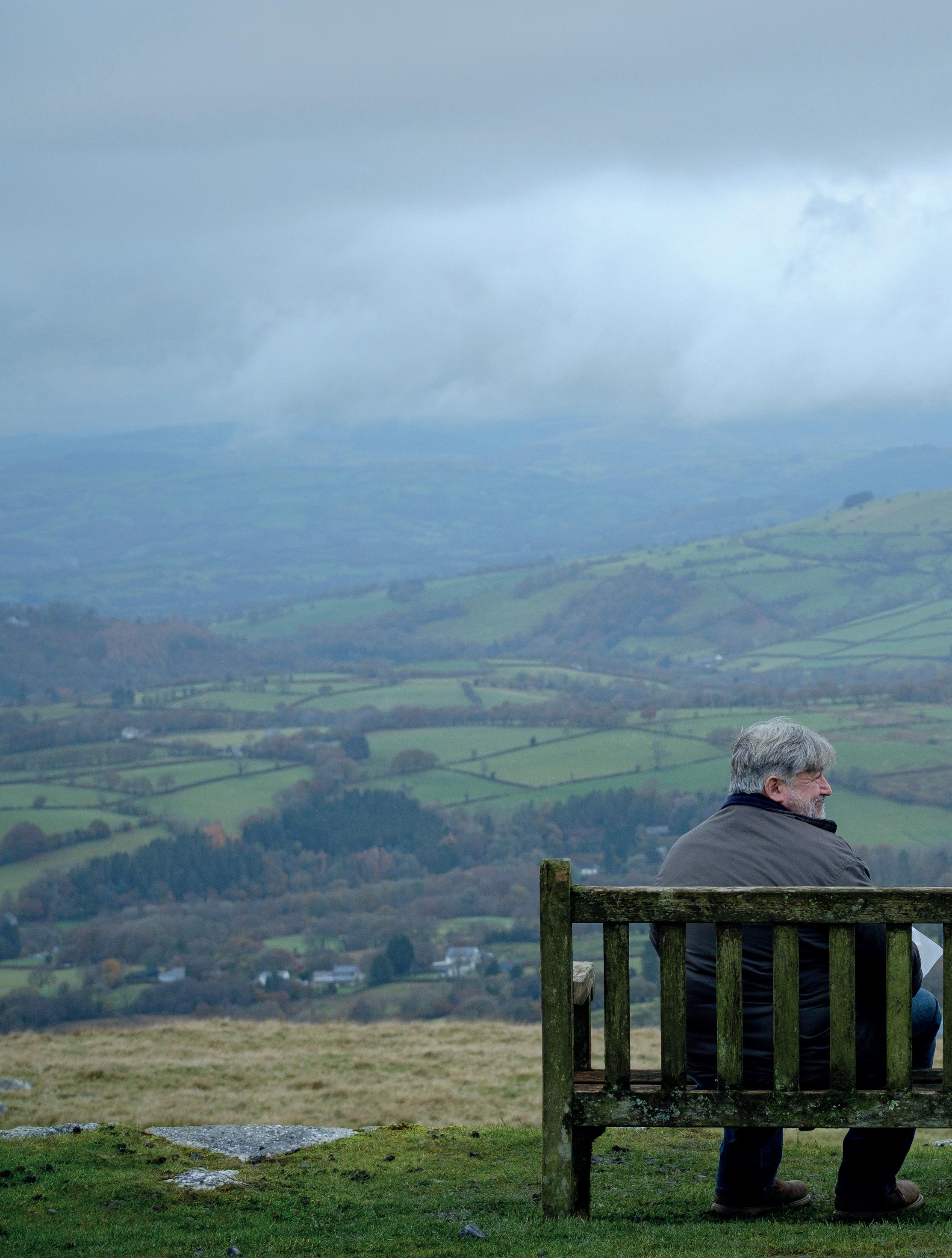
WE NEED TO TALK ABOUT: Welsh Drama DQ . Spring 2023 16 The Light in the Hall
Ed Thomas Ed Talfan Gethin Scourfield
the Hinterland
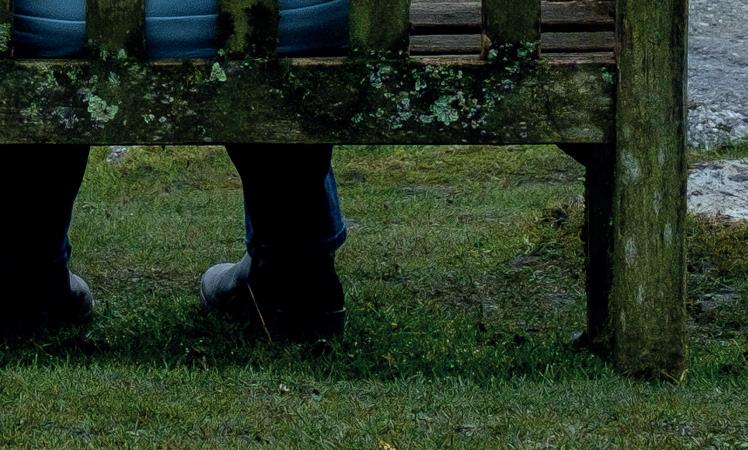

By the time Welsh-language drama
Y Gwyll (Hinterland) arrived on BBC Four in 2014, the channel was fast becoming known as a home for non-Englishlanguage drama in its prized Saturday night slot.

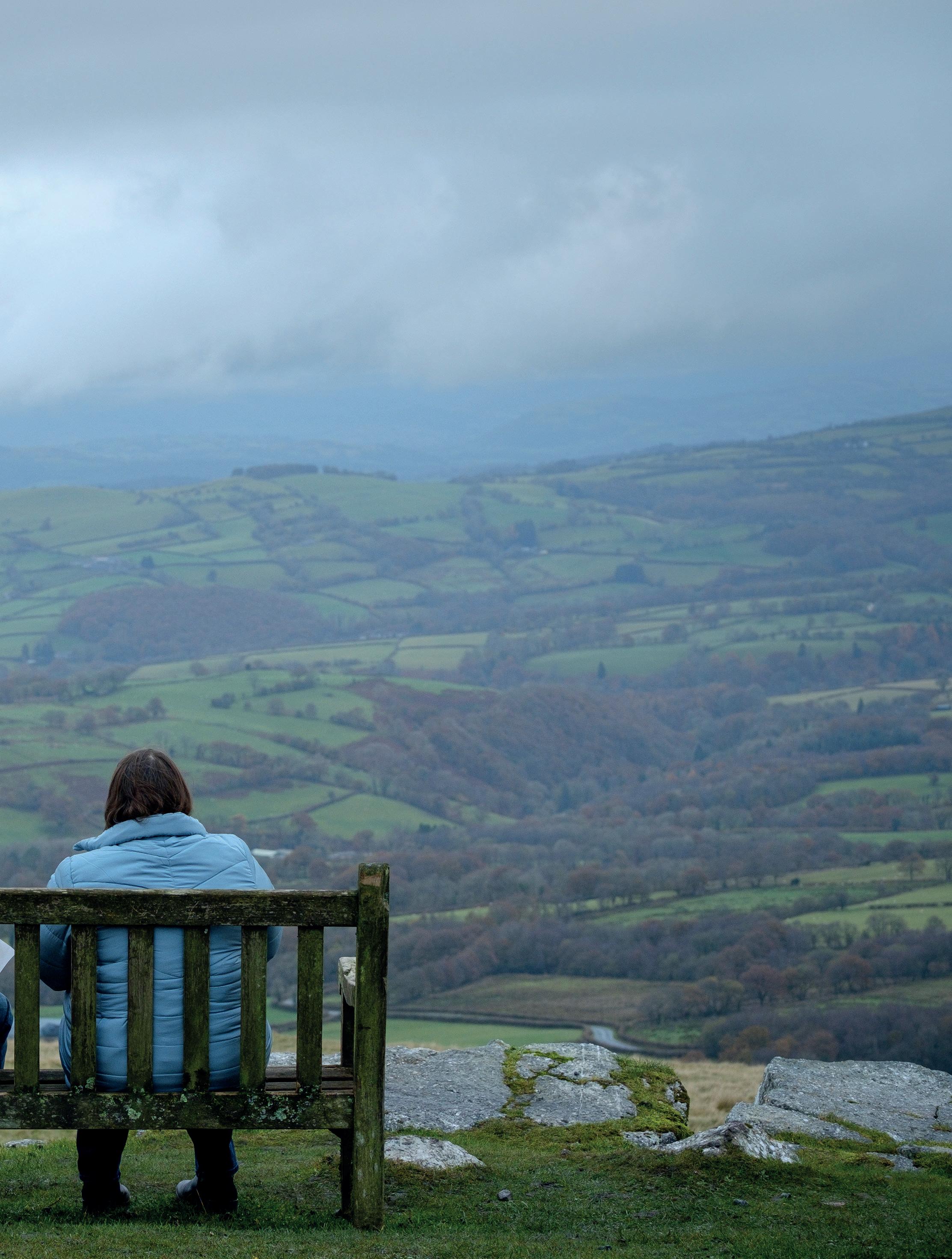
BBC Four’s reputation had been built on the back of acquisitions such as gritty French crime drama
Engrenages (Spiral) in 2006, which paved the way for Swedish detective series Wallander (leading to a Kenneth Branagh-led British remake) and seminal Danish crime drama Forbrydelsen (The Killing). Swedish/Danish crime drama Bron/Broen soon followed alongside the likes of Italy’s Inspector Montalbano
But Hinterland’s debut on the channel was part of a remarkable journey for a series that had first aired in October 2013 on Welshlanguage broadcaster S4C. A bilingual version was then picked up by BBC Wales in January 2014 and, buoyed by critical acclaim and strong viewing figures, it was promoted to UK-wide channel BBC Four that April.
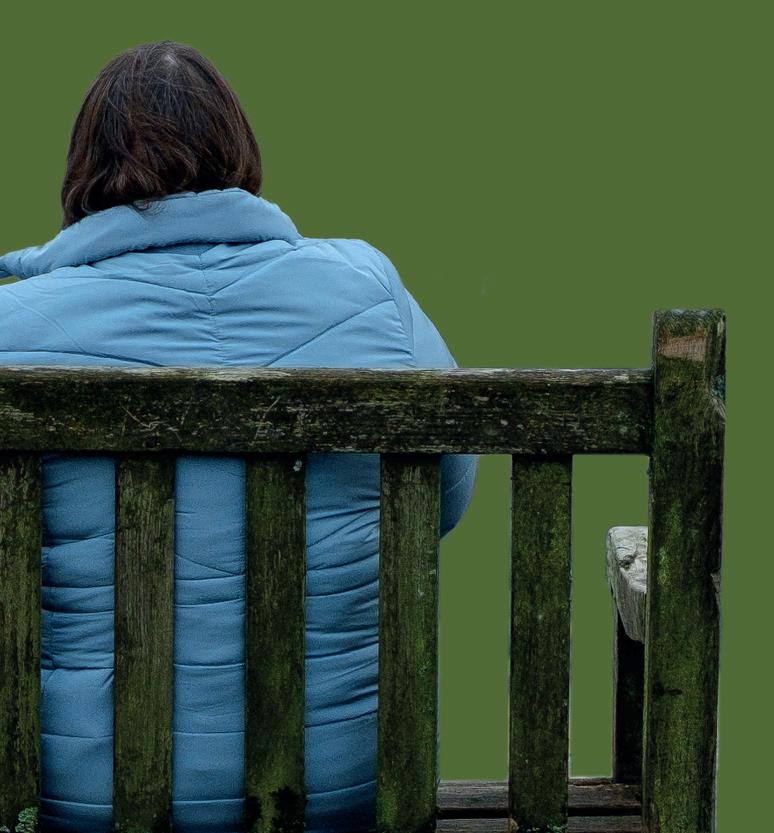
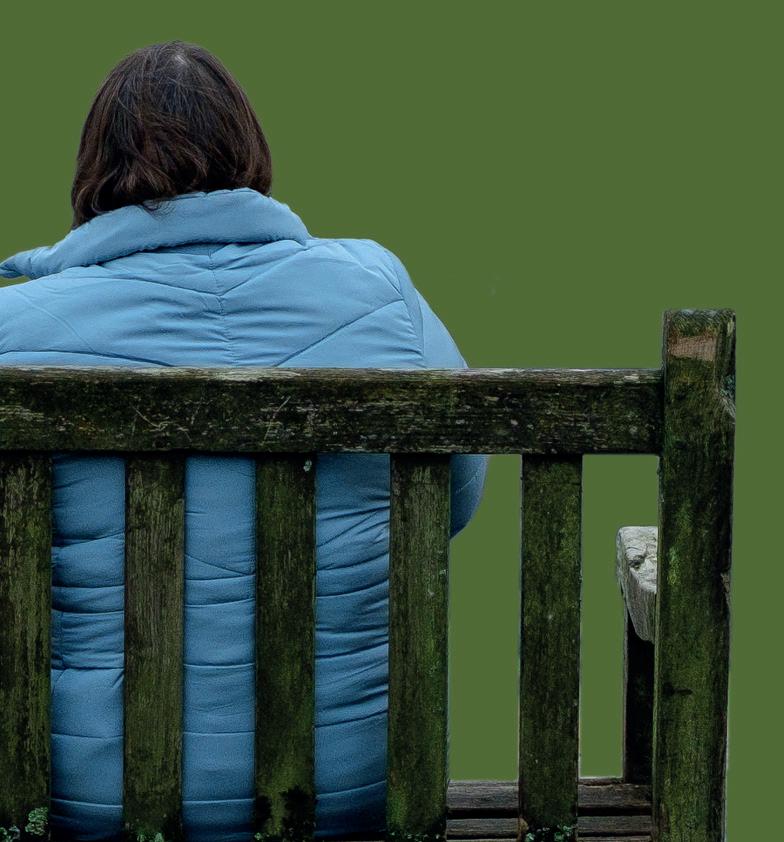


The series proved to be popular outside the UK too, with distributor All3Media International selling it to Netflix, ARD (Germany), KRO (the Netherlands), NRK (Norway), YLE (Finland), VRT (Belgium), RTV (Slovenia) and DR (Denmark).
Set in Aberystwyth, the police procedural followed DCI Thom Mathias (Richard Harrington), who leaves London for a new life, only to be immediately called to the scene of a brutal attack – but one without a victim. When the body of Helen Jenkins is eventually discovered, Mathias must unlock the secrets of a children’s home Helen ran for many years in order to find the murderer.
Hinterland ran for three seasons, but for three of the creative team behind the series –Ed Thomas, Ed Talfan and Gethin Scourfield – the story doesn’t end there. Each has built upon the success of that show by continuing to champion and produce Welsh-language and Welsh-made drama both locally and internationally.
Talfan, who co-created Hinterland with Thomas, wrote, directed and produced on the series while building his own production label, Severn Screen. He went on to make films such as The Passing and Apostle, before setting up another crime drama, Craith (Hidden). In the show, Siân Reese-
>

WE NEED TO TALK ABOUT: Welsh Drama DQ . Spring 2023 17
< Williams plays DCI Cadi John, a police officer who is drawn back to her childhood home but soon finds herself pulled into a sinister plot involving the abduction of several women when the body of one local woman is found in a remote mountain river.
While Hinterland and Hidden’s stories may be structurally different –in the latter, the villain is revealed at the start – both were filmed back-toback in Welsh and English. And just like Hinterland, Hidden also debuted on S4C, in 2018, before moving to BBC Wales and then BBC Four.
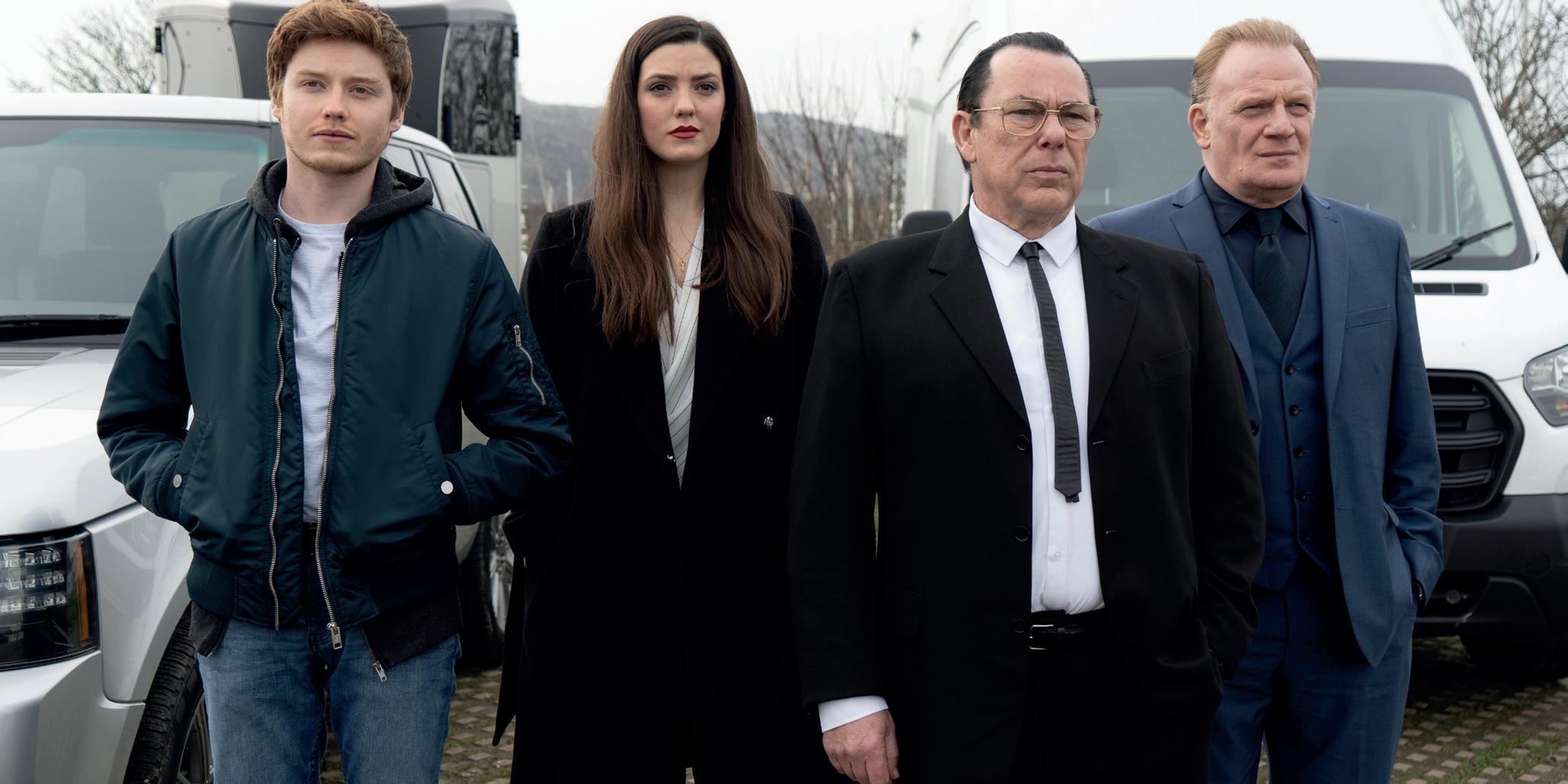


“Hidden was Severn Screen’s first crime drama piece and, from my point of view, it built on a lot of the learnings and the experiences of Hinterland,” Talfan tells DQ from his Cardiff office. “It was also an opportunity to do something very different because
Hinterland was much more a ‘story of the week’ – a slightly more Agatha Christie approach to every episode and discovering who’s the killer by the end.
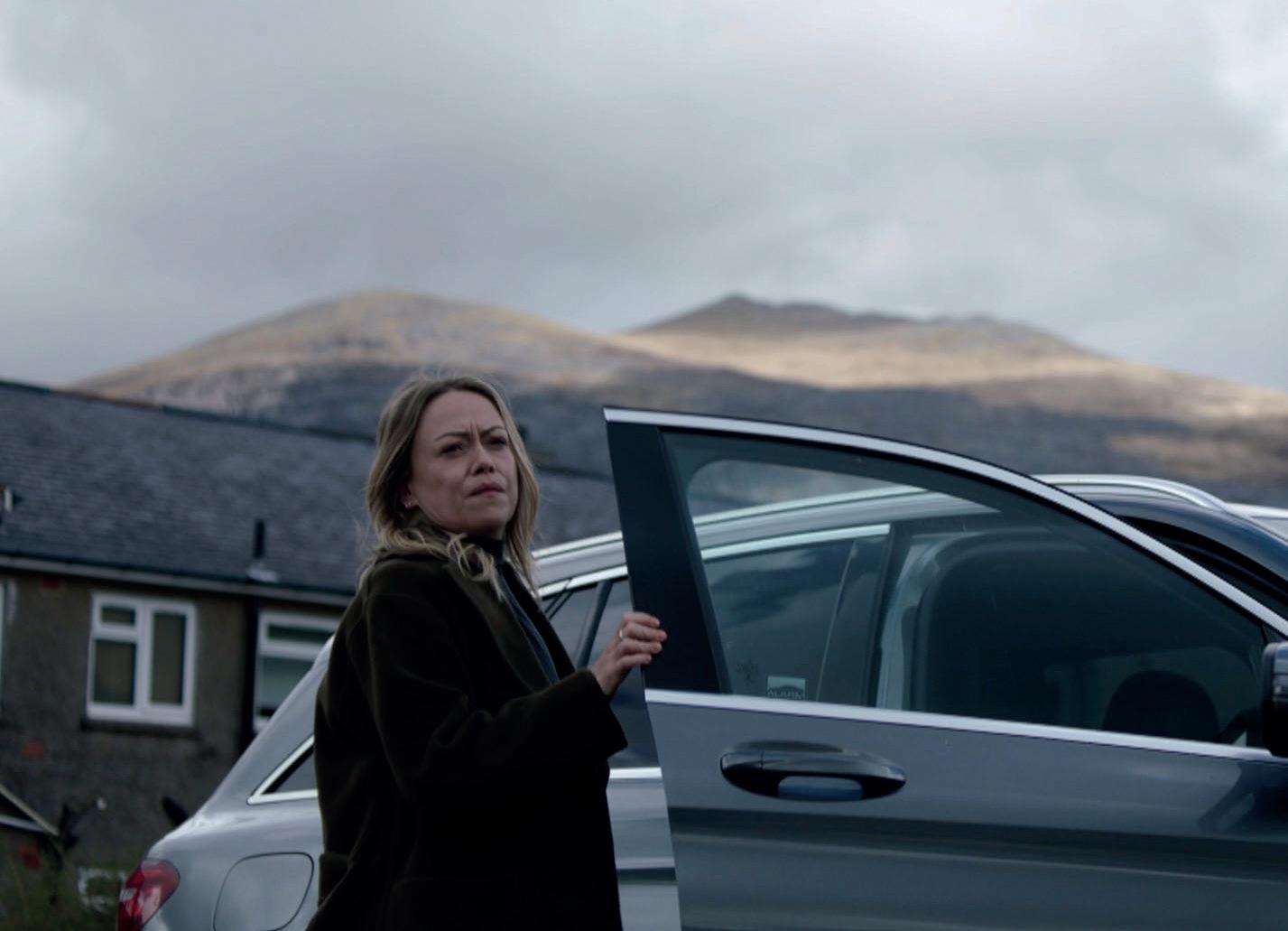
“Whereas Hidden allowed us to lift the lid on a story in a precinct over eight hours to really get into the sinewy depths of the story. It’s less of a whodunit and more of a whydunnit.”

Distributed by All3Media, Hidden went on to run for three seasons. And now, after coproducing ITV true crime series The Pembrokeshire Murders, Talfan and Severn are in the midst of post-production on BBC One and BBC Wales factual drama Steeltown Murders. Written by Ed Whitmore (Manhunt) and based on true events, the four-part Englishlanguage series is set in both 1973 and the early 2000s and follows the hunt to catch the killer of three young women in the Port Talbot area. In the first case of its kind, the mystery was eventually solved almost 30 years later using pioneering DNA evidence. All3Media is again distributing.
“We’ve got more projects in development on the crime side and more projects in development that aren’t crime, because we don’t want to end up being a crime company,” Talfan says. “But crime has been good to us in the sense that a lot of this started with Hinterland for us and it’s continued to feed that journey, which has been great.”
Hinterland, he says, gave the team behind the series – and the wider Wales production community – a lot of confidence that a Welsh-language series could find an audience outside of its borders. “It was born out of wanting to see our own culture on screen, so there was a degree of
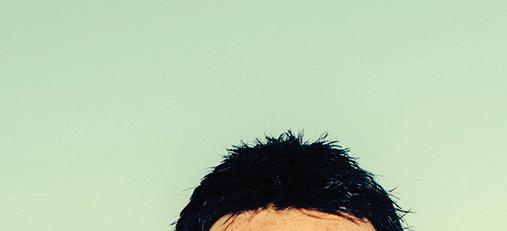
WE NEED TO TALK ABOUT: Welsh Drama DQ . Spring 2023 18
The show that started it all: Thomas, Talfan and Scourfield all worked on Hinterland
Dal y Mellt (Rough Cut), the first solely Welsh-language drama licensed by Netflix
Like Hinterland, Hidden started on S4C and ended up on BBC Four
creative pragmatism in terms of turning to the crime genre because that is a genre that sells and people around the world gravitate towards it,” he says. “To do that in Wales was a lot of fun. All the work – ours and others’ – has then grown from that and people are trying different things.
“We’re not making season eight of Hinterland. We’re doing new cycles of work and trying different things. There are senior people on the crew of Steeltown Murders who started with us as runners on Hinterland, so there’s a nice little conveyer belt for all of us moving along and hopefully up.”
Talfan says making Hinterland was fun but stressful. “Production always is,” he notes, though he enjoyed “being in the trenches” with Thomas during the show’s run.
For Thomas, creative director of Hinterland producer Fiction Factory, it wasn’t the first Welsh-language series he had tried to land on BBC Four. He had previously pitched Pen Talar, a state-of-the-nation piece comparable to Germany’s Heimat series. First airing on S4C in 2010, Pen Talar told the stories of two young boys over a 50-year-period.
Though the BBC complimented the series, they left it on the shelf. Then “in a fit of pique,” Thomas tried to imagine a series that could be exported beyond Wales. He already had experience of shooting back-to-back in different languages after working on 1994’s A Mind to
Kill, which starred Philip Madoc as an old-school detective coming to terms with modern policing methods. The idea for Hinterland then emerged from a desire to blend a fresh, rural setting with a grief-stricken outsider in the shape of Harrington’s Mathias, while avoiding any contemporary references, such as shop fronts, that could date the series.
By building a coproduction between S4C and BBC Wales, with
impossible.” Consequently, he describes his latest effort, Pren Ar Y Bryn (Tree on a Hill) as a “happy accident.” The show is again being filmed back-to-back in Welsh and English, marking Thomas’s first such project since Hinterland
An absurdist crime drama commissioned by S4C and the BBC, it is set in the rural Welsh town of Penwyllt, where Clive and Margaret live an unassuming life – until tragedy
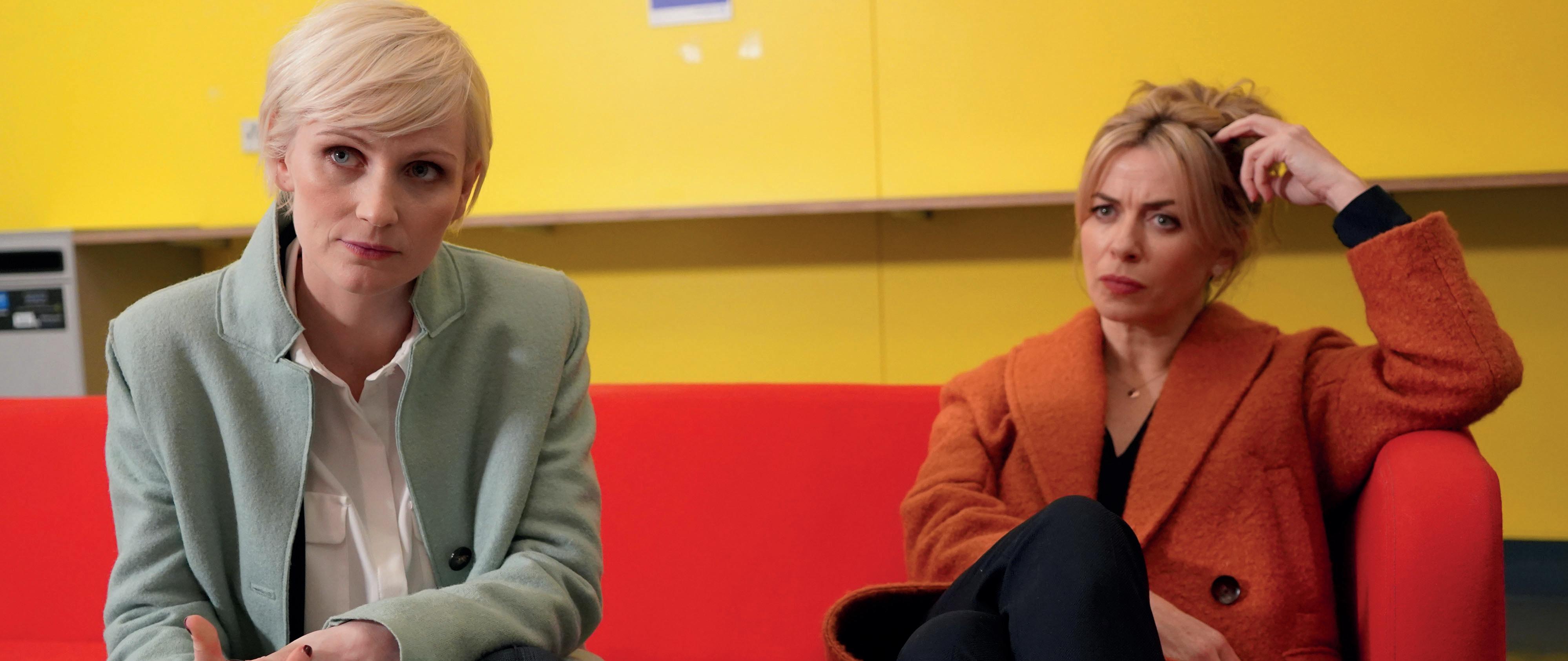
driven,” says Thomas, who has leaned into his theatre background to find the show’s “naughtiness, cheek and warmth.”
“There is a death at the end of the first part, but it’s an accidental one,” he continues. “Then you spin around and realise how that little town deals with change. Hopefully it’s authentic, but the absurdist thing means I feel comfortable, because my roots are in the theatre. We just wanted to originate it from this sense of place and character and change, and how this town and these antiheroes, these very ordinary people, deal with that.”
Ed Talfan Severn Screen
support from All3Media International, Thomas got funding for Hinterland over the line, before it was then sold to BBC Four.
“Nothing much has changed in terms of getting proper finance for the Welsh-language versions, despite the success of minority languages,” he says. “Every time we’ve tried to do an indigenous Welsh-language thing to get a level of funding, it’s
strikes in the most unexpected way. On the wrong side of middle age and now on the wrong side of the law, this one act sets off a chain of disasters and curious events. Filming began in February and will continue until June, with All3Media distributing.
“There’s a crime at the end of episode one but it’s very much about a town on the cusp of change. That’s the real story, and it’s character-
Scourfield, meanwhile, was the producer of the first two seasons of Hinterland. He went on to produce BBC drama The Miniaturist before stepping into the role of commissioning editor for drama at S4C from 2017 to 2018, where he was an executive producer on Keeping Faith, Bang and Hidden Debuting in 2017, Keeping Faith proved to be a record-breaker on BBC iPlayer when it recorded 9.5 million requests, while 300,000 people watched weekly on BBC Wales before the Vox Pictures series transferred to BBC One –the first time an S4C/BBC Wales co-commission had landed on the flagship channel. The show, which ran for three seasons and is distributed by APC, stars Eve Myles as lawyer, wife and mother Faith, who fights to find the truth behind
WE NEED TO TALK ABOUT: Welsh Drama DQ . Spring 2023 19 >
”
There are senior people on the crew of Steeltown Murders who started with us as runners on Hinterland, so there’s a nice little conveyer belt for all of us moving along and hopefully up.
“
Scourfield exec produced Keeping Faith, which was a hit for the BBC
the sudden disappearance of her husband.
Meanwhile, Joio and Artists Studio production Bang follows loner Sam (Jacob Ifans), whose life is transformed when he comes into possession of a gun and starts to break the law. His ambitious police officer sister Gina (Catrin Stewart), however, is on a mission to find the owner of the weapon after a shooting.
In July 2018, Scourfield then joined producer Triongl, which had been set up by Nora Ostler Spiteri and Alec Spiteri. The company produced 2021 psychological thriller Y Golau (The Light in the Hall), which, like Bang, was shot in English and Welsh. It follows three characters connected by the murder of a teenage girl in a small Welsh town 18 years earlier: the man arrested for her murder, her best friend and her mother.
Triongl coproduced the series with Duchess Street Productions and APC Studios for S4C, Channel 4 and US streamer Sundance Now, while APC sold the six-parter to networks including BritBox in Scandinavia, France’s Polar+, AMC in Spain and Portugal and RTS in Switzerland.
When it comes to the interest in Welsh drama, “Hinterland definitely helped,” Scourfield says, while acknowledging the role back-toback production has had in boosting
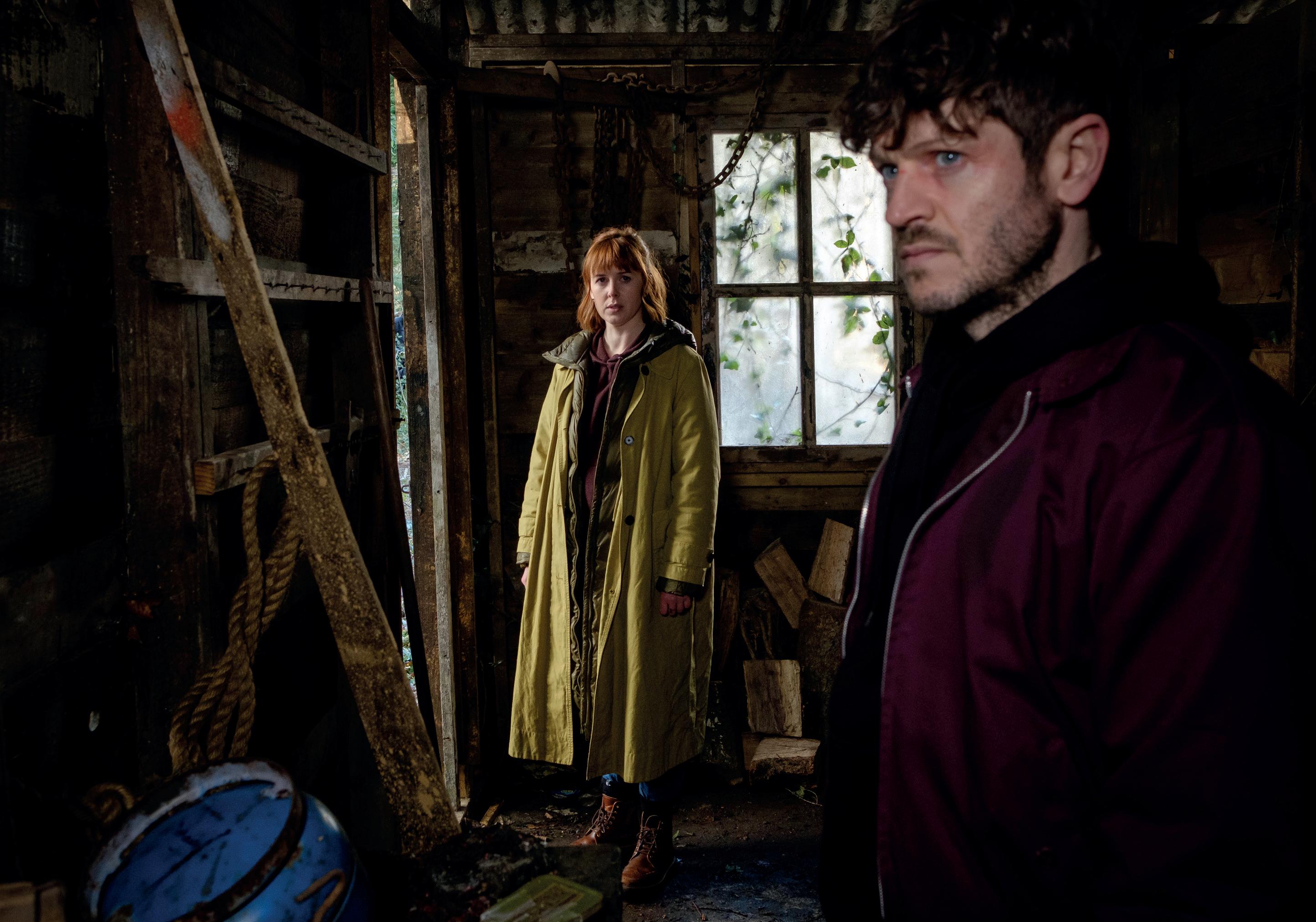
international interest. That process, he says, is becoming “more and more established, and it gives us a foot in the door. The fact S4C are willing to put their hands in their pocket to develop something, it’s then easier for other broadcasters to come on board so it gives us a chance to get to the table.”
“That’s invaluable for us,” says Ostler Spiteri. “We were the first back-to-back production to meet the high-end TV tax break threshold, for The Light in the Hall, and that shows the confidence generally in that finance plan, because that wouldn’t have happened three years ago. I just feel like there’s more confidence in that model now and there’s more belief that it will work.”
The option of an English version with shows produced in two languages means Welsh still isn’t travelling as far as Scourfield would like, but there’s hope yet. This year, Dal y Mellt (Rough Cut) will be the first solely Welsh-language drama licensed by Netflix, following its launch last year on S4C and BBC iPlayer, thanks to a deal with Abacus Rights Media.
Produced by Vox Pictures, it follows the troubled story of main character Carbo, who is drawn into a world of wrongdoing, lies, secrets and heartbreak. The series starts out on the dark backstreets of Cardiff then moves back and forth between Cardiff, Soho, Porthmadog and Holyhead. “That’s all good for the industry in Wales and confidence in the industry,” Scourfield says.
Triongl is now developing its latest series, Pigeon, which recently won the C21 International Drama Series Pitch competition. Set in the 1990s and based on the book by Aly Conran, it follows two children, Iola and Pijin, who make up stories to deflect from their troubled lives. But when they start believing their
fantasies, they come into possession of a gun – and a dead body.
“It’s all a little bit heightened, but even though it’s a fantasy in their head, it’s happening in the real world. The things they’re doing are really happening,” Ostler Spiteri says of the project, which is being written by Angharad Elen. “The lines get blurred between their fantasy and the real world, and they get lost in the blurring of the worlds.
“In terms of production, we imagine it as a hybrid back-to-back, so there’s going to be a bilingual version for S4C that has more Welsh and a bilingual version that has more English. That’s the plan.”
Scourfield, Thomas and Talfan might all be developing or producing new series, but Hinterland is still the calling card they all have in common. “I still get asked about it all the time, and I find it vaguely bonkers,” Talfan says. “You get emails from strange places in the world, places that All3Media have clearly sold it to, asking you about it, and you just think, ‘This is so weird,’ because it was so at odds with what we’d done before – local programming that tended to not really make it out of Wales. We were used to getting feedback from friends, maybe not so much further afield.”
Talfan is also quick to recognise the shows that have continued to fly the flag for Wales, and the impact of the BBC’s decision to make Doctor Who in Cardiff when the iconic sci-fi series was relaunched in 2005.
“Keeping Faith was a great success, Hidden was a success, and it’s given more visibility to homegrown stories,” he adds. “There was a quick commercial dividend because of the BBC’s decision to relaunch Doctor Who in Wales. Now the cultural dividend is being realised, and I’d like to think we’re part of that.”
WE NEED TO TALK ABOUT: Welsh Drama DQ . Spring 2023 20 DQ
< “
”
Nothing much has changed in terms of getting proper finance for the Welsh-language versions, despite the success of minority languages. Every time we’ve tried to do an indigenous Welsh-language thing to get a level of funding, it’s impossible.
Ed
Thomas, Fiction Factory
Alexandra Roach and Iwan Rheon star in The Light in the Hall



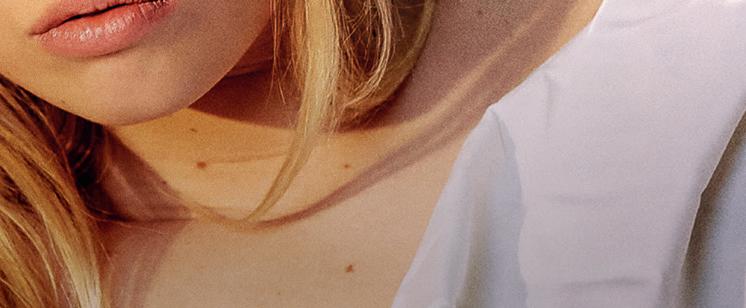
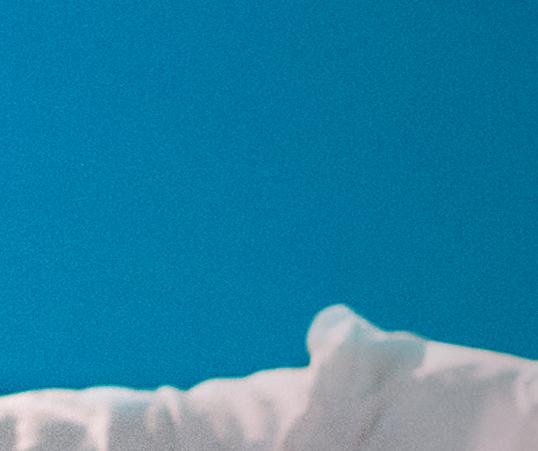

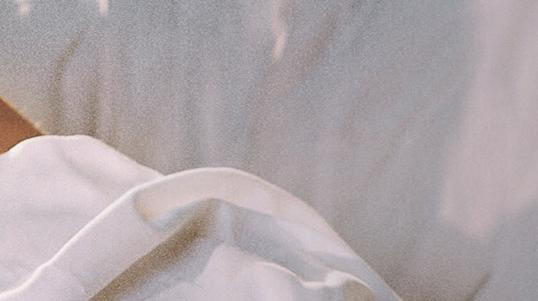
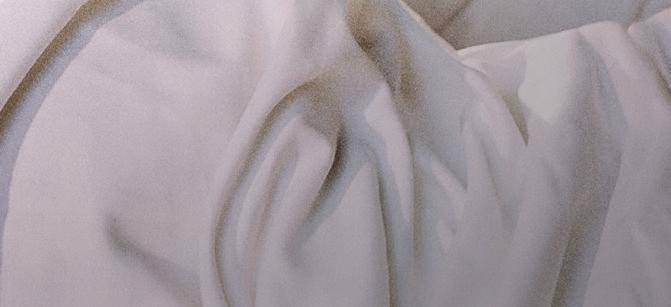








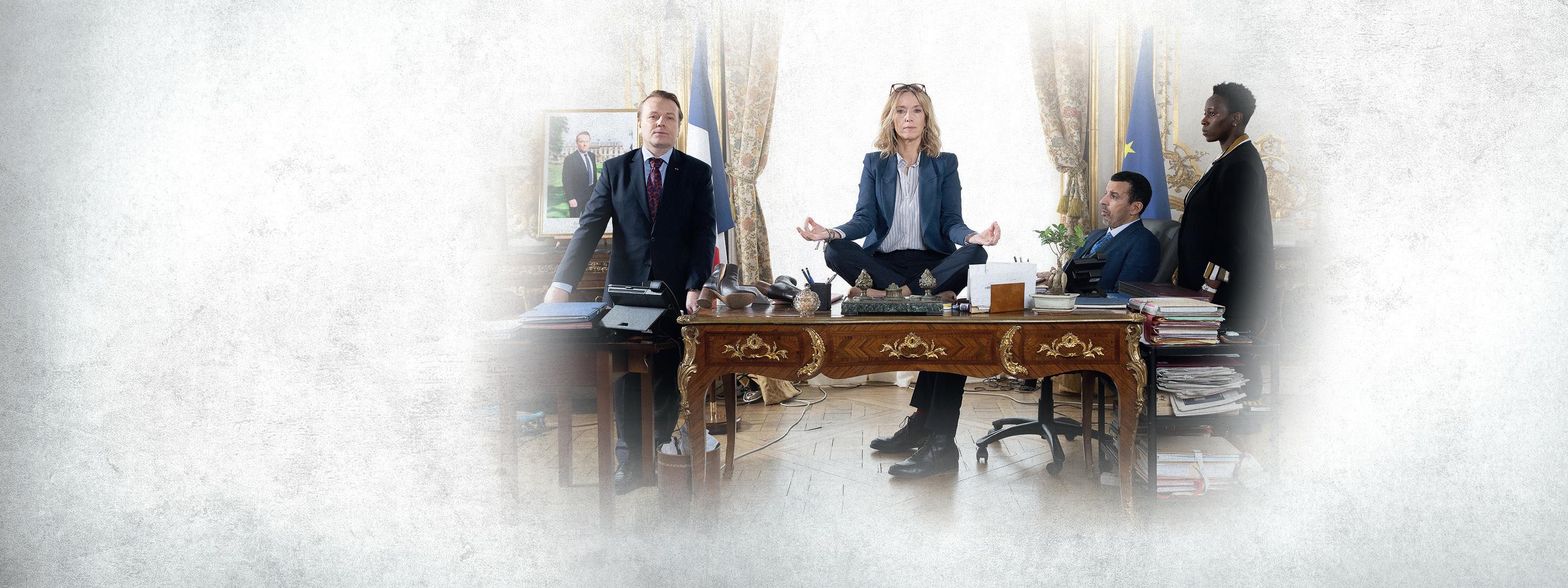
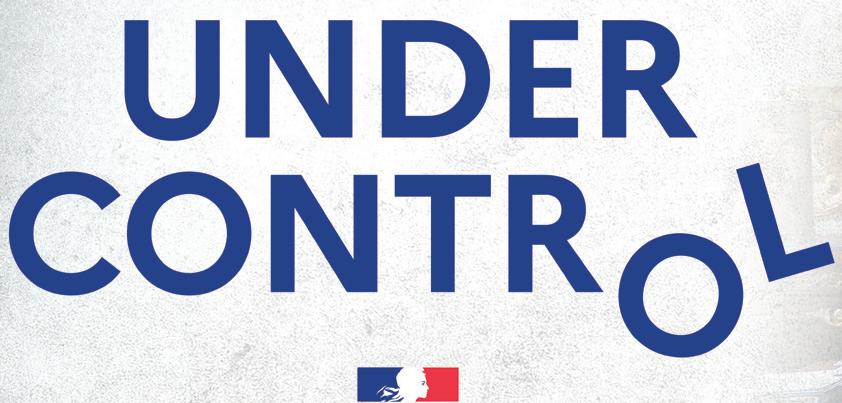
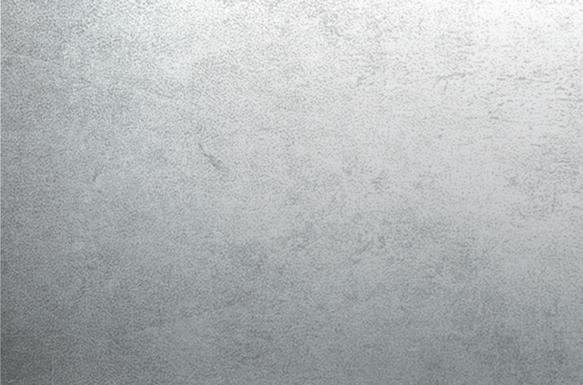
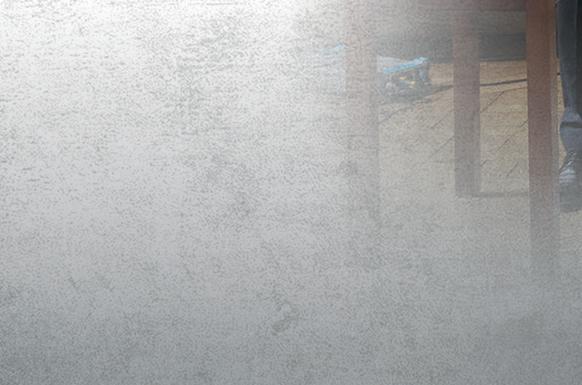
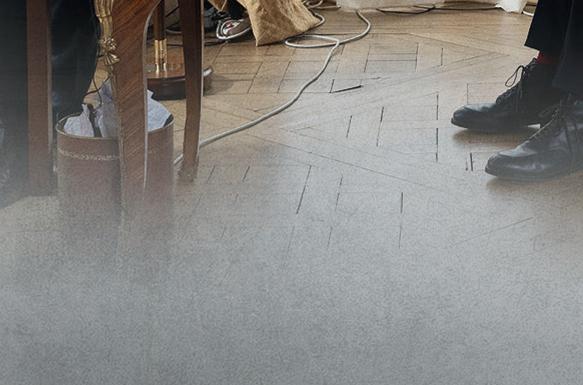
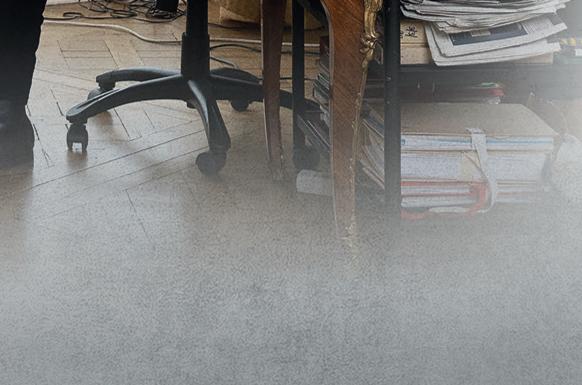
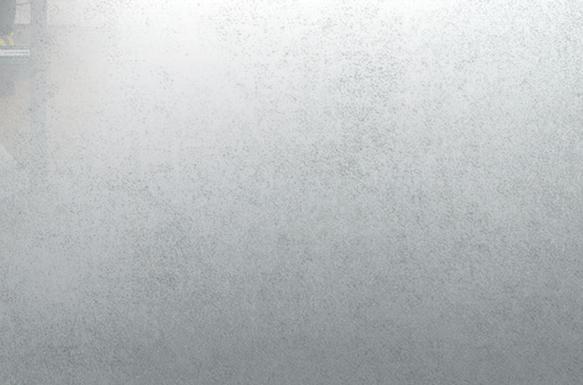
















Freedom at all costs CREATED AND DIRECTED BY DANIÈLE THOMPSON & CHRISTOPHER THOMPSON JULIA DE NUNEZ VICTOR BELMONDO GÉRALDINE PAILHAS HIPPOLYTE GIRARDOT YVAN ATTAL ANNE LE NY OSCAR LESAGE NOHAM EDJE JULES BENCHETRIT © Sylvie Castioni Federation Studios 6x52’ SOUS CONTRÔLE e L eL e other ther rtwork work w A ot © Olo ©O ropproppopp p o © Phot Pho Jean-C ean-C C ude de lau la 6x30’ LES RANDONNEUSES 6x52’
Al l Change





Award-winning film director Dalei Zhang meets DQ to discuss his small-screen series Why Try to Change Me Now, a six-part Chinese project that blends a sweeping intergenerational drama with a crime story and luscious visuals.
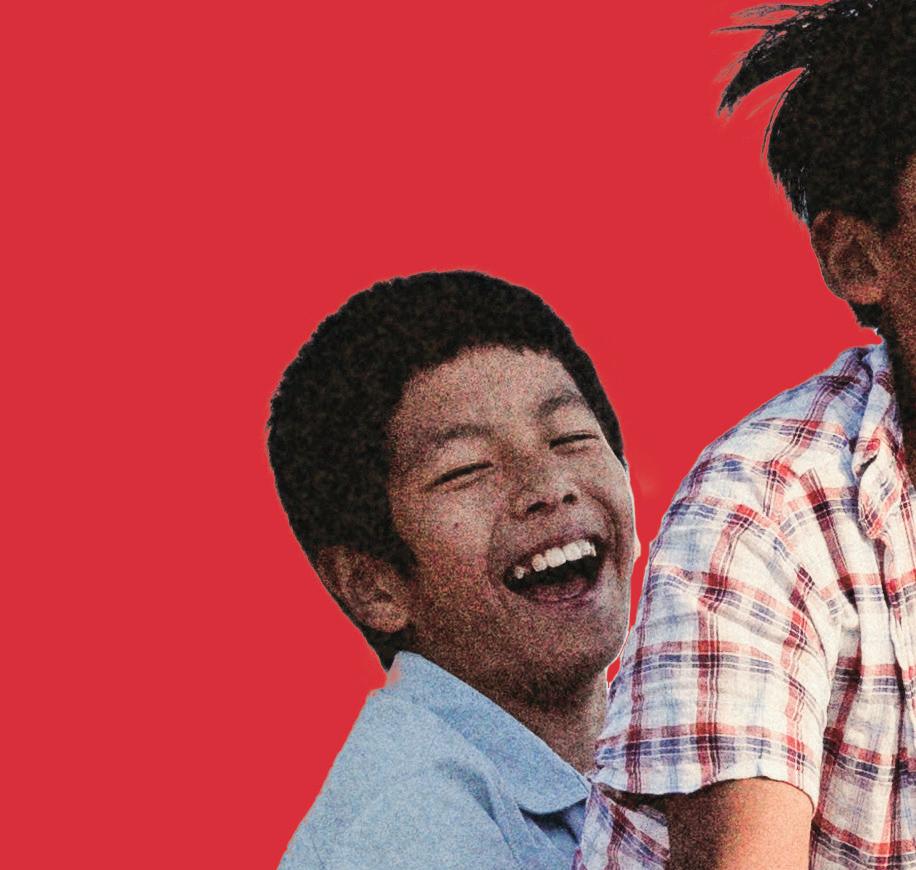

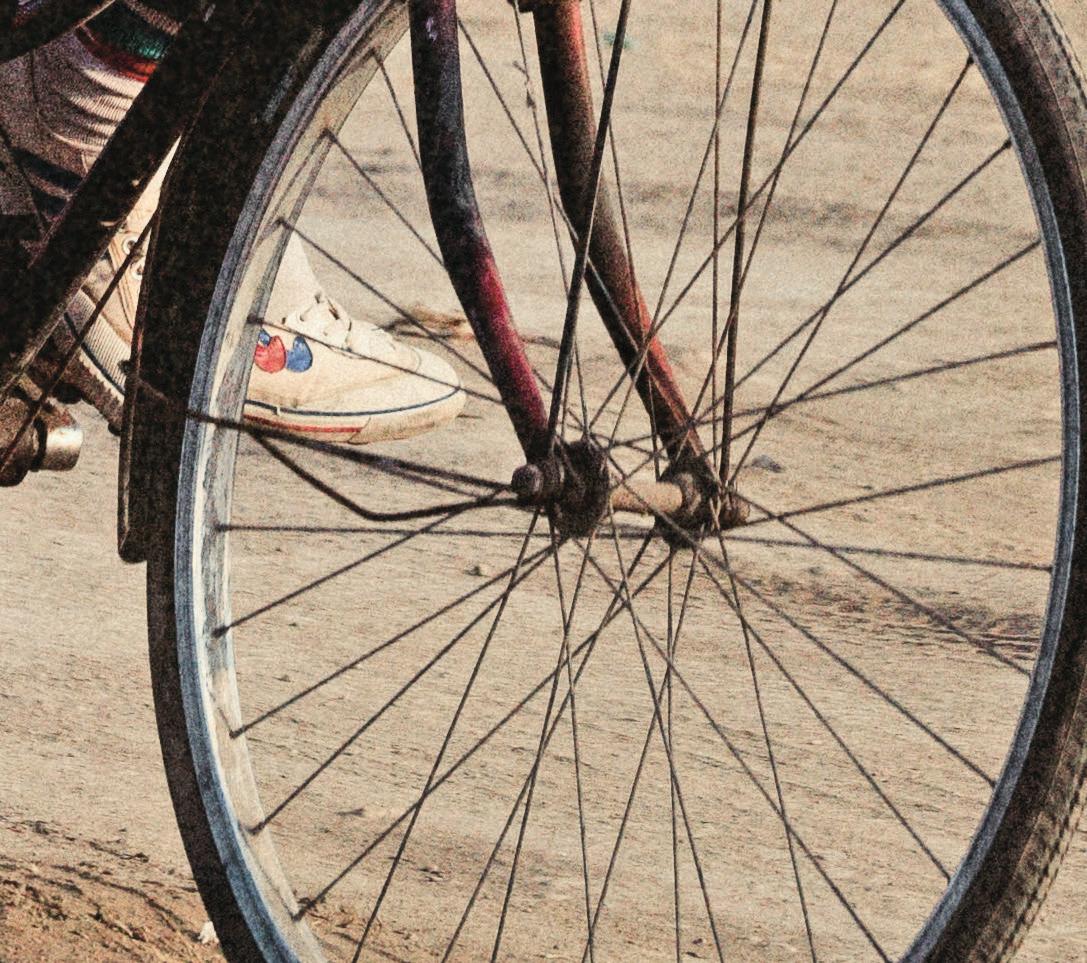
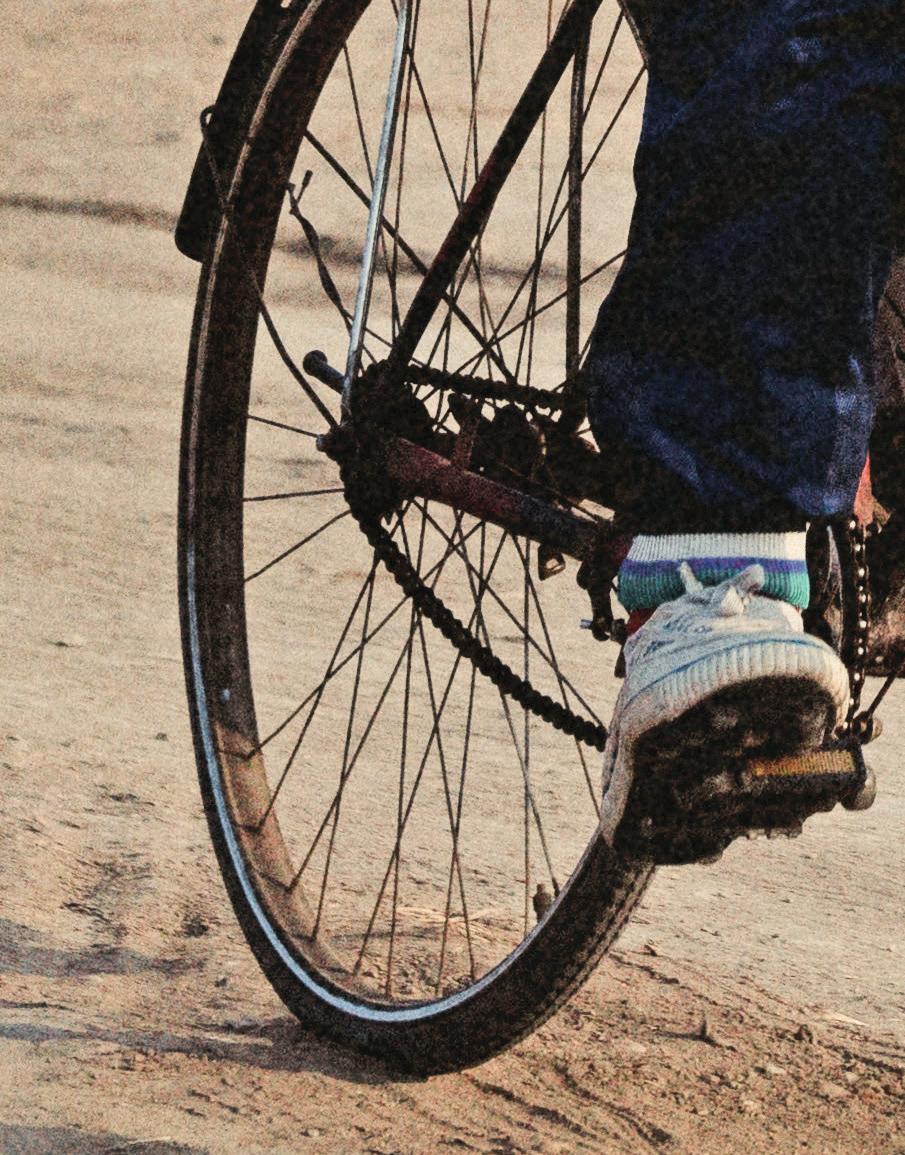
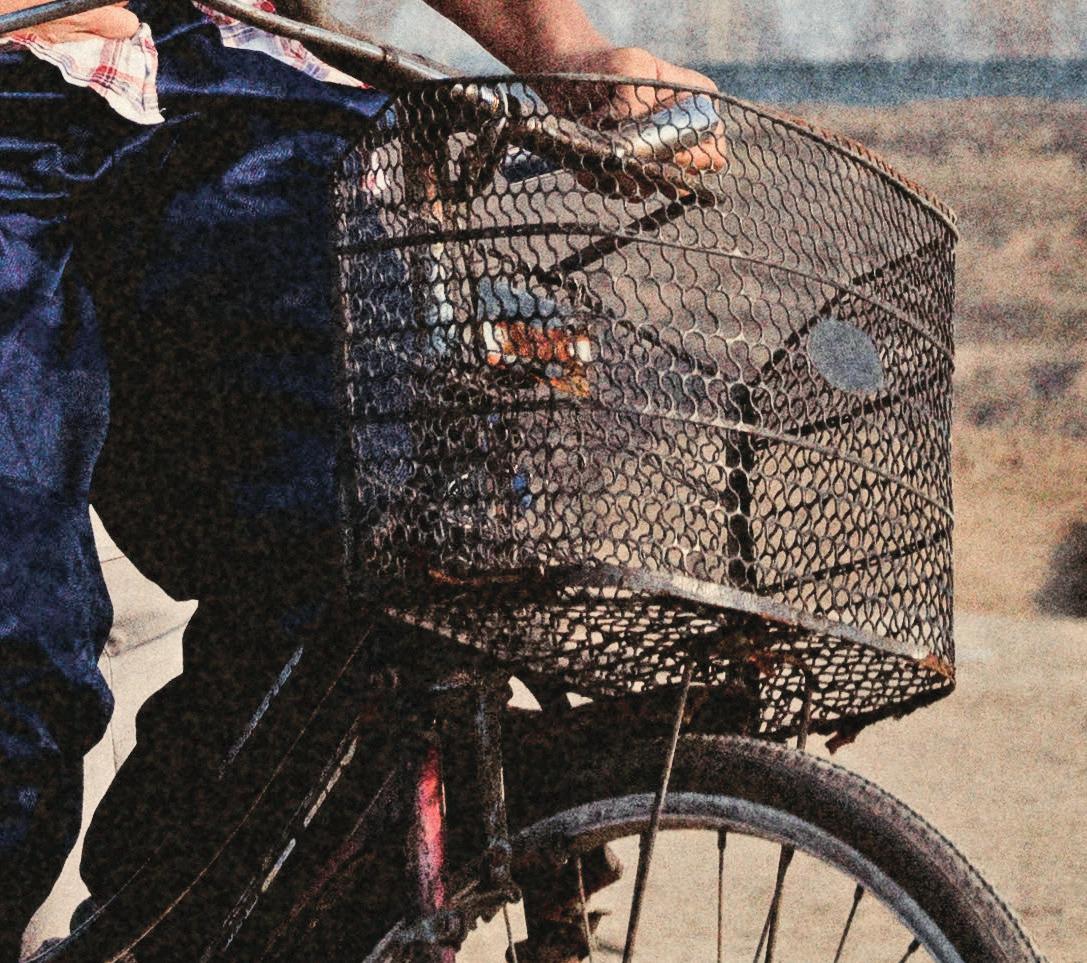
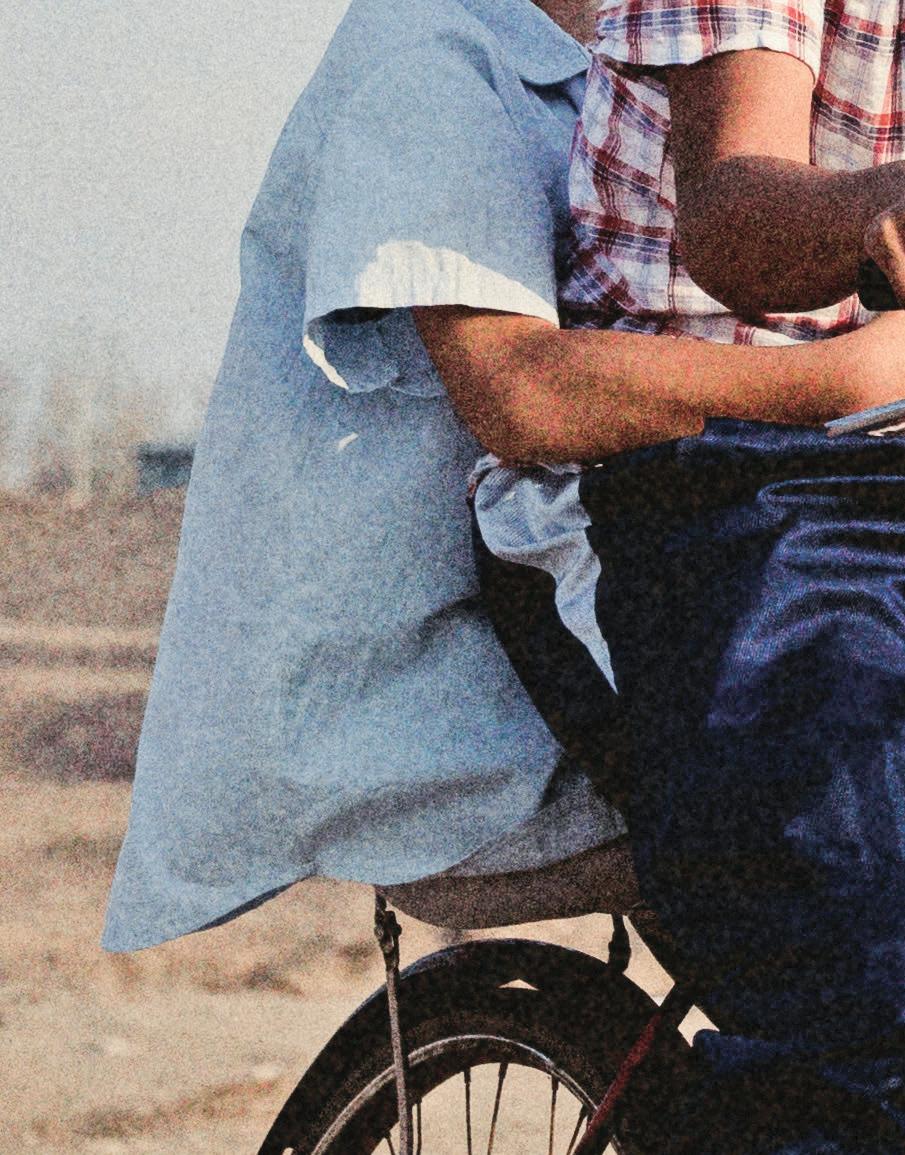
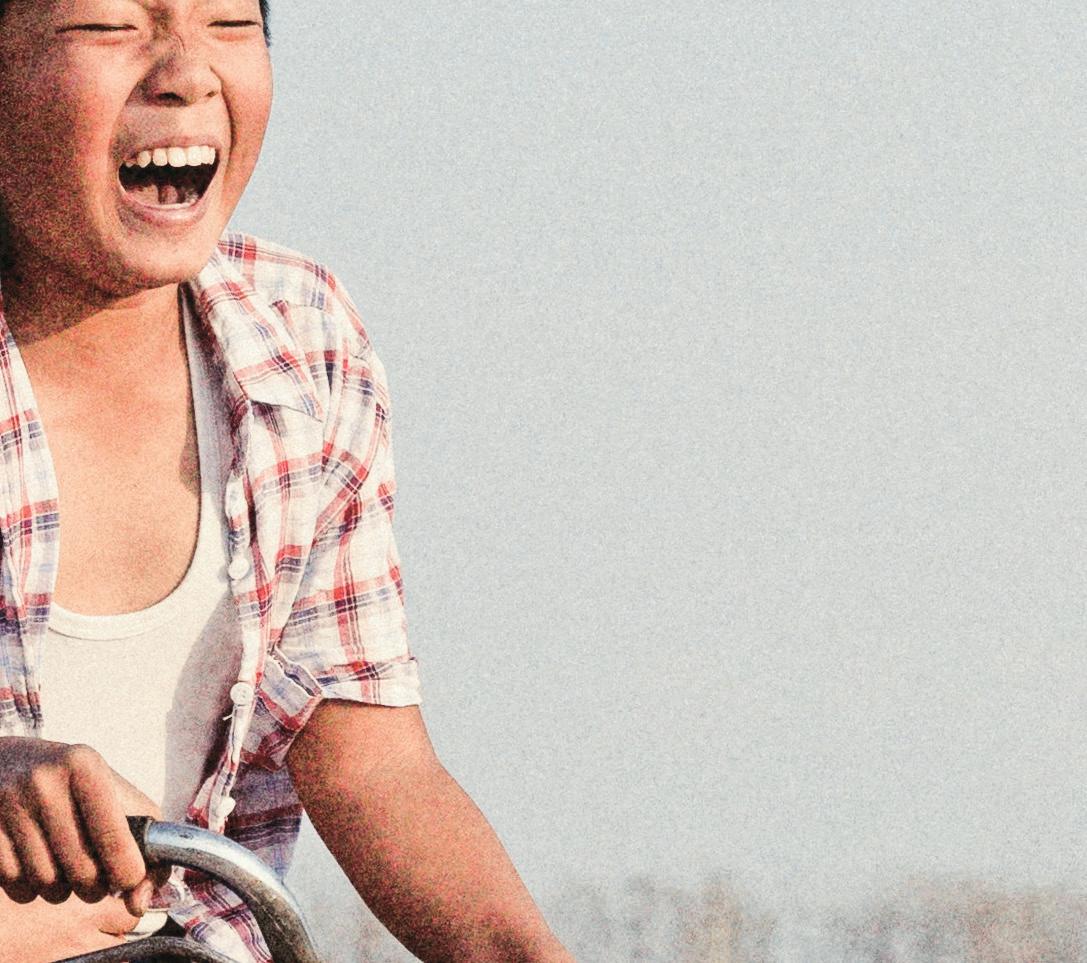
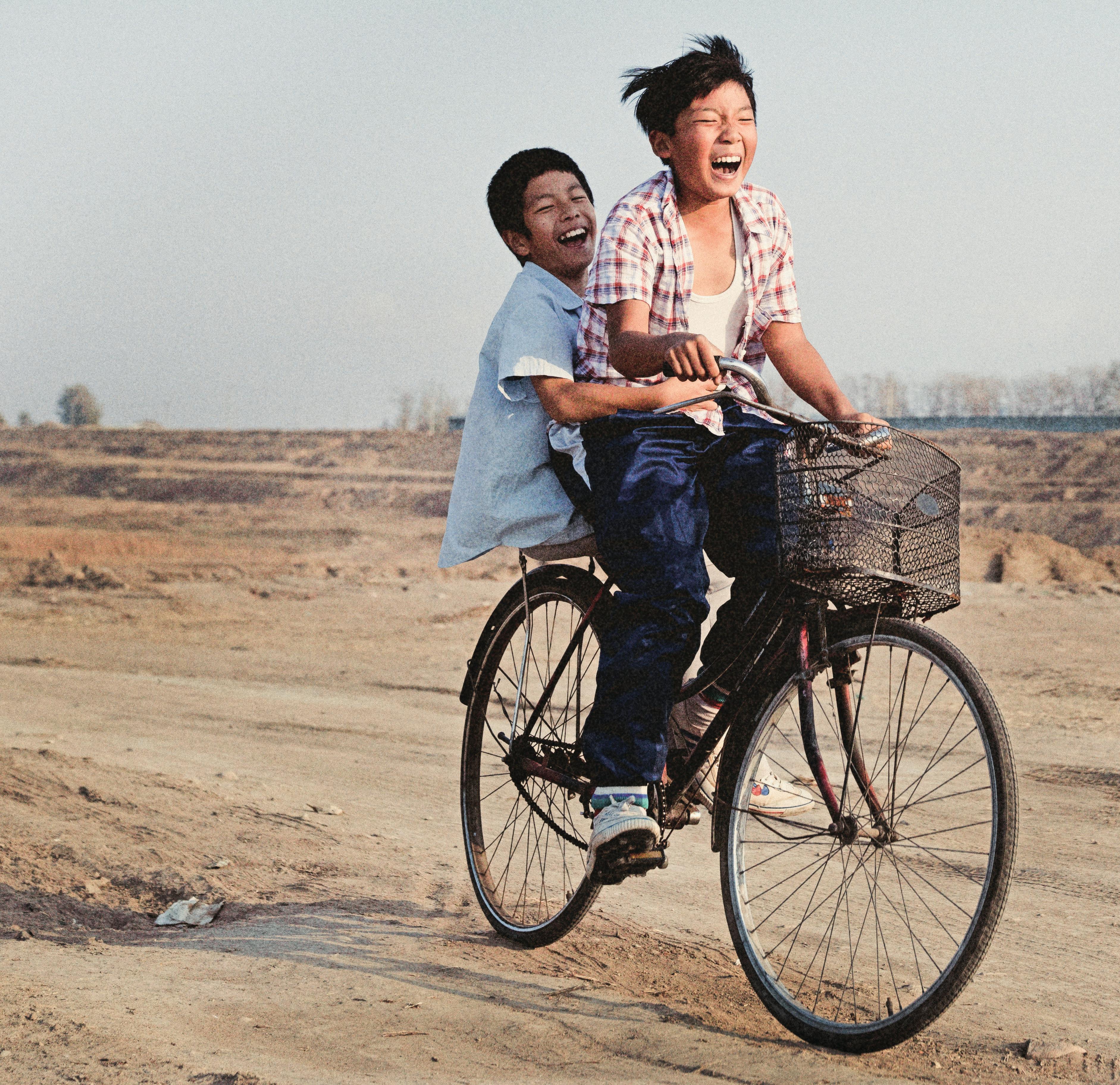
DQ . Spring 2023 22
DIRECTOR’S CHAIR: Dalei Zhang
in China B


erlin is a special place for Chinese director Dalei Zhang, who won the Berlin International Film Festival’s Silver Bear award in 2021 for his short film Xia Wu Guo Qu Le Yo Ban . But he only visited the German capital for the first time this year when he returned to Berlinale to present his latest project, six-part television drama Why Try to Change Me Now
Based on Xuetao Shuang’s novel Moses on the Plain, the beautifully composed series is set in an industrial city in north-eastern China in the 1980s and 90s. When the cold case of a taxi driver’s murder resurfaces, Shu Zhuang (Zijian Dong) is the rebellious youth-turned-policeman left in charge of the investigation. He soon learns that the evidence points towards his neighbours, a father and daughter of whom he has fond childhood memories. Then when Shu
discovers a key piece of evidence – a cigarette butt – he realises that he might also have been involved.
The cast also includes Qing Hai as Shu’s mother Dongzin Fu, Tian Qiu as Fei Li, Baoshi Dong as Shu’s father Dezeng Zhuang and Chen Zhang as Xiaodong Zhao, with Haosen Zheng and Ziameng Zhang as the younger Shu and Fei, respectively.
As well as directing, Zhang writes the series – which is produced by Chinese streamer iQiyi – alongside Tao Guo, Rui Xiao, Rongrong Hu, Anyang Zhang and Bo Pang.
Speaking to DQ after the series had its international premiere during Berlinale Series, Zhang discusses the adaptation process behind the project, building the crossgenerational cast and why he chose to employ an often fixed, static directing style.
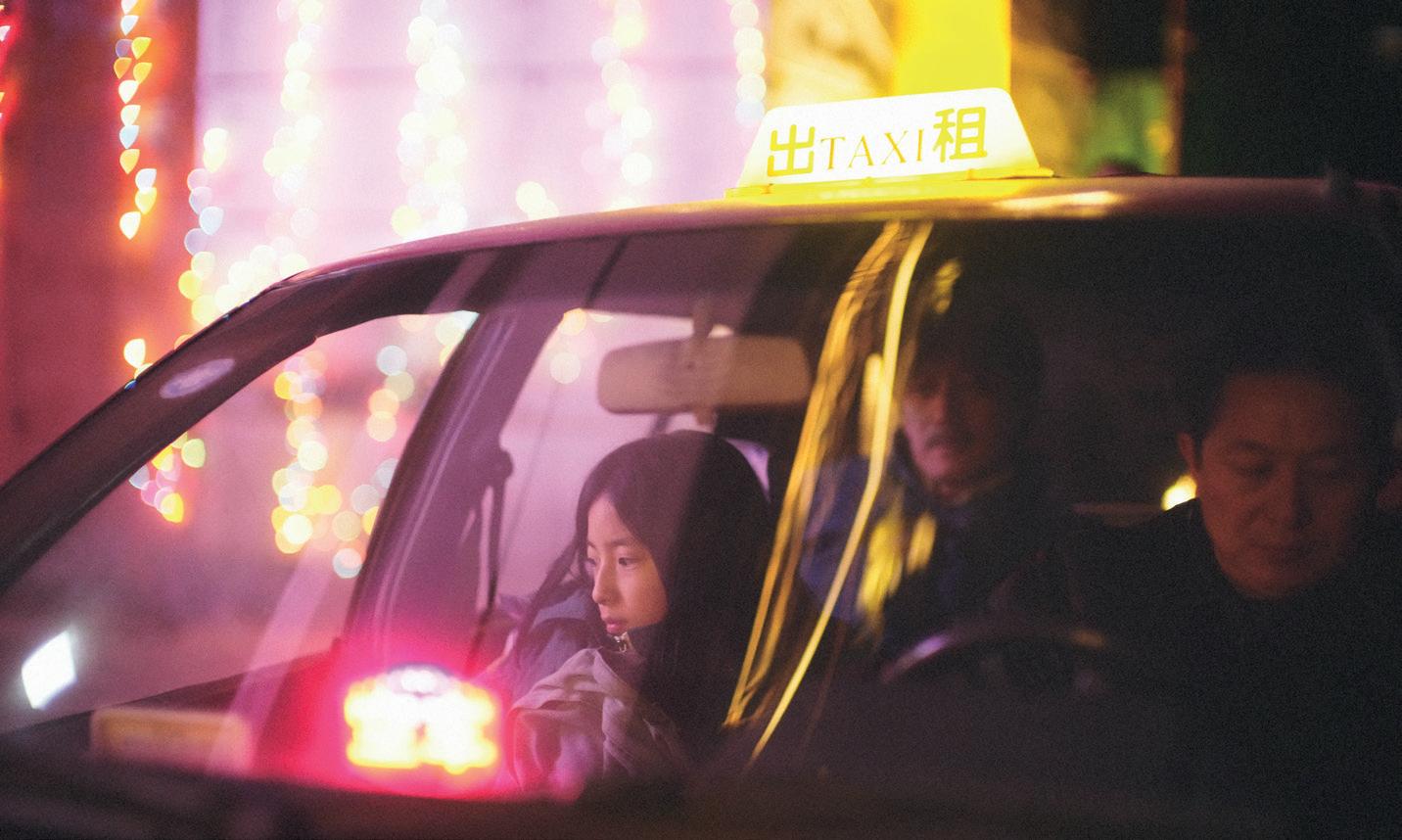
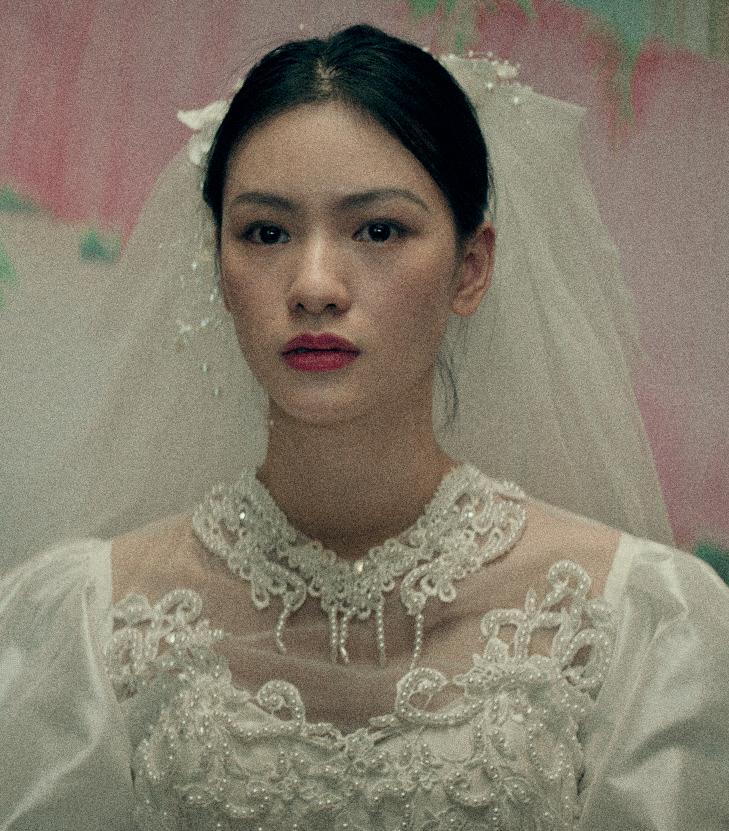

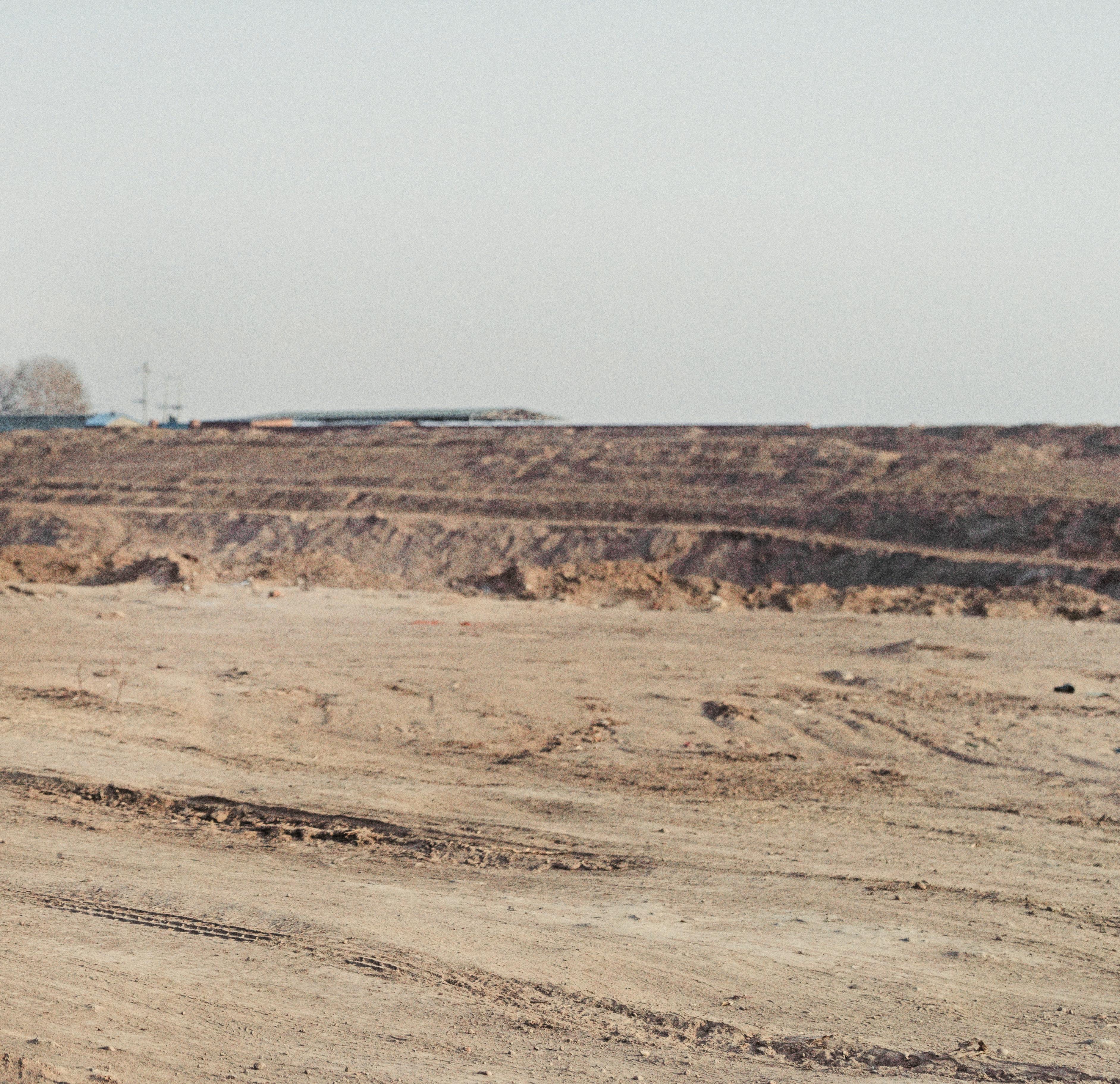
DQ . Spring 2023 23
DIRECTOR’S CHAIR: Dalei Zhang
>
< As a filmmaker, do you consider film and TV to be very different mediums?
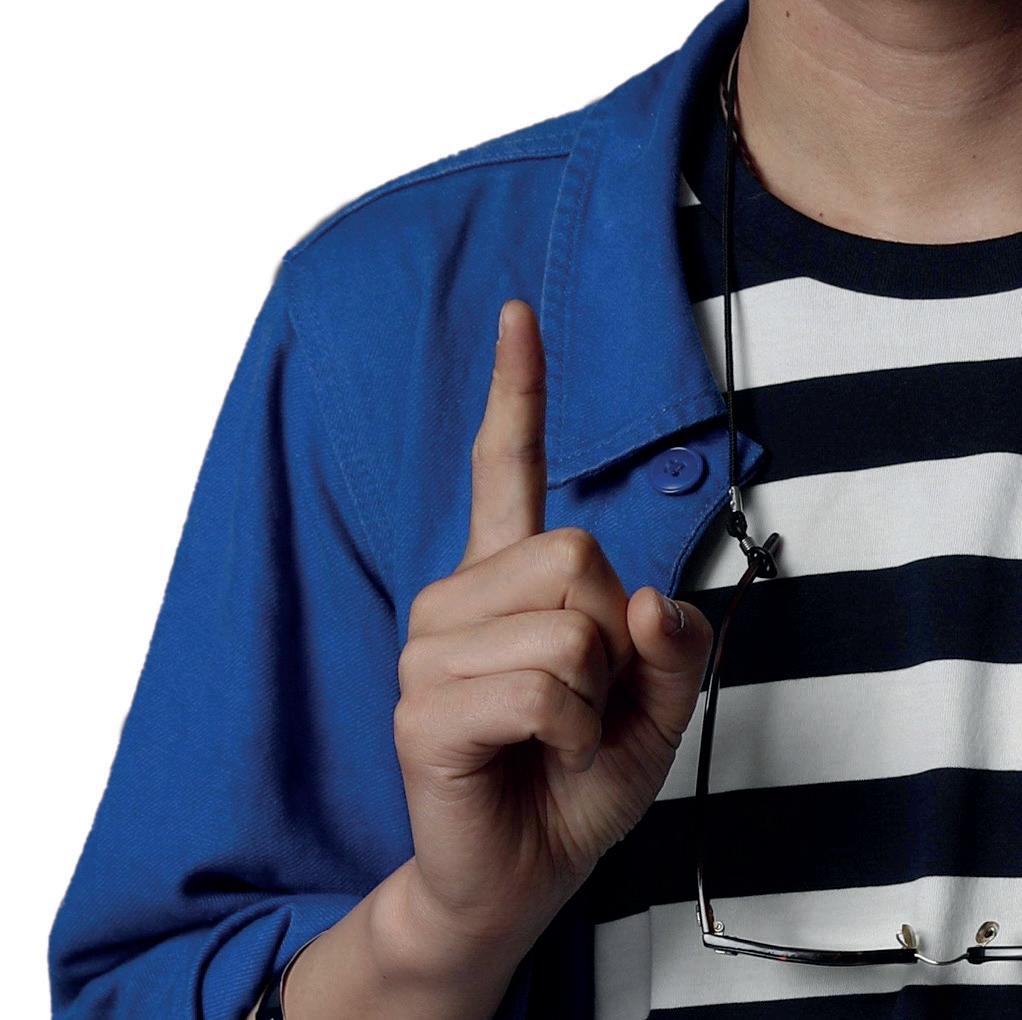
From a purely practical point of view, they are different because the means of accessing the medium determines the audience. Most series are made with a view to a particular type of viewing habit, that’s clear. But from a creative point of view, they are the same to me.
So when it came to adapting the novel, how did you decide on the medium?
The first time I read the novel, I was seized by a strong urge to turn it into something audiovisual, to film it, but it didn’t matter very much to me at the time whether that was to be a series or a film. That was my thinking at the beginning – I just wanted to film it.
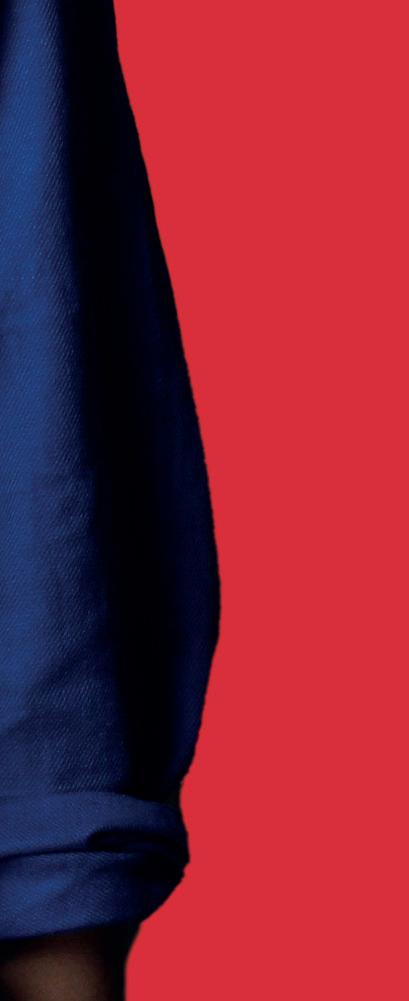
What was it about the novel that made you so keen to adapt it?
The thing that moved me the most about Moses on the Plain was that Xuetao Shuang was very good at making those choices between what to say and what to leave unsaid – the blanks that are filled in by the reader with their own life experiences and parts of them. The book was like a tunnel or a door that would bring you into that world of possibility and, having finished it, it gave me a lot of inspiration to combine its content with my own life experience, to put myself in there. That was, in a way, regardless of its actual content or narrative form.
content or narrative form.
When it came to the writing process, was there a lot of work involved in shaping
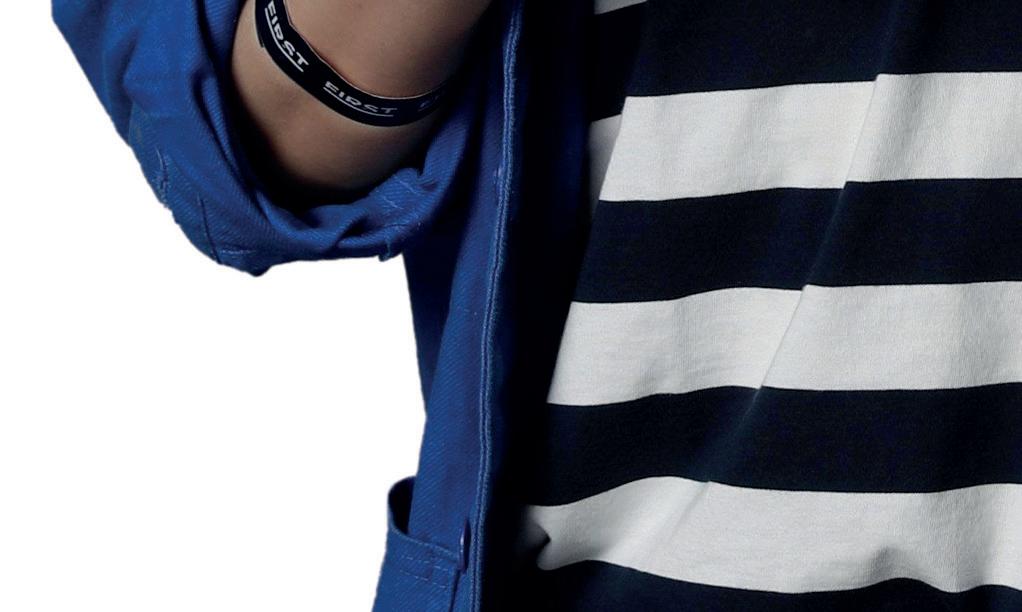
the story for television?
We did have to adapt it, and it wasn’t a process of direct translation for the screen. A lot of the plot is set in the 80s and 90s, going up to the early 2000s and those eras my team and I have also experienced. When the protagonist is a child, we were children as well. So a lot of it is about the way children, and then teenagers,
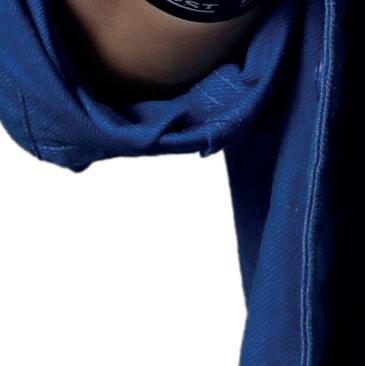
screen. A lot of the plot is set in the 80s view society and the world. I felt this immense resonance when We put content. To that extent,












I felt this immense resonance when reading the novel, and what we finally came up with was something that felt almost like our own story. We put in a lot of our own experience and emotional content. To that extent, it can be said our series is an original creation.
The opening episode begins with the meeting and subsequent wedding of Zhuang and Fu. How does this set the scene for the show’s world and characters?
It’s a question of point of view. The approach I adopted was not one that focuses on one or two characters but more on a disparate group of people that divides into maybe three groups. The first is the two children, Zhuang Shu and Fei Li, the second is their parents, and so on. But if you watch to the end of the series, you will find a thread that links all their fates. It is coherent in that sense.
It’s a relationship of cause and effect, but I wouldn’t say some are prioritised at the expense of others. You see the way they are introduced as marriage partners, which is very different from the way life is later on, but even that causes things to happen later down the line that are important for characters like the male protagonist Shu.
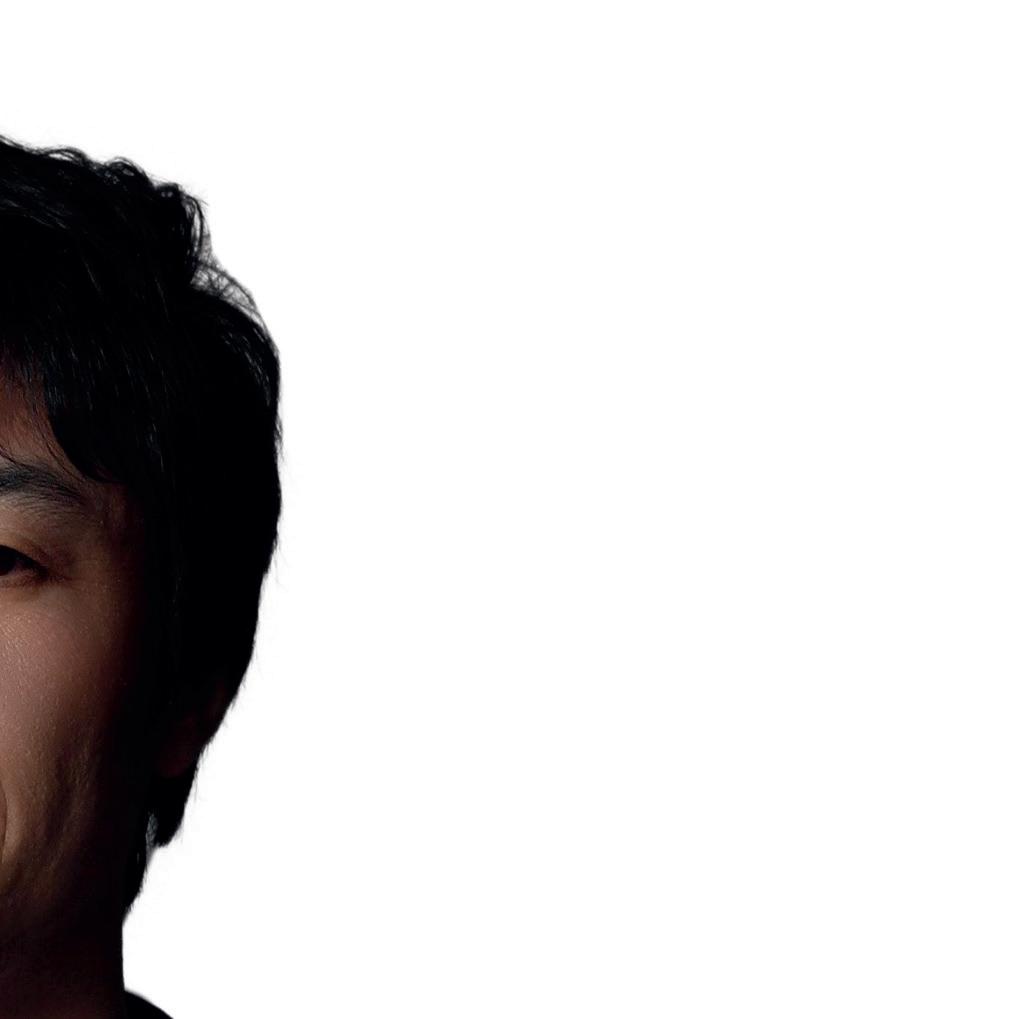
How do you consider your role as a director when you’re working on the screenplay?
It took three years for us to complete the screenplay. What we wanted to do was take everything from the novel that really inspired us – the flashes of light it gave us – and put those in the screenplay. But there wasn’t a transformation process like you have with normal screenplays, where the writers complete that and then the director turns it into ‘footnotes.’ We created much more of what was already a director’s screenplay.
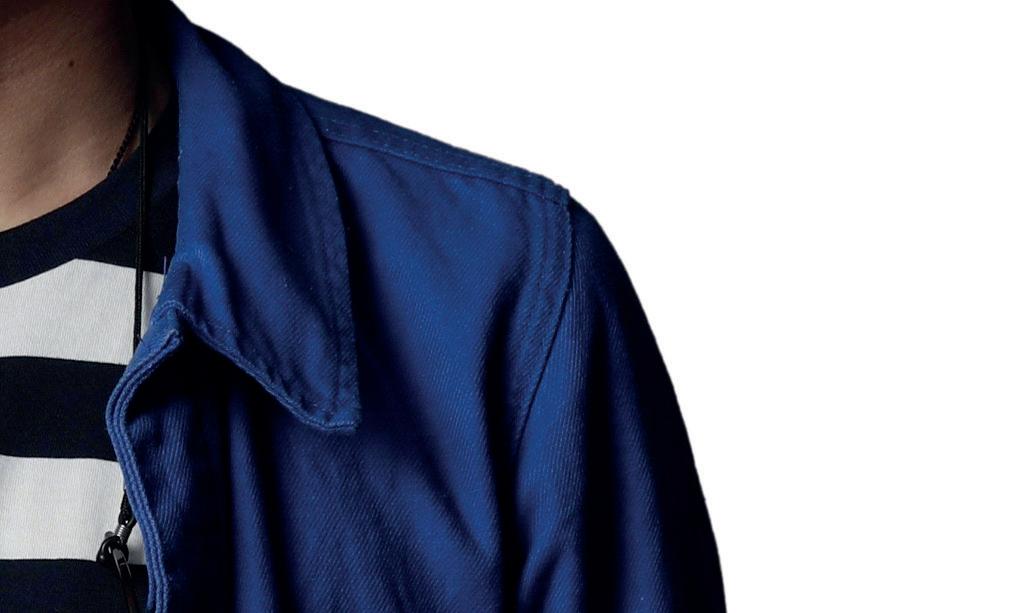
If there’s a difference from traditional screenplays, it was that there were affective elements added to it, because I wanted the crew members to feel that same sense of inspiration I felt when I read Moses on the Plain. I wanted that to be their guiding force rather than giving them orders and dictating movements, lines and so on.
How would you describe the shooting style you used on Why Try to Change Me Now?
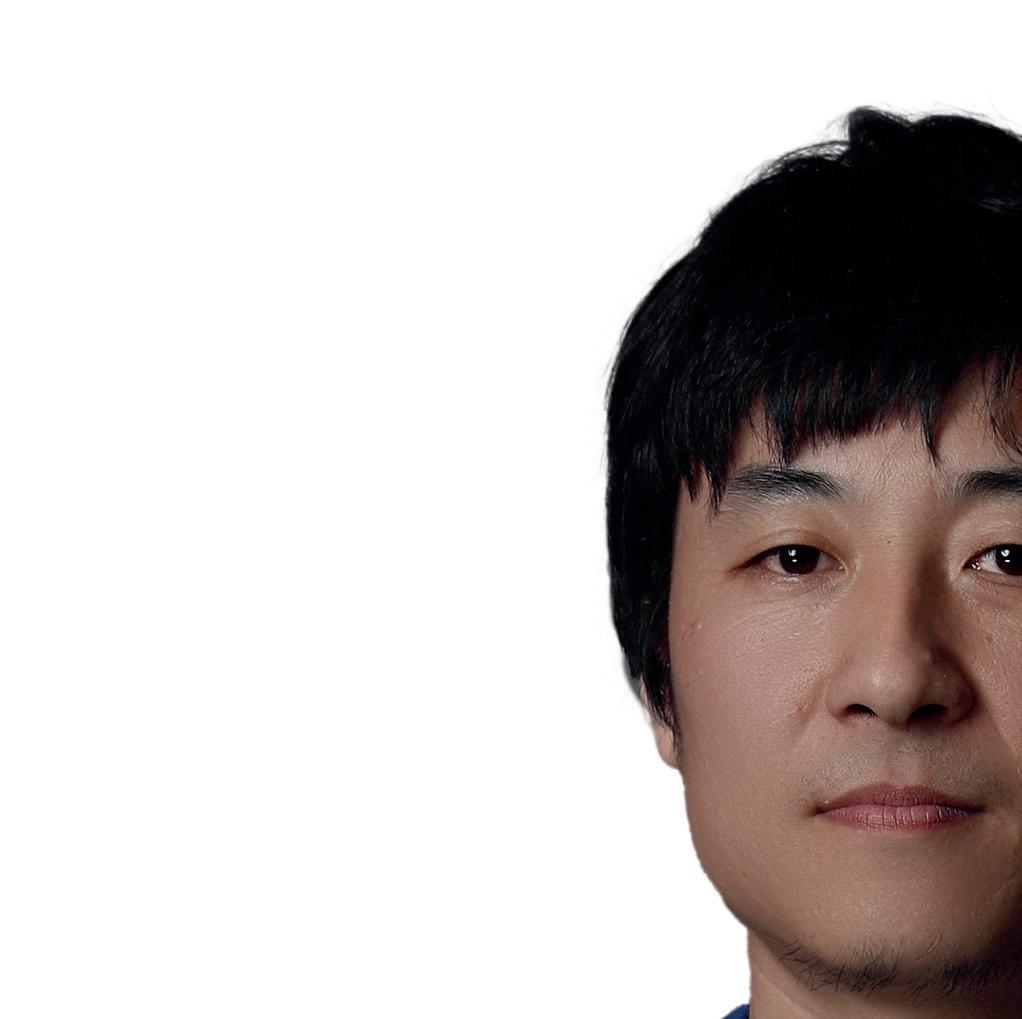
I worked with a one-camera approach and most of the lenses we used were mid-range and long-range. We very seldom used wide angles, but alternated between mid- and long-range to give a sense of the characters in that space in a very natural way, like you would observe them in real life. There was very little switching from one angle to 180 degrees in the opposite direction – in fact, not a single occasion.
The camera appears largely to be very still, and the actors move in and out of the shot, but this is juxtaposed by chaotic news reportage. The news reportage style appears when it’s necessary, and not for stylistic reasons. It’s mainly when there is news
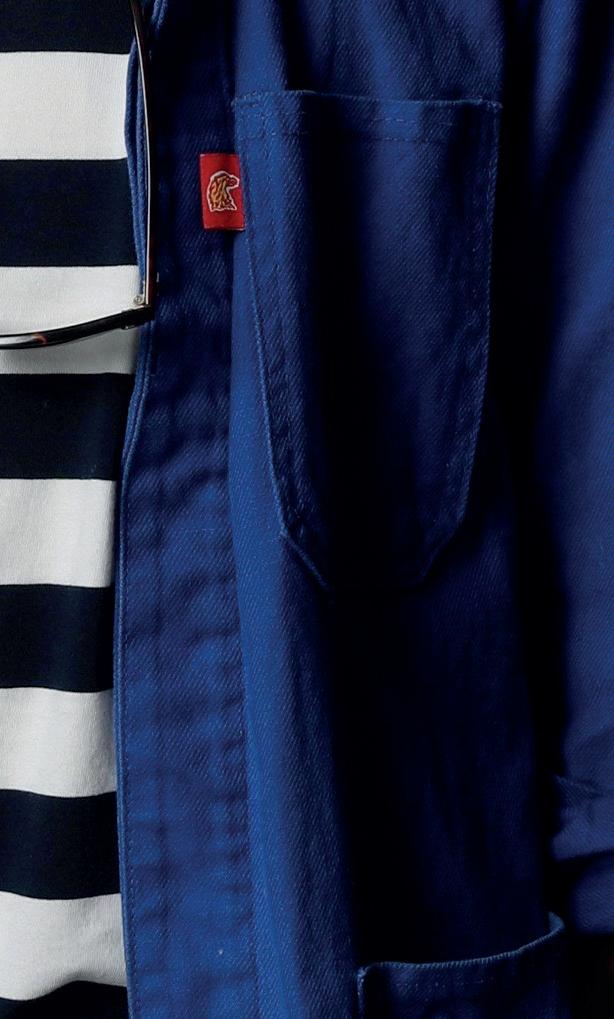
DIRECTOR’S CHAIR: Dalei Zhang DQ . Spring 2023 24 “
”
I felt this immense resonance when reading the novel, and what we finally came up with was something that felt almost like our own story.
Dalei Zhang
reporting taking place, and it is used to give a sense of it being a live report in that place. It later appears in different ways, sometimes on TV screens that happen to be in a particular scene in the series. But the main approach adopted is a fairly static camera – and also it’s the same rationale for sound. Sound works in the same way. The audio and the visual choices made here are equally important.
How did you work with the large, intergenerational ensemble cast?
In casting terms, we first tried to find people who were already very close to the characters. It wasn’t so important for us whether they were professionals or amateurs. Step two was to establish trust with them and make sure they were able to establish relationships with each other as well. We got to the point where, before we actually started shooting, they were all more or less on friendly terms and could talk to each other not just about the screenplay but non-work matters.
That brought us to step three: the screenplay was more like a work of literature, something you could read easily like a novel. That led to people having all kinds of different reactions to it, which became part of the creative process.
I did not demand that the actors strictly memorised a series of lines. In fact, we preferred actors who did less of that. But it was very important that they be aware of who they are, what situation they’re in and where they are in a particular scene. And no, we didn’t have rehearsals or previews before shooting. We tried to trust instinct as much as possible. Actors have to be in the zone to have that kind of instinct.
I really wanted to give space to the cast. If there were things me and my crew were doing, it was directing people when they were veering off a bit, but the cast gave us all kinds of surprises during filming.
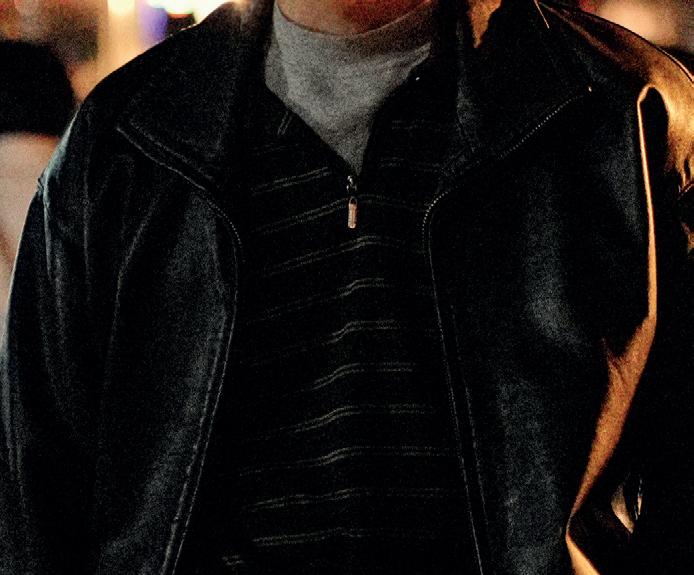
Ultimately, we found they were all talented. It wasn’t about whether they were professional or amateur actors – they all had talent they brought to the table. We had all kinds of people in the cast: musicians, rock ‘n’ roll singers, teachers, civil servants.
What obstacles did you face?
Perhaps the biggest was that it was a non-genre production, so a lot of existing approaches, methods and experiences were insufficient to meet the challenges we faced. What we had to do – not just myself but the producers, artistic directors, the DOP and casting directors – was bring as much of our own experience as possible to bear on what we were doing for it to actually work. That’s something we can’t quantify as an approach. It was hard from start to finish, but enjoyable at the same time. Ultimately, we were recreating a certain time and people were then able to relate to that as if it were real. Choosing the locations was also difficult because a lot of the places changed, some of them very quickly – we would scout a location, only for it to be demolished a few days later when we tried to go back to it. This was very valuable experience and there are a lot of memories we will look back on. Covid was also sometimes an insurmountable obstacle.
What themes or topics do you hope will resonate with viewers beyond China?
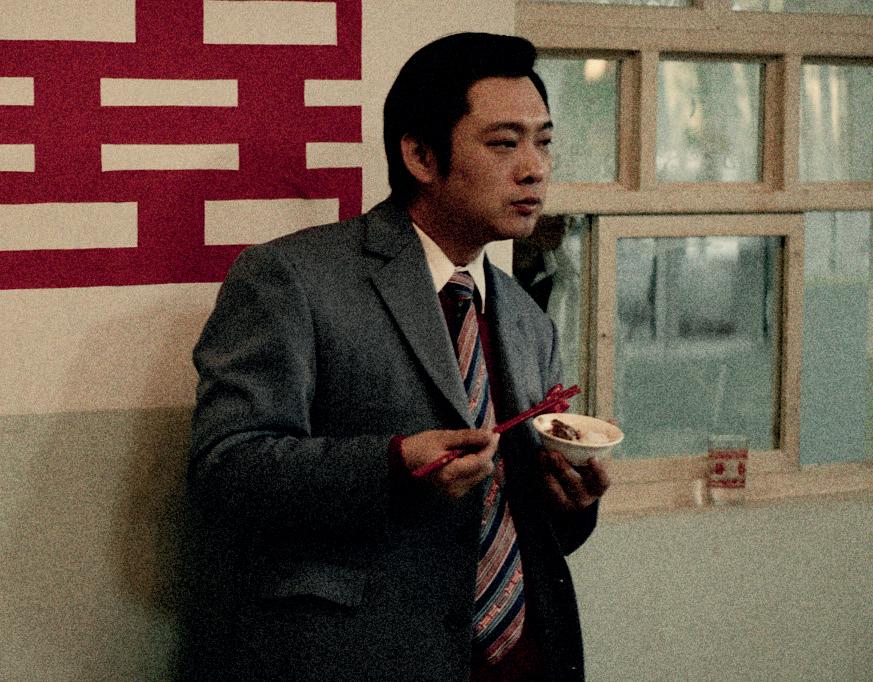
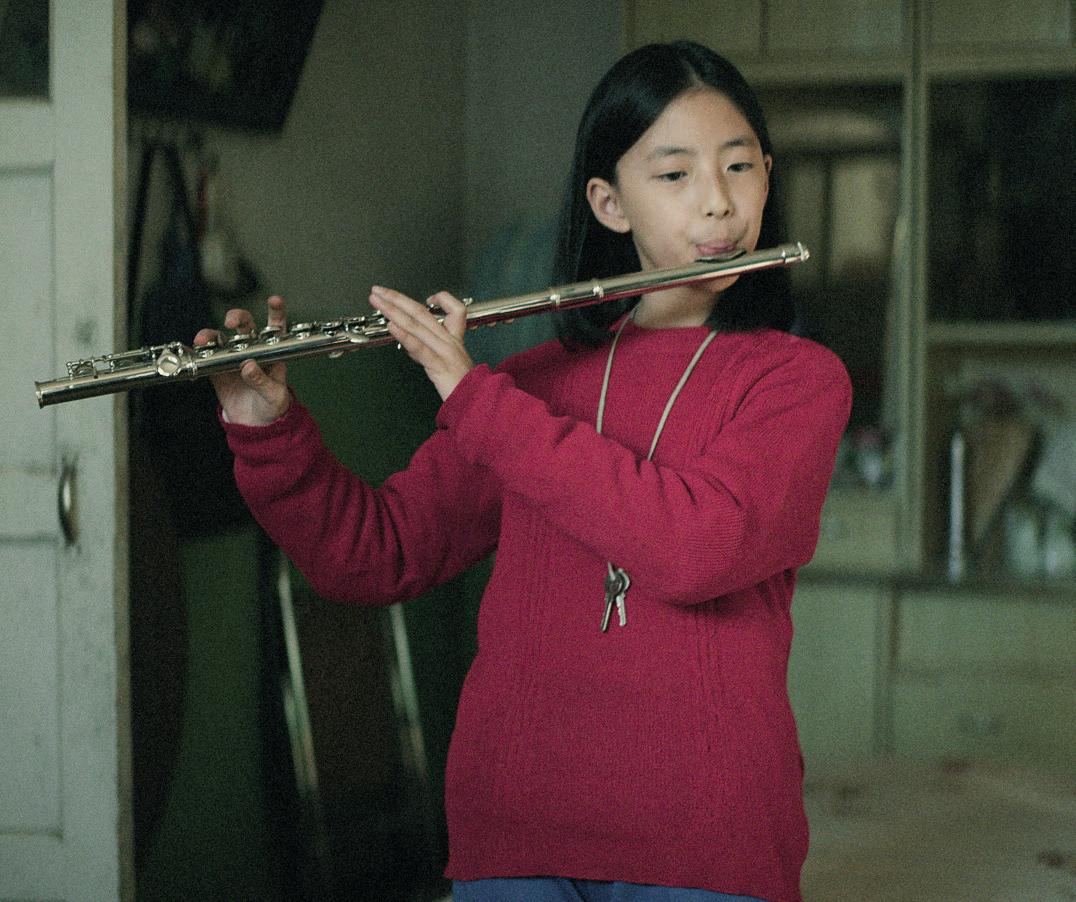
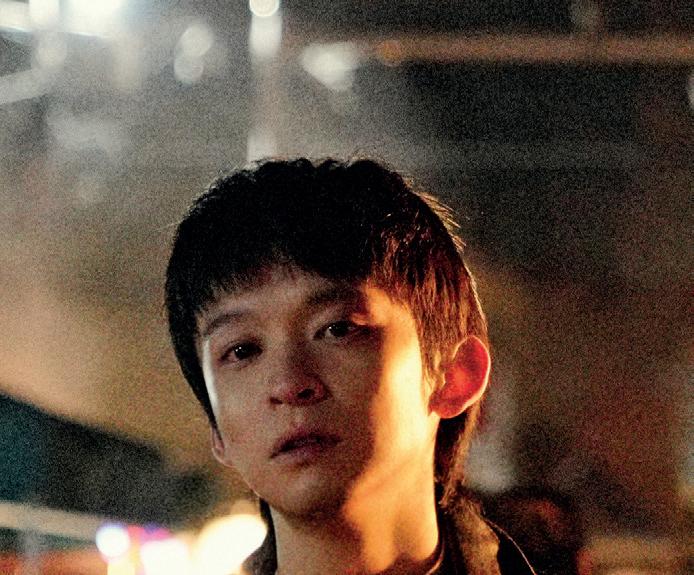

Post-2000 China is probably not much of a mystery to people. You’ve got the internet – it’s all out there. From a historical point of view, people should be fairly clear what kind of place it is. It’s more the 1980s and 1990s China that may be unfamiliar to a western audience, but some of the things China went through then have happened in other places, just at different times.
If you take the 1990s, there were a lot of institutional reforms, which meant large state-owned enterprises [SOEs] being reformed and turned into much more commercial operations. A very collective way of life was suddenly subjected to market forces, and there was no longer what they called the ‘Iron Rice Bowl.’
There was a lot more competition and people had to go it alone. That led to a lot of differences down the line. But that phenomenon is probably a common one, it’s just a question of when places have undergone it. In China’s case, they started doing it quite late but it also happened extremely quickly. You could hardly pause for breath. So my focus is more on humans, because we are all humans.
DIRECTOR’S CHAIR: Dalei Zhang DQ . Spring 2023 25 DQ
Baoshi Dong as Shu’s father Dezeng Zhuang
Zijian Dong leads the cast as Shu Zhuang
Ziameng Zhang plays the younger version of Fei Li
Living the dream








































Dreamland marks the first comedy for former Doctor Who assistant Freema Agyeman, who has been busy saving lives on screen in the US since 2018. She tells DQ about returning to the UK and stepping into a new genre.
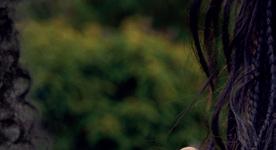
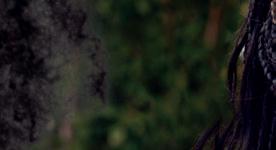

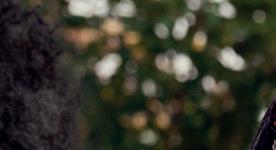

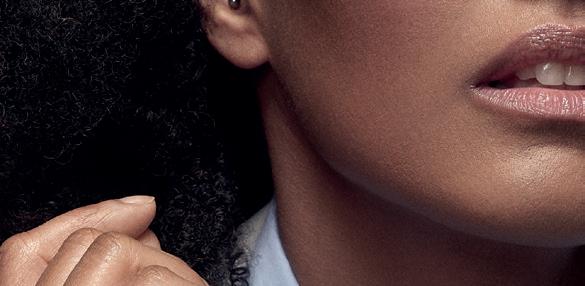
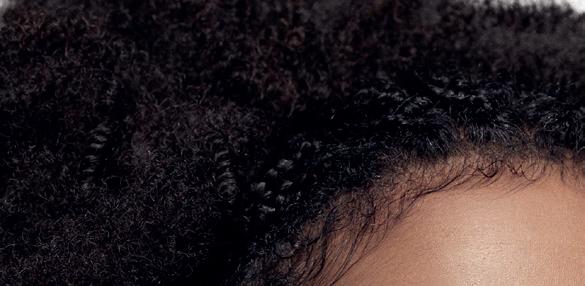
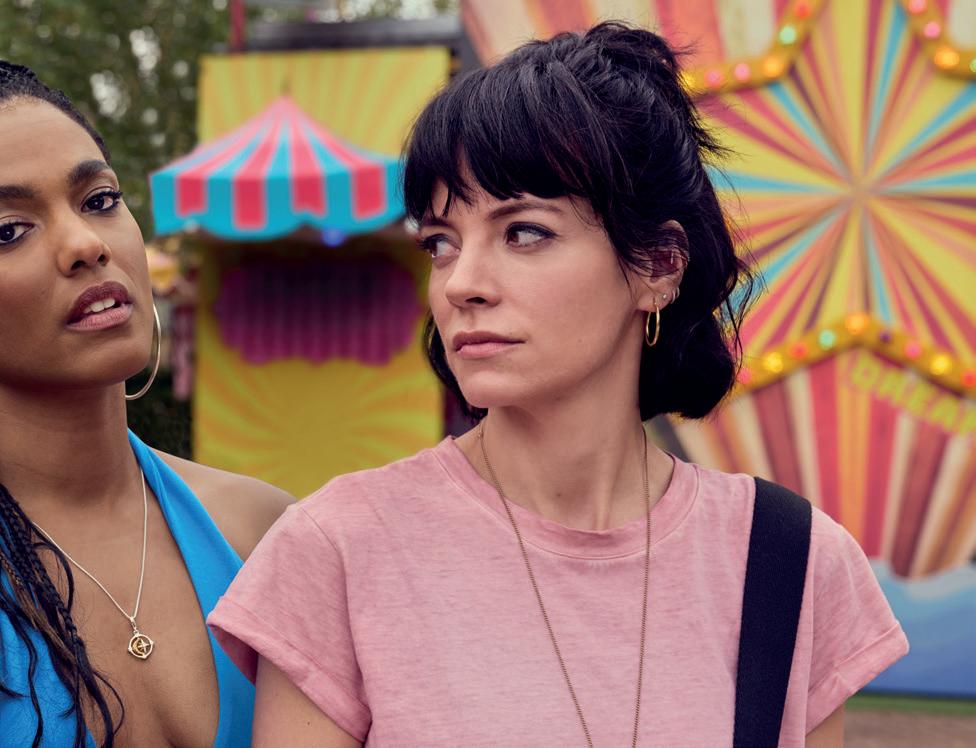
IF IT HADN’T BEEN FOR COVID-19, FREEMA AGYEMAN MIGHT STILL BE STARRING IN US MEDICAL DRAMA NEW AMSTERDAM. But like many people the world over, the British actor used the pandemic to look at life from a new perspective.




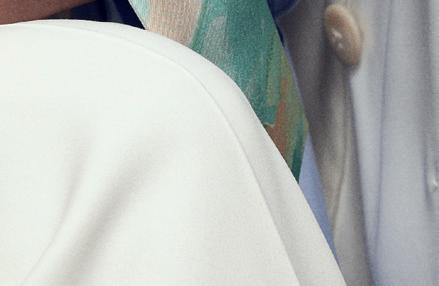
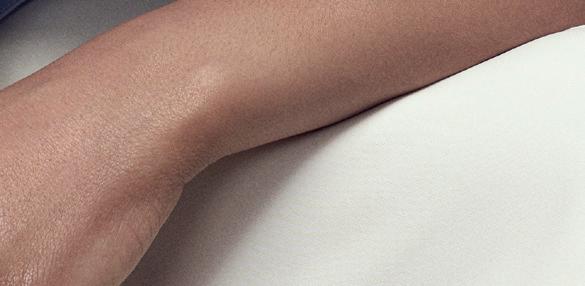
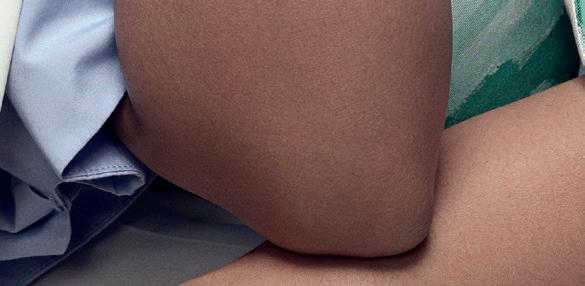
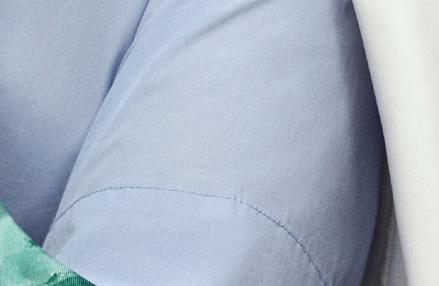
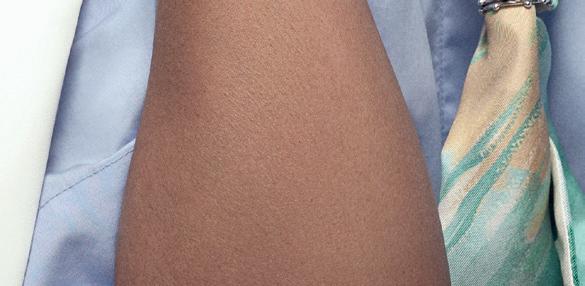

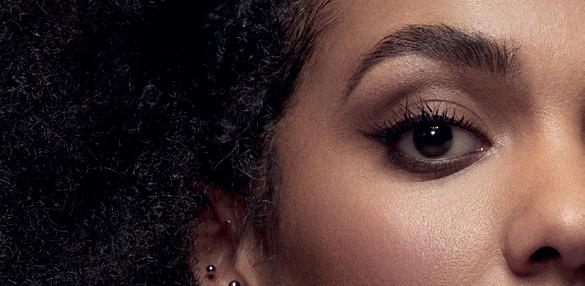
Agyeman’s breakout role came when she won the part of Martha Jones, a companion to David Tennant’s 10th Doctor, in the long-running BBC science-fiction series Doctor Who. She later appeared in Doctor Who spin-off Torchwood and had a regular role in crime series Law & Order: UK
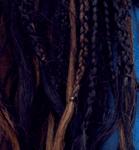

the The City


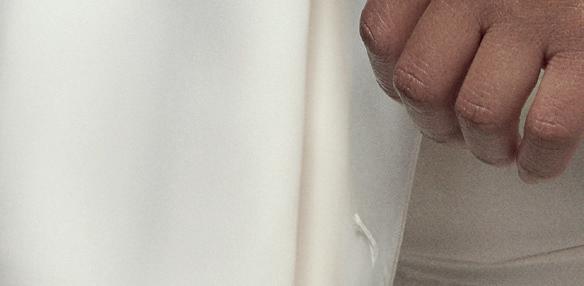
Yet for the past decade Agyeman has largely been working across the Atlantic, starring in shows as diverse as Sex & prequel The Carrie Diaries and Netflix sci-fi drama . Then, in 2018, she won a role in New Amsterdam, a series based on the story behind one of America’s oldest public hospitals.
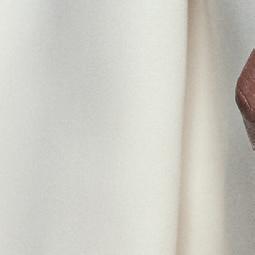
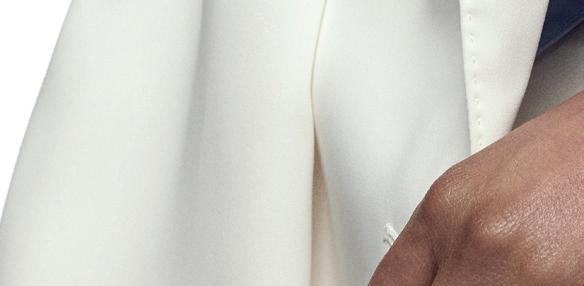
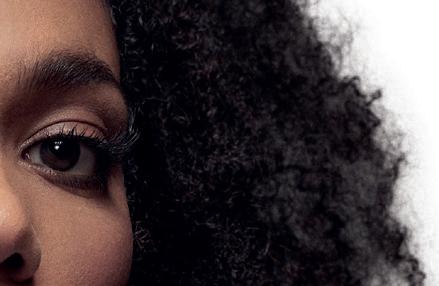

The job demanded 10 months of filming every year to meet the demands of the US broadcast network cycle, with 22 episodes produced in the first season alone. Agyeman was always grateful to have landed as stable a job as anyone can have working in television while she lived “the dream” working in New York.
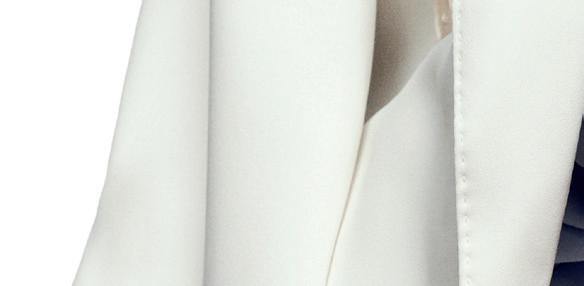
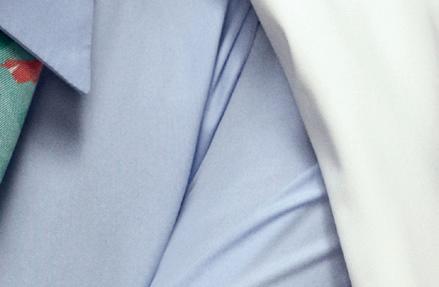
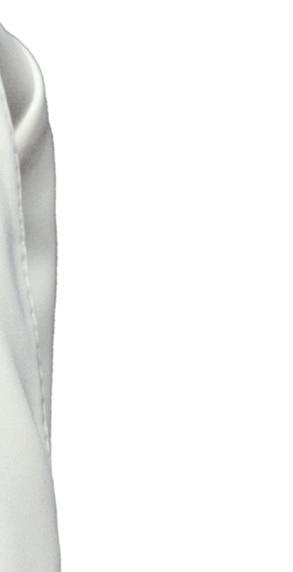
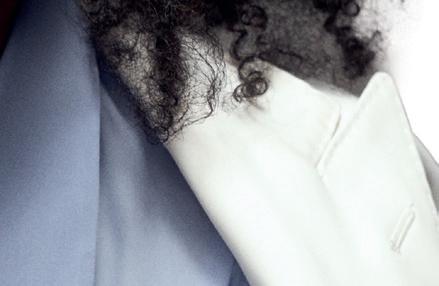

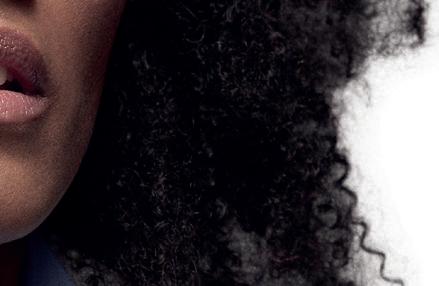
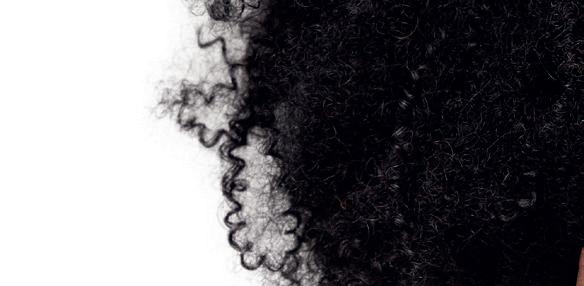


But being 3,000 miles from home was brought into sharp focus when the pandemic arrived, as she considered how she was missing adventures with her family and friends. It was with that in mind that she decided to leave New Amsterdam at the end of season four to return to the UK, and quickly landed one of the lead roles in new Sky comedy Dreamland
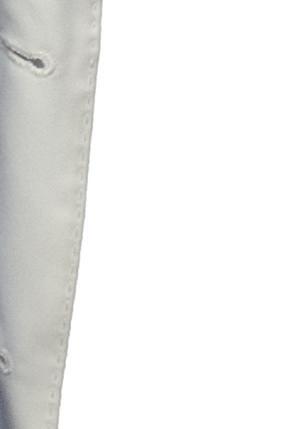
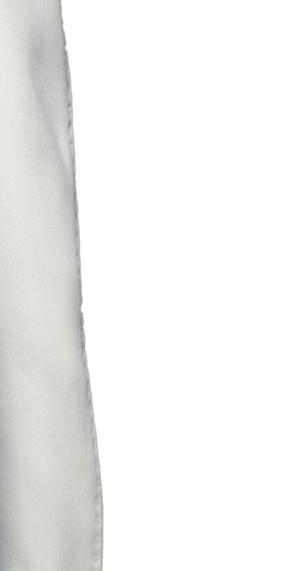
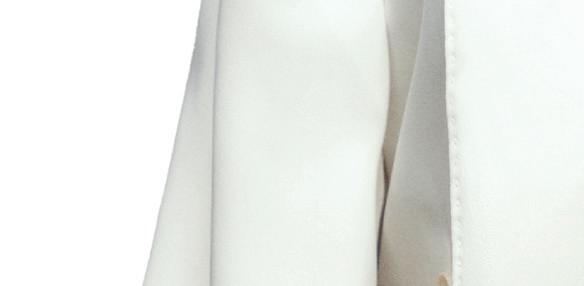
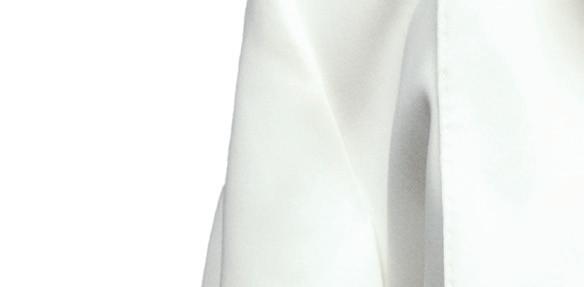
STAR POWER: Freema Agyeman DQ . Spring 2023 26
Sense8. 10 months while when
Freema Agyeman and Lily Allen in Dreamland
“I love my lifestyle; I absolutely do. But I suddenly started to think, ‘Well, maybe I could still have that but just a little bit closer to home,’” she tells DQ. “And so I left there in April 2022 and then started work on Dreamland in July, and it was a world of difference. Suddenly I was doing rehearsals, which I’ve never experienced, and the whole thing was wrapped up in two months.”
Set in the English seaside town of Margate, Dreamland is pitched as a darkly comedic exploration of multi-generational female relationships and the secrets, lies, loves and aspirations of a family of four sisters. Agyeman star as Trish, who is pregnant for the third time with partner Spence (Kiell Smith-Bynoe). Her sisters Clare (Gabby Best) and Leila (Aimee-Ffion Edwards) support their mum (Frances Barber) and nan (Sheila Reid), but when estranged sister Mel (singer Lily Allen in her first screen role) reappears in their lives, she threatens to destabilise the entire family.
Distributed by NBCUniversal Global Distribution, the series comes from producer Merman (Motherland, This Way Up), which established an “incredibly nurturing, open and permissive” environment in which Agyeman could take her first steps into comedy.
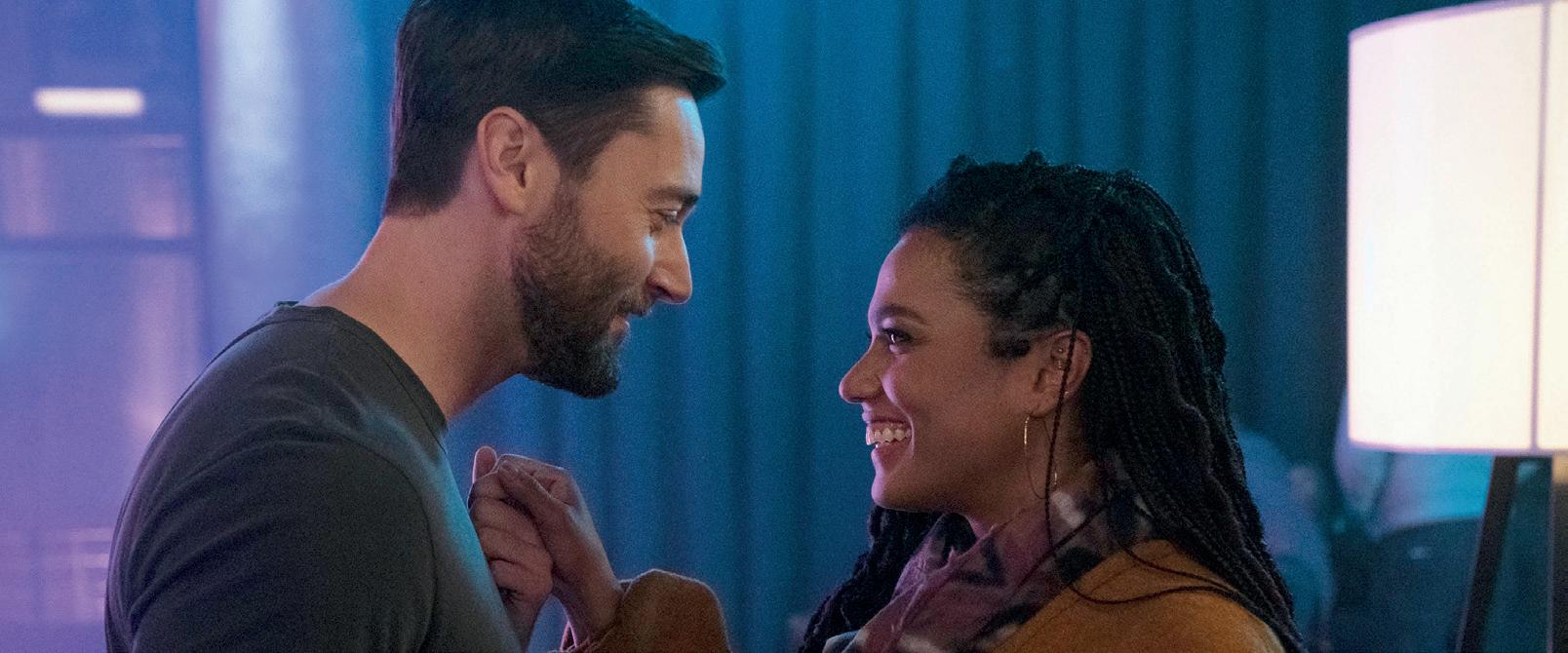
“I was definitely new to the comedy world. I didn’t know what to expect,” she says. “And while I was used to shooting scenes out of chronological order, which is the way telly pretty much does it everywhere, I was more used to doing it episode by episode. But when we started on this job, you’re shooting whole episodes out of sequence, shooting a scene from episode four, then episode six and episode two. But I never felt like I was floundering.”
The actor admits that while she likes scaring herself by taking leaps into new genres or character types, she might not have been brave or ambitious enough to audition for Dreamland were it not for producer Jane Bell, who put her name forward for the series.
Then, when Agyeman read the script, she was “champing at the bit” to land the role. “I was fuelled by an enthusiasm for the work because I completely recognised these characters,” she says. “It’s the closest role, storyline or script I’ve ever read to my own life. Suddenly I was like, ‘This is a side of me and my career that I get to explore, where I can actually use my own experience from which I’ve never had the opportunity to do before.’”
Agyeman grew up on a council estate where, like in Dreamland, there was often an open-door policy that meant neighbours could walk in and out of each other’s homes without notice. She would also have old beds and sofas in her front garden where she could sit, drink and chat with friends.
“This is Merman being the real deal and telling authentic stories with all the nuances and the detail,” she says. “There’s one scene where Clare has a ‘fatberg’ explosion in the kitchen and I’m like, ‘Yep, I know what that’s like.’”
Based on the 2018 Bafta-winning short film of the same name, Dreamland is written by showrunner Emma Jane Unsworth, Gabby Best, Sharma Walfall and Sarah Kendall. Agyeman describes the scripts as “beautifully written, moving, funny and well-observed.” It also tackles themes of regeneration vs gentrification, social mobility, community, class, womanhood, sisterhood and parenthood – but under director Ellie Heydon, the series finds the fun and laughter in many dramatic situations. “Life can be difficult; life can be absurd. But if you can nail the truth of those situations, you can make
people laugh at them because they can recognise and relate to them. And the characters and situations are completely relatable,” Agyeman says.
Before rehearsals, the actor did her “homework” to prepare for playing Trish, but unlike on a drama, where the aim is to build up character, she found that with comedy, it was helpful to strip away those layers. Just as she would visit London’s Old Bailey law courts in preparation for her role on Law & Order: UK, she also spent time watching co-star Smith-Bynoe’s stand-up routines.
“You come in just as open and as free as you can be, and extra aware of other people because so much is about timing,” she says. “The challenge here came from trying to be as relaxed as possible, because sometimes when you have that tension and nervousness, you can use that in a dramatic situation. But in comedy, it’s kind of a hindrance. We were just playing, exploring and getting the measure of each other because it’s like a dance and there’s a rhythm.”
After Dreamland, Agyeman’s next steps might both take her back to the stage after she made her West End theatre debut opposite Stockard Channing (The West Wing) and Laura Carmichael (Downton Abbey) in Trafalgar Studio’s run of Apologia in 2017. Meetings are underway on one potential project, while another sees her working with award-winning playwright Frazer Flintham to create a one-woman show.
In turning creator, Agyeman says she has been inspired by peers such as Michaela Coel (I May Destroy You), Phoebe Waller-Bridge (Fleabag) and Billie Piper (I Hate Suzie) – “and I just love their vibe,” she says. “When you’re writing things that are close to home as well, you can’t beat the authenticity that comes through from that.”
Now, as new inhabitants prepare to enter the TARDIS – Sex Education’s Ncuti Gatwa is filming scenes as the 15th Doctor alongside Millie Gibson as his new companion ahead of their first episodes of Doctor Who airing during the 2023 festive period – Agyeman admits she hadn’t realised the “magnitude” of appearing in the iconic series.
“I remember feeling like I was just doing a little telly, just for us in this little bubble in Cardiff. Only when it came out did I recognise and realise the magnitude of it,” she says. “All I would say [to the new cast] is enjoy it in the moment while it’s happening. Enjoy the fact you’re stood in that TARDIS, in that world, and really appreciate the magic of it, because when it comes out and the world floods into it, it’s a different experience. Enjoy that time when it’s just yours.”
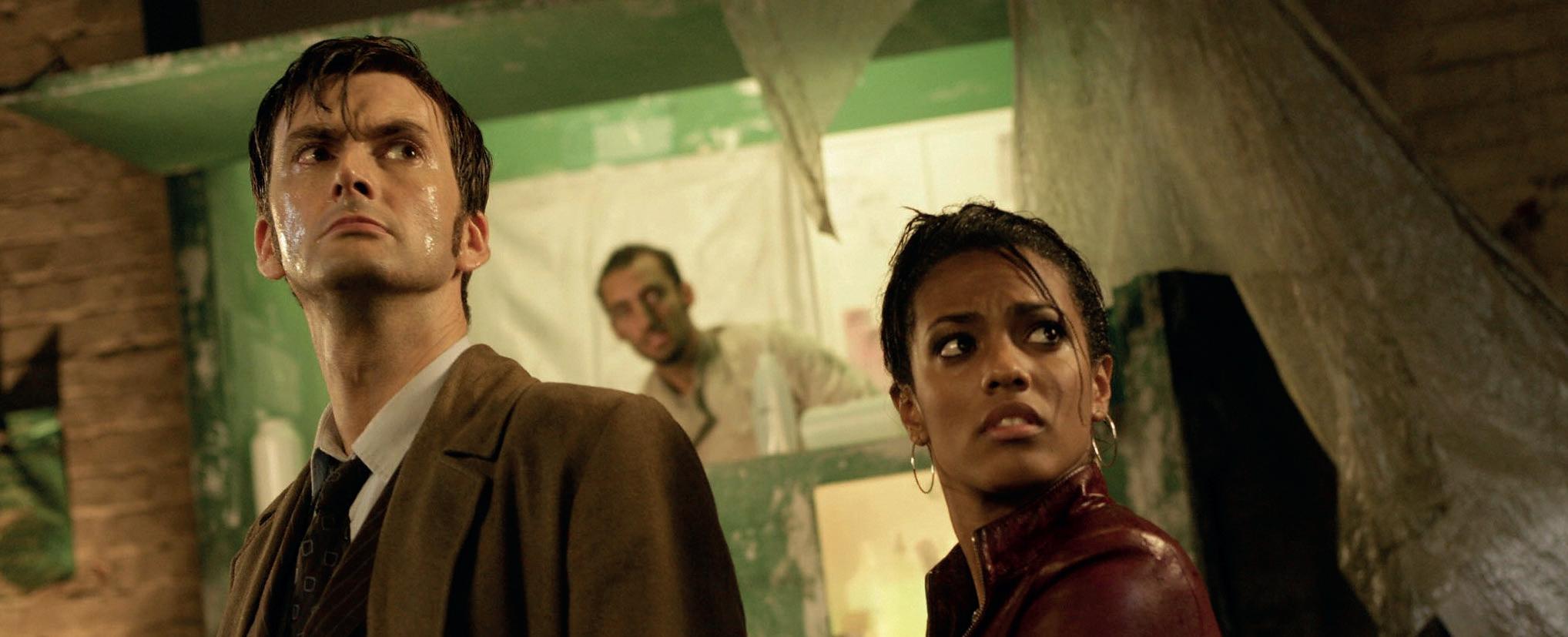
DQ . Spring 2023
DQ
Agyeman starred alongside Ryan Eggold in New Amsterdam (top) and David Tennant in Doctor Who
“ ”
Life can be di cult; life can be absurd. But if you can nail the truth of those situations, you can make people laugh at them because they can recognise and relate to them.
Freema Agyeman
Hot stuff Hot stuff Hot stuff
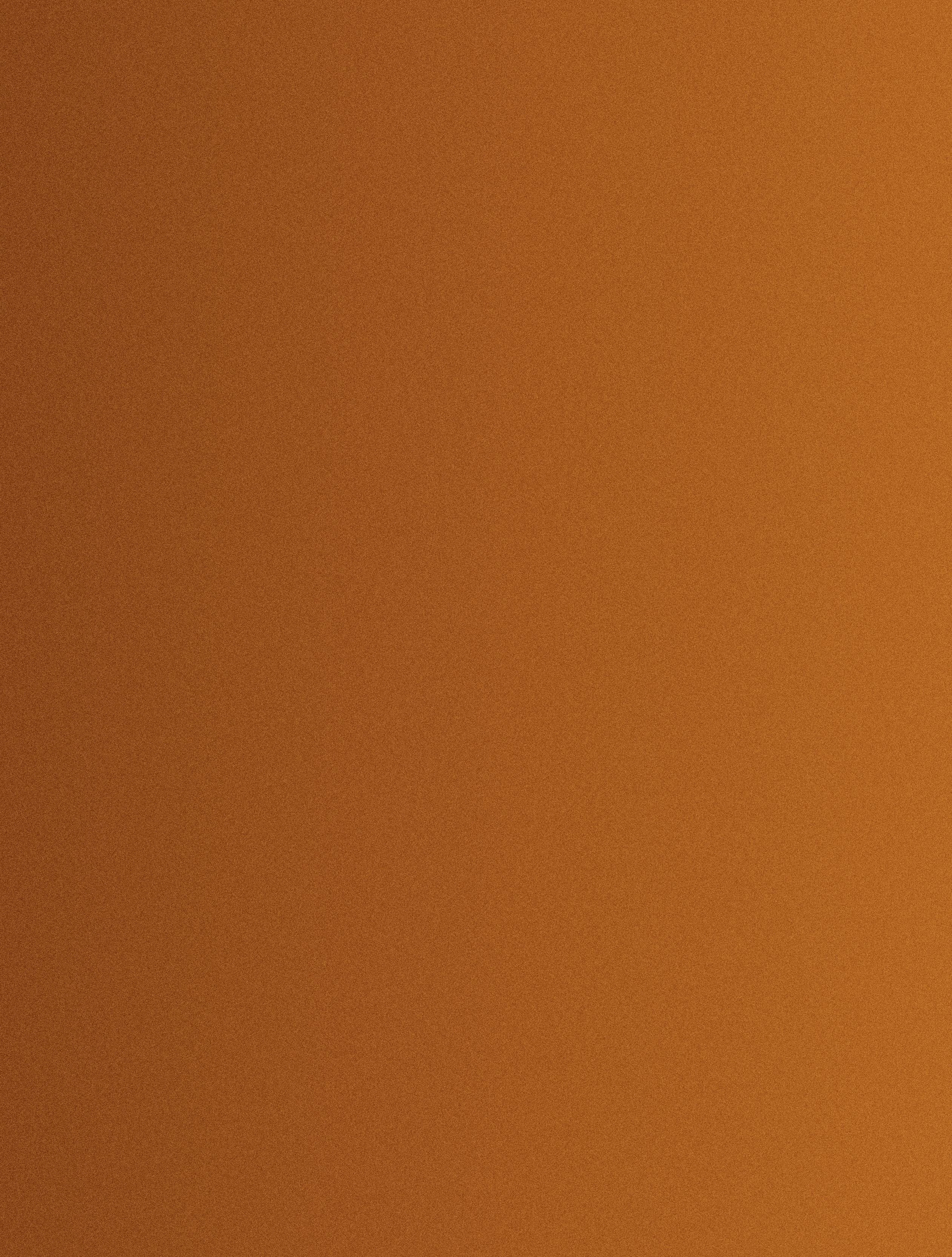
Swiss graphic novel Les Indociles (The Firebrands) is translated for television in a five-part drama about a group of friends in the midst of a new drug culture in the 1970s and 80s. Director Delphine Lehericey and stars Maya Sansa and Thibaut Evrard explain why the script had the cast in tears and how the focus of the story had to change for TV.
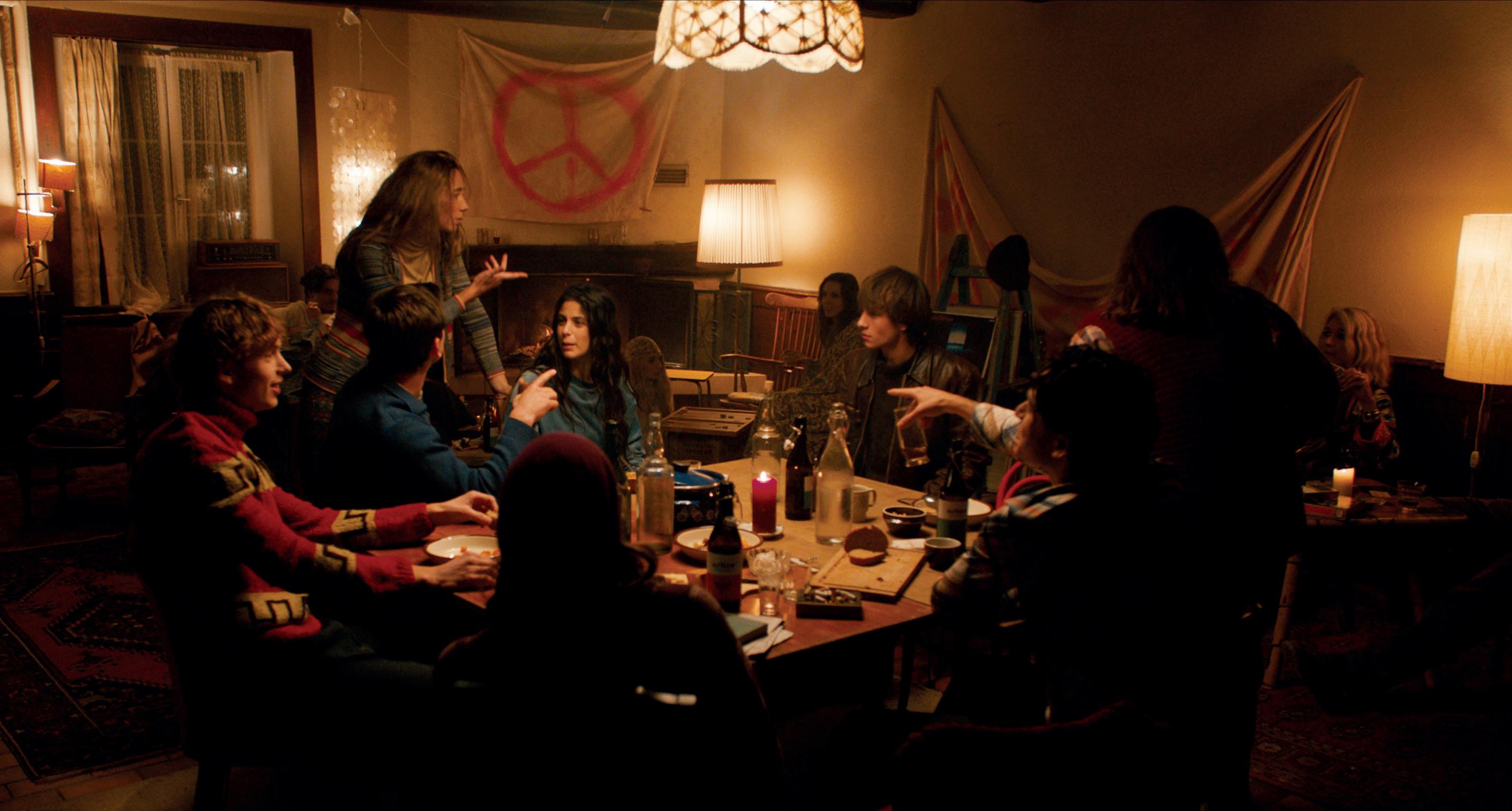
IN FOCUS: The Firebrands DQ . Spring 2023 28
The utopian dreams of three friends living in the Swiss countryside come under threat from social change – and the arrival of drug culture – in a Swiss series that has its roots in a graphic novel first published in 2012.
Les Indociles ( The Firebrands ) opens in the early 1970s as friends Lulu, Chiara and Joe find themselves on the brink of adulthood. Together they share a dream to build a world of freedom and equality where nobody is left behind. But as the hippie wave ignites and hard drugs find their way into their conservative village, the trio are confronted by the consequences of excess and addiction, leading them to build a pioneering shelter for drug addicts.
Notably, each episode of the five-part series makes significant strides through time as the story – and the characters – move from the 1970s to the 80s and 90s, with youthful rebellion, passionate idealism and wide-eyed wonder being challenged on the way.
In the same vein as The Crown , the period drama also uses different actors to play the young and older versions of the same characters. Marinel Mittempergher and Thomas Blanchard play Lulu, Fotinì Peluso and Maya Sansa star as Chiara, and Arcadi Radeff and Thibaut Evrard play Joe.
Directed by Delphine Lehericey ( The Last Dance ), The Firebrands is produced by Box Productions and Entre Chien et Loup, based on Camille Rebetez and Pitch Comment’s celebrated graphic novel saga of the same name. It will debut on Swiss national broadcaster RTS later this year and is distributed internationally by Oble.
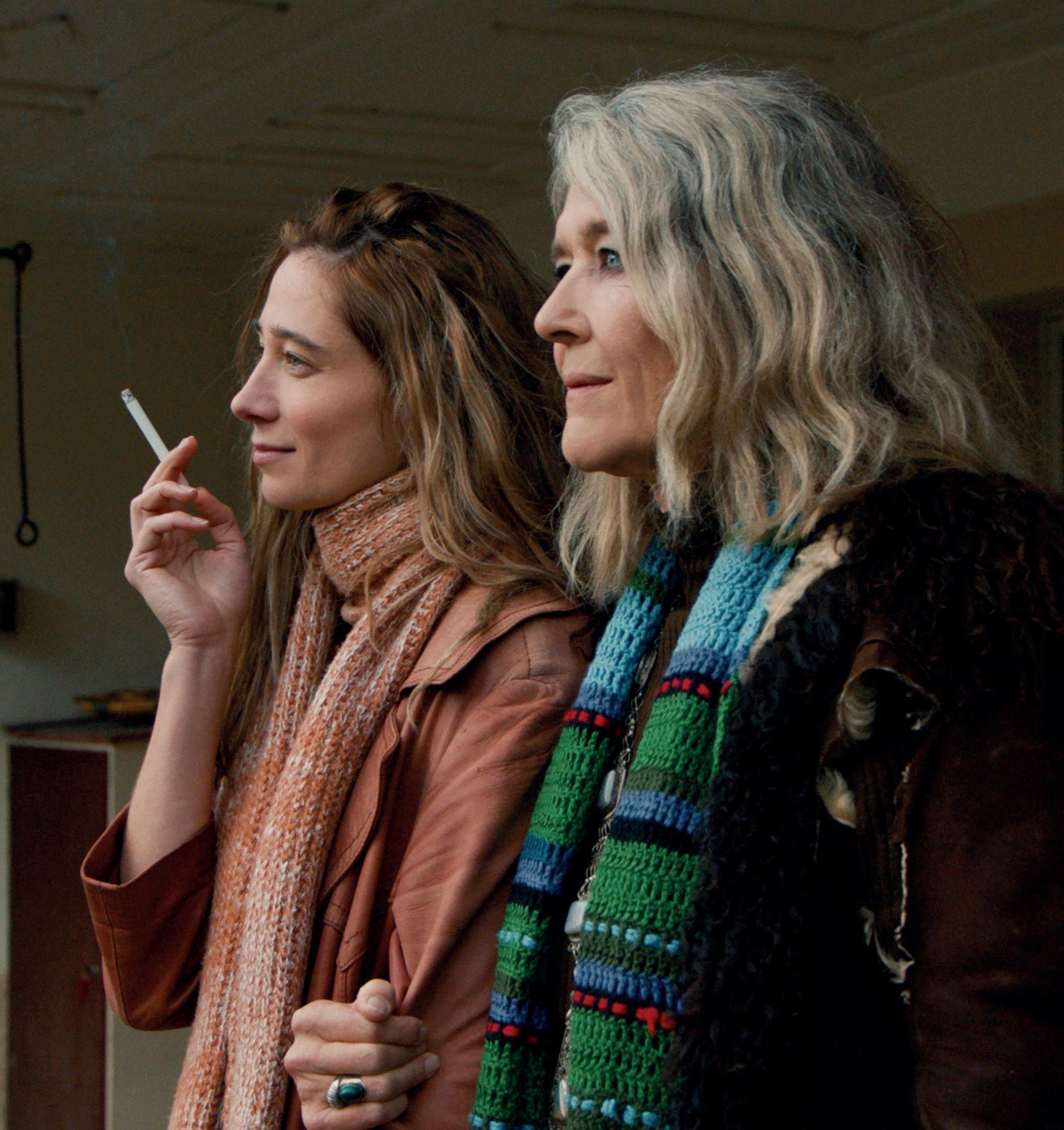

It was after Lehericey and Evrard (Paris Police 1900) collaborated on 2019 feature Le milieu de l’horizon (Beyond the Horizon) that Box, which produced the film, contacted the director about the project. “They said, ‘Now we have to do a TV series and we want you on that,’” the director tells DQ. “I was not very comfortable at the
>

IN FOCUS: The Firebrands DQ . Spring 2023 29
< beginning because it is very intimidating for me to have to direct all the episodes alone, because it takes a long time. I like TV series but I didn’t know if I’d be able to do this.”
The Swiss-born filmmaker then met Rebetez and read the comics, but she thought something was missing from the original story that would help its adaptation from the page to the screen.
“This is the real story of Camille and his community – communists, anarchists, so many people who want to make music and have discussions about society,” she explains. “I said it would be hard for me to shoot something where people are talking all the time and nothing happens. They just talk about politics and stuff, and it could be very boring.
“But the three characters were very interesting: Joe is dealing with his homosexuality, Chiara is from an immigrant background and is a drug addict, and Lulu is a political guy who is always saying something about the world. We kept the most important characters and we imagined how we could open up the story to talk more about drugs.”
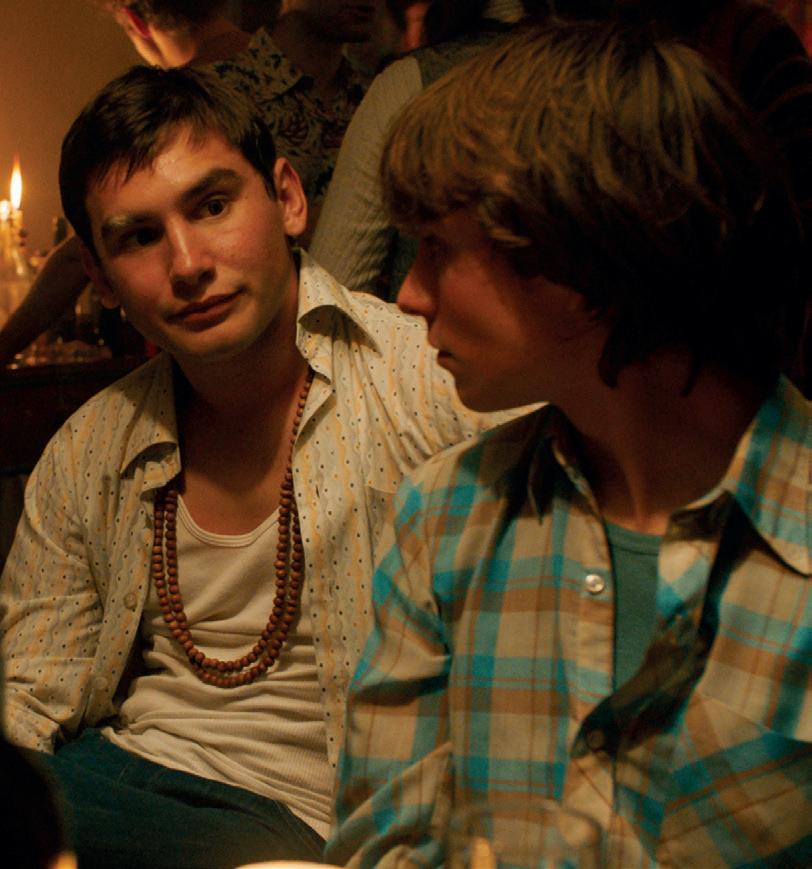
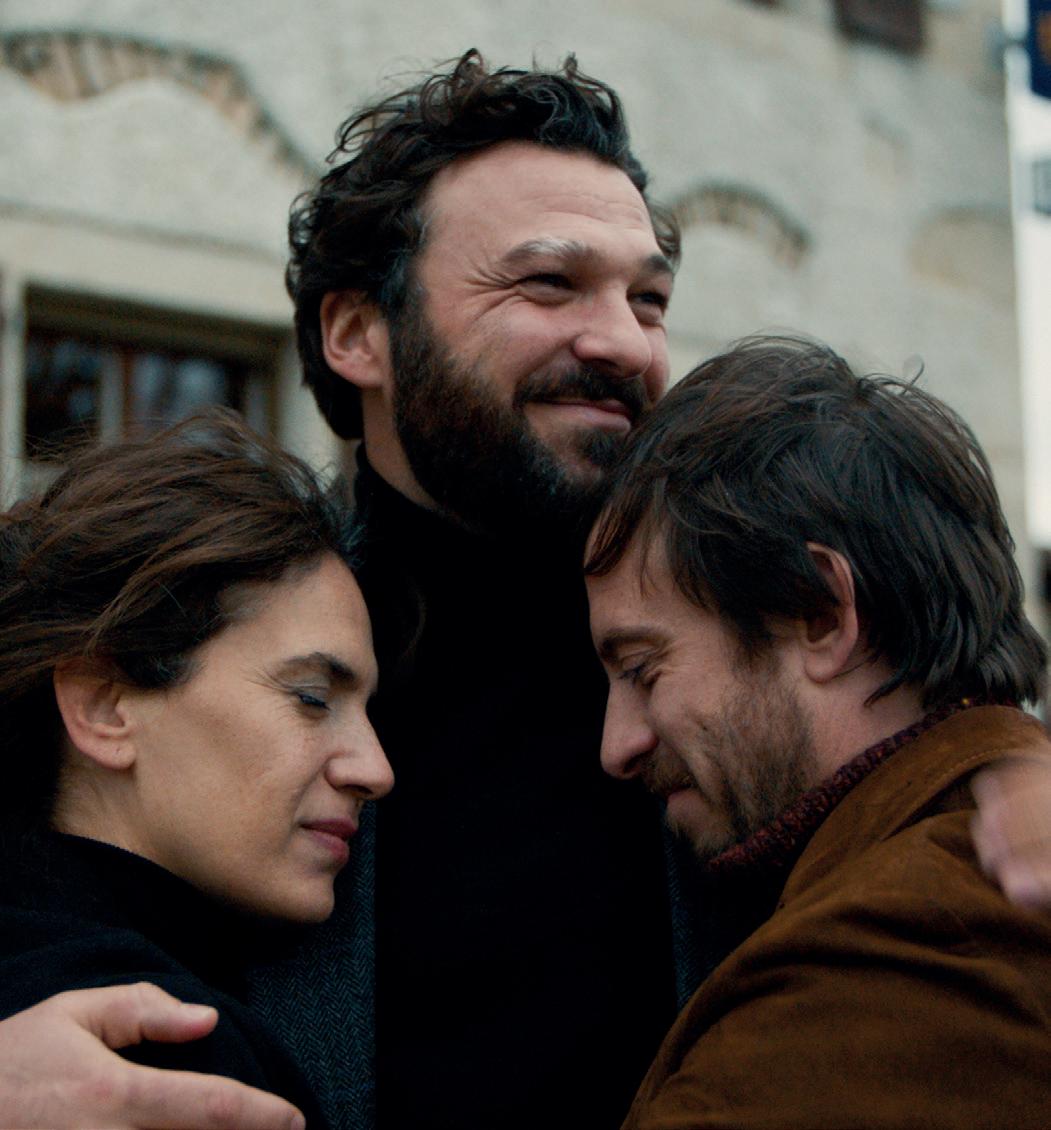
Belgian actor Evrard grew up in Switzerland and was already familiar with the show’s source material. Then following their first project together, he jumped at the chance to reunite with Lehericey. “She proposed something I’d never done, which is to play a character who is tortured and is coming out, but he did everything to be accepted – he is married and has a child but he is profoundly sad and he wants to rise again,” the actor says. “I thought there was a real direction for the character.

“To be honest, the first time I read the scripts, I cried. And we all did when we read the five episodes together for the first time. Everyone melted – it was pathetic! It was something beautiful we had in our hands and Delphine’s hands. She brings everyone together and directs really well, so I was very excited by the idea of working with her again.”
Meanwhile, Lehericey first met Sansa ( Buogiorno Notte ) over Zoom. “I said, ‘I have to work with this woman,” the director recalls.
“It’s a marvellous role; I was very excited,” Sansa says of playing the older Chiara. “Our encounter on Zoom was great. As soon as I met her, I was like, ‘I have to get this role.’ She called me a few days later saying she was keen to work with me too, and I was very excited.
“I read the script and I loved it. The whole story is intense and touching. It makes you laugh, it makes you cry, it’s political – there’s everything. It was irresistible as a project.
I had watched Delphine’s previous film with Thibaut and I loved it. I thought, ‘This is a great director to work with.’”
The cast and crew all met in person for the first time when production began in Switzerland. Shooting out of sequence meant the older cast members shot scenes first, and it was then up to the younger actors to try to match their performances as younger versions of the same characters.
Unfortunately for Sansa, she could only initially speak
with Peluso, who plays the younger Chiara, on the phone and via Zoom before Peluso was available to come to set. But to help them and all the leading actors build their performances, Lehericey orchestrated improvisation sessions between them. “The actors had to improvise with their younger equivalents and try to find things to integrate into the work,” Sansa explains. “It was nice just to watch and participate, and the shoot was great fun.
“It was like the pleasure of being back at drama school. We were sharing and spending time together, having fun and exploring. It was a perfect project, really.”
Lehericey admits that she worried before the shoot about whether she would have enough time to prepare. “Time is money,” she notes. But she praises the show’s production team for building a schedule that would ensure there was time for her and the cast to rehearse and discuss upcoming scenes.
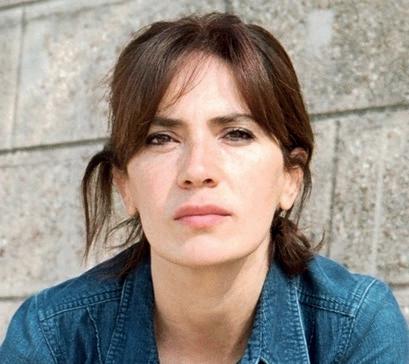
“It was really important for me to have time with the actors, and we were never in a rush,” the director continues. “The days were really full of work but we had time to talk, to search for something, to say, ‘I don’t like this, we have to do it again.’ We had space to imagine the story.
“The whole story is on the shoulders of the characters and the actors. Actors have the responsibility of their own character; they have to work alone, but I could answer their questions. Those actors are marvellous really, and I can see that in the editing.”
When it came to shooting the Frenchlanguage series – it was filmed mostly in the Swiss Jura mountains where the story is set –the director chose to depart from the style of
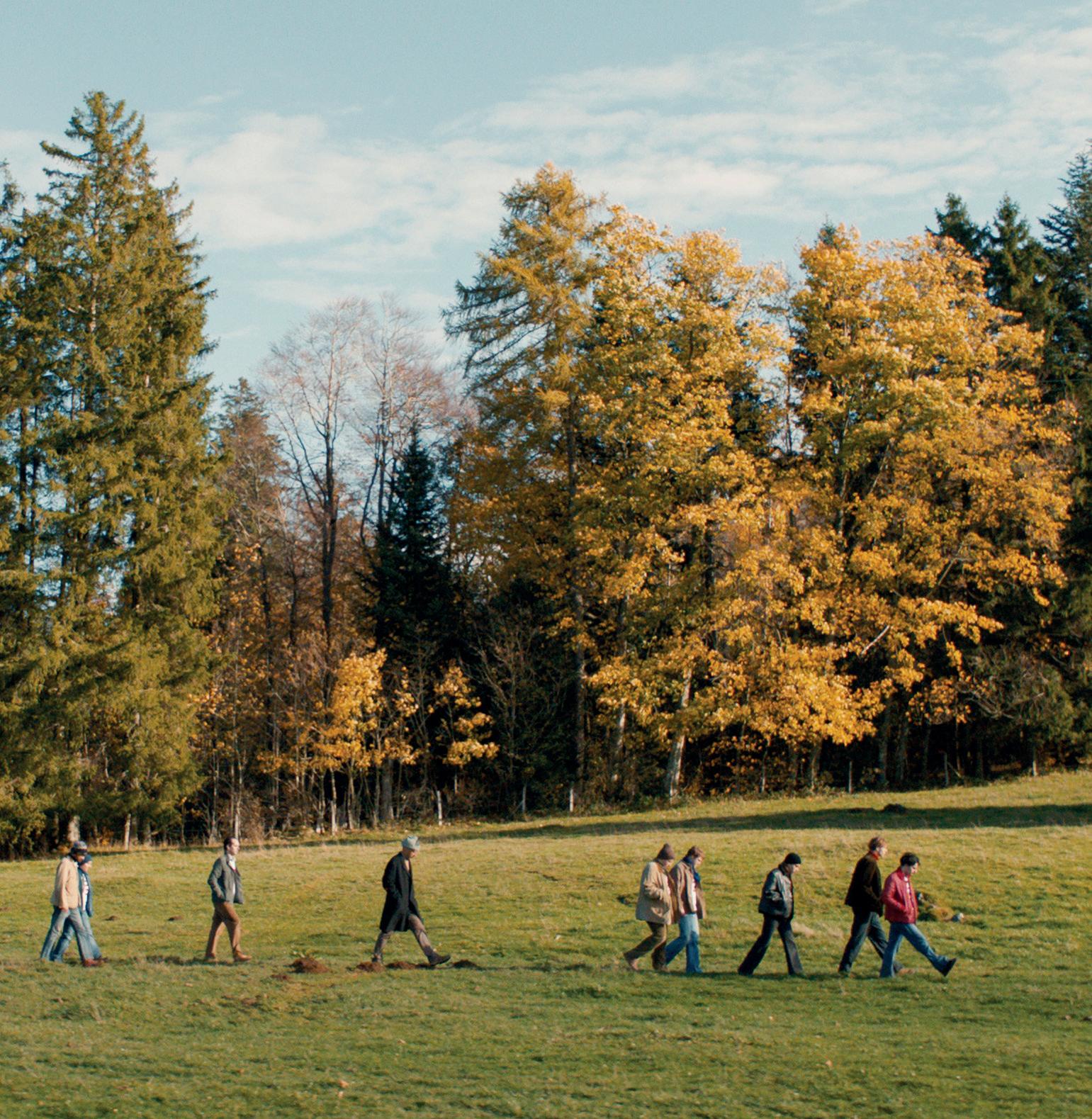
IN FOCUS: The Firebrands DQ . Spring 2023 30
Thibaut Evrard
Maya Sansa
The Firebrands journeys through the 70s, 80s and 90s, focusing on younger and older versions of its central characters
the graphic novels, largely as a result of introducing the drug-addiction element of the series, which affects the central characters’ paths.
“We were writing something more dramatic and more political. I realised we had an enormous responsibility, because you don’t tell the story of just little people in the country with farming – you’re telling the story of a country and the world, and what happened to people and what we do with those people who use drugs,” explains Lehericey, who also wrote the series with Joanne Giger, Aurélie Champagne, Olivier Volpi and Rebetez.
“It was important for me to have a naturalistic approach, like a documentary. I watched so much footage and then we met people who came from this period – politicians, former addicts and people who still use drugs 40 years later. I wanted an aesthetic that was not a brilliant, sexy, cool image of addiction but shows the reality of it. It’s your uncle, your sister, your mother, your friend – those people can be in your family, in your circle, and it was very important for me to stay in this reality.”
The director goes as far as to describe the series as “strange,” owing to the fact there isn’t a thriller device used to drive the plot forward. Instead, “we had to create the desire for the audience to stay with the characters. That’s what we worked on with the editors,” she says. “We are trying to do something with the timing and the rhythm to say to the viewer, ‘We are in a family together. I don’t want you to leave.’ I hope at the end of the fifth episode, people are going to feel like they have lost something they love. That is the ambition of the show.”
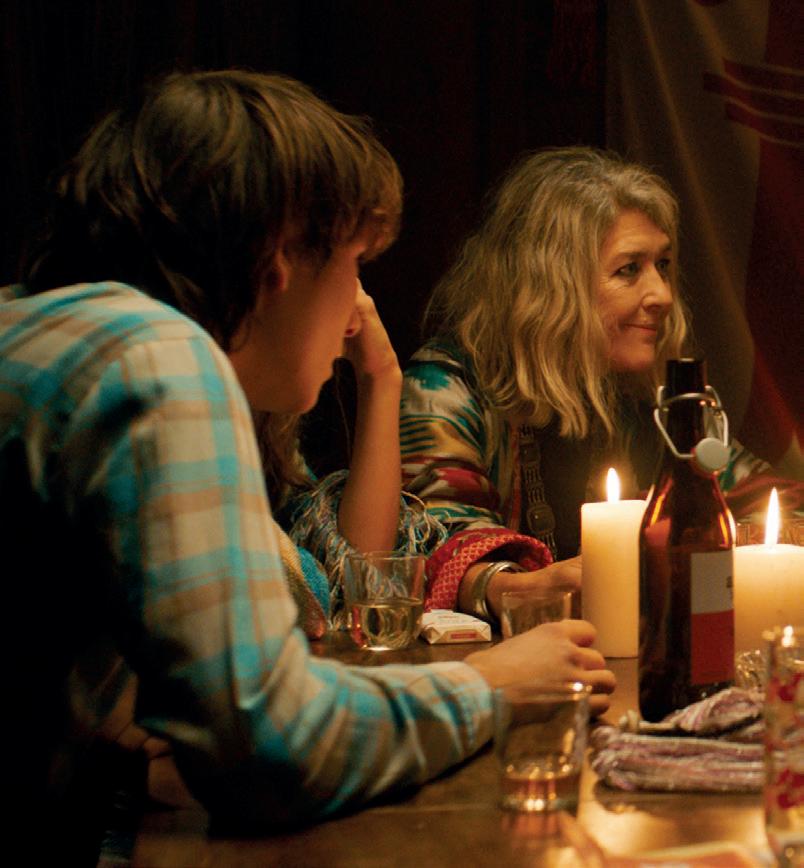

That ambition certainly challenged the cast to find ways they could relate to their characters, with numerous meetings being held between the actors and Lehericey to chart the way through what is

often an intense and emotionally charged story.
“It was like a moving dream through those three months [in production], where it’s never decided if I’m going to do this or that,” Evrard says. “Delphine has this way of doing things where she’ll give you a little anecdote or a hint of something before, which is an enormous bomb in what you had in mind and it changes everything. Then you just go with it and trust her. She knows the characters best; she’s been working on it for four years, so she has an idea of it, you have your idea and you try to find the right direction together.”
“Once you work with Delphine on the journey of the character, there’s a chemistry and alchemy that can be surprising,’ Sansa notes. “I felt we were searching together and trying to surprise each other in a good sense and avoid the obvious – not as an intellectual thing, but as a way to really let things happen and take what Delphine would give us in the moment. The actors she chose were definitely people we could work with. Nobody could come with a preconceived idea or a rigidity. That doesn’t allow you to be creative. It was a very inspiring space.”
The Italian actor could also relate to Chiara through her own experiences growing up in Rome during the 1980s, where she would often meet
drug addicts on her journey to and from school as a young girl.
“They were nice young men and women who were not well but they were very smiley. Sometimes they were like ghosts wandering around, but they were part of the community,” she remembers. “Playing Chiara was very touching for me. She allowed me to go back into this childhood and look at people in a different way and also get close to them again, understand them and be angry with them because maybe some of them didn’t make it. It’s been an intense journey full of joy but it echoed [my own life] somehow. People will have a lot of empathy for these different characters.”
The focus on character leads Sansa to say that The Firebrands is not a series that will feature cliffhangers at the end of every episode in a bid to keep viewers watching. Instead, audiences will follow three friends on a journey through the emergence of a drugs crisis in Switzerland, an event that led the country to introduce an innovative and radical drugs policy that has become a standard-bearer for the rest of the world. Switzerland’s ‘four-pillar model’ –prevention, treatment, harm reduction and law enforcement – has been credited with reducing the country’s overdose deaths by 50%, and new heroin users by 80%, between 1991 and 2010.
“We don’t imagine something really different,” Lehericey says of the series. “We just play with this format and with the opportunity to explore the characters. In a long feature, you don’t have all this time to build characters. But in a TV show with five episodes, it’s fantastic. This kind of saga is very moving, and that’s what we’re trying to do. This is not a crime story or something with a hospital. This is life.”
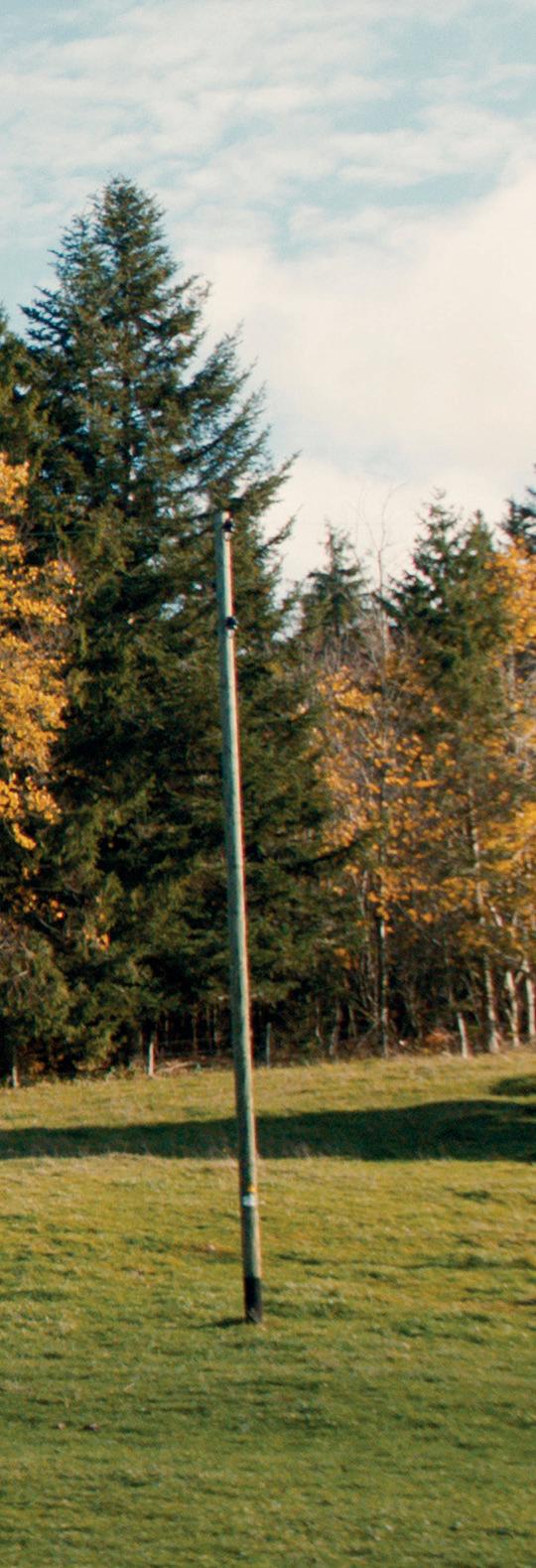
IN FOCUS: The Firebrands DQ . Spring 2023 31 DQ
The first time I read the scripts, I cried. And we all did when we read the five episodes together for the first time. Everyone melted – it was pathetic! It was something beautiful we had in our hands.
“ ”
Thibaut Evrard Actor
The trip to Westworld may be over, but co-creator and showrunner Lisa Joy is now watching the rise of AI play out in the real world. As she explains, there’s not much fiction in science-fiction anymore.

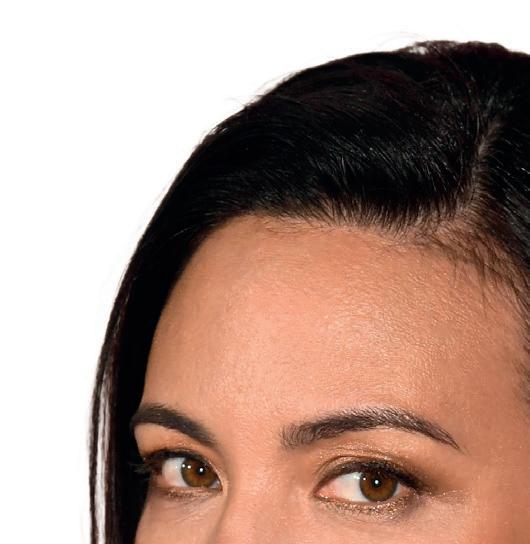
e JOY of SCI-FI A

fter four seasons, but before a planned fifth and final run, HBO closed the gates to Westworld earlier this year. In a television industry where budget and ratings go hand in hand, in the end, the numbers didn’t add up for a show that became an instant sensation when it launched in 2016.
Created by husband-and-wife showrunners and writers Jonathan (Jonah) Nolan and Lisa Joy, was based on the 1973 film of the same name and begins in a Wild West theme park populated by android hosts who are there to serve and facilitate the guests’ every wish and desire, from the mundane to the sexual and violent.
With a high-profile cast led by a host of Hollywood stars including Anthony Hopkins, Ed Harris, Evan Rachel Wood, Thandiwe Newton, Jeffrey Wright, Tessa Thompson and James Marsden, the show left the confines of the park at the end of S2. The action then took viewers into a futuristic world dominated by technology for its third and fourth runs, adding Breaking
’s Aaron Paul and French star Vincent Cassel to the cast along the way.
“Any time anything ends when you’re as creatively invested in it as Jonah and I were in that, of course it’s sad for us and for the family and community we built there with our amazing actors and crew. I will always be looking for excuses to work with each
of them again,” Joy tells DQ. “There’s never any guarantees that a show lasts forever or that a show even gets on the air. I just feel very lucky to be able to create the worlds that I create to whatever extent they get realised.”




















When it comes to creativity, Westworld wasn’t in short supply as viewers were whisked between an immaculately realised western-themed park and the ‘real’ world in the 2050s, and also introduced to a huge ensemble of characters – both human and humanoid. The show also tackled big themes such as memory and consciousness, control and free will, and the very definition of human nature. The series was also known for its complexity, with fan theories abounding as audiences attempted to solve the mysteries at the heart of the story.
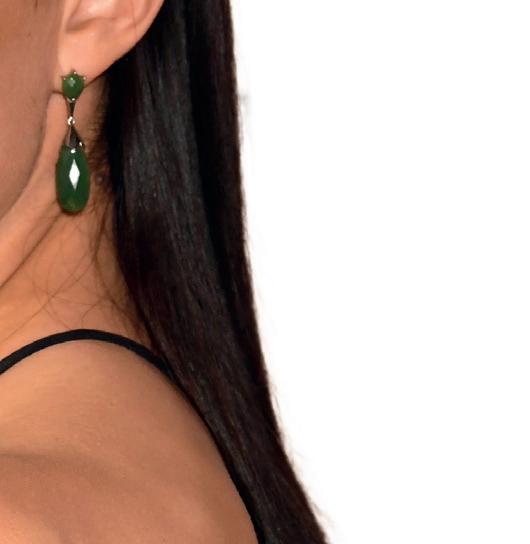
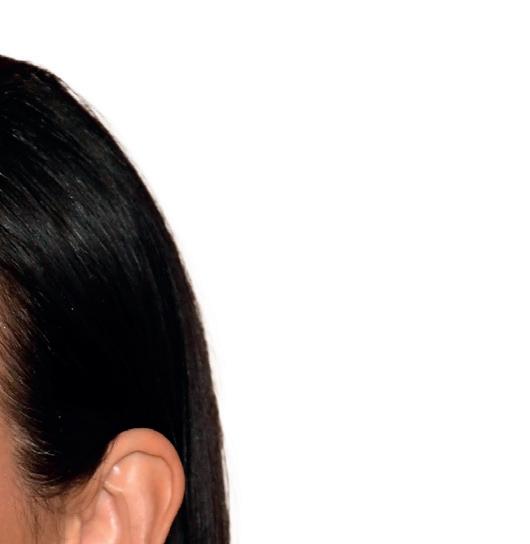
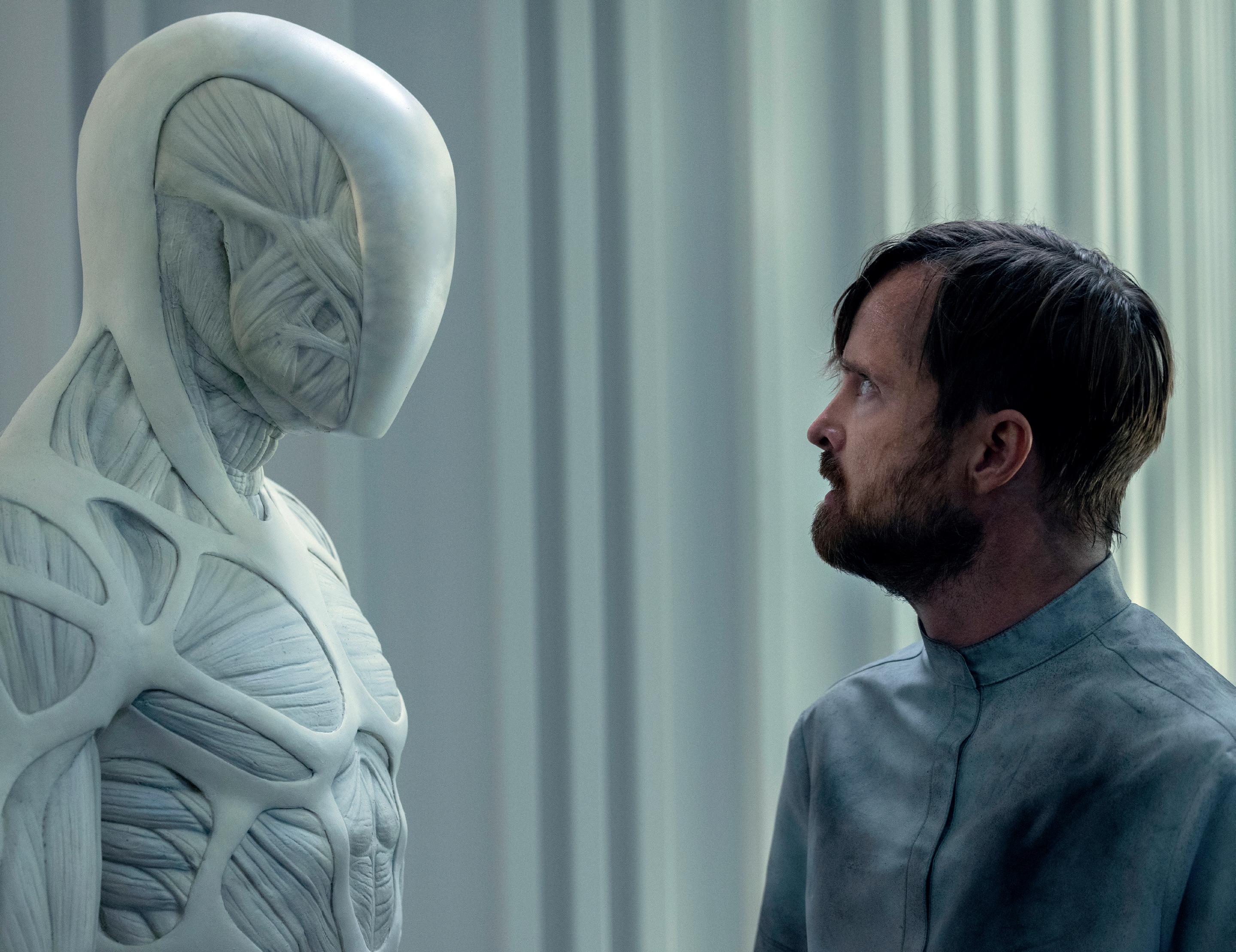
Westworld was a show born around the same time as Nolan and Joy had their first child together. By that time, the pilot had been written and most of the action for the first season had been laid out, as well as some significant tentpole moments signalling where they wanted the series to go next.
“With something that’s telling a mythology like Westworld, it’s important to have a sense of the roadmap before you get going – but there’s still a lot of creativity that happens along the way,” Joy says. “As you write characters and as you get to see them performed by the actors, it opens up all sorts of new inspirations and new dynamics to explore.
Aaron Paul in Westworld
Westworld begins Wright, a Bad way.
Lisa Joy
“Jonah directed the pilot so we got to put together a wonderful crew and set the aesthetic and general tone for the show. After that, we brought in incredible writers to help us fill in the seasons and write on episodes. That’s always a delight to have new voices and new eclectic ideas to choose from and work with. It was truly a wonderful experience. I feel so lucky to have had it.”
Writing the pilot in a time before the #MeToo movement, Joy says she was thinking about “life as a woman” and some of the difficulties she had faced working in a male-dominated industry. “A part of it was really expiation for feeling a bit trapped, feeling alone and a little gaslit in some of these situations I’d been in,” she explains. “Writing Dolores [played by Wood] and Maeve [Newton] helped me find a strength and a closure to get through some of that, as well as seeing how Evan and Thandiwe embrace their characters and just embody them. That also gave me a real feeling of community and solidarity.”
When it came to dramatising advancements in AI, “extreme nerds” Joy and Nolan leaned into their fascination with technology, the sciences and futurism to flood Westworld with the curiosity they had for emerging tech and how it might shape the face of culture in the years ahead. “We knew as we were writing it, almost eight years ago, that AI would actually be one of the defining issues, if not the defining issue, of our generation. This massive sea change is coming, and it’s going to take root and revolutionise things faster than we really anticipate,” Joy says. “It’s not actually just a science-fiction abstraction; we’re about to feel very real-world repercussions of evolving AI.”
That much is true in the rapid take-up of AI software such as ChatGPT and Bing’s chatbot, which Joy greeted on Twitter with the message: “Welcome to Westworld!”
Looking back to when she was writing the series, she says her concern wasn’t so much the hackability of machines but of humans. “You just needed to understand humans’ core drives – a thing we played with in Westworld – and play to them, and you can see from the manipulation of social media and targeted advertising how we’re easily played,” she notes. “AI is a powerful tool. It’s getting more and more powerful. But my point has always been it doesn’t even need to be that powerful to affect humans, civilisations, nation states and cultures.
“Now we really have to face up to the super intelligence that is imminently going to permeate our world and ask how do we control that? How do we legislate that? How do we interact with that? How do we put safeguards on that?”
It might seem like the perfect theme for a new sci-fi series, “but I keep trying to tell people, it’s really not sci-fi. There’s not a lot of ‘fi’ in futurism anymore. It’s just ‘sci.’ We’re going to have to start addressing some of those things quite soon.”
As executive producers, Joy and Nolan are now overseeing the second season of Prime Video’s The Peripheral, a story set in a future society altered by technology where a gamer (Chloë Grace Moretz) discovers a path into what she thinks is an alternate reality. Scott Smith is the showrunner for the series, which is based on the book by William Gibson.
They also developed Prime Video series Fallout, a post-apocalyptic series based on the video game of the same name, on which Nolan has recently wrapped directing the first few episodes. As well as writing and producing, Joy has also shifted behind the camera to direct episodes of Westworld and her first feature film, 2021’s Reminiscence, which she also wrote.
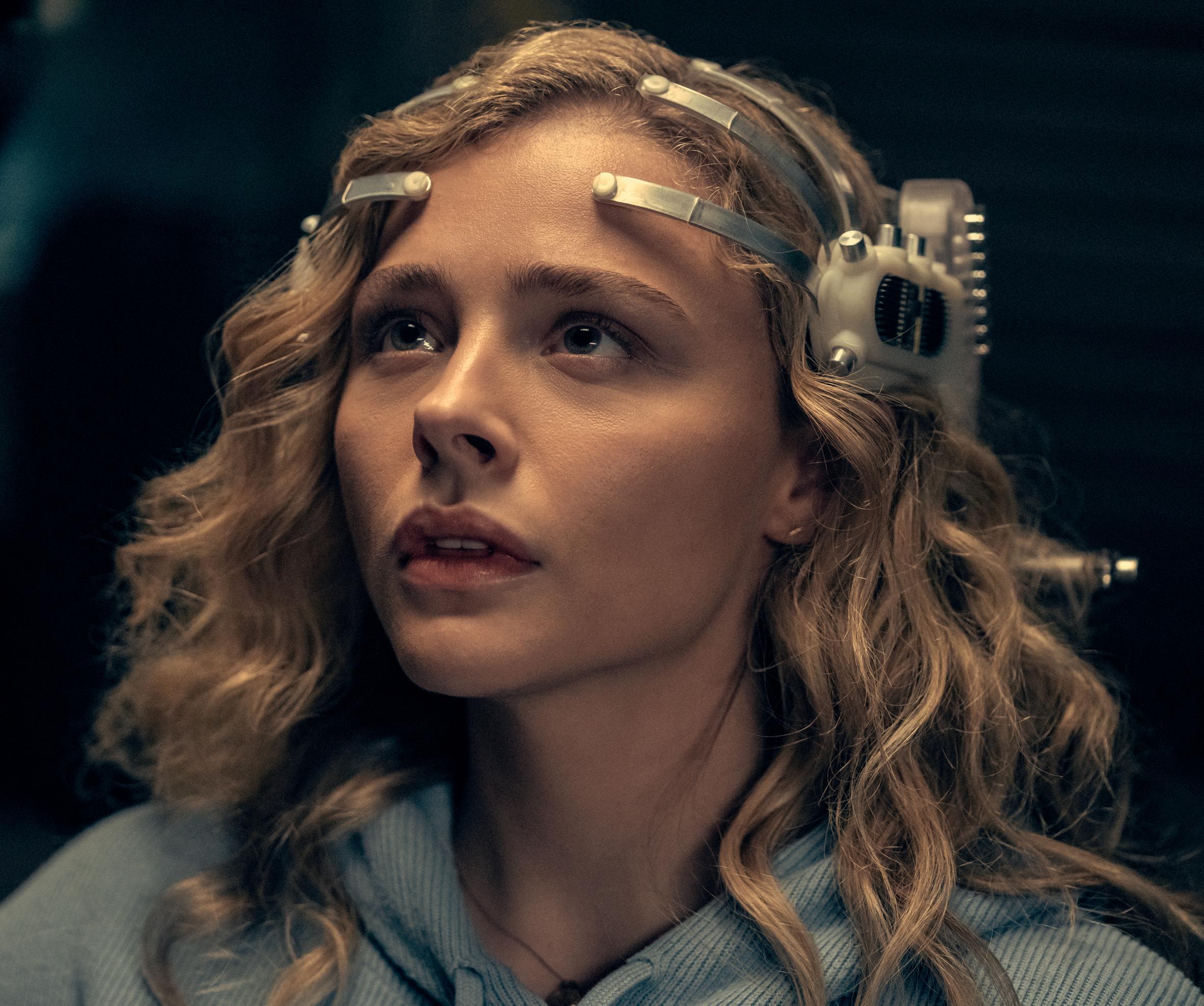
“I definitely want to direct more, but it’s hard for me to direct things I don’t write,” she says. “Writing
is the most foundational aspect of prep. Once you get into prep, you only have a certain number of weeks before you’re shooting. But when you’re writing, in your head, you’re designing the entire world and you’re blocking the characters already.
“It’s a time saver because you can direct with a little more efficiency, which is helpful because most of the stuff I’ve done, because it’s been a little more experimental, has not had the same budget level as something a little more down the middle. To still get a sense of scope, you have to be crafty about how you plan your days, so that long lead time of prep as a writer has certainly helped me in that endeavour.”
Joy is now looking forward to watching more TV as she prepares to serve as jury president for the international competition at the 2023 edition of French television festival Series Mania. When it comes to looking across the wider industry, she is particularly excited about the emergence of “wild and free” new voices being given the chance to tell their own stories.
“I love that there’s a bunch of different weirdos with unique viewpoints from all over the globe with all sorts of experiences telling their stories, and it’s the kind of thing no one but them could write,” she says. “When I see something like that, it just fills me with awe. They’re truly opening up another universe for me that otherwise I would never get to witness or imagine. It’s humbling and deeply exciting to see all those new voices and the worlds they create.”
SHOWRUNNER: Lisa Joy DQ . Spring 2023 33 DQ
We
knew as we were writing Westworld, almost eight years ago, that AI would actually be one of the defining issues, if not the defining issue, of our generation.
“ ”
Lisa Joy
Joy is an exec producer on The Peripheral, which stars Chloë Grace Moretz
In the first part of the DQ100 2023/24, DQ picks out a range of shows to tune in for and the actors, directors and writers making them, as well as some of the trends and trailblazers worth catching up with.
IWAN RHEON
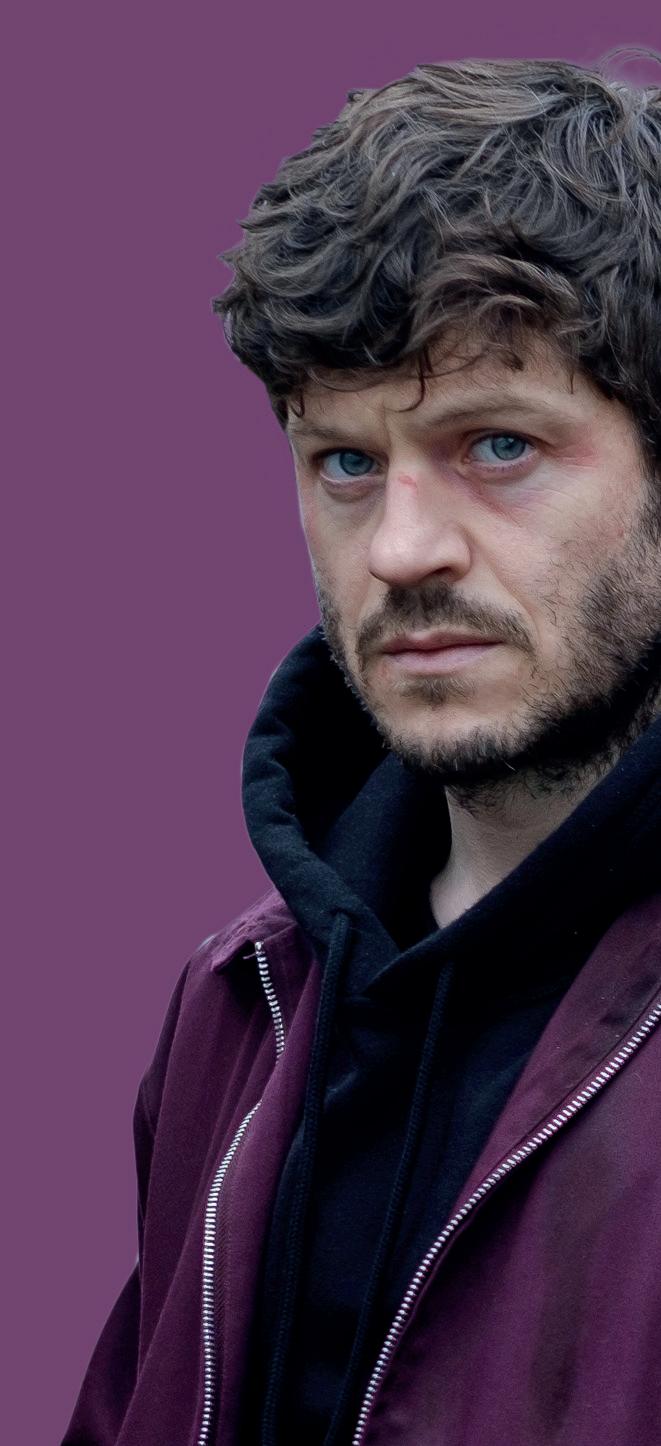
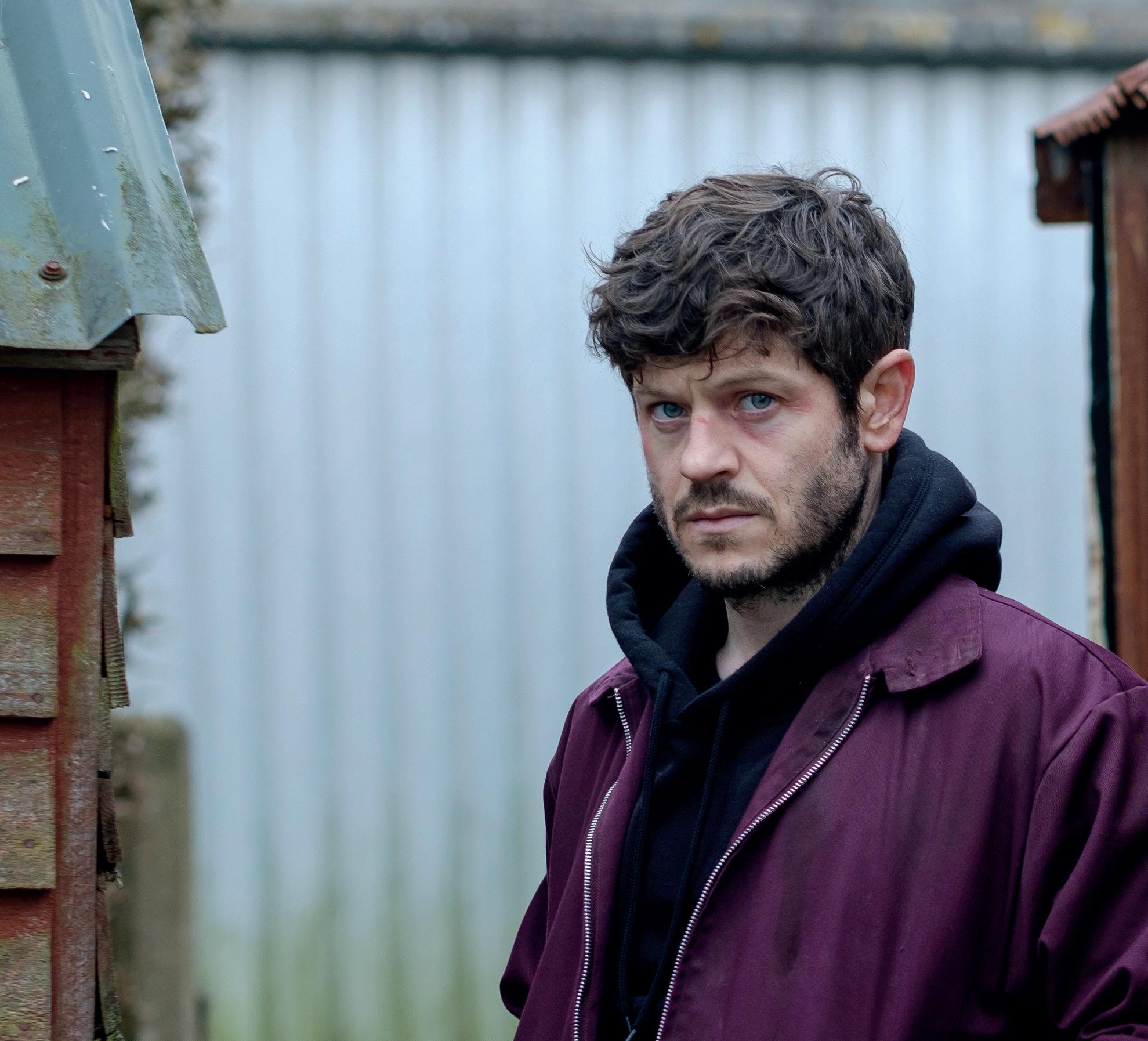
HAVING MADE HIS NAME AS THE WICKED AND CRUEL RAMSAY BOLTON IN OF THRONES, Welsh actor Rheon recently appeared in 2022’s wellreceived Welsh drama The Light in the Hall (pictured). This year he will star in two BBC projects. The first is Wolf, a crime drama based on the novels by Mo Hayder about a detective drawn into a terrifying game with a psychopath. He will also head the ensemble cast of Men Up feature-length drama based on the world’s first medical trials for the drug that became Viagra, held in Swansea’s Morriston Hospital in 1994. Rheon plays Meurig Jenkins, one of a group of men all suffering from impotency and given the chance to take part in a trial for an unknown drug that may hold the key to reigniting their spark.
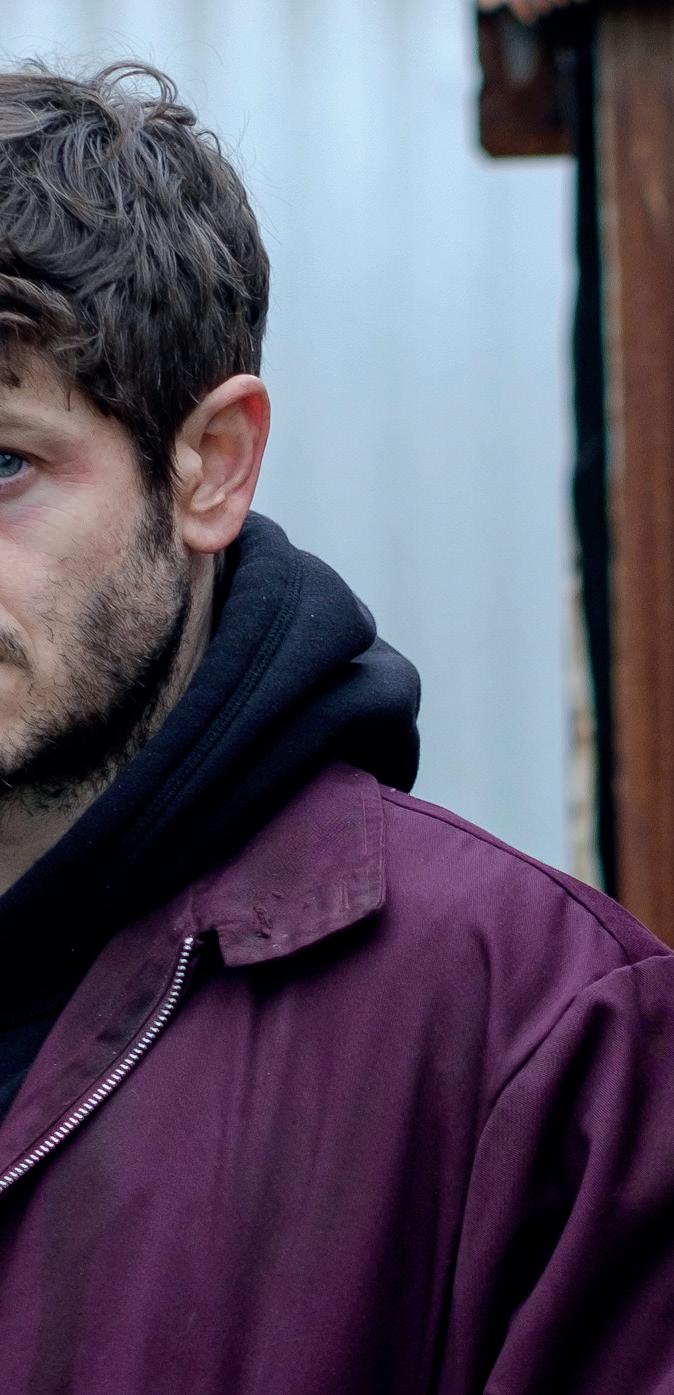
a

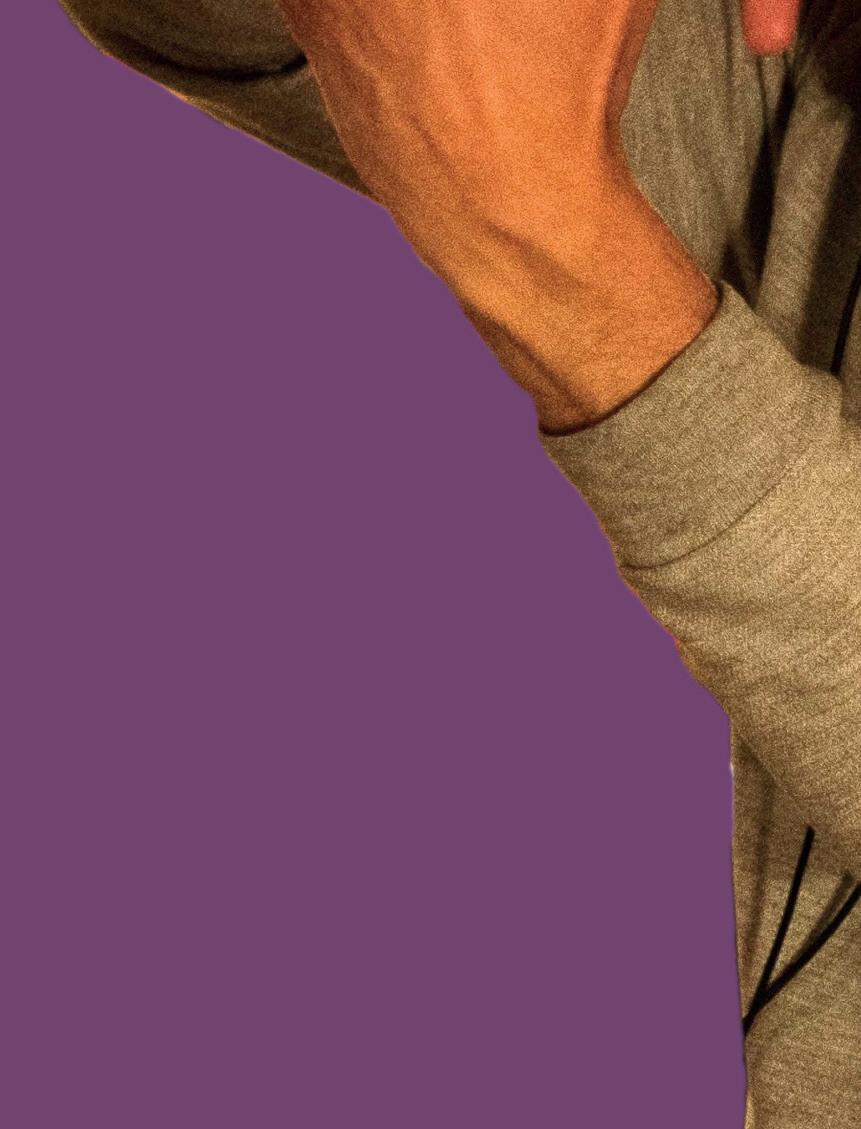
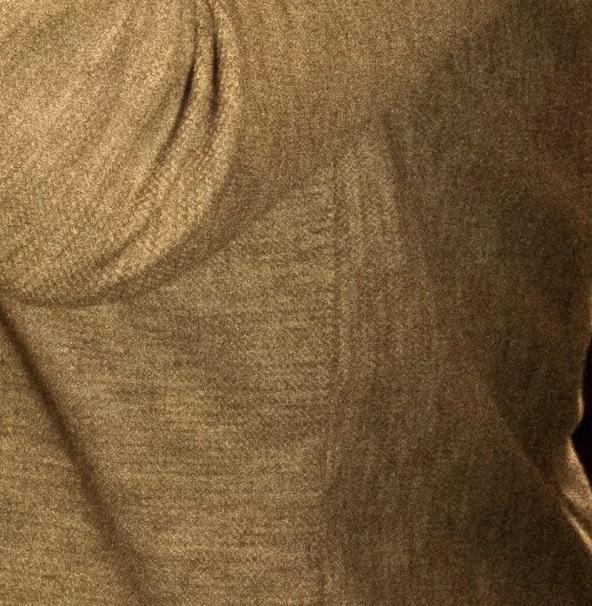












































JOAN AZHUR SALEEM
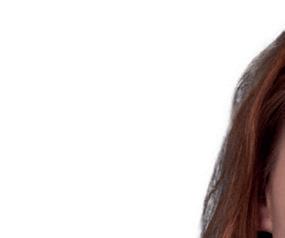
A LONDON FILM SCHOOL GRADUATE WHO WORKED ON 2021’S DOCTOR WHO FLUX, Saleem’s work will soon be seen in Prime Video’s Anansi Boys and ITV drama After the Flood. Based on Neil Gaiman’s book of the same name, Anansi Boys follows Charlie Nancy (Malachi Kirby) who discovers his father was Anansi, trickster god of stories (Delroy Lindo), and that he has a brother, Spider (also Kirby), who is determined to make Charlie’s life more interesting and a lot more dangerous. Meanwhile, After the Flood is a mystery thriller set in a town hit by a devastating flood. When an unidentified man is found dead in a lift in an underground car park, police assume he became trapped as the waters rose. But as the investigation unfolds, PC Joanna Marshall (Sophie Rundle) becomes obsessed with discovering what really happened to him.
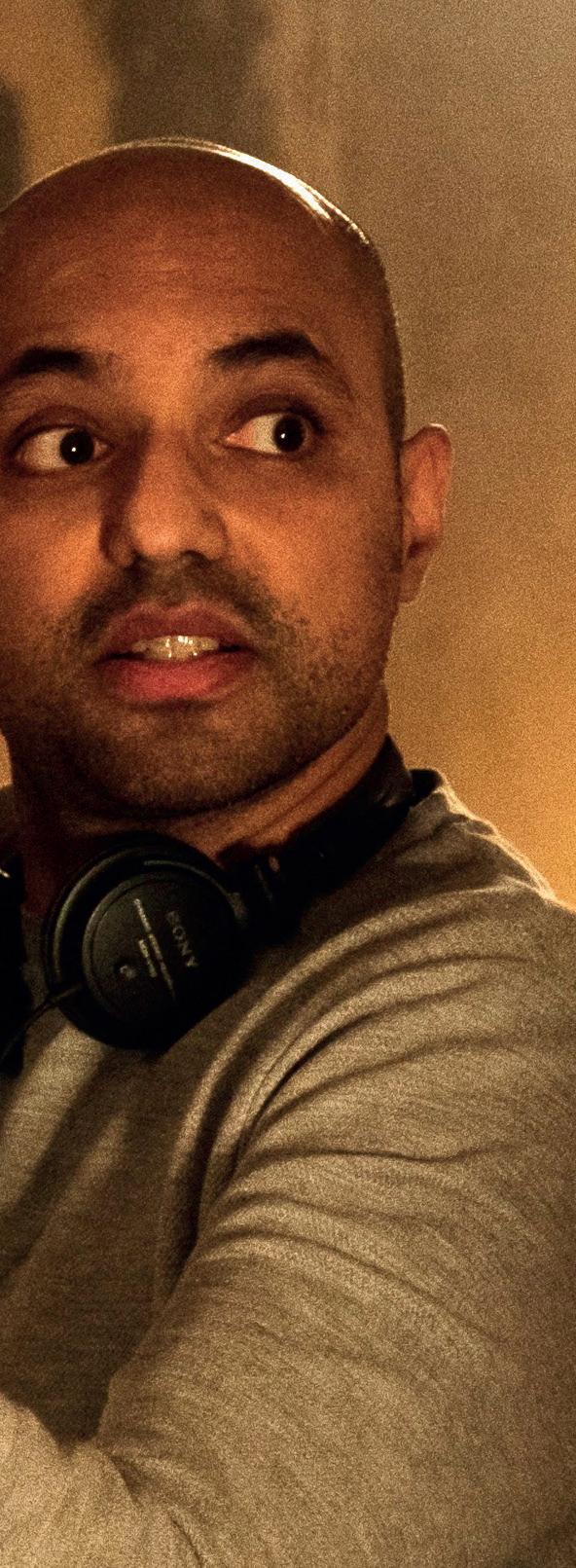
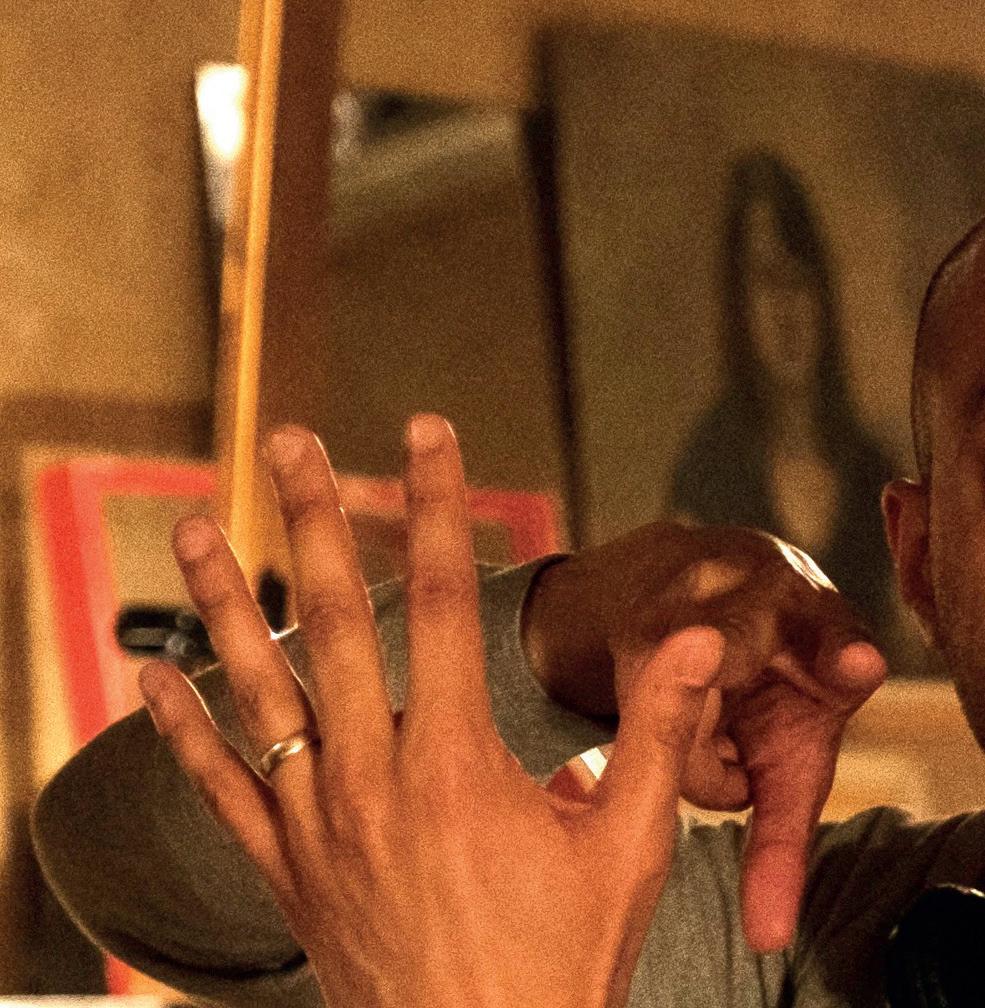
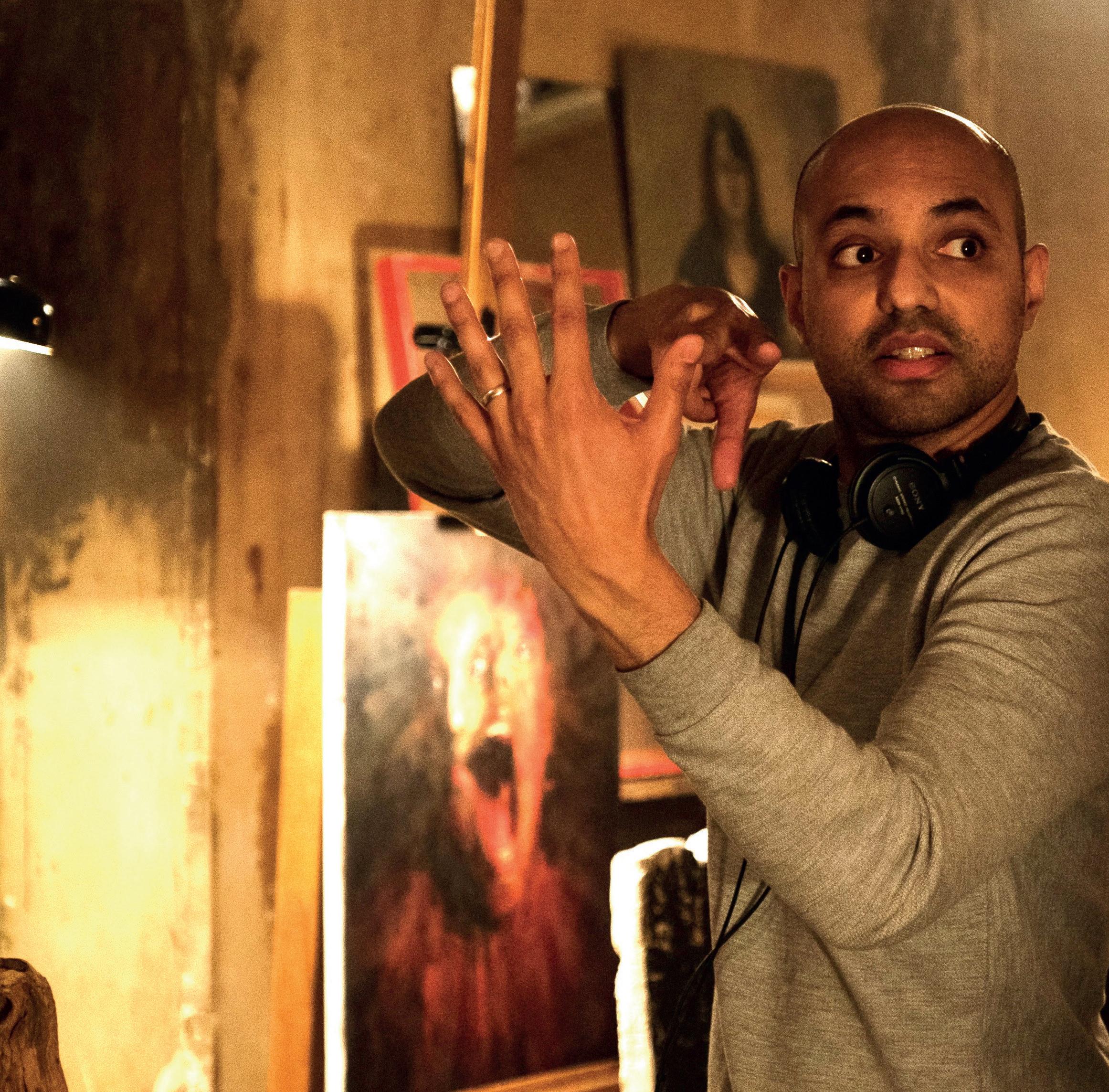
THIS ITV DRAMA STARS ANOTHER ACTOR WHO SHOT TO FAME THANKS TO GAME OF THRONES, Sophie Turner, who plays notorious reallife jewel thief Joan Hannington. Set in the 1980s, the six-parter will trace Hannington’s rise from petty offender to highly talented diamond thief and criminal mastermind. Making full use of her sharp intelligence, charm and her talent for impersonation and performance, Hannington experiences ups and downs, heartache and joy as she strives to escape a violent marriage and create a better life for herself and her daughter. Hannington herself has spoken with writer Anna Symon to inform the drama.

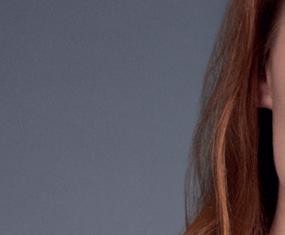

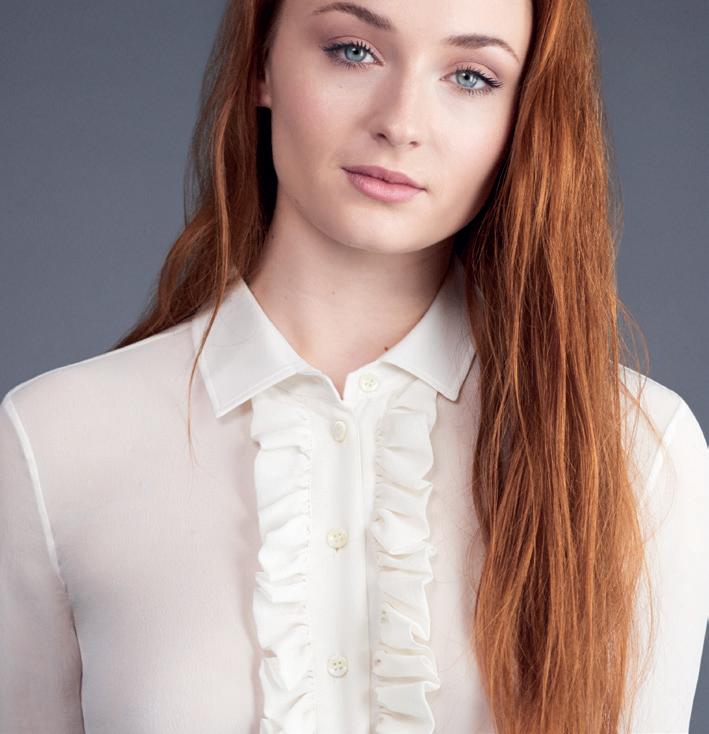
ONES TO WATCH: DQ100 DQ . Spring 2023 34 100
,
KWAME KWEI-ARMAH
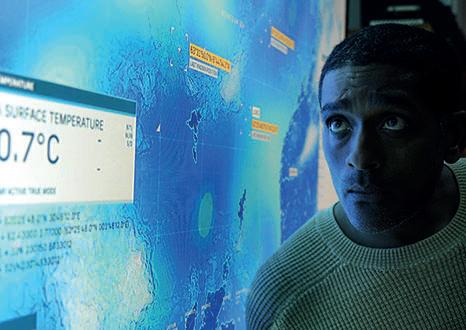

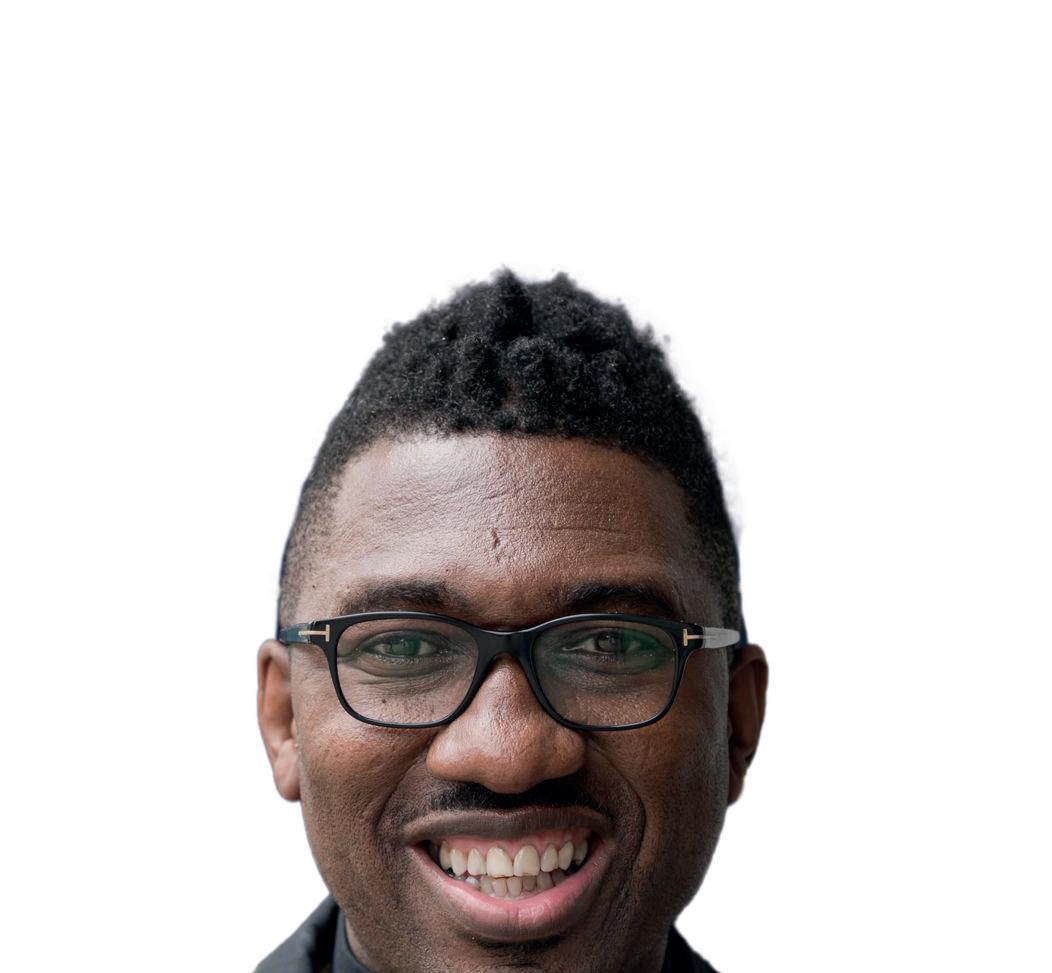
PLAYWRIGHT AND YOUNG VIC ARTISTIC DIRECTOR KWEIARMAH (ELMINA’S KITCHEN, BREAKING) IS BEHIND FASH, an ITV series described as an unflinching, vital and deeply thought-provoking factual drama about the complex and conflicted relationship between two brothers and the institutional prejudices that tore them apart. The story focuses on Justin Fashanu, who became the first black British footballer to be sold for £1m and the first professional footballer to come out as gay. He later committed suicide at a time when he was completely estranged from his younger brother, fellow pro footballer John Fashanu.
THE LAST OF US
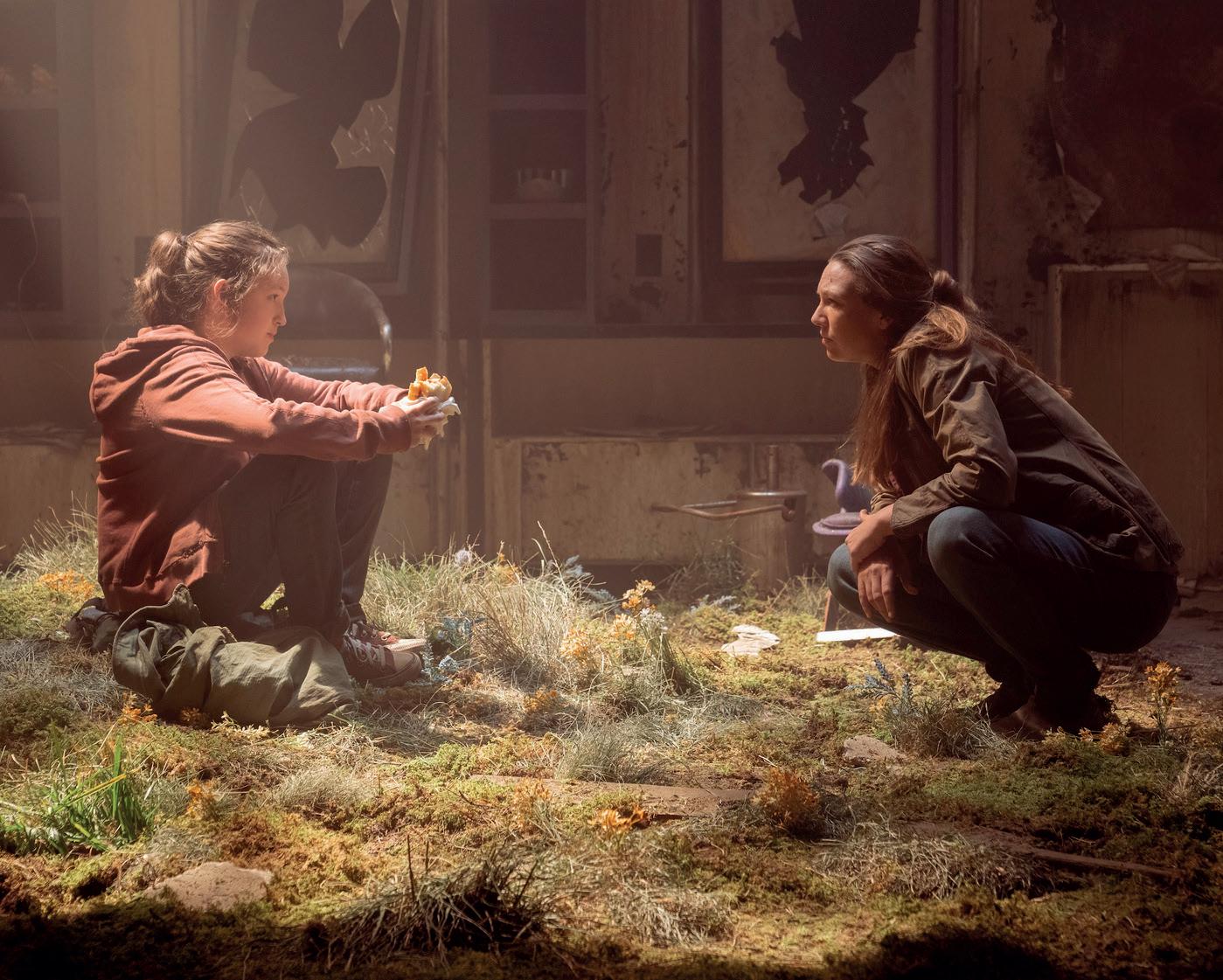
VIDEO GAME ADAPTATIONS HAVE HAD A ROCKY HISTORY ON THE BIG AND SMALL SCREENS, whether it’s Halo, Sonic the Hedgehog, Street Fighter, Mortal Kombat, Resident Evil or Super Mario Bros. HBO drama The Last of Us could lay claim to being the best yet, taking the hugely successful post-apocalyptic premise and successfully transferring it to television with a blend of action, nail-biting tension and deeply emotional scenes that put character front and centre. Set in 2023, 20 years into a pandemic that transforms people into hosts for fungal parasites and leads to the collapse of society, it follows hardened survivor Joel (Pedro Pascal), who is tasked with escorting teenager Ellie (Bella Ramsey) across the US.
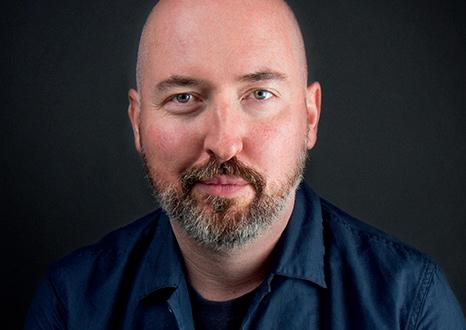
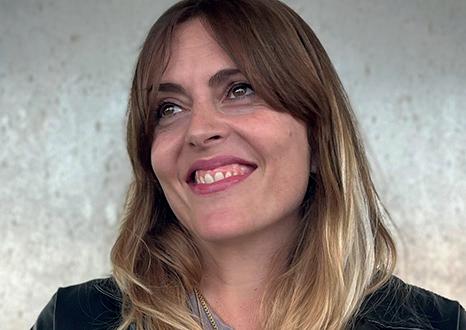
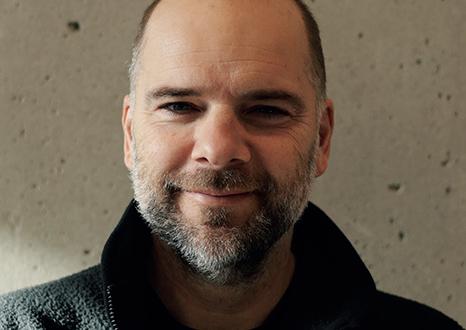
HEAD TO DRAMAQUARTERLY.COM FOR THE REST OF PART ONE OF THE DQ100 2023/24, FEATURING...
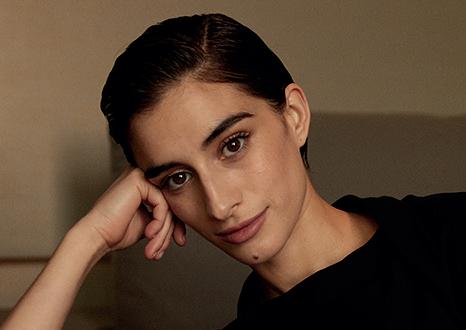
ACTORS
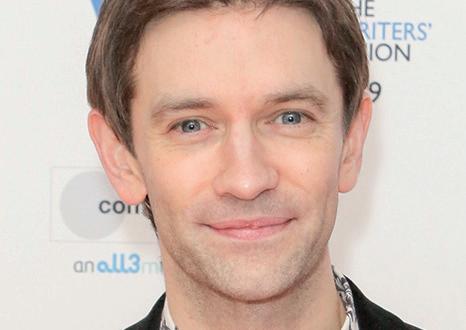

Siobhan Cullen, Varun Dhawan, Michela de Rossi and Colin Morgan
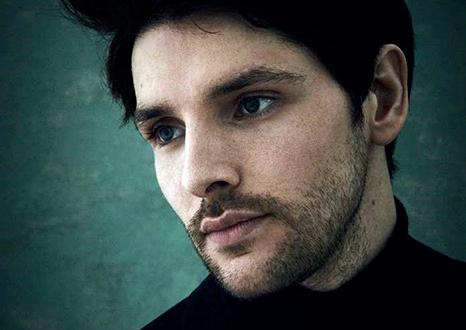
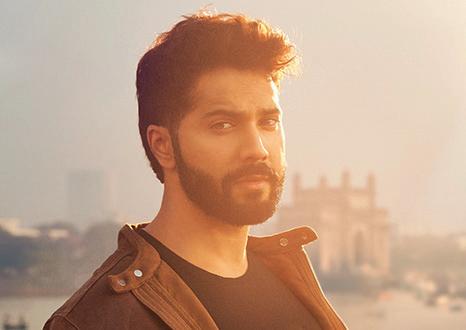
DIRECTORS
Ginesta Guindal, Joakim Eliasson, Sophie Deraspe and Meenu Gaur
WRITERS
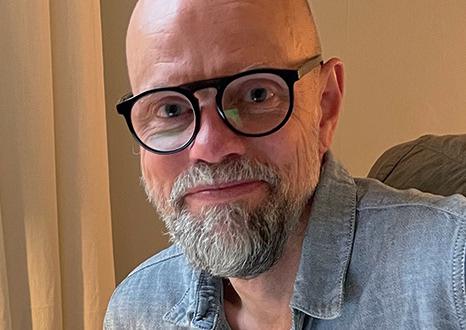
Jesper Harrie, Douglas Stuart, Felicity Packard and Jakob Rørvik
SERIES
Inspector Singh, Nightsleeper, Rematch and Blue Cage
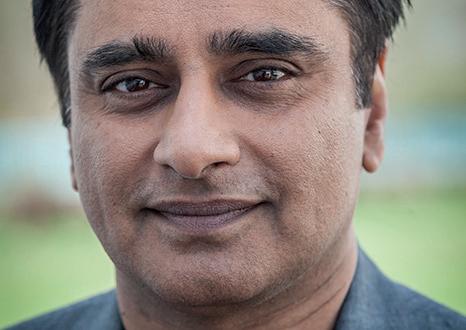
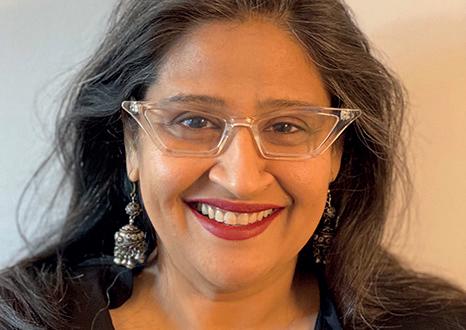
TRENDS & TRAILBLAZERS
Racquet sports, Emma Moran, Eco thrillers and Ukraine
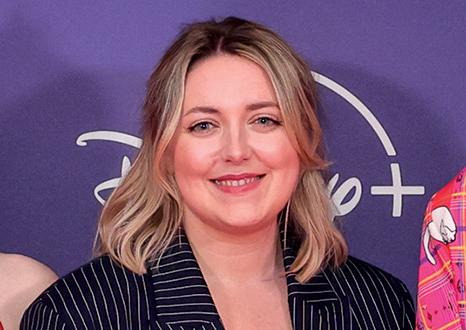

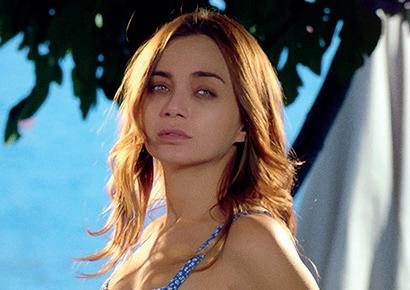
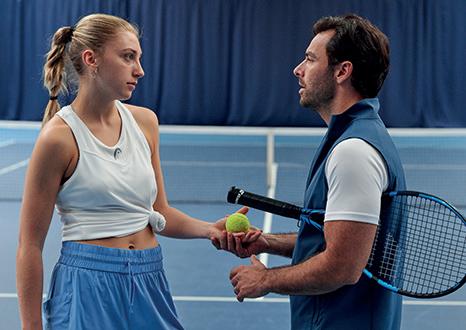
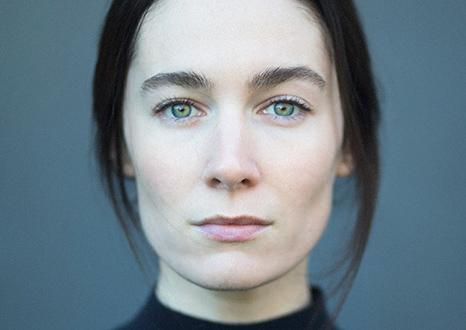
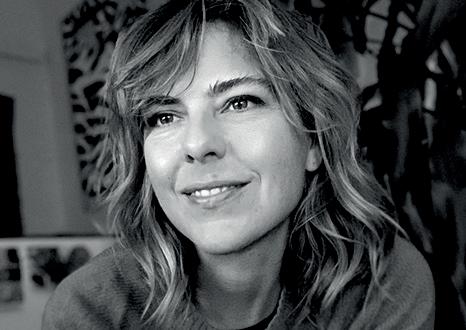
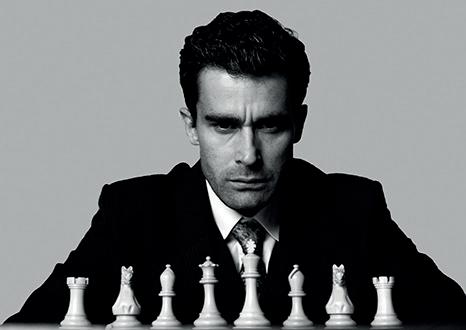
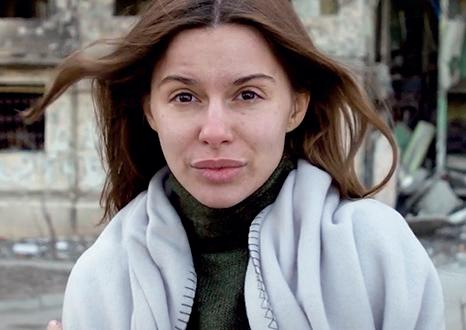

ONES TO WATCH: DQ100 DQ . Spring 2023 35
REMADE ABROAD








Deepak Dhar, founder and CEO of Banijay Asia, reveals how hit BBC series The Night Manager, based on the novel by John le Carré, was translated for Indian audiences.
What was the appeal of making an Indian version of The Night Manager?
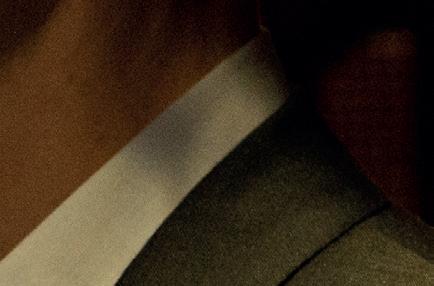
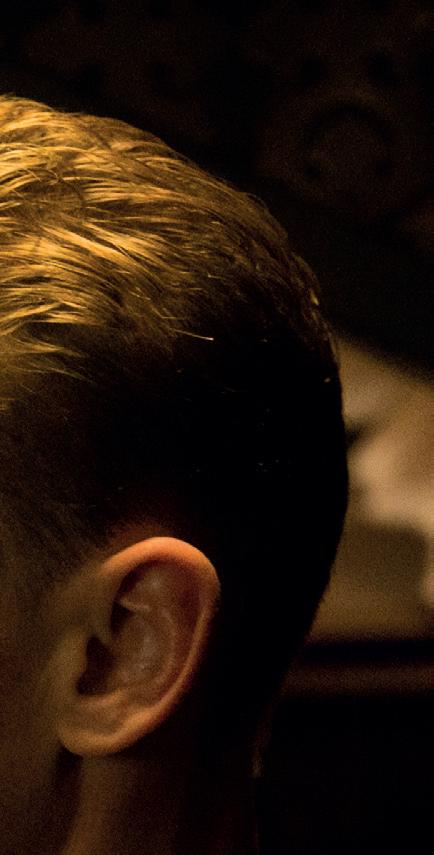

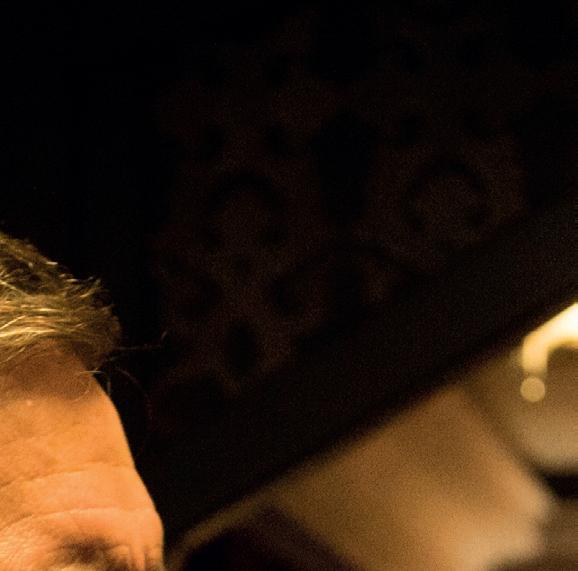
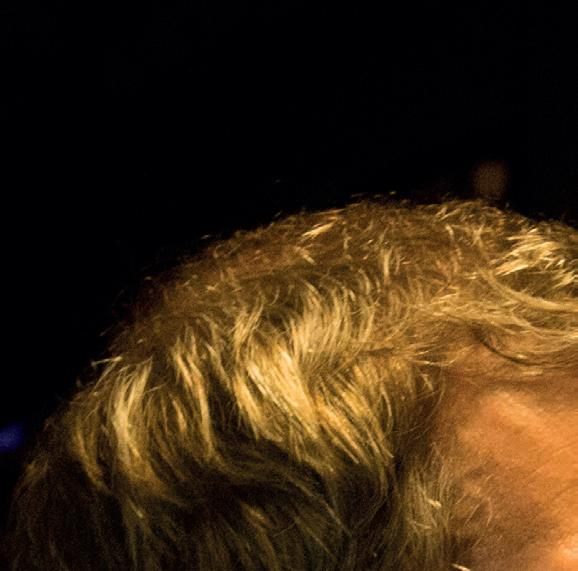
The Night Manager is a widely loved story by John le Carré and the original adaptation in the UK was very well received. The story has substance, a strong narrative arc and is full of emotion.
The market for remakes is ripe, with the Indian diaspora having now opened up to a multitude of international adaptations. We have seen how successful they can be with series such as Hostages and Call My Agent: Bollywood, which we produced for Netflix. We also have a host of original formats in our pipeline, as well as adaptations of The Good Wife, House and Monk, to name a few. What these shows all have in common are compelling stories that are significant and relatable. In this vein, The Night Manager, with its marvellous legacy, was therefore a no-brainer to adapt in India.
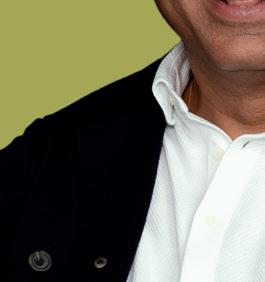
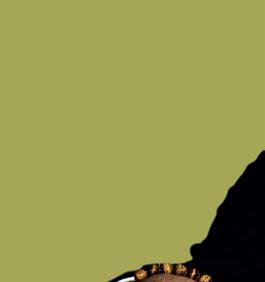
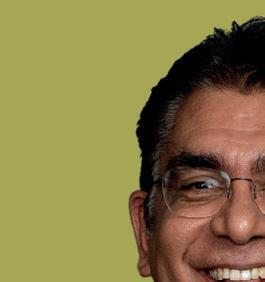
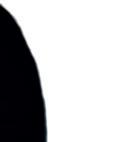

What elements of the original series impressed you most?
The Ink Factory’s original show did a fantastic job in setting up the characters and working with multiple nuances. From an unassuming Jonathan Pine [Tom Hiddleston] walking into the den of Richard Roper [Hugh Laurie], to the intricate web of lies laid down within the plot, there were many aspects of the story
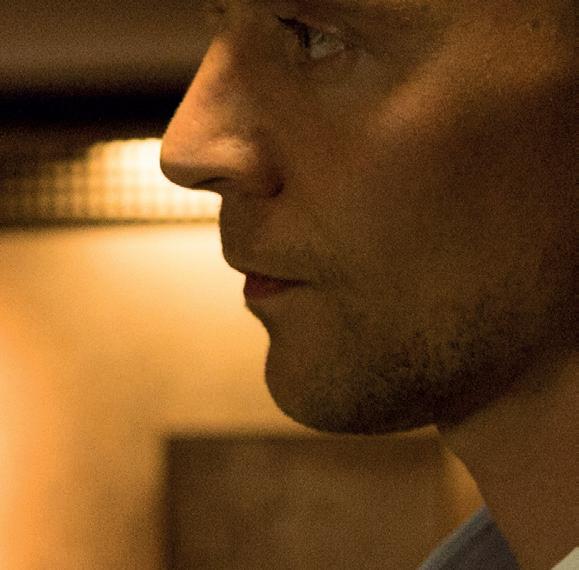

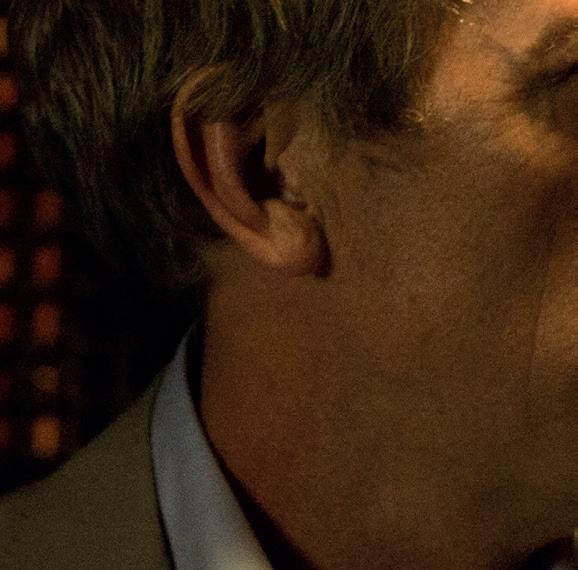
that jumped out at us. The extremes and the dichotomy of the worlds are what drew us in further, and that’s how the story of the adaptation started.


What were your initial thoughts about how it should be adapted for local viewers?
At Banijay Asia, we are always looking for content that is relatable; stories that need to be told, tap into the very emotions of our country, are relevant and take into account the geopolitical situation.
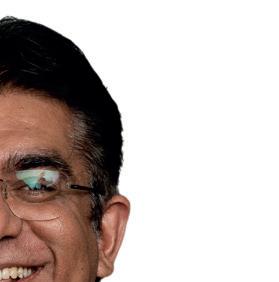
Adapting The Night Manager for Disney+ Hotstar was a rigorous process even with very clear hook points vis-à-vis the depth of characters, the violence of war and the dichotomy of two worlds. We have strived since day one to connect the stories to our homeland. Our director Sandeep Modi and co-director Priyanka Ghosh did an outstanding job with the vision and execution, along with the writing

team, headed by Sridhar Raghavan, who adapted the screenplay, and Shantanu Srivastava and Akshat Ghildial, who added their nuances to the dialogue to create a story that resonates. We also had the opportunity to work with Simon Cornwell and Tessa Inkelaar from The Ink Factory, who we could bounce ideas off and make sure we were staying true to the format. It was a labour of love, but we were armed with their international expertise and our local understanding.
How did you use the original scripts – and John le Carré’s novel – to build the series? The original British show and the novel by John le Carré were our blueprints for the underlying emotions. The intensity and gravity of situations cannot be trivialised in the process of localisation. We have, therefore, created something as true to the original as possible while making it relatable to a very different time, demographic and culture.
How would you describe the writing process?





It was very rigorous. We were working with The Ink Factory and there was an extensive writers room, headed by Sridhar and Sandeep. It took over a year of writing, rewriting and going back to the board to finalise the adapted screenplay for the show. It was a learning experience and an amalgamation of creativity, as we wanted to convey international sensibilities as well as local emotions.
What kind of look and style does the series have, and how was this achieved?
This was a huge-scale production
END CREDITS: Remade Abroad DQ . Spring 2023 99
Hugh Laurie (left) and Tom Hiddleston in the original version of The Night Manager
Adaptations push us a little more towards a world where content travels across borders, and people connect with it because you adapt it to their sensibilities.
“ ”
Deepak Dhar
The Night Manager
with exceptional acting talent like Aditya Roy Kapur and Anil Kapoor, but at the same time we wanted to make it realistic and grounded. The den of the antagonist [Kapoor’s Shelly] needs to convey the depth of betrayal, lies, deception and duplicity in the story.
The award-winning Benjamin Jasper was our director of photography and, having worked on War and Bang Bang , he has extensive experience in creating dynamic, actionpacked worlds. We also had a brilliant team of production designers led by Saini S Johray and N Madhusudhan. Adding to them a very dedicated team of writers helmed by Sridhar and directors Sandeep and Priyanka, we have created a story, told by a very talented team, that will have you on the edge of your seat.
How did you cast the series and were the performances in the original show a factor in your decisions?
We wanted to stick to the original as much as possible while bringing in the Indian emotion that works for our audience.
We were on the lookout for an actor who could portray the intensity of the unassuming night manager whose innocence camouflages his intense past. Aditya Roy Kapur fit this role like a glove. And Anil Kapoor is a legendary star and a brilliant performer – working with him was a masterclass every day and he truly embodied the role of Shelly.


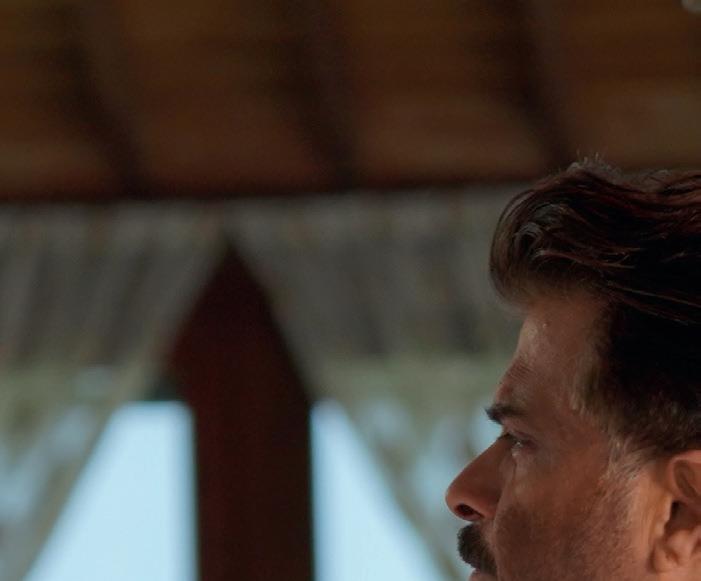
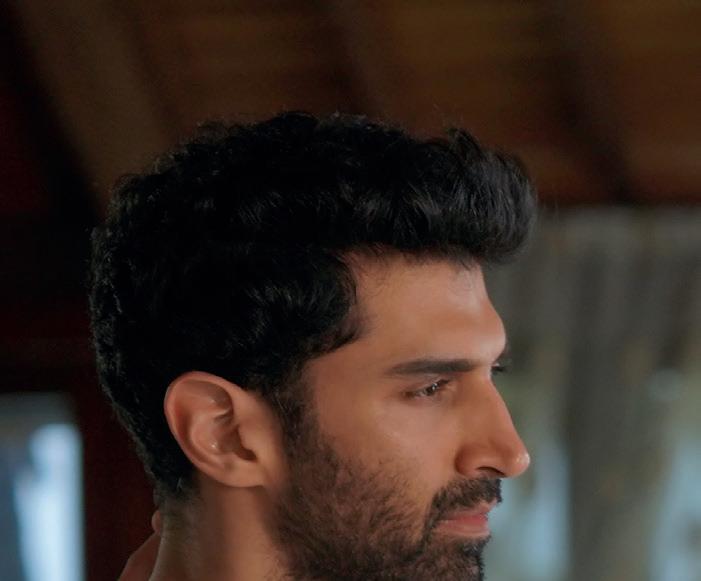
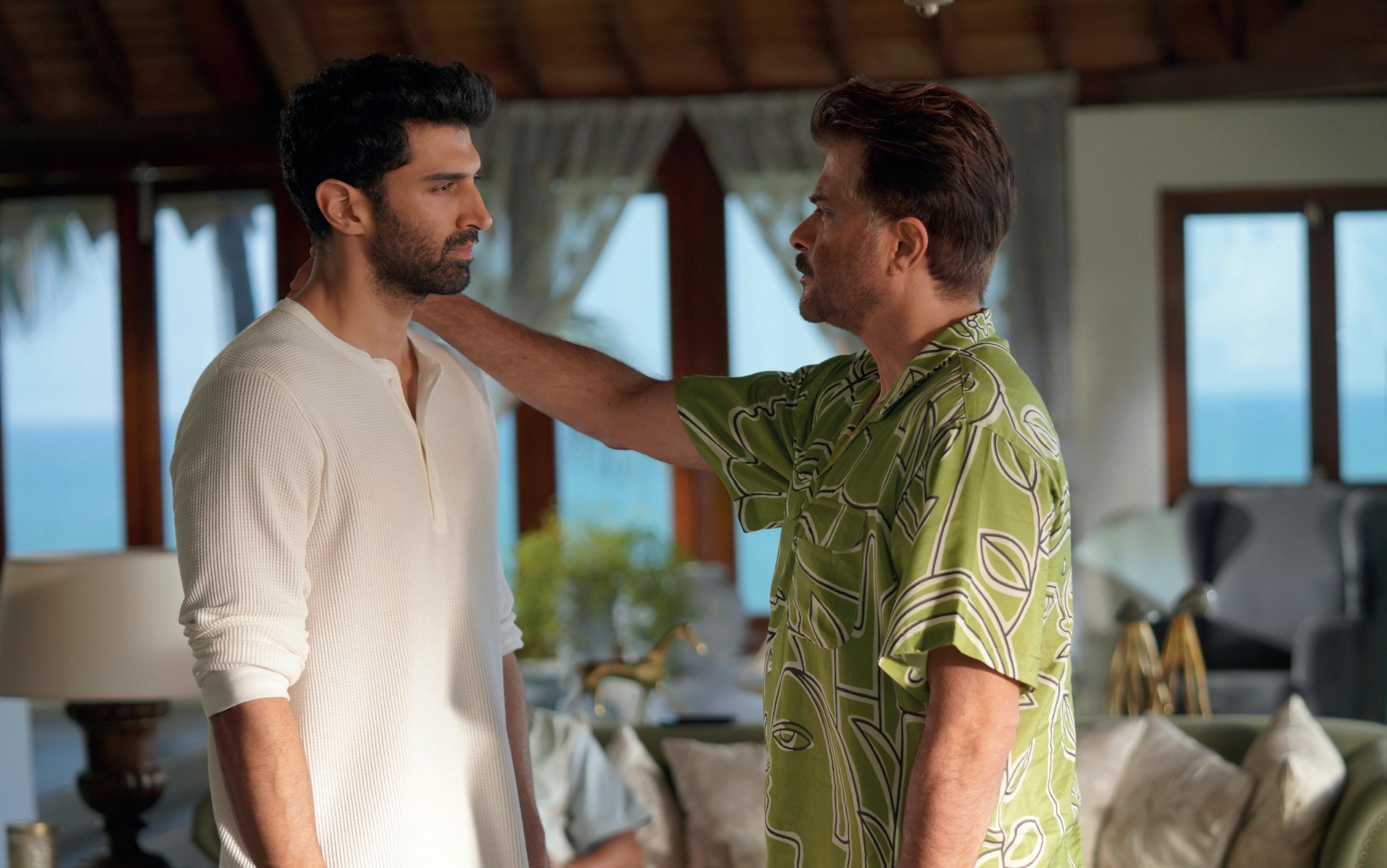

The British performances were a factor in casting for the Indian adaptation and I would say it has worked out well.

Where was the series filmed?
We shot the series over a plethora of terrains, from the beaches of Sri Lanka to the arid Indian

deserts of Jaisalmer, and the snowy mountains of Shimla and Manali.
What challenges did you face, either in development or production?
We shot the show primarily in the second wave of the Covid-19 pandemic and, in order to keep the cast and crew safe, we required a lot of health protocols – especially when flying the crew to multiple locations. One of many protocols was setting up a ‘bio bubble’ to ensure the safety of all the crew and cast. Additionally, when we were shooting in Sri Lanka, the country was facing an economic crisis. Through all these challenges, we knew we had to be very respectful of John le Carré’s legacy and not compromise on the storytelling, performances, depth of characters or the scale of the show.
As original content is seen around the world, what do you think are the benefits of localised remakes?
It’s a great way to expand your markets and tell stories to a larger audience. It’s an opportunity to turn cultural di erences into a major advantage for content to travel. With local remakes, you already have a reference point on how to create a hit series and, ultimately, an acclaimed show in a di erent part of the world. Adaptations just push us a little more towards a world where content travels across borders, and people connect with it because you adapt it to their sensibilities. To top it o , it was fun to explore the world of Jonathan Pine and Richard Roper with an Indian crew and cast.
END CREDITS: Remade Abroad DQ . Spring 2023 99 37
DQ
Aditya Roy Kapur (left) and Anil Kapoor play the equivalent roles in the Indian remake
The Night Manager India debuted in February
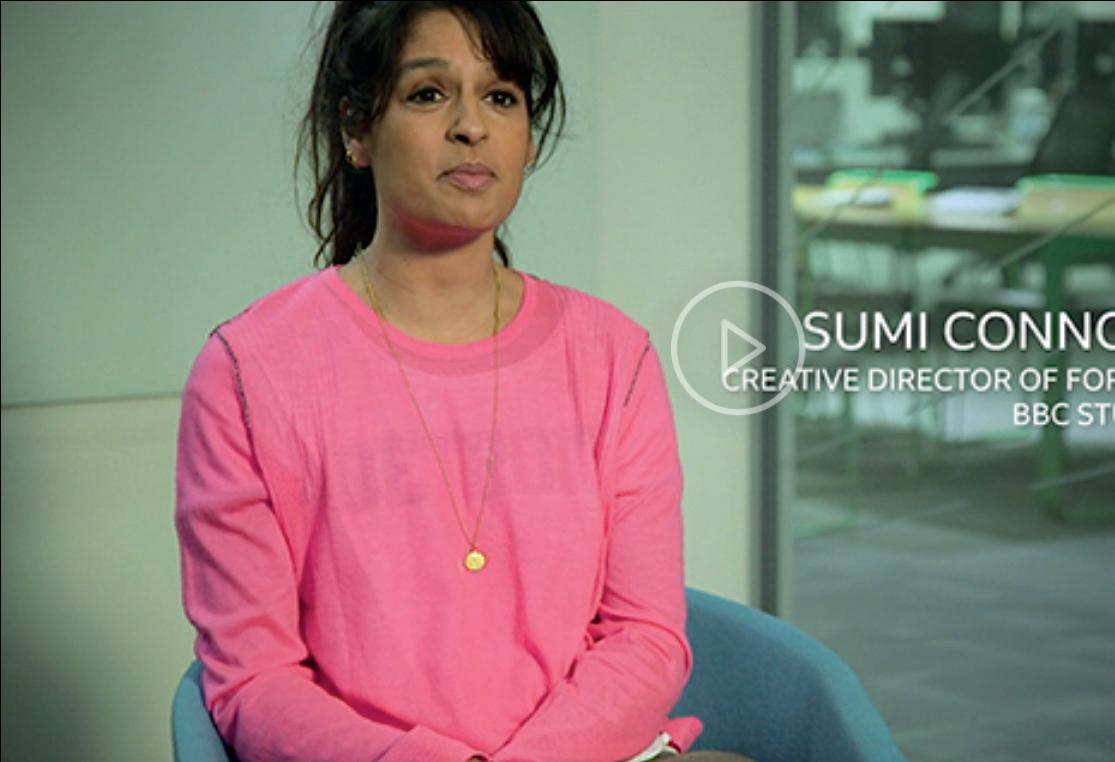
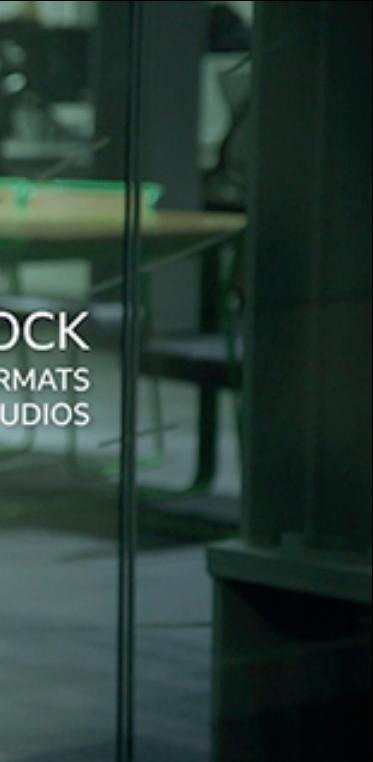
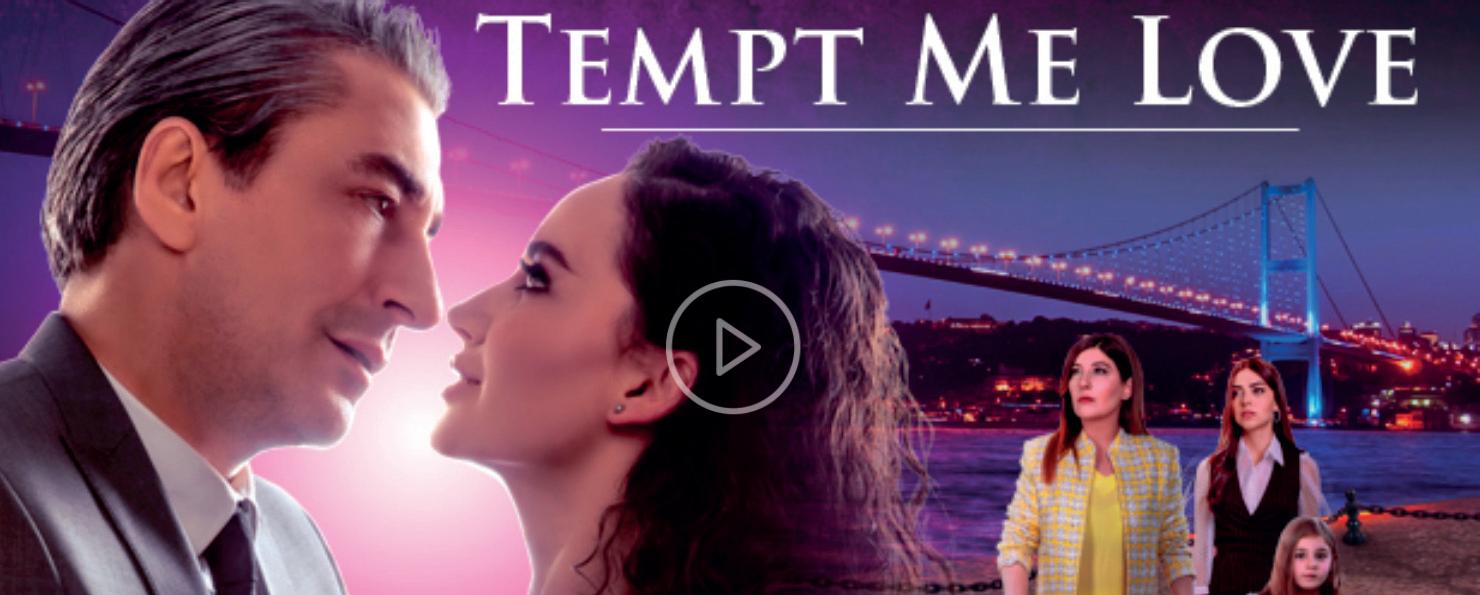
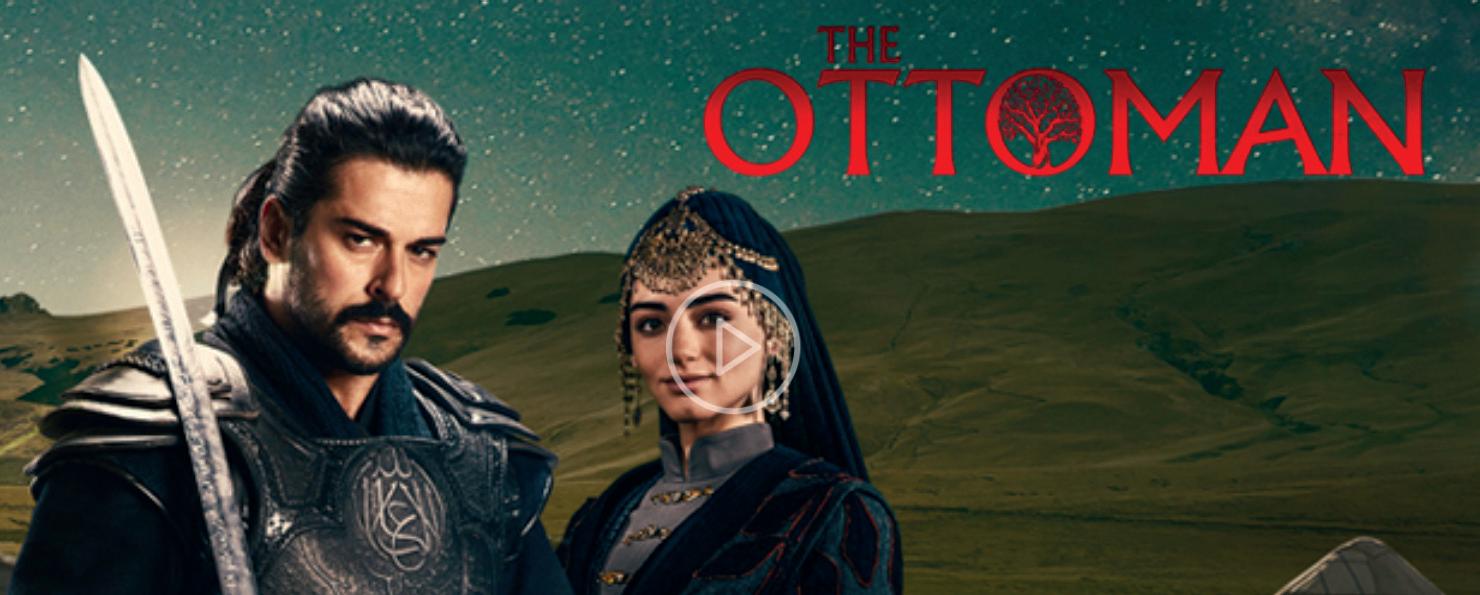
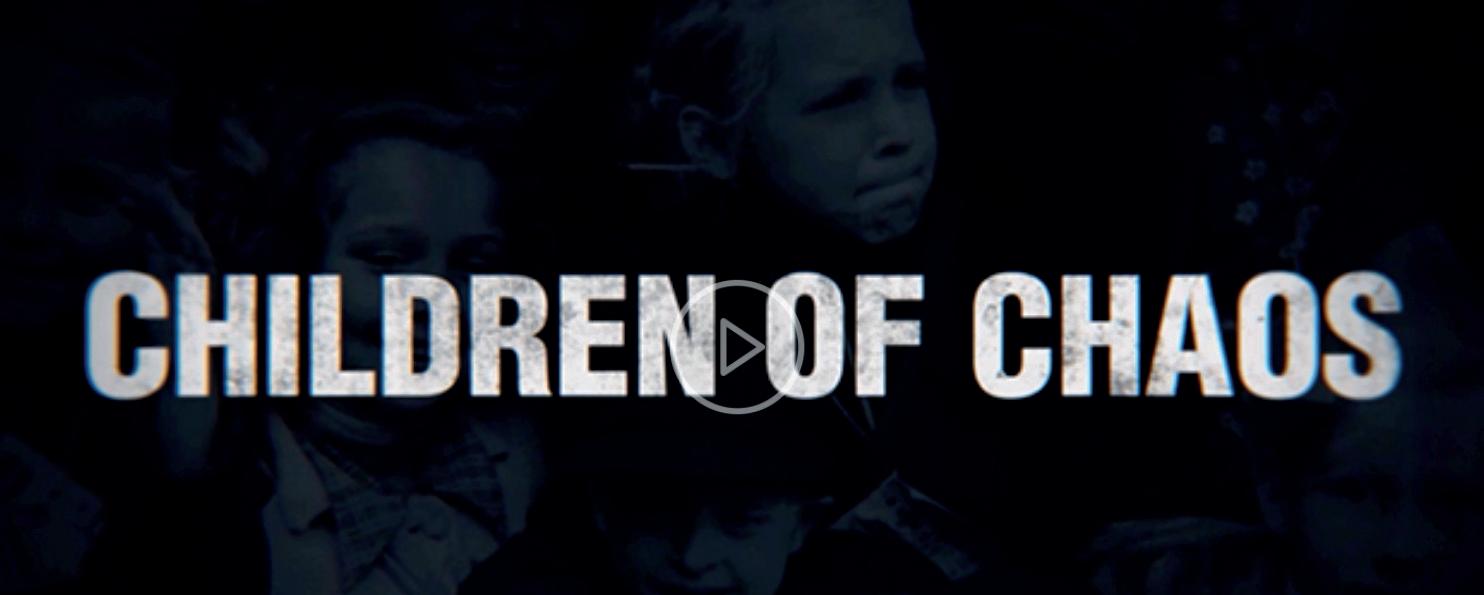


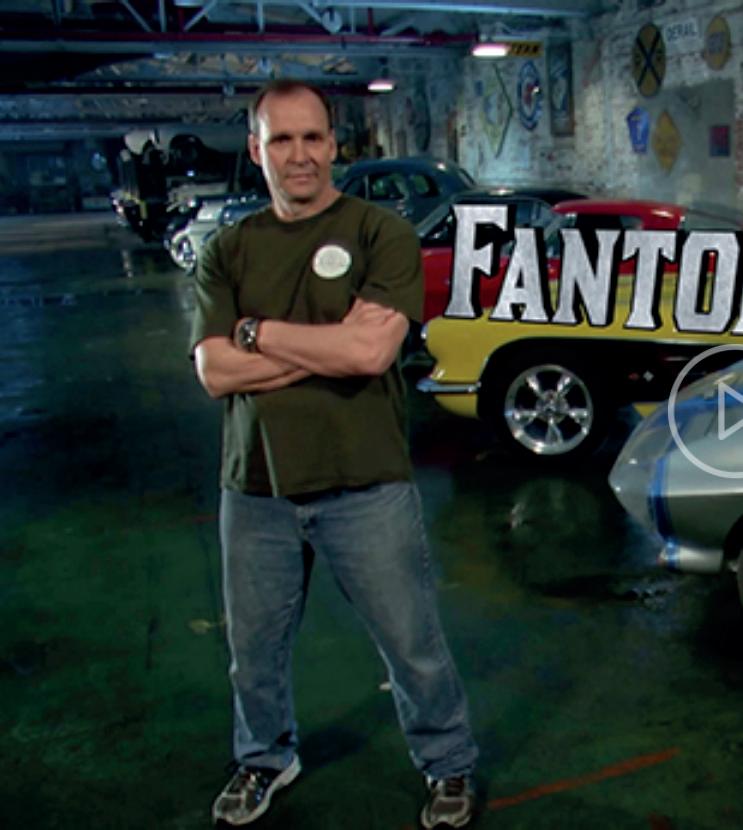

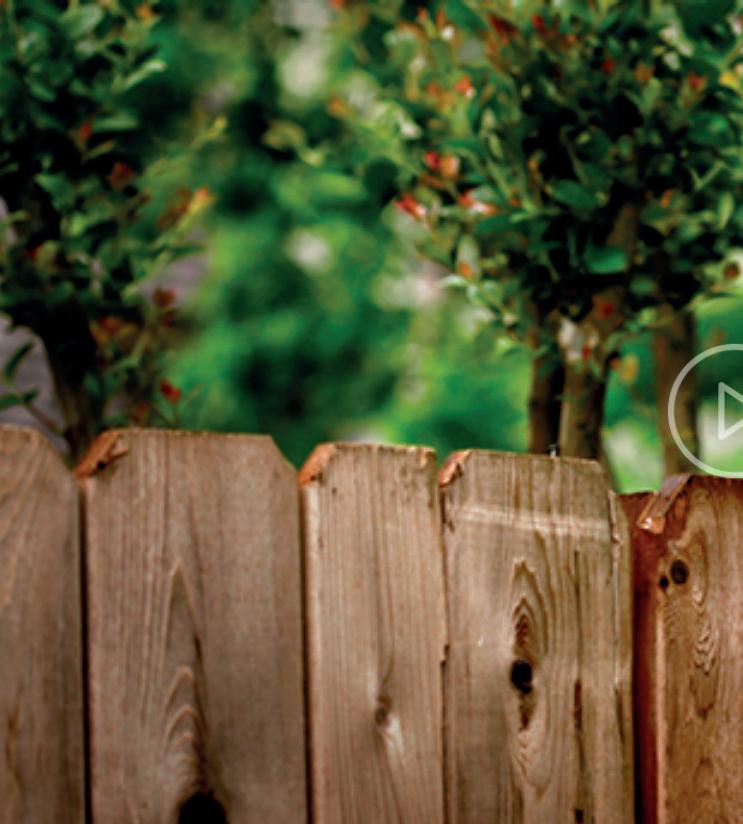

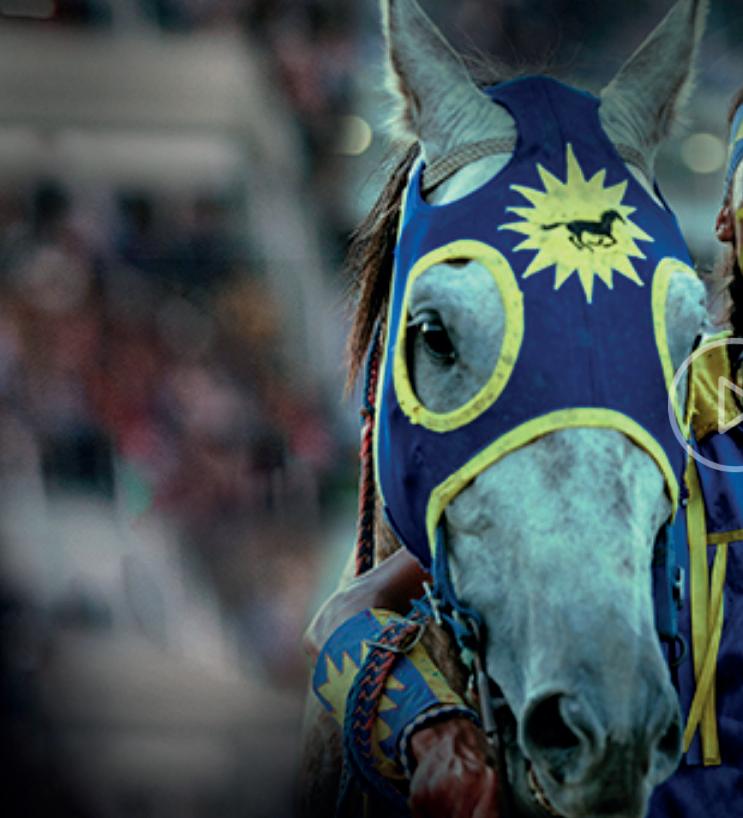

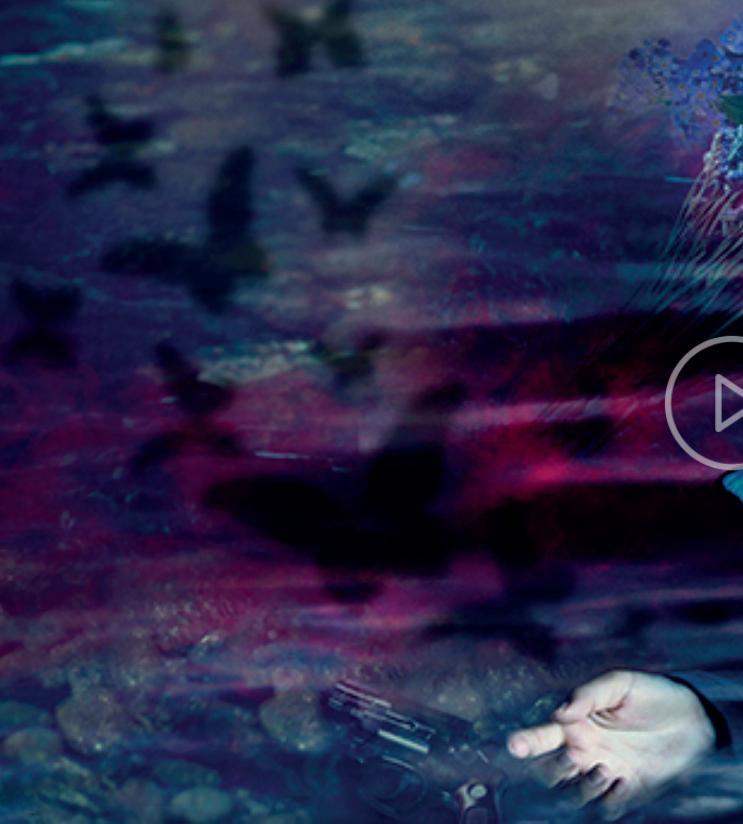
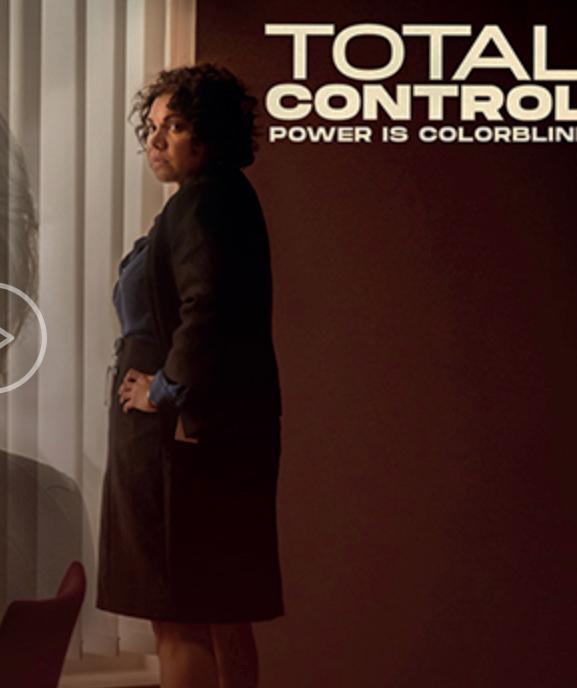
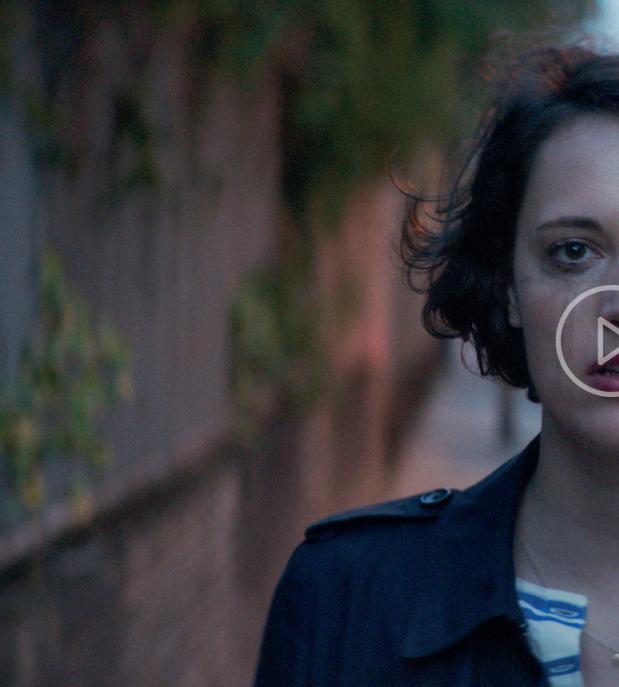
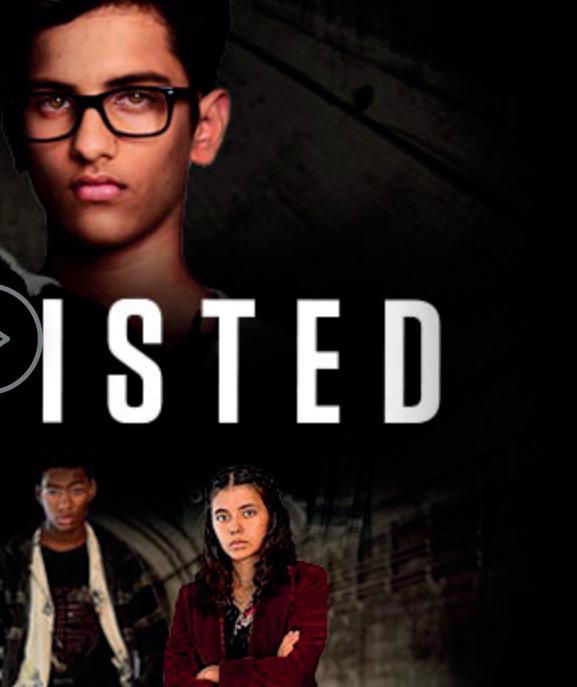
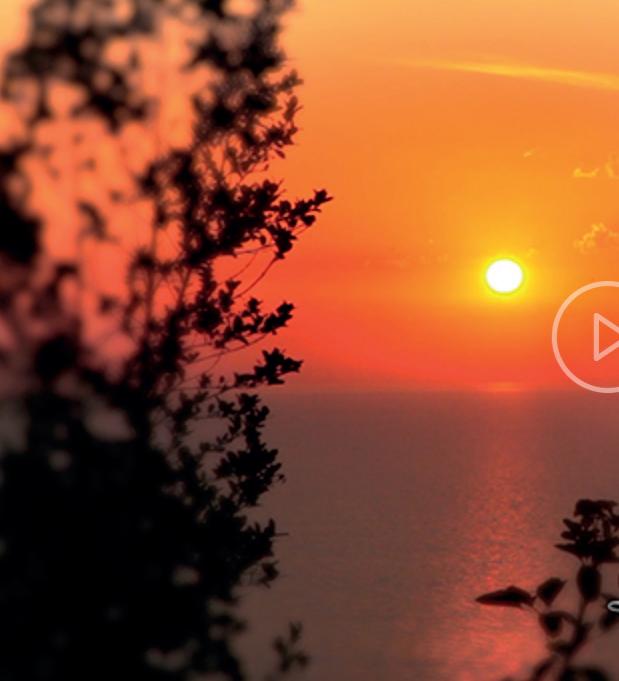
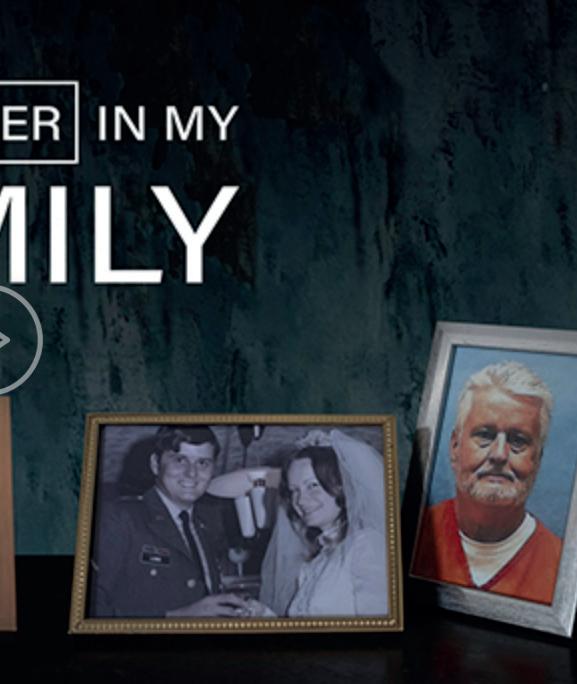
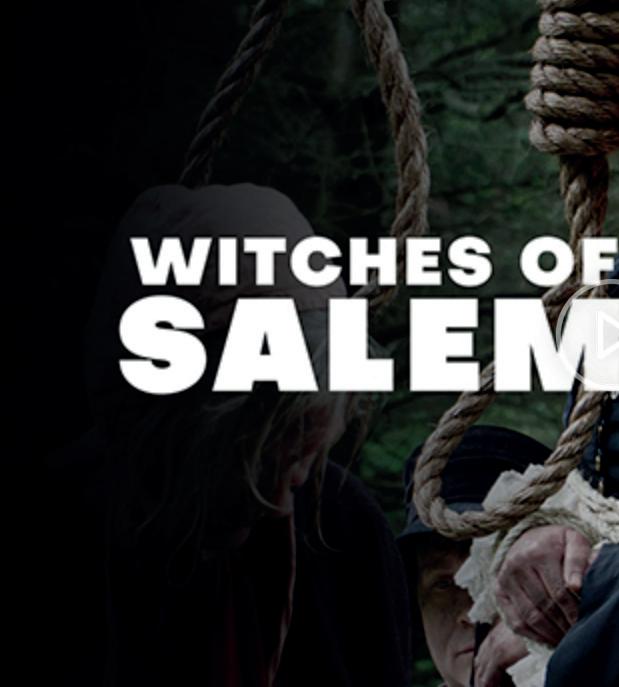
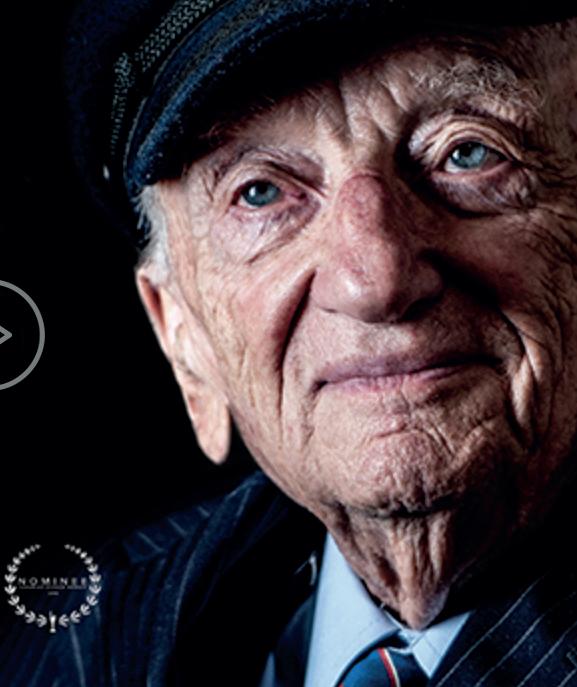
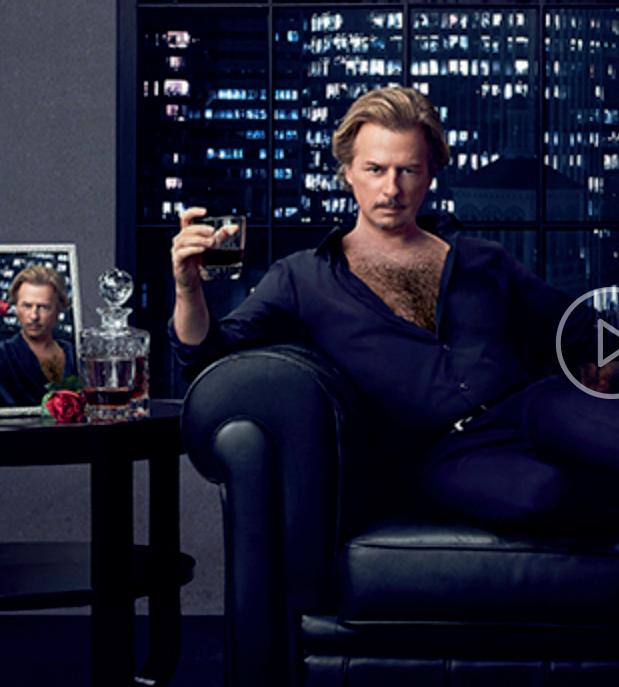
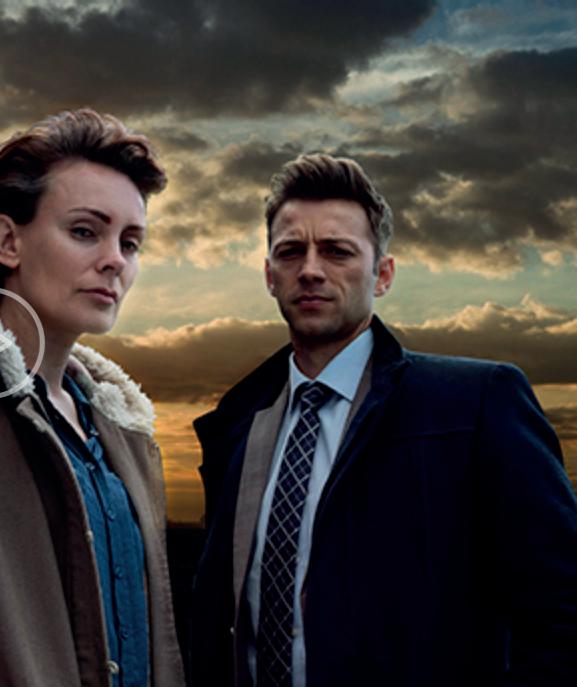

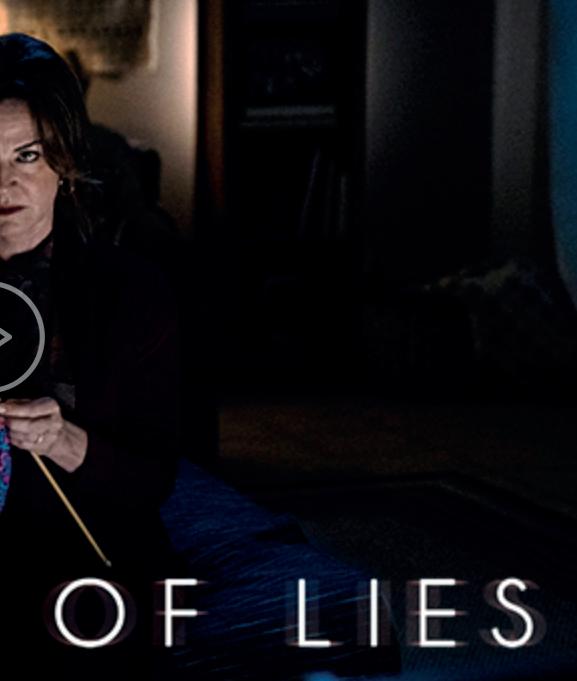
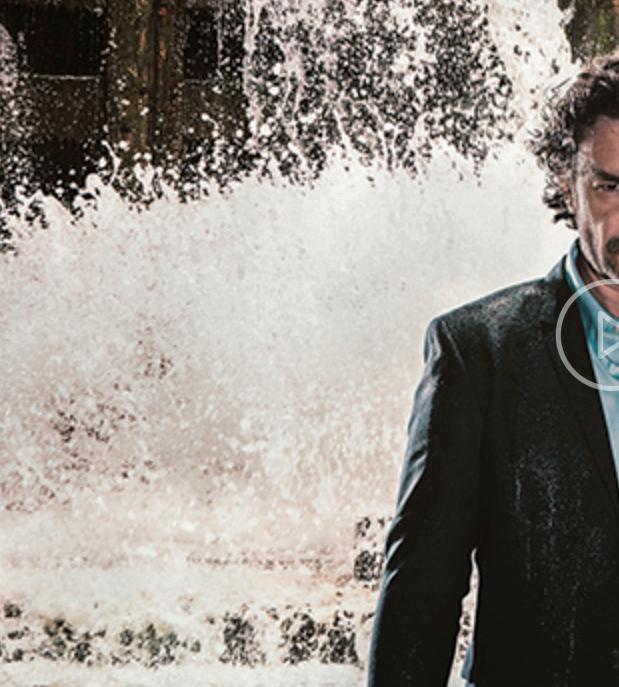

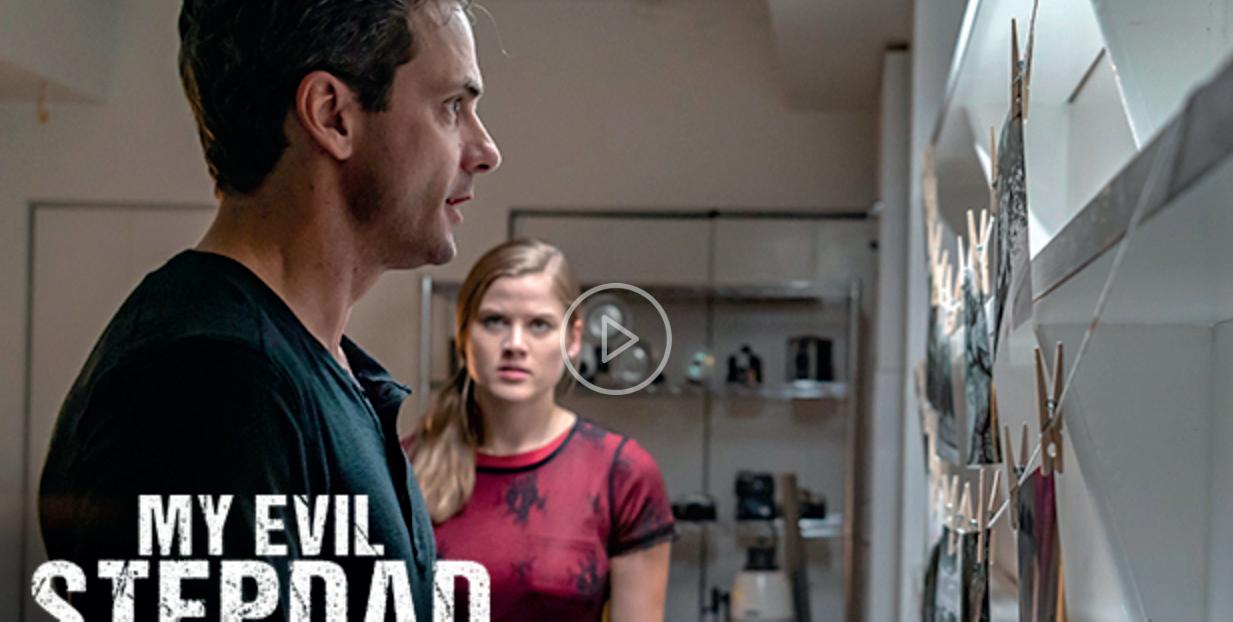
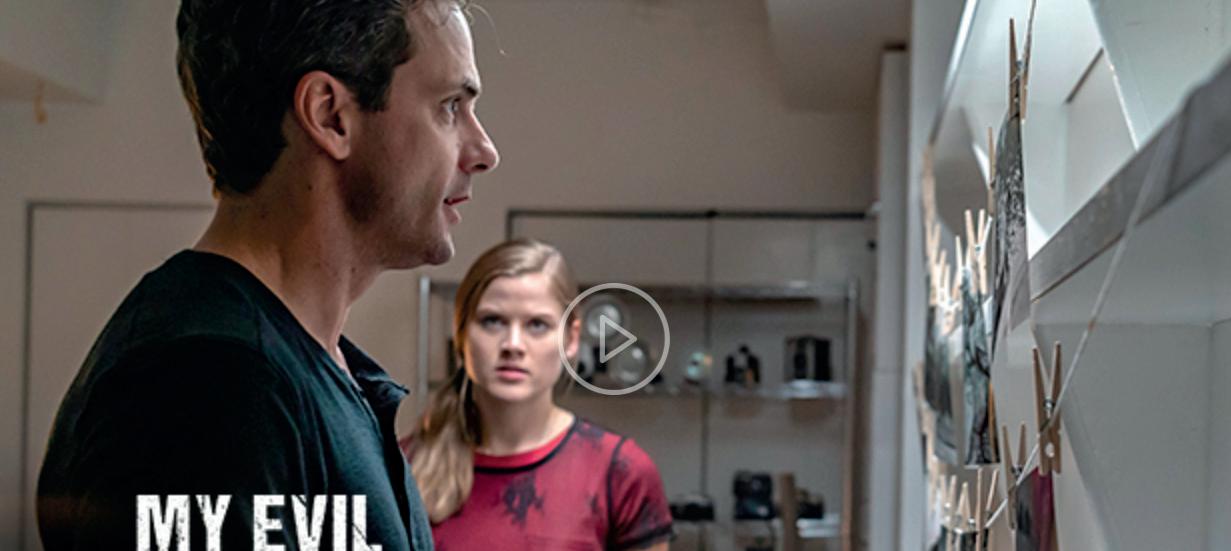

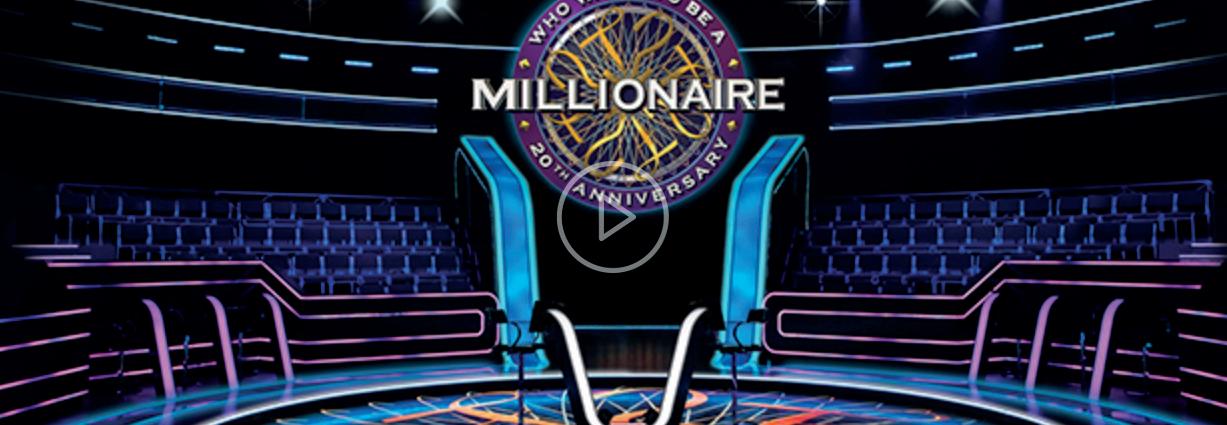
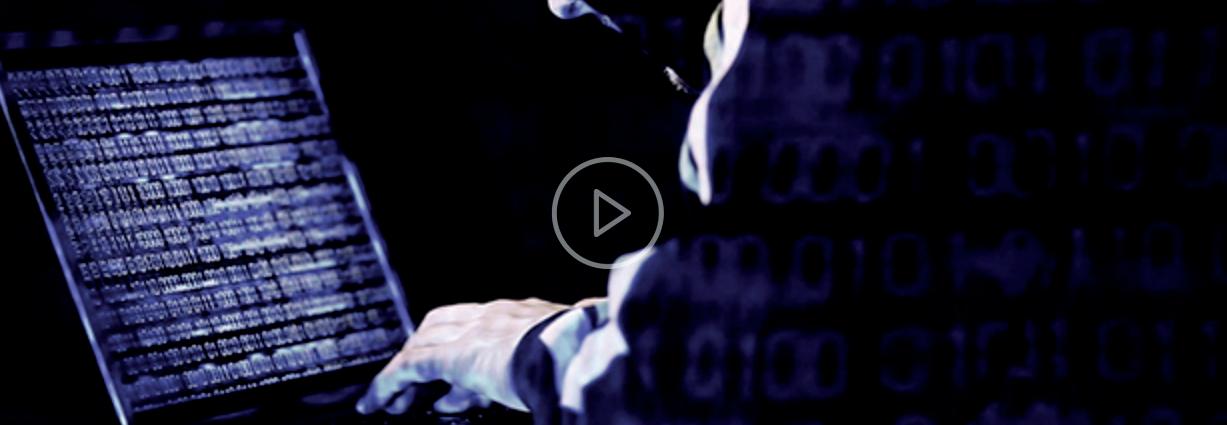
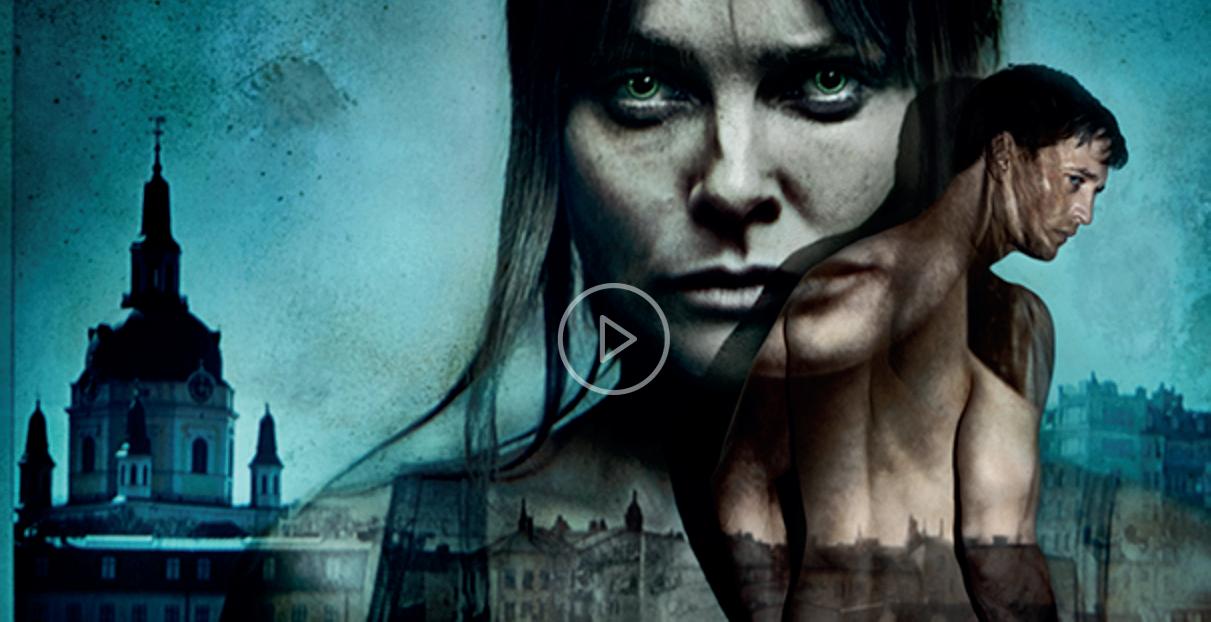
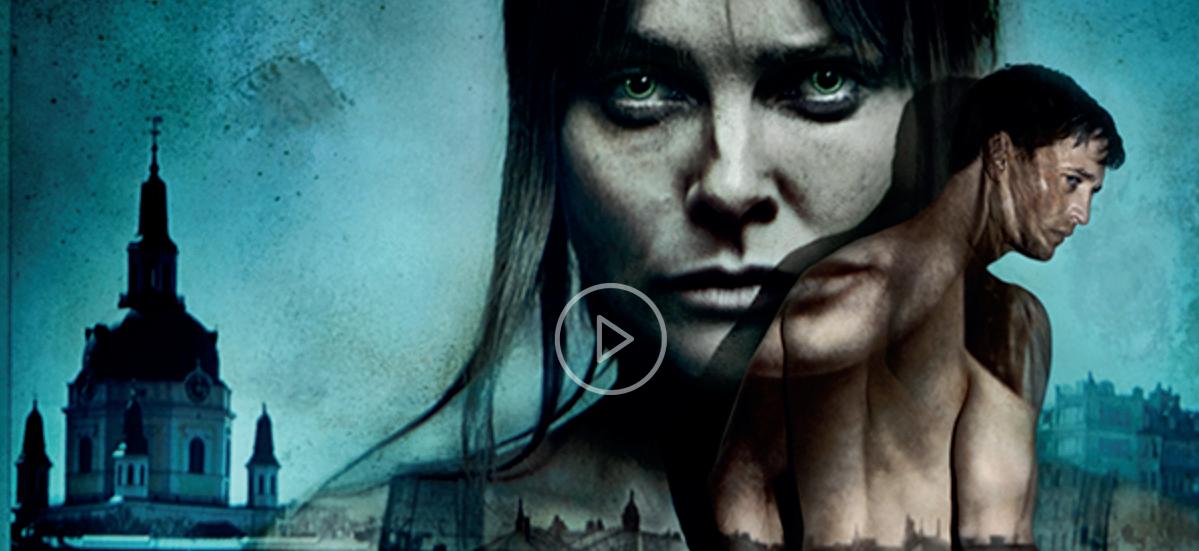


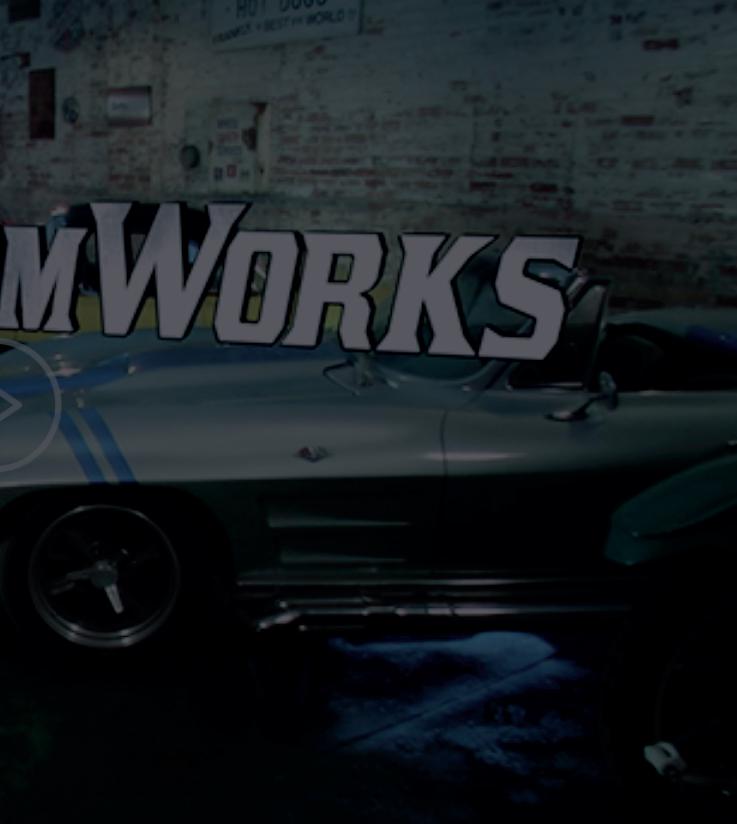




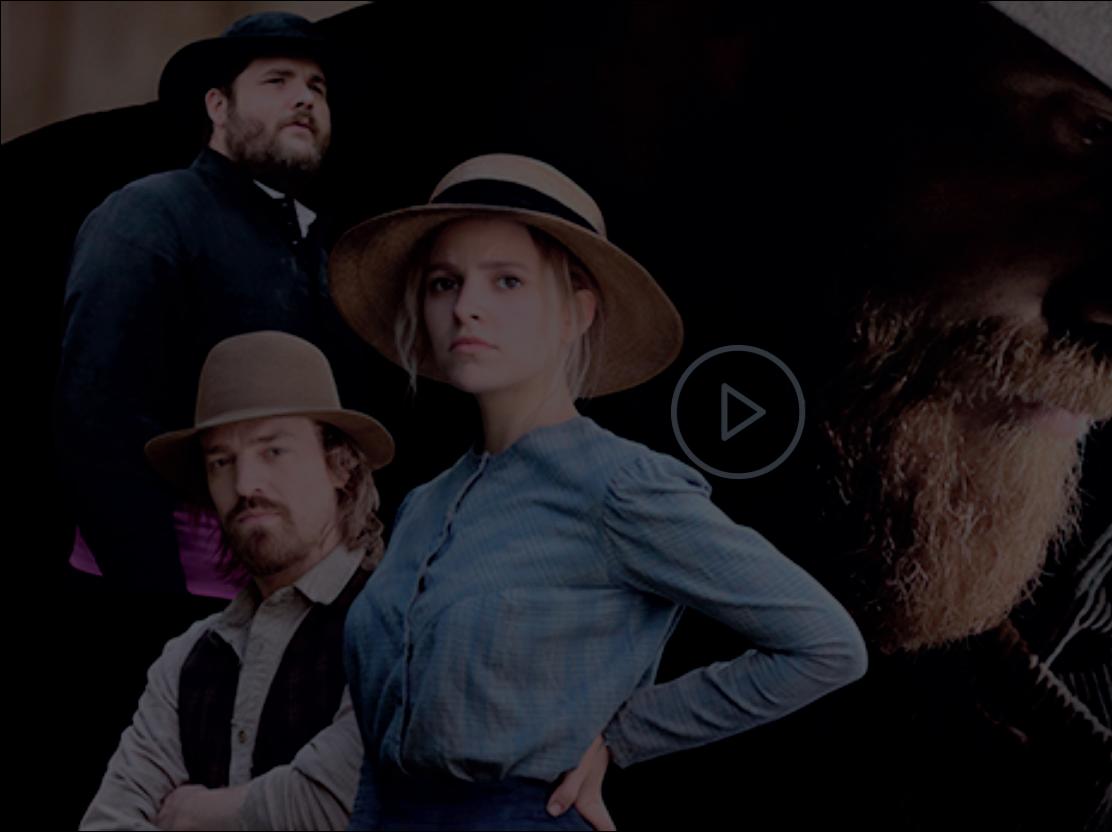
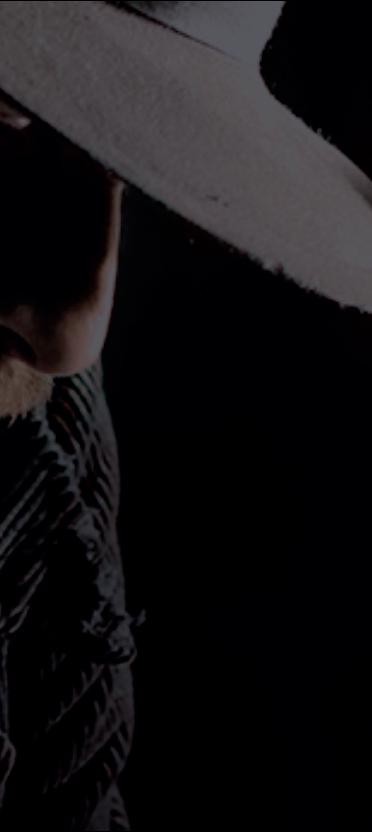
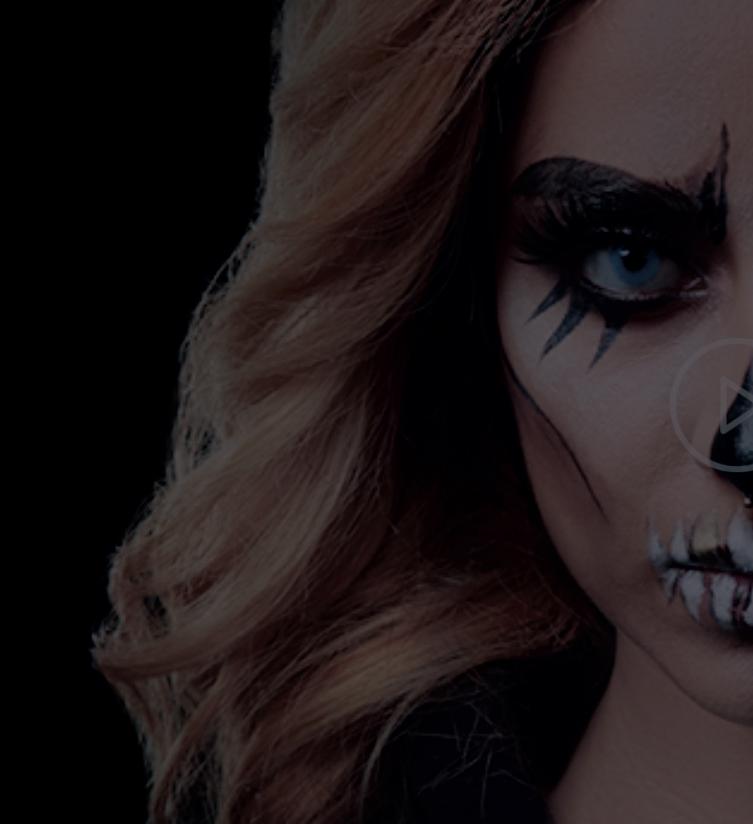
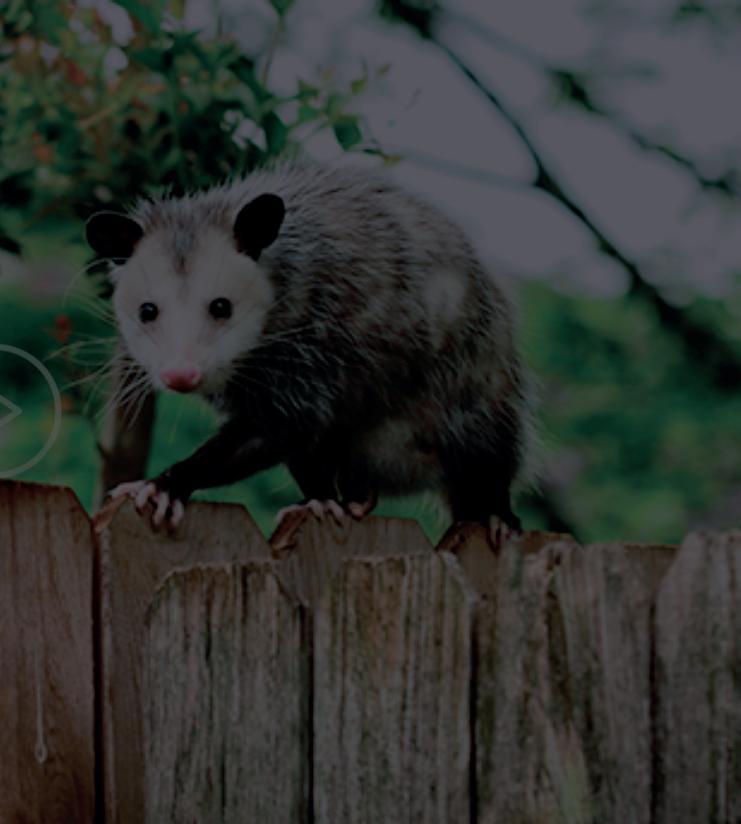
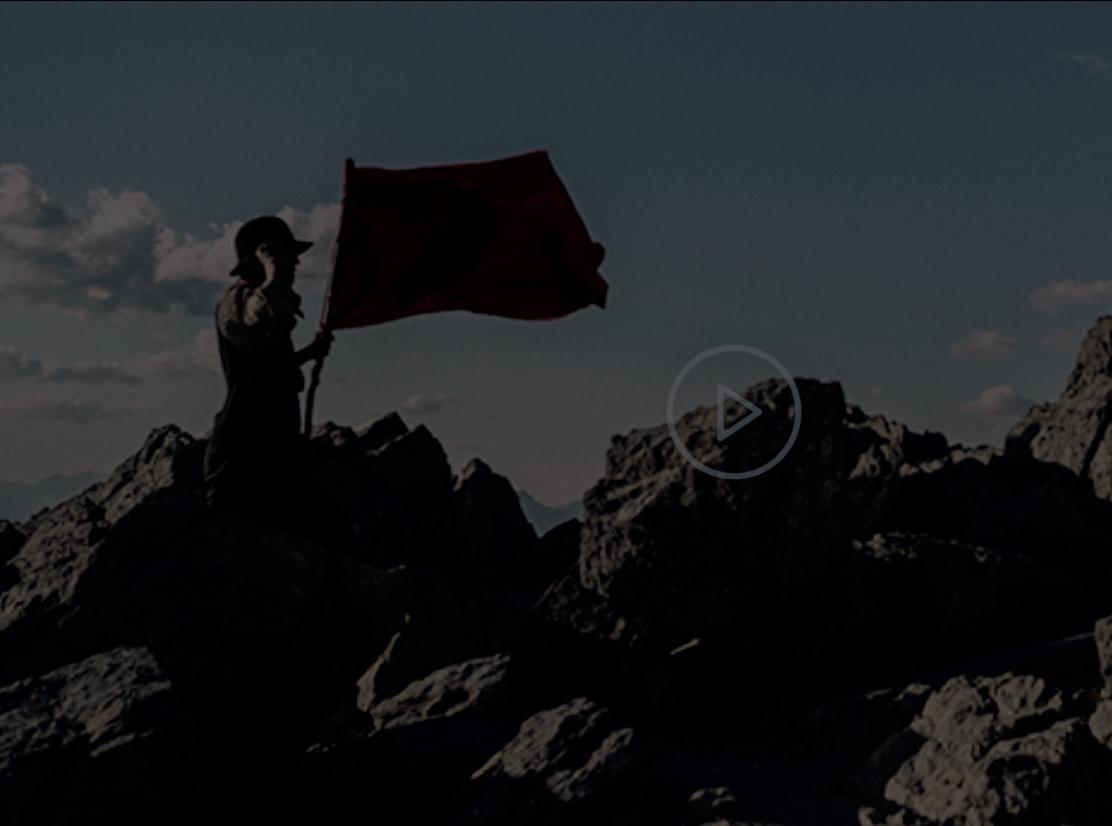

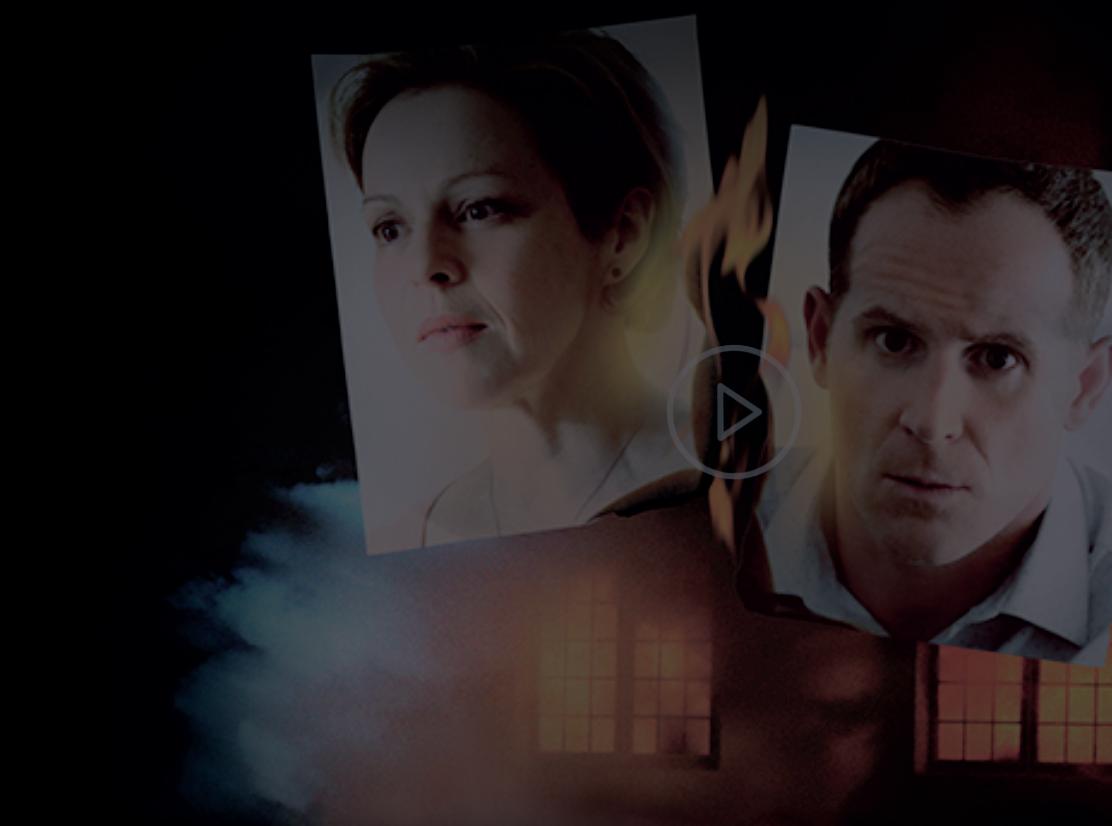
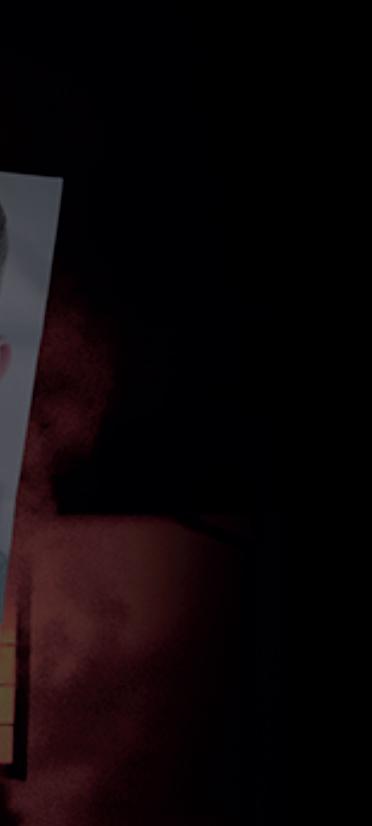
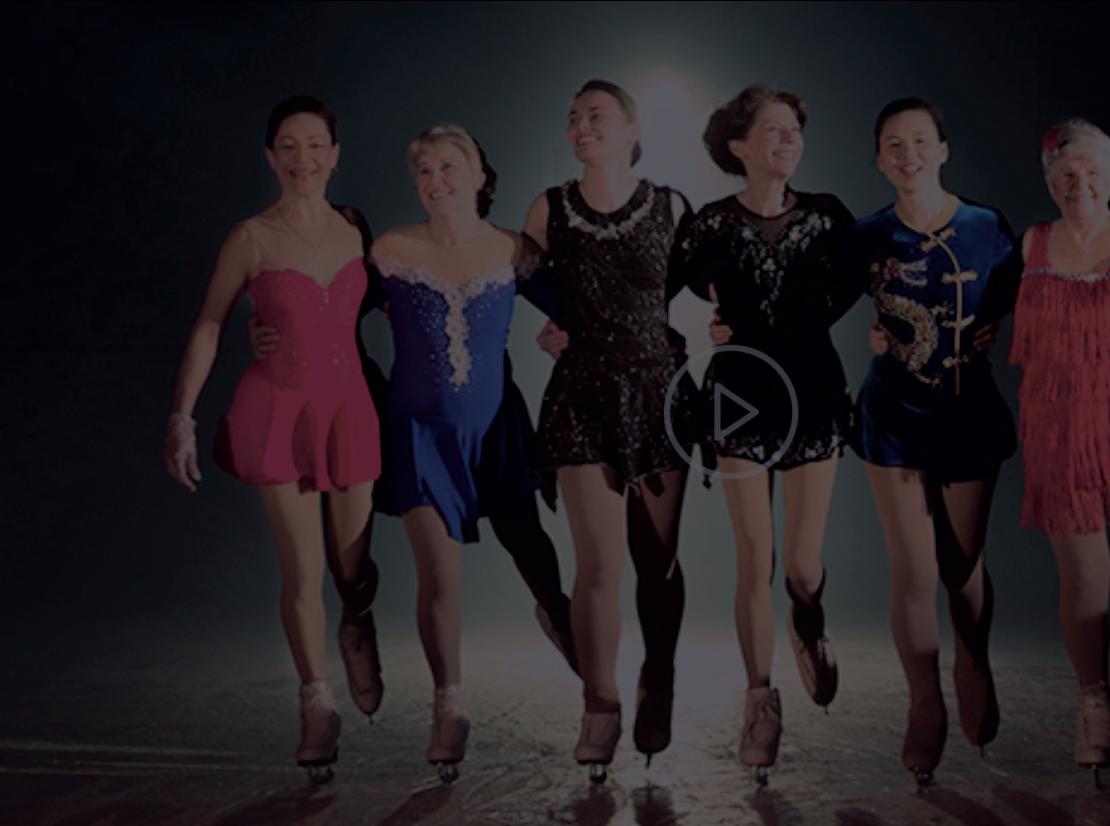
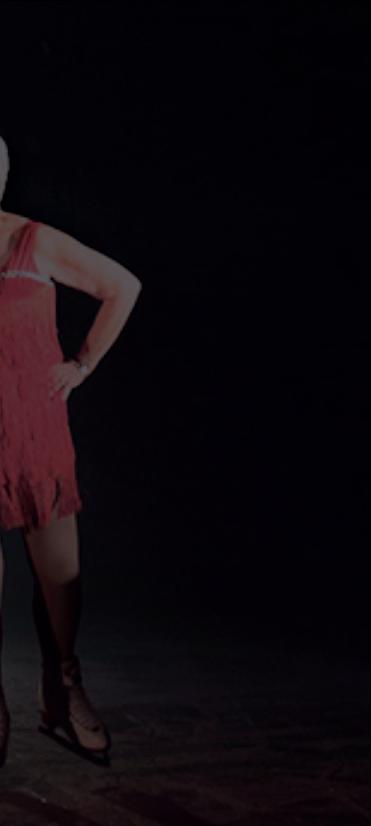

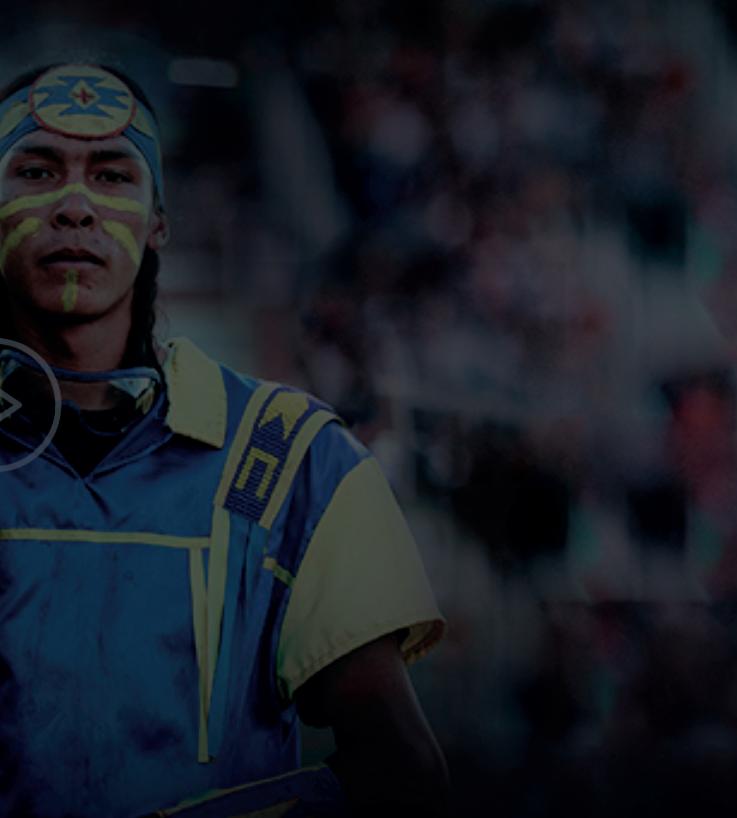
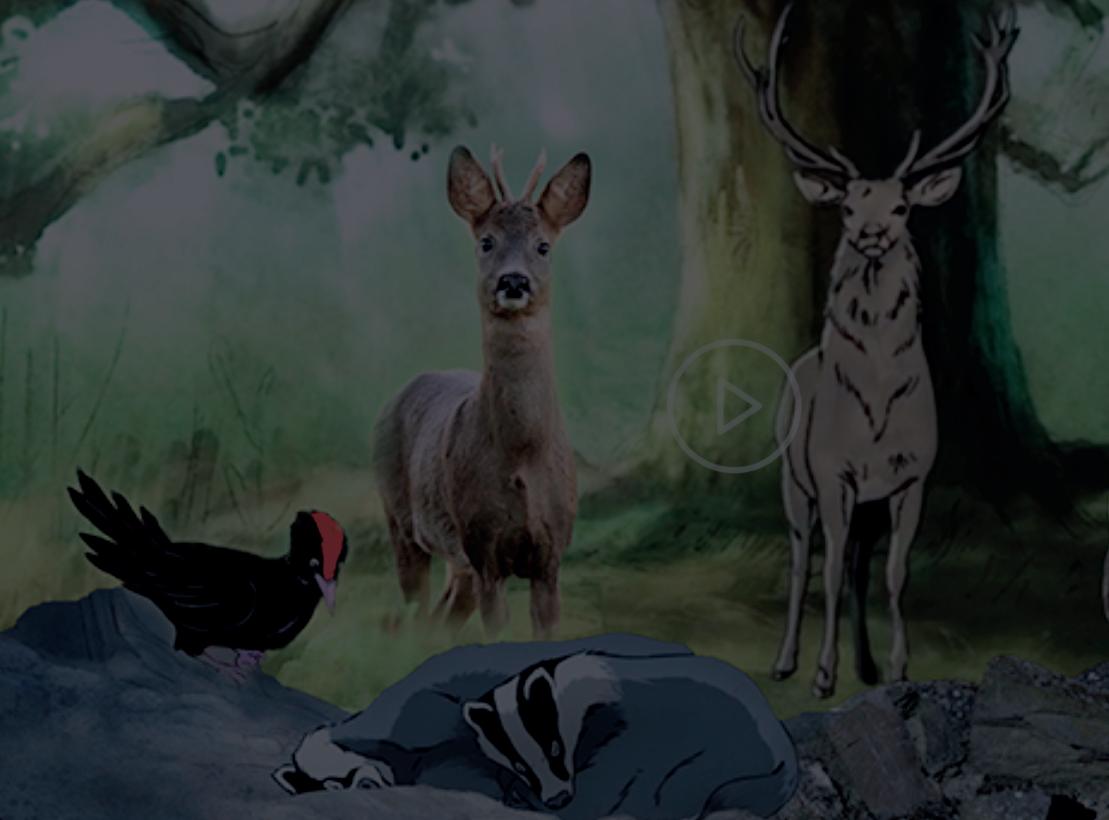
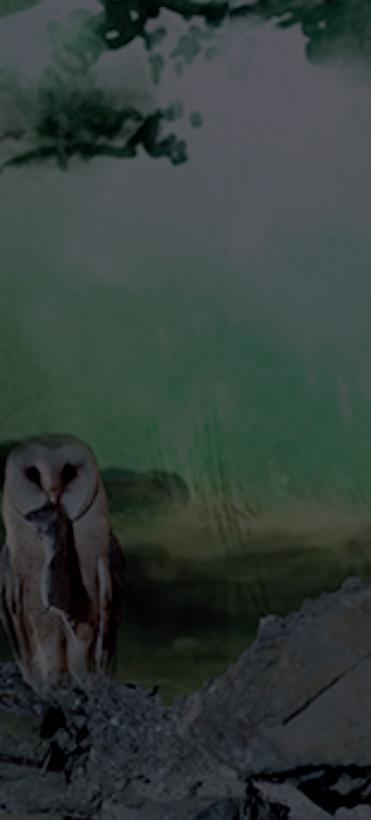

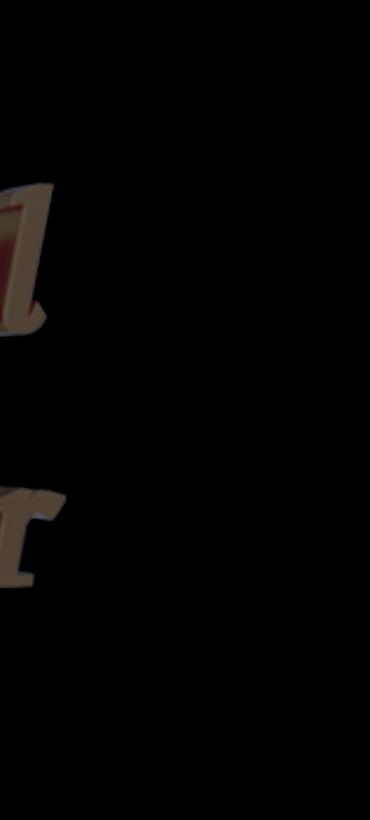


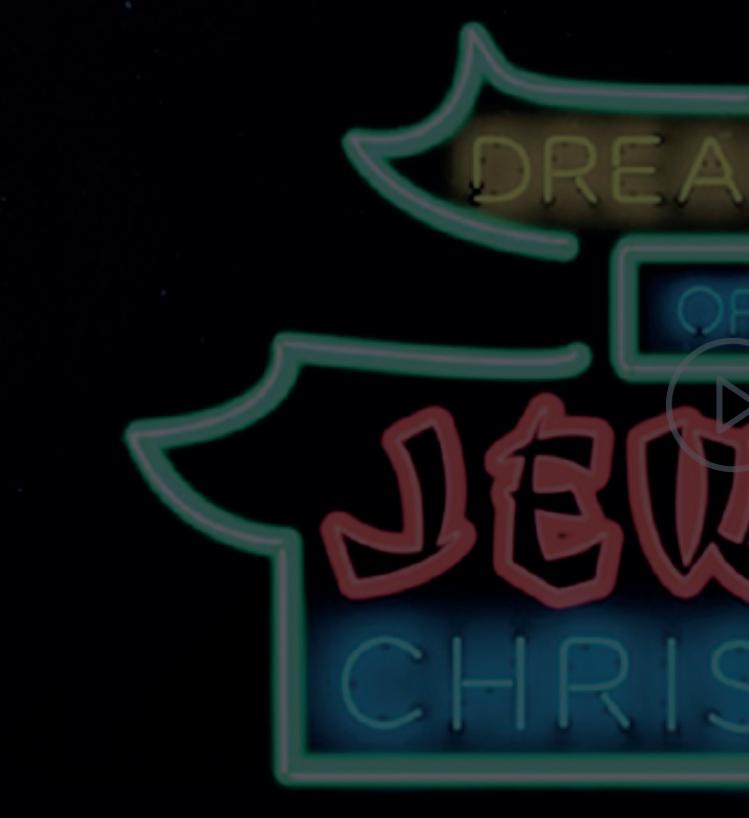
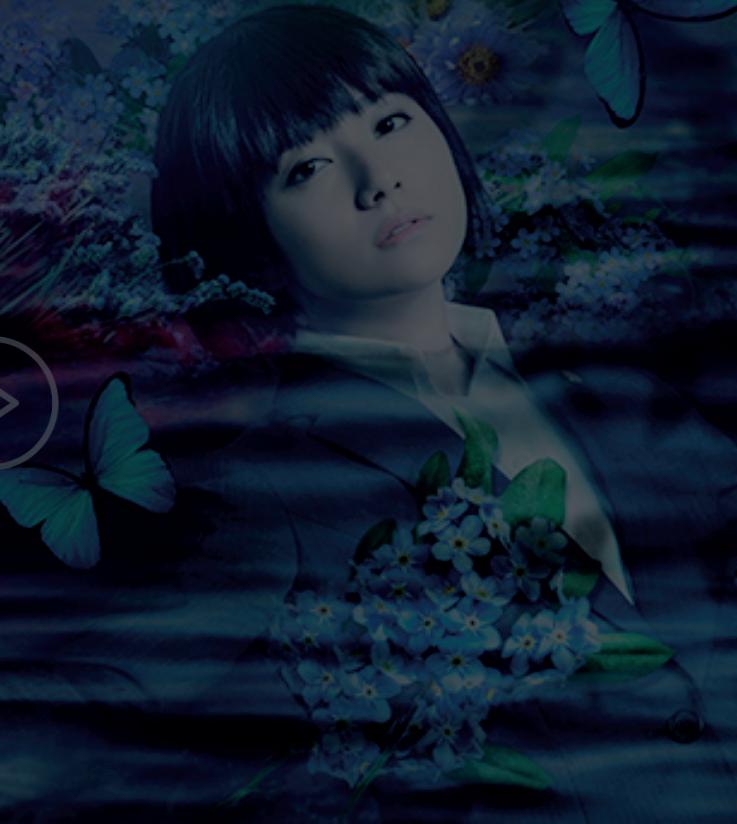



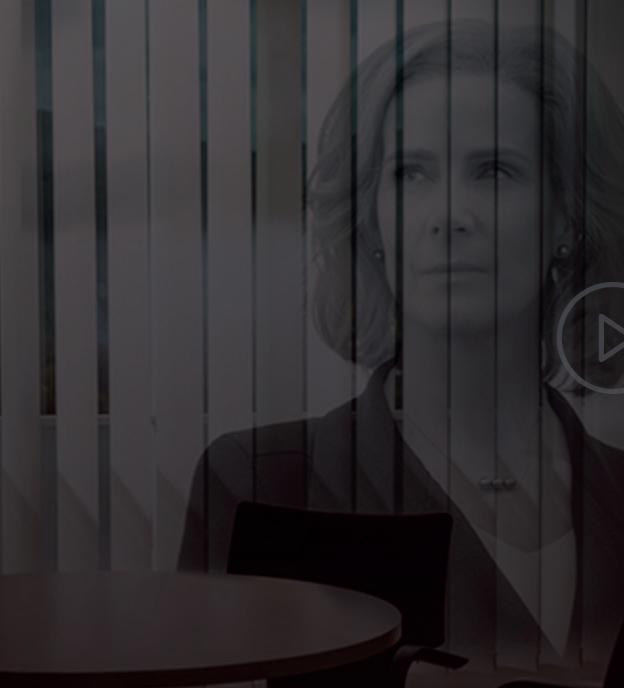
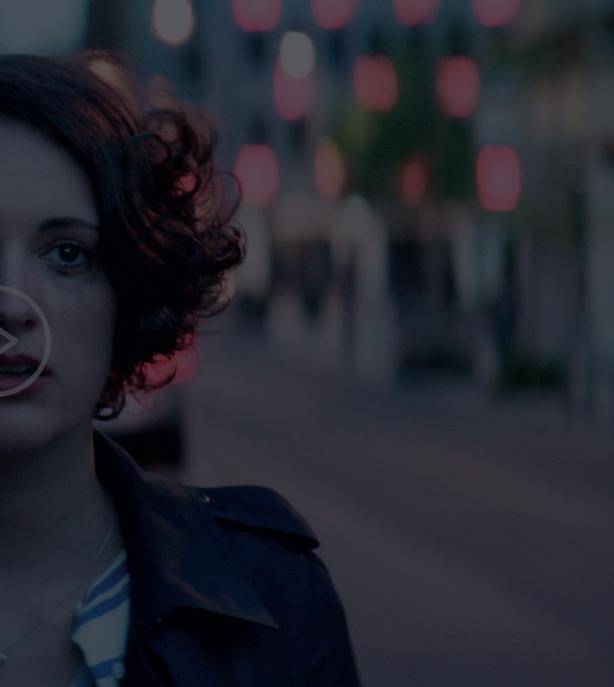
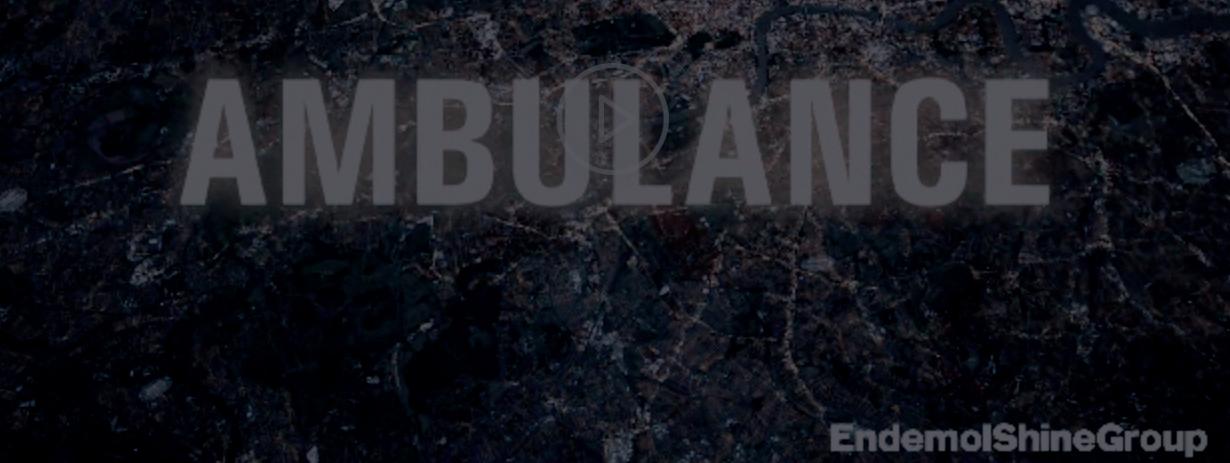
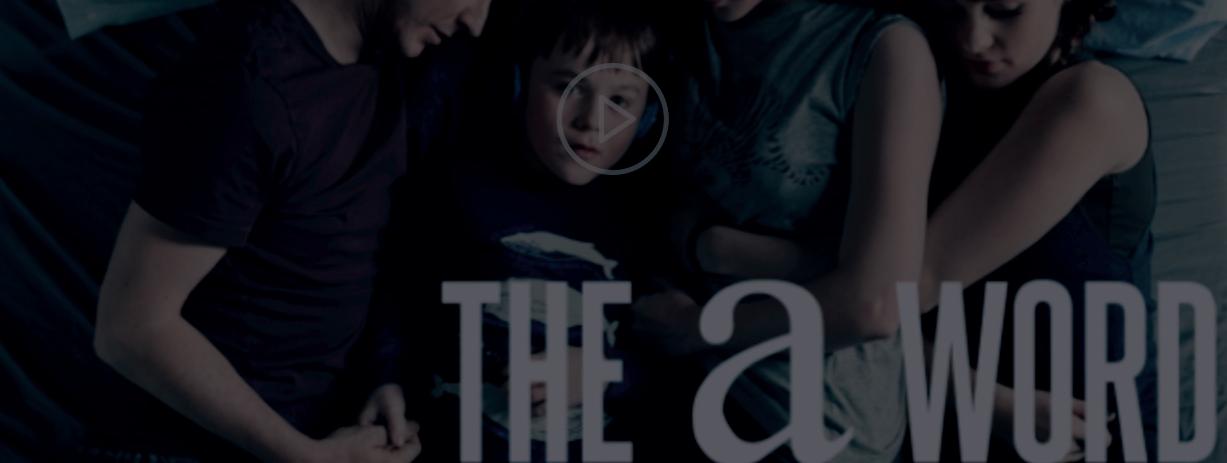
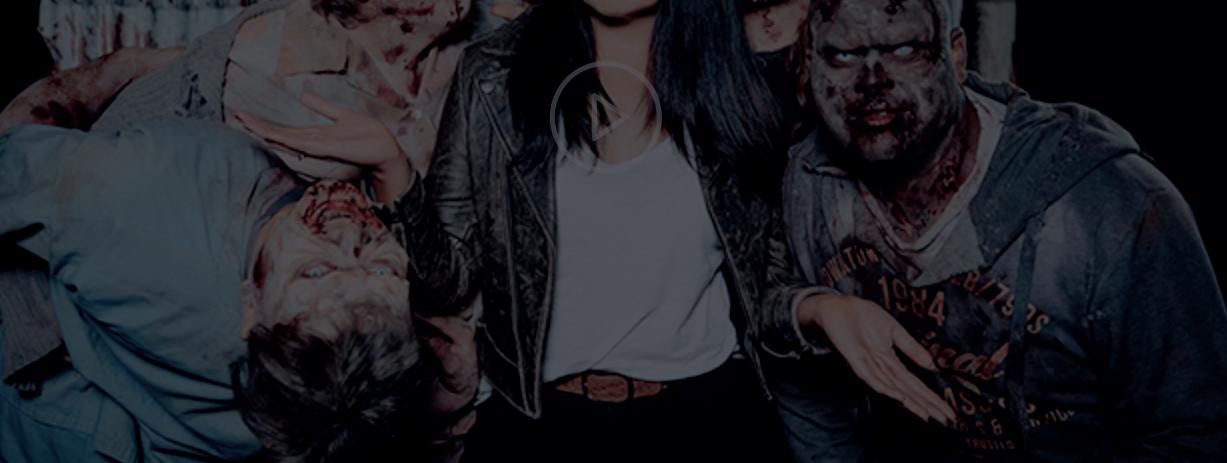

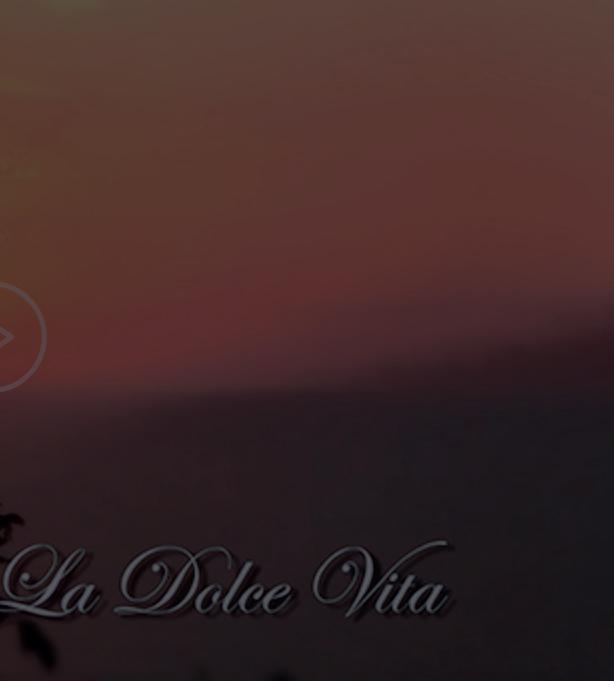
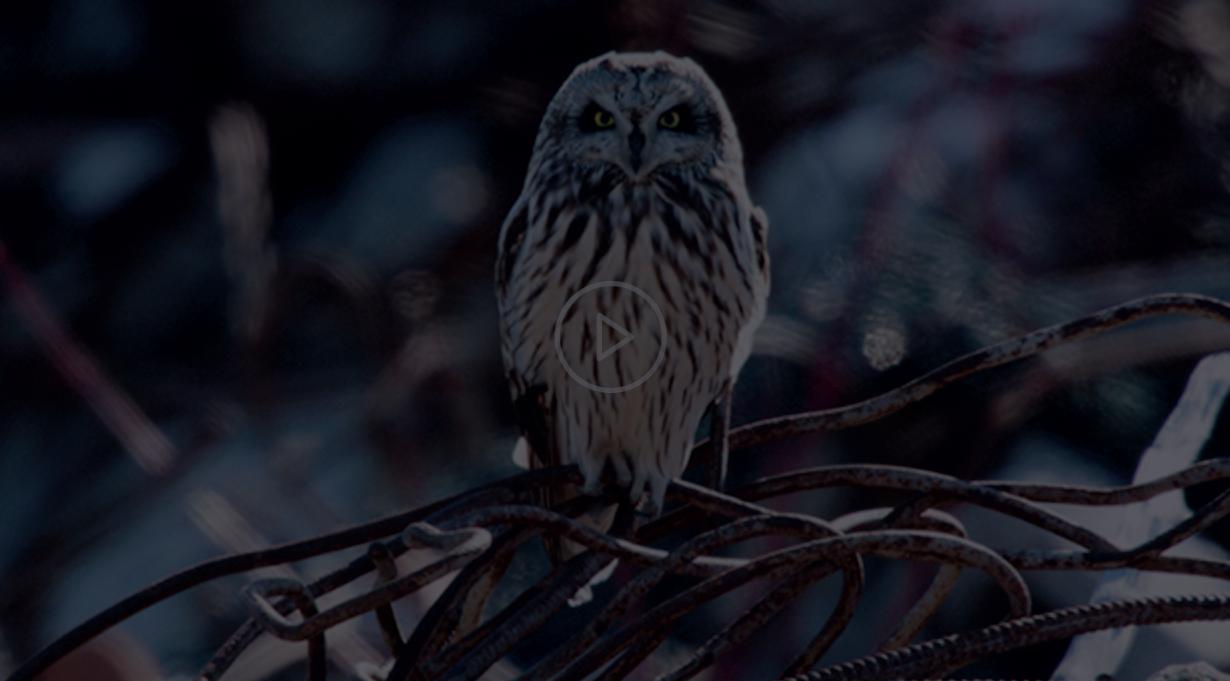
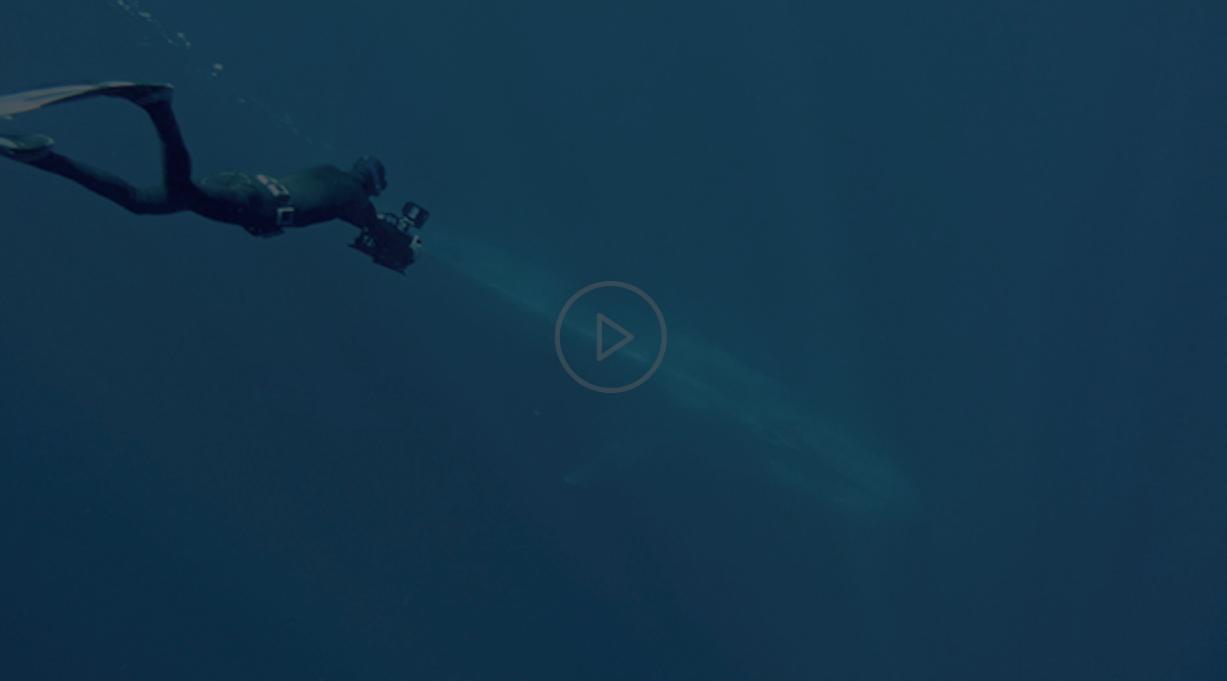

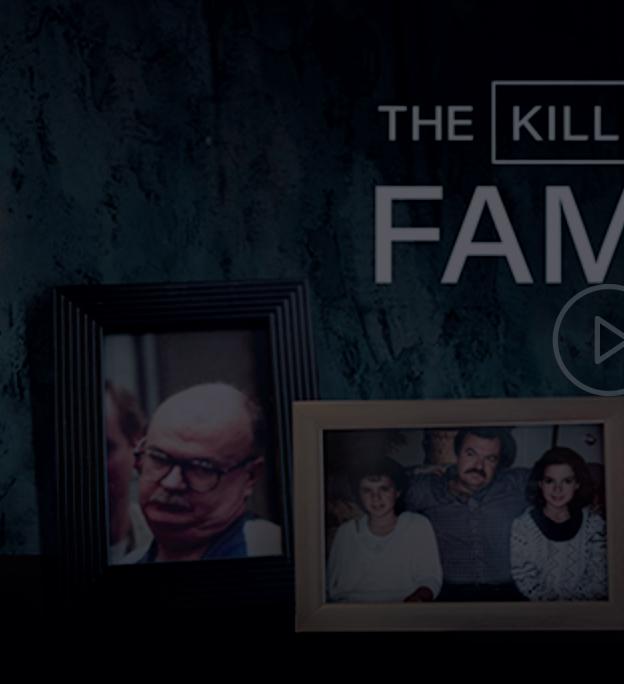
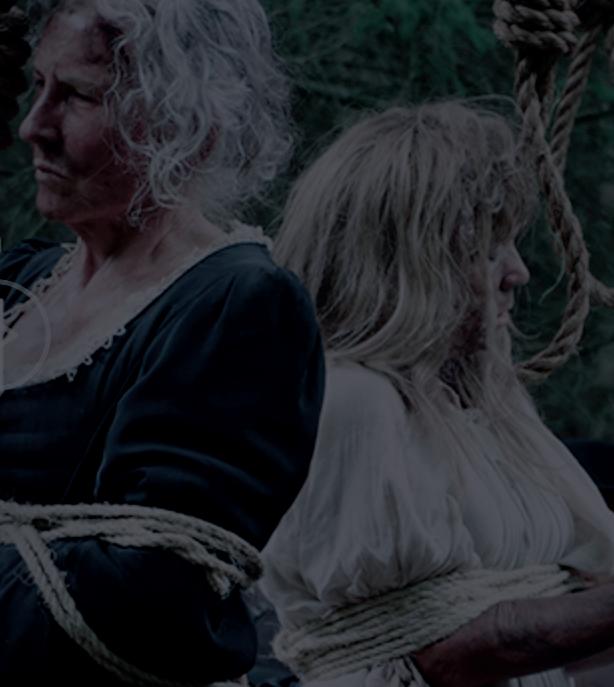
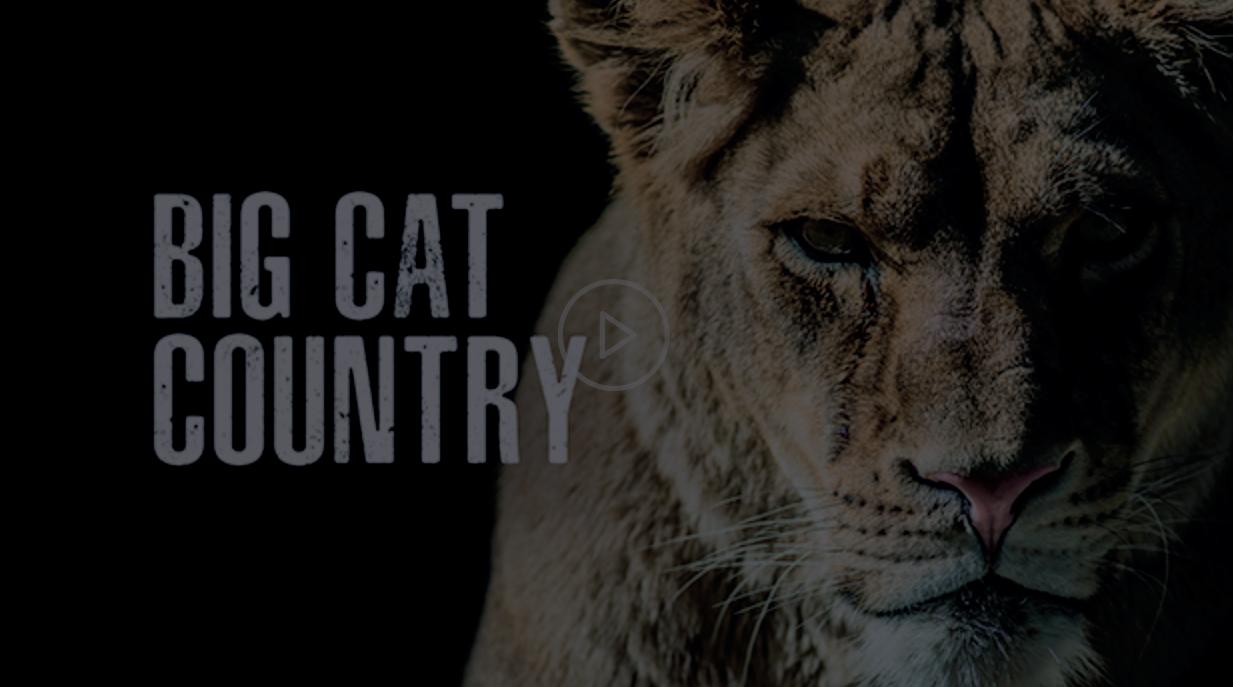

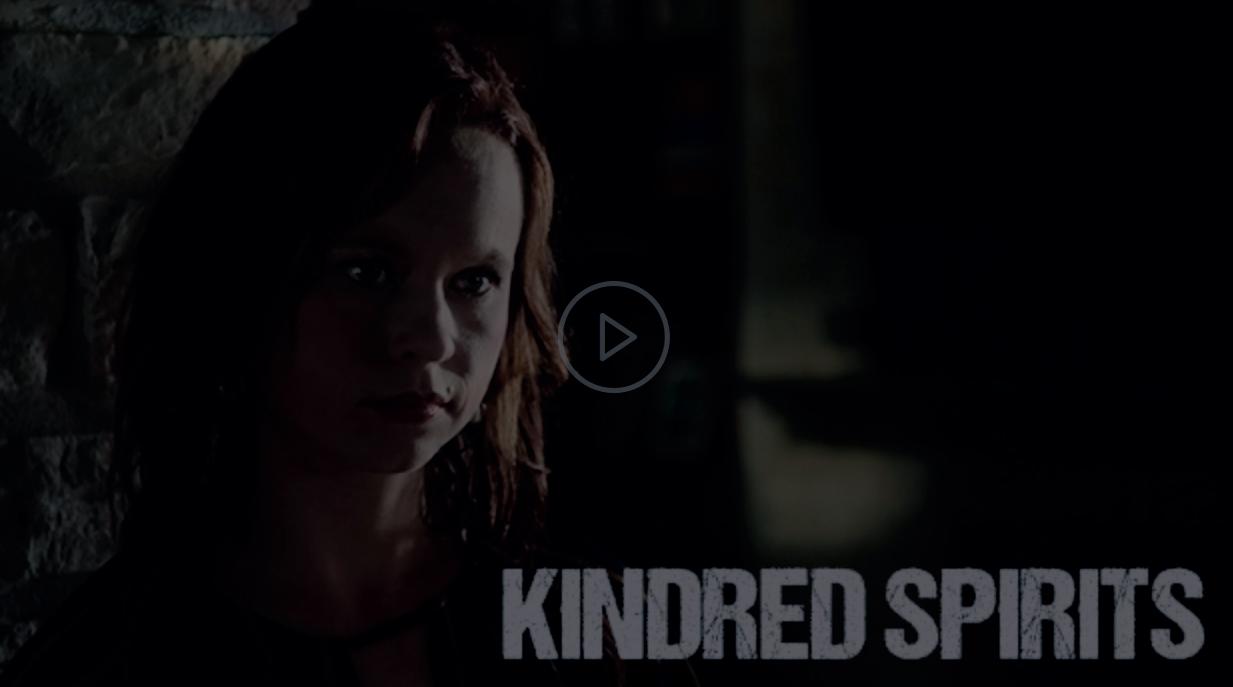
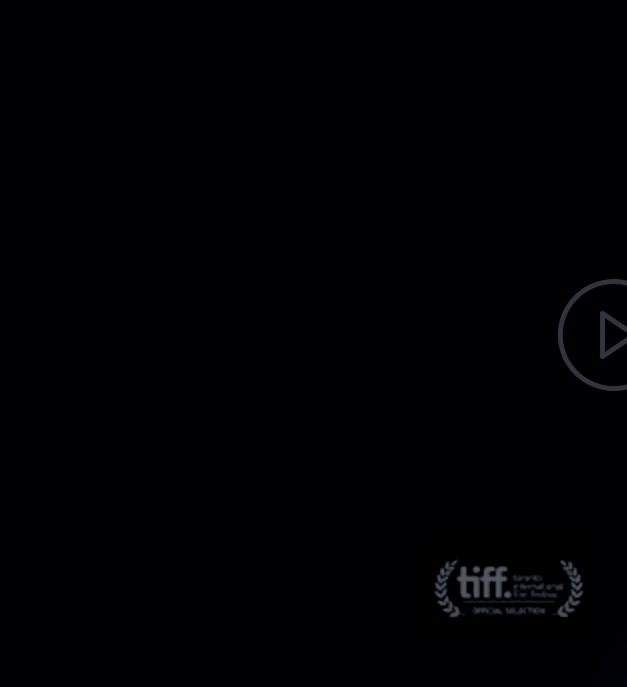
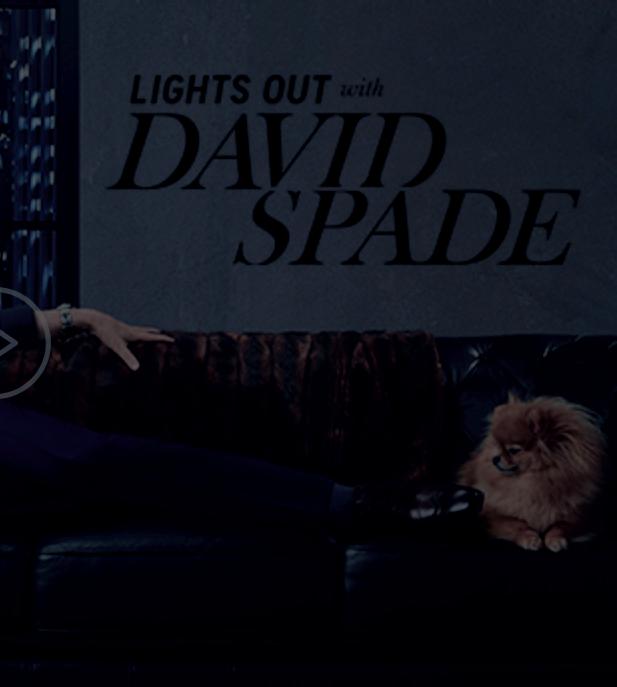
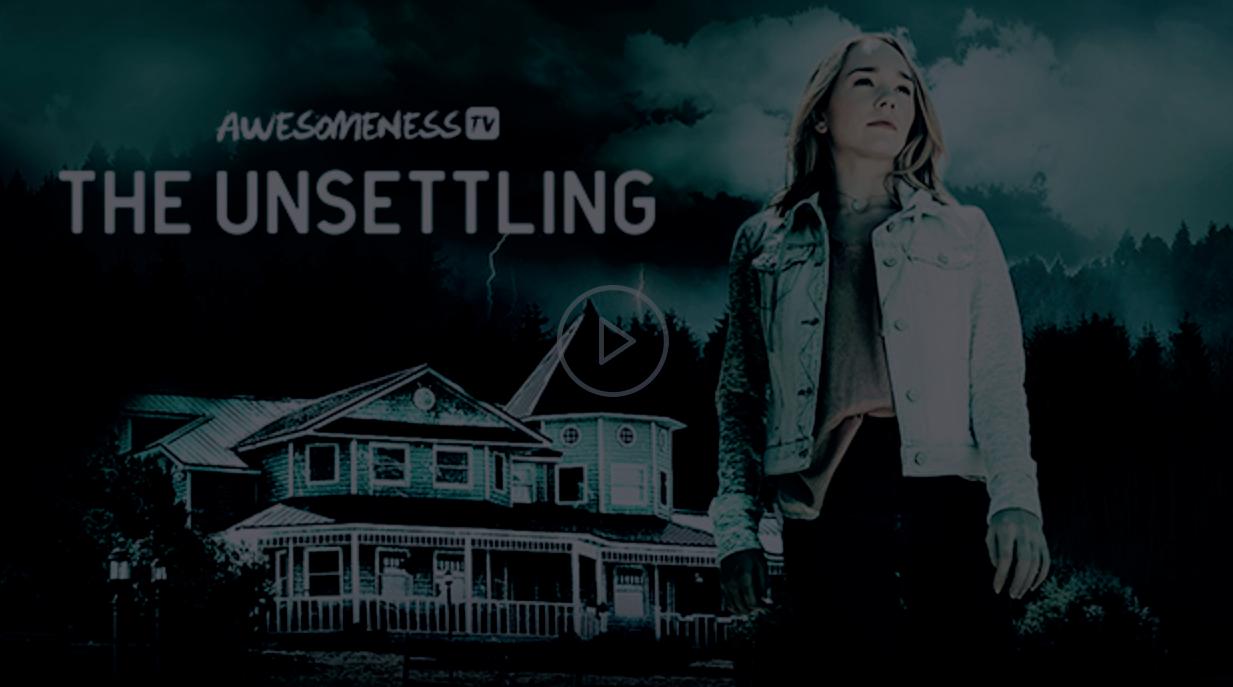
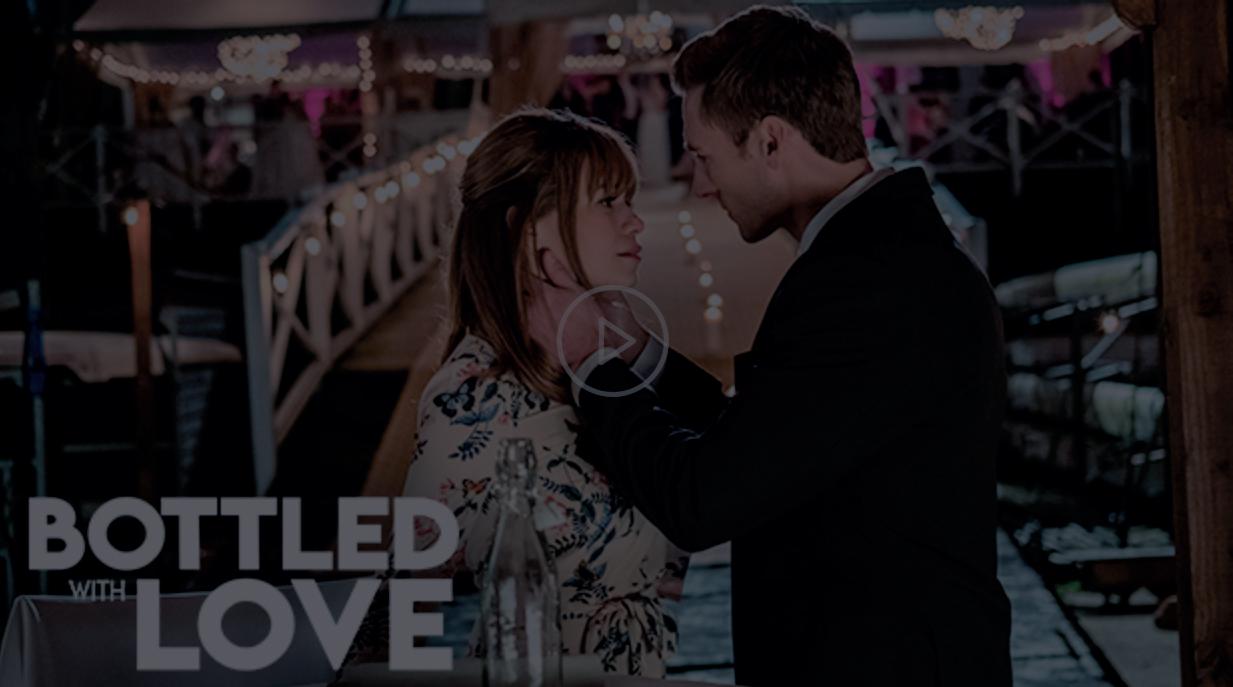
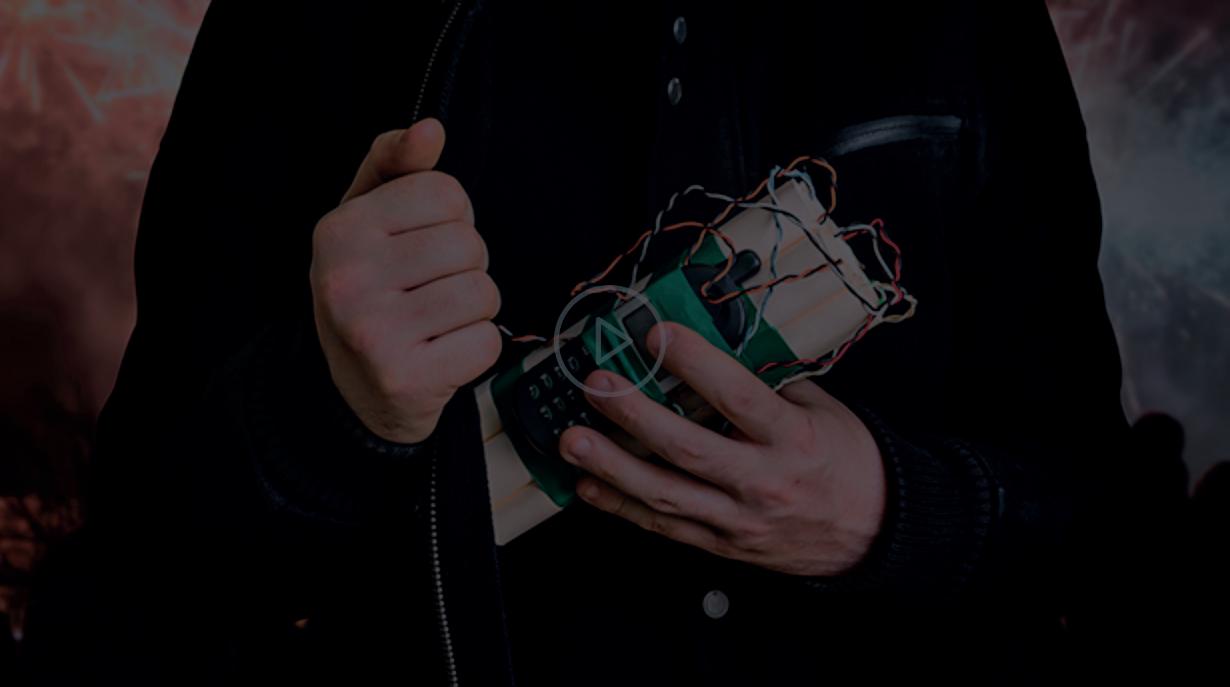
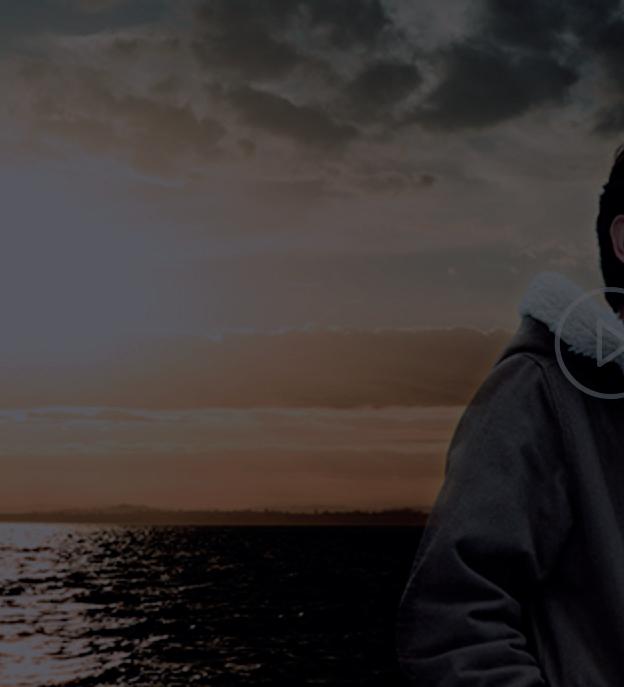

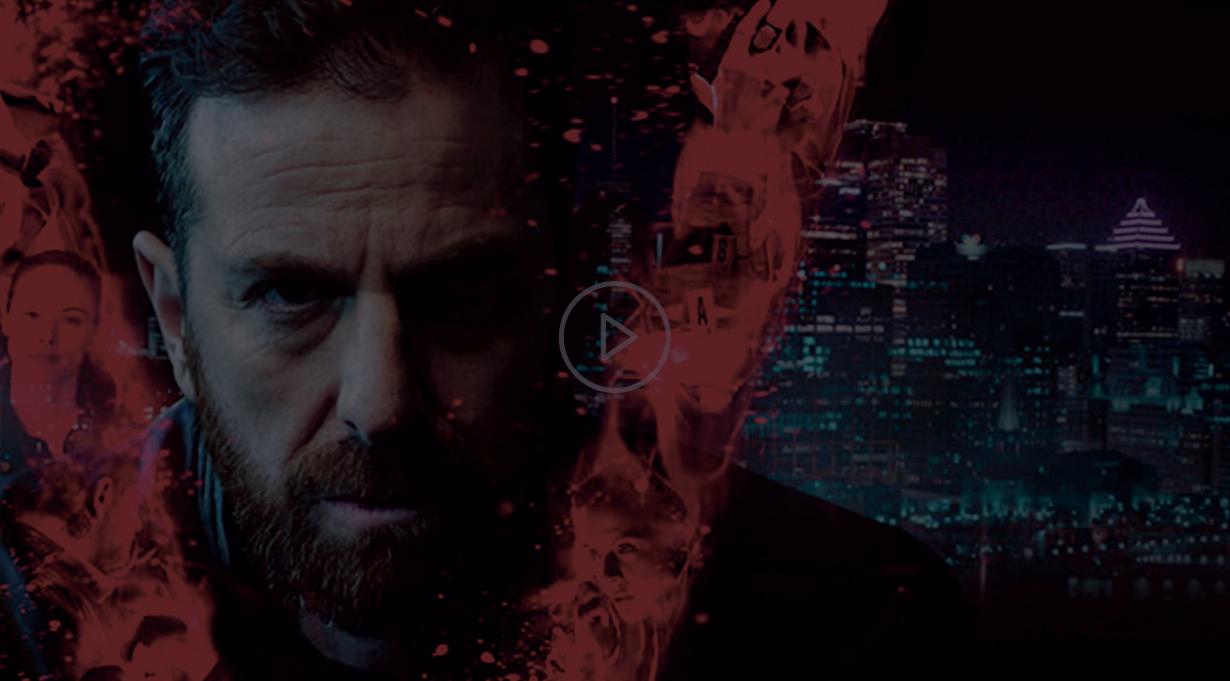

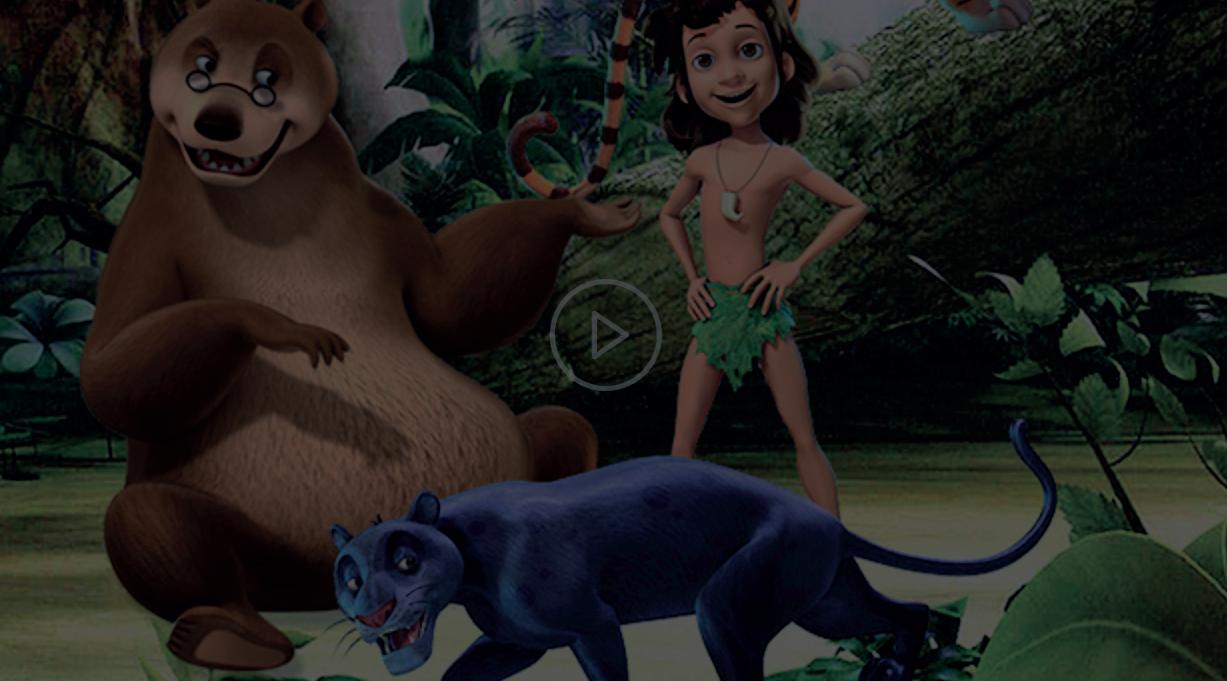
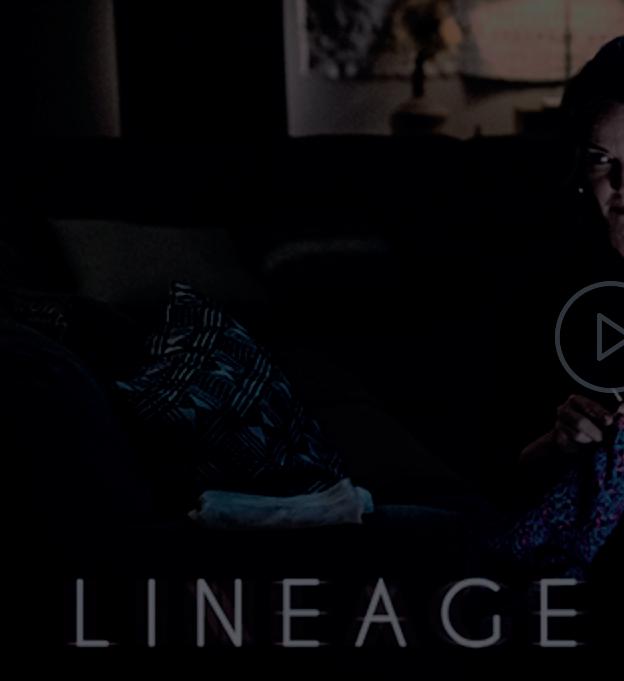
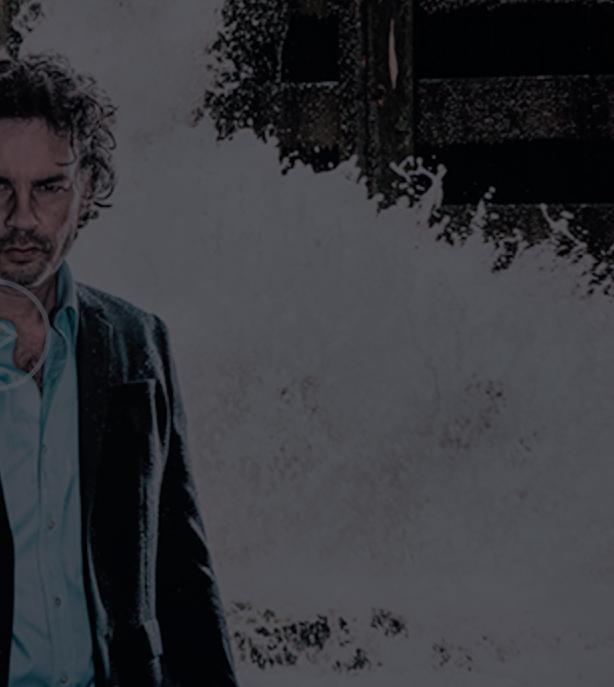
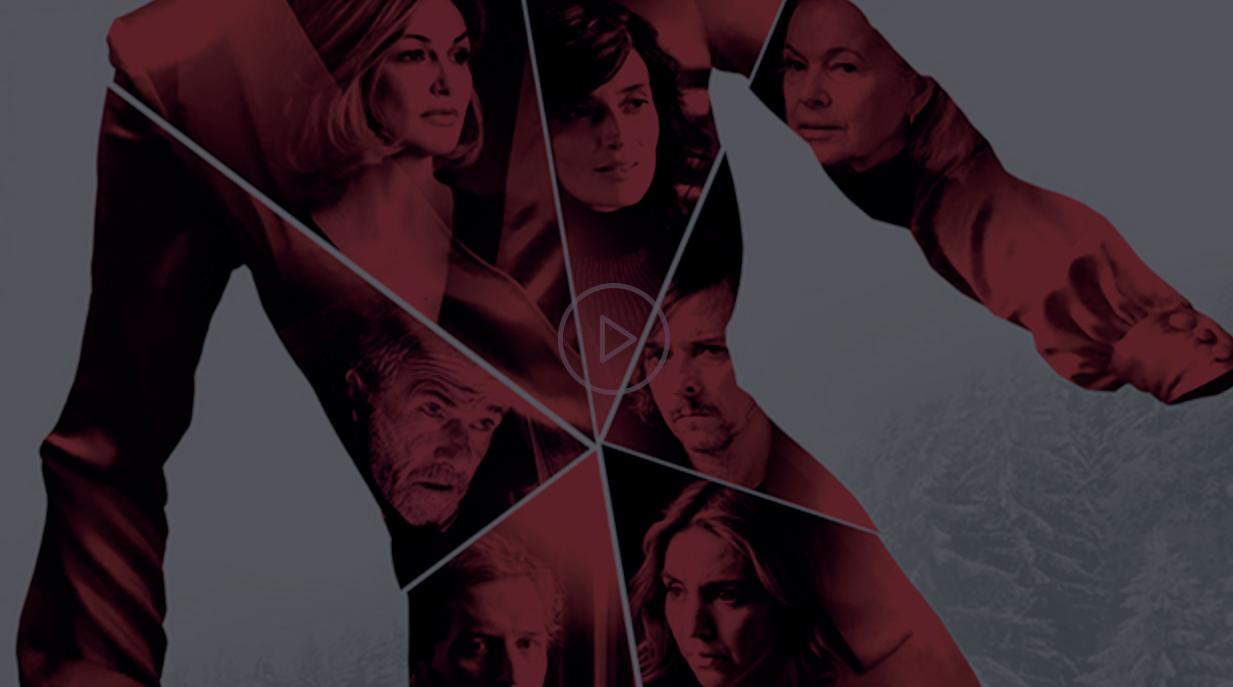

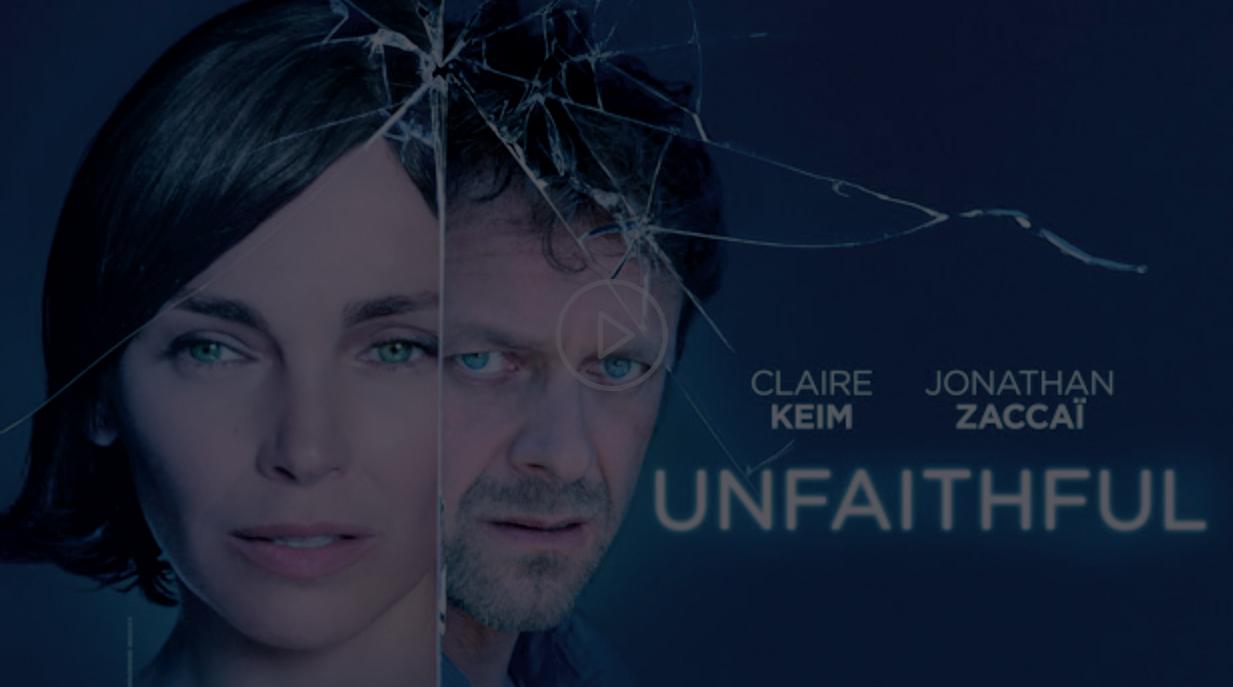
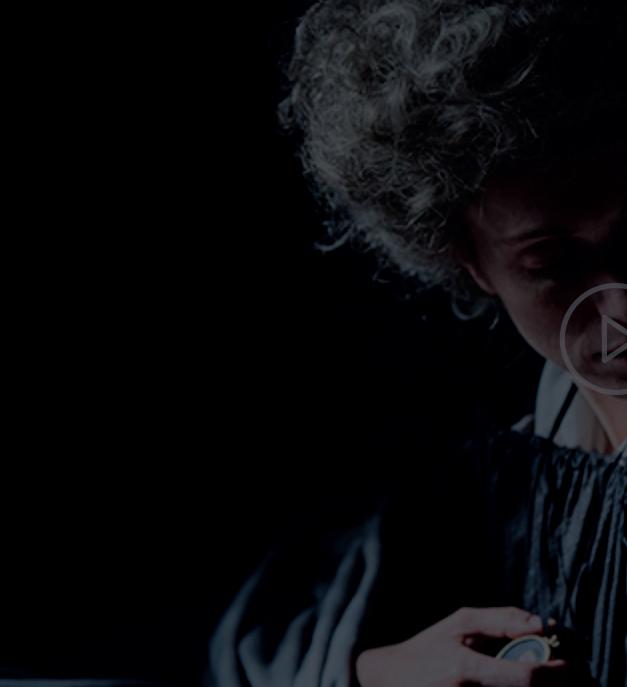


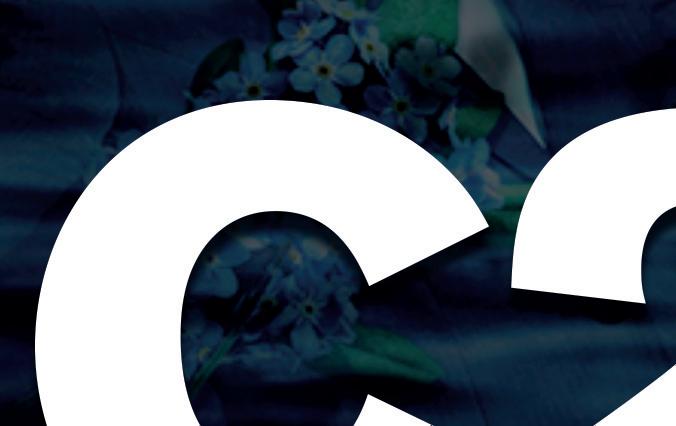




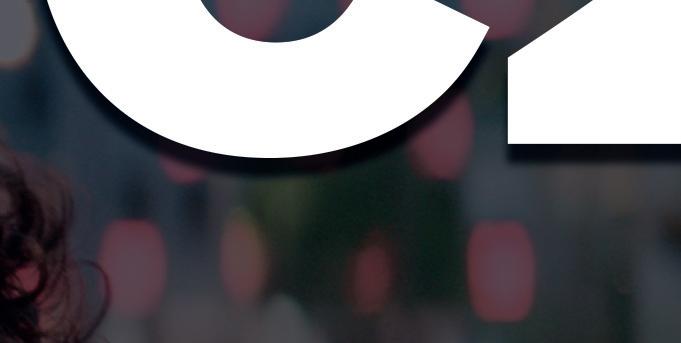



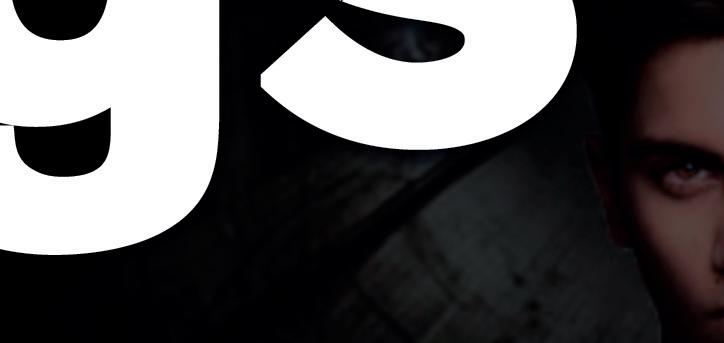
Harness the power of the world’s leading online programme market Visit C21Screenings.net to start screening now
SIX OF THE BEST
Gwenllian Gravelle
The head of scripted at Welsh-language broadcaster S4C picks half-a-dozen series that have had the biggest impact on her career, which has included producing Keeping Faith and commissioning The Light in the Hall.
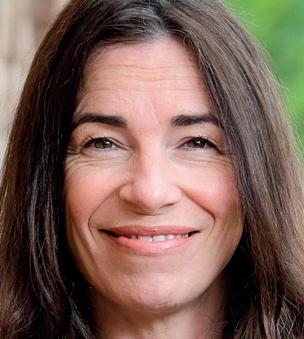
Press Gang

This 1980s kids’ show revolved around a gang of teenagers running a newspaper. It was one of the first series written by Steven Moffat, and it was created by his father Bill. While a lot of children’s shows, particularly in the 80s, were extremely patronising, this was a really intelligent, gritty and witty series. It had a great young and untapped cast, including Nadia Sawalha and Dexter Fletcher, who had fantastic chemistry. It was like Moonlighting for kids. It was also shot on 16mm film, which was unheard of. Commissioners are now clambering to attract this demographic, and recent successes like Stranger Things and Wednesday tap into the intelligence and savviness of young people. That started with Press Gang

Cagney & Lacey

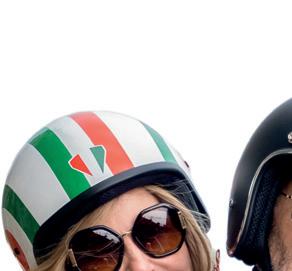
The Bridge
I loved the interplay between the two leads, Danish detective Martin and his Swedish counterpart Saga. He’s really liberal and goes on gut instinct, whereas she’s all about the facts and is unable to empathise or interact with people. It was a very interesting character trait I’d never seen before on screen. Most people say, regardless of the genre, you have to create an empathetic protagonist, so Saga was really going against the grain. To have Martin as her foil gave you the right balance of likeability, vulnerability and pragmatism. Along with other innovative series like The Killing and Borgen, it also showed you could have a riveting and suspenseful drama that wasn’t in English. Thankfully, the audience has started
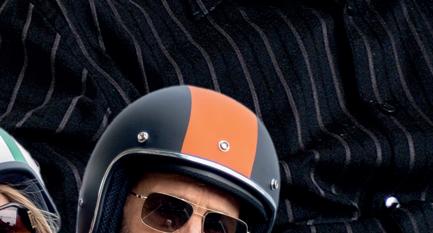
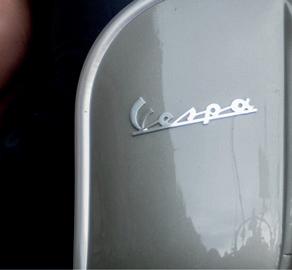
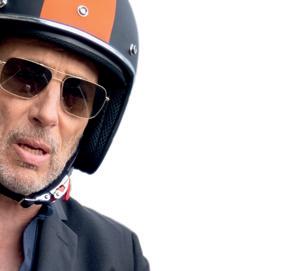
Breaking Bad
to recognise that subtitles are no longer a barrier to enjoy some exceptional non-English-language dramas. Similarly to our Welshlanguage dramas, the location also becomes a character in itself.
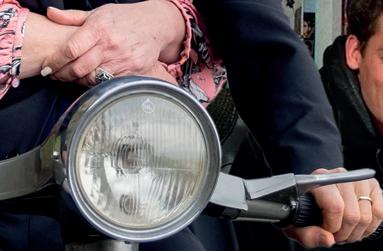
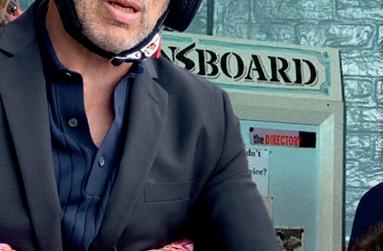
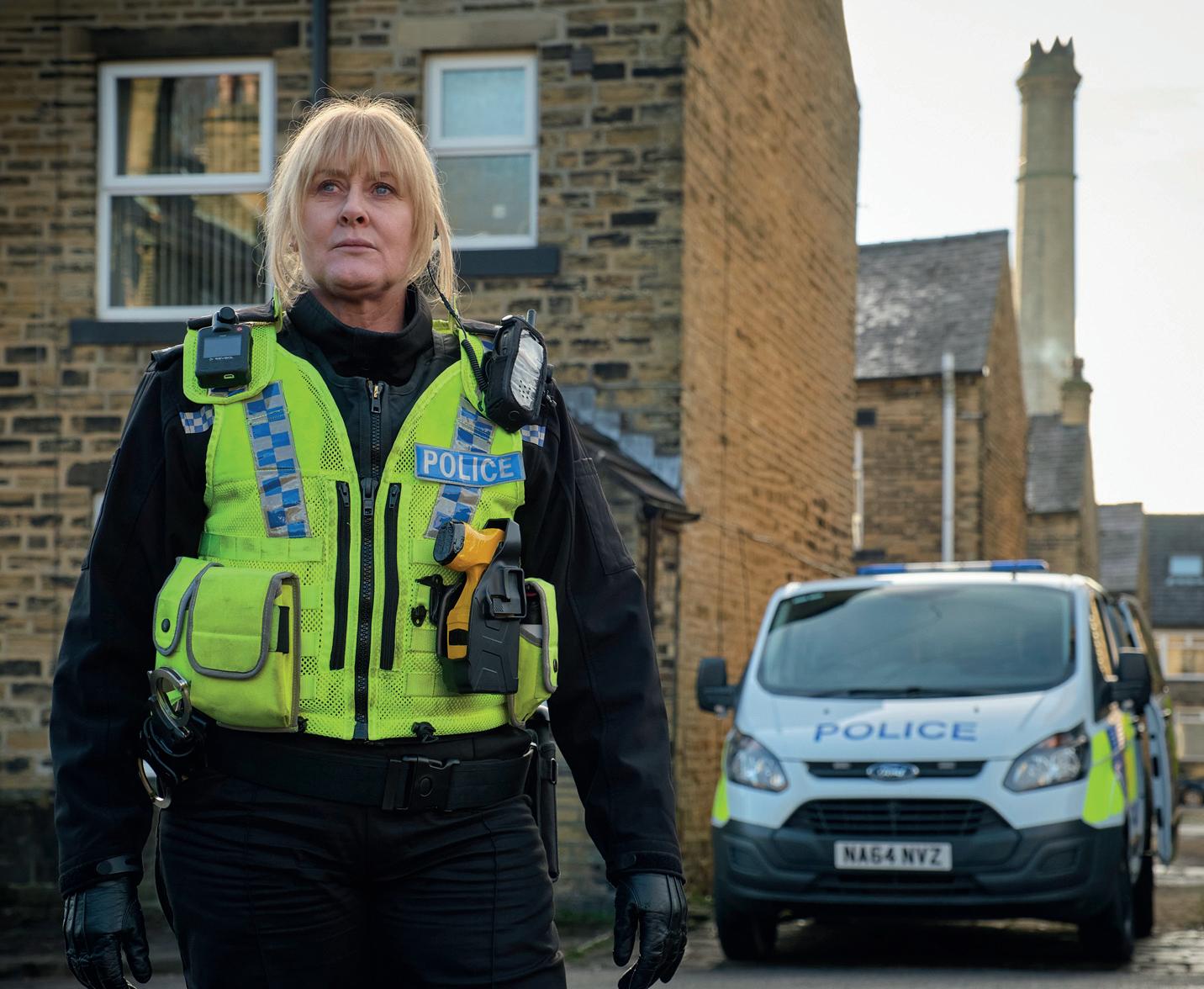
The White Lotus

It’s the really sharp satire on privilege and a nightmare version of paradise that I love. These characters are unapologetically unlikeable, yet engrossing, and completely unravel as the series goes along. It’s just such a new twist on the whodunnit and it’s so deliciously heightened. The casting is brave and surprising. In the first season, Murray Bartlett’s hotel manager is like a demented Basil Fawlty. I can’t believe how playful and cheeky
the series is. I love that you’re transported to different countries each season. It could just run and run because the format’s so good. I can’t wait to see which idyllic destination they go to next.
Happy Valley, with a nod to Mare of Easttown

There are obvious similarities between these series – they both portray the realities of their communities and they put the human impact of crime under the microscope. They can both be really bleak but have warmth and humour. It’s also refreshing to see middleaged women in lead roles, giving really naturalistic performances. It’s not all about being make-up free! They’ve both got terrific ensemble casts and are masterfully written and plotted. That’s why even though there are similarities, we’re blessed with two completely different shows.
Breaking Bad
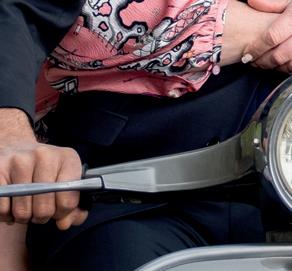
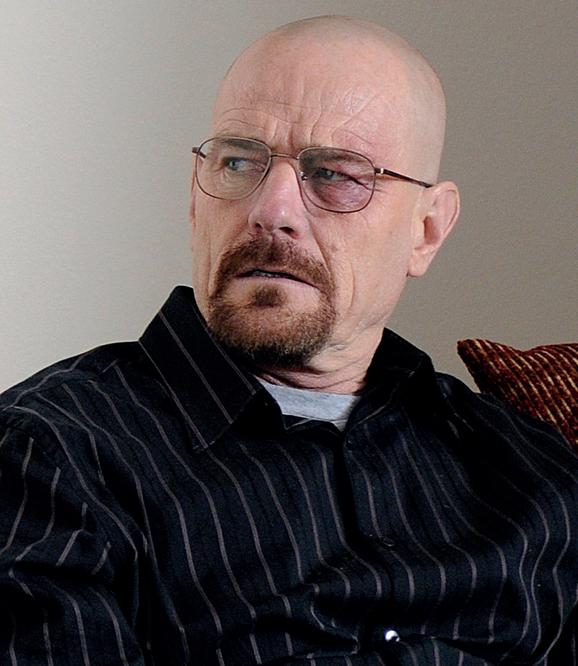
e was a ed woman and are to see female and the malewere reotyping a, ng the bad hat ominated t was y. The crimes McGuffins –ives nd the social
















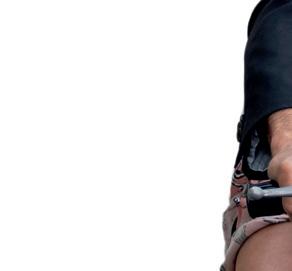
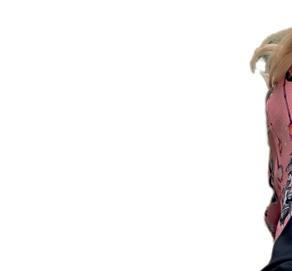

This show marked a change in the traditional detective genre. It was about two female cops in gritty 1980s New York City, realistically portrayed by Sharon Gless and Tyne Daly. They were friends as well as partners but led very different lives at home. Cagney was a single, career-minded woman and Lacey was married with kids. It was extremely rare to see female cops on TV, and the maledominated shows were prone to stereotyping and tokenism. What you saw in this drama, in addition to them going after the bad guys, was that they also had to deal with sexism in a male-dominated workplace. It was revolutionary. The crimes were mostly McGuf it was their lives outside of the job and the social realism that made it so compelling.
I stumbled upon this show around 2008 on FX in the UK and just loved having found this hidden gem before the rest of the world cottoned on. The decision to cast against type was genius. Bryan Cranston, who was known for comedy Malcolm in the Middle, helped the audience sympathise with Walter White, and he could convincingly play a nerdy chemistry teacher and a fearsome meth dealer. There’s also such a pick and mix of other compelling characters. The spin-off, Better Call Saul, was also glorious, but you could have chosen any of the characters for a spin-off because they were all so richly developed and crafted. Creator Vince Gilligan’s attention to detail, the air-tight plotting and the stylised realism of the cinematography makes it a sublime and iconic show.
DQ . Spring 2023
“ ”
The White Lotus could just run and run because the format’s so good. I can’t wait to see which idyllic destination they go to next.
DQ
Gwenllian Gravelle
Press Gang
The White Lotus
39
Sarah Lancashire in BBC drama Happy Valley
A poisoning victim sets out to find his would-be murderer in Finnish drama The Man Who Died. Producer Markku Flink, writer Brendan Foley and director Samuli Valkama discuss nailing down the series’ specific tone and a key scene in which one character ends up all at sea.
SCENE STEALERS The Man Who Died
FINNISH DRAMA THE MAN WHO DIED IS BASED ON THE BESTSELLING BOOK OF THE SAME NAME BY ANTTI TUOMAINEN, one of Finland’s most successful contemporary international authors. The story follows Jaakko Kaunismaa (Jussi Vatanen), a man in his prime who runs a thriving mushroom business, with keen customers as far away as Japan. Jaakko’s world is shattered when a doctor reveals he has been slowly poisoned by persons unknown. Before his impending death, Jaakko decides to uncover the murderer.
During Jaakko’s hunt for the killer, people have a habit of dying or vanishing around him. But as the clock ticks, he feels gloriously alive for the first time in years, all while facing the ultimate questions of love, life, betrayal, death – and mushrooms.
The six-part black comedy crime drama is produced by Reelmedia, part of the APFI (Audiovisual Producers Finland), in coproduction with NDF international Production for broadcaster Elisa Viihde. Fifth Season handles international sales.
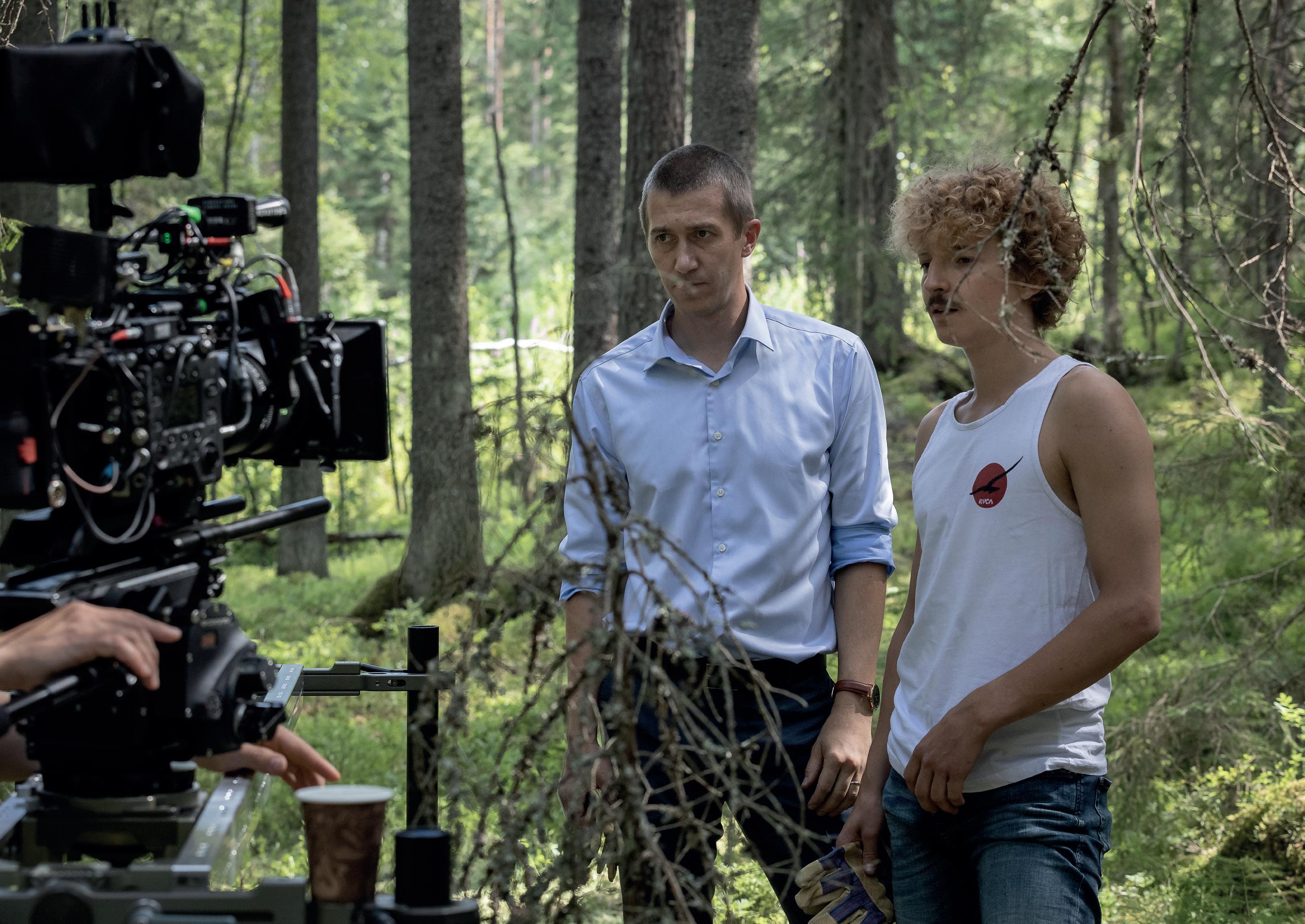
Here, producer Markku Flink, writer Brendan Foley and director Samuli Valkama explain why The Man Who Died is proving popular with viewers and discuss the making of a key scene that culminates with a body being dumped at sea.
Valkama: The Man Who Died has all the elements of a good story – crime, suspense and black comedy. In our story structure, every
episode starts and ends with a bang. The first episode ends with a big car chase through the streets of Hamina, and all the endings of the episodes have something special, such as fight scenes with samurai swords and axes. But all of this is done in a deadpan, serious style.
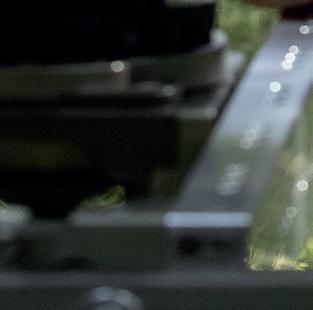
Foley: Working on The Man Who Died was simultaneously one of the most challenging and rewarding writing jobs of my career. We were starting with a great book of the same name, by Antti Tuomainen, who is popular in both Finland and abroad, particularly the UK.
Flink: Antti Tuomainen is probably the most popular current Finnish crime writer internationally. His books have a quirky twist, similar in tone to the work of the Coen Brothers [Fargo] or Aki Kaurismäki [Le Havre].
Foley: Our first task was to remain loyal to that quirky tone with material that is incredibly funny and incredibly dark, sometimes at the same time. Keeping that tone was our holy grail, as we went from the original Finnish book to an English script, to a translated Finnish script, and then very carefully created English subtitles for the international market.
Valkama: As a director, I approached our series like we were making several feature films. The visuals and storytelling were precisely planned, with the key scenes storyboarded and designed
END CREDITS: Scene Stealers DQ . Spring 2023 40
Jussi Vatanen (left) and Elias Westerberg’s characters dispose of a body in a key scene from The Man Who Died
well in advance with the DOP and production designer, and then rehearsed well with the actors.
Flink: In a sequence that comes at the end of one episode, Jaakko and his unfortunate helper Petri are attempting to dispose of a thug’s body and a samurai sword. It serves as an example of how we were aiming for very specific moods in the series. The amazing cast got that exact tone first from the script and then from the director and our great crew, all guided by that specificity and shared vision. Above all, it gave the actors the chance to really inhabit their characters.

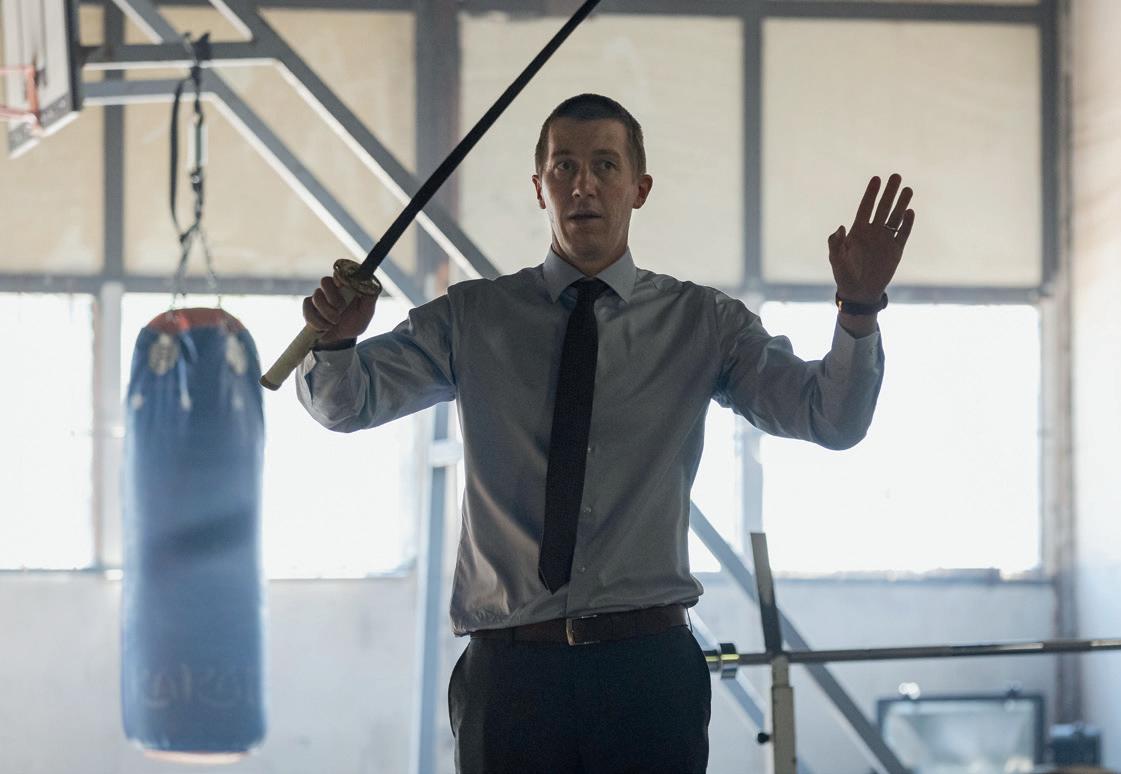
Foley: The key was finding some killer visual moments, both from the book and invented for the series in equal measure. When Jaakko and Petri are attempting to move the body, samurai sword and all, in Jaakko’s car, its boots protrude out the back. But being law-abiding Finns, they cover the feet with their T-shirts as little warning flags, since they want to obey the highway code. The sequence ends with another killer visual: as the body is dumped at sea and the dumpers row
away, the body pops up again, the head and top of the samurai sword now looking like a bobbing fishing float, marking the end of the episode.
Valkama: The process of getting things done on a series is always quite similar, but good planning is always met with surprises on the way. This time, the surprises were on the better side, and the luck was that we had a great locations manager and a local first AD, who introduced me and the DOP to some wonderful locations. A great script, the right casting, and the perfect locations are very good ingredients for getting things right. But how this is done always varies. This time, one of the key locations for the series was found while browsing the internet on a day off and coming across a
local nature photographers society’s Instagram account – et voilà!
Foley: When it came to the dialogue, Finns are notoriously minimalist with their words, so we had a wonderful ongoing conversation between Jaakko and his delivery man Petri, who also happens to be having a fling with Jaakko’s wife. Jaakko needs Petri to help him move the body, but also wants to torment him in revenge for the affair. He does so by speaking like a Dilbertstyle boss leading a corporate team-building exercise, rather than a dying man moving a body. He has only told Petri he has a friend in trouble who has had an accident. As they approach the body, Jaakko confides, “The accident was quite serious. He’s not looking his best.”
Flink: The moving of the body and the bonding of boss and delivery driver created a sequence that the audience loved. It was very Finnish, yet it also appeals to an international audience.
Valkama: I have now seen the first two episodes of our series with several different audiences at home and abroad, and viewers seem to love the series right from the start – but when the last 20 minutes of the second episode start, people seem to be electrified. I think it’s because of many things being right – the story, the actors, the direction, the DOP, the sets. But then there’s always the sense of something special starting to happen, that X-factor, which makes things click. To get this, I guess one has to work really hard and then get that slice of good luck to make everything just right. I think we got it here.
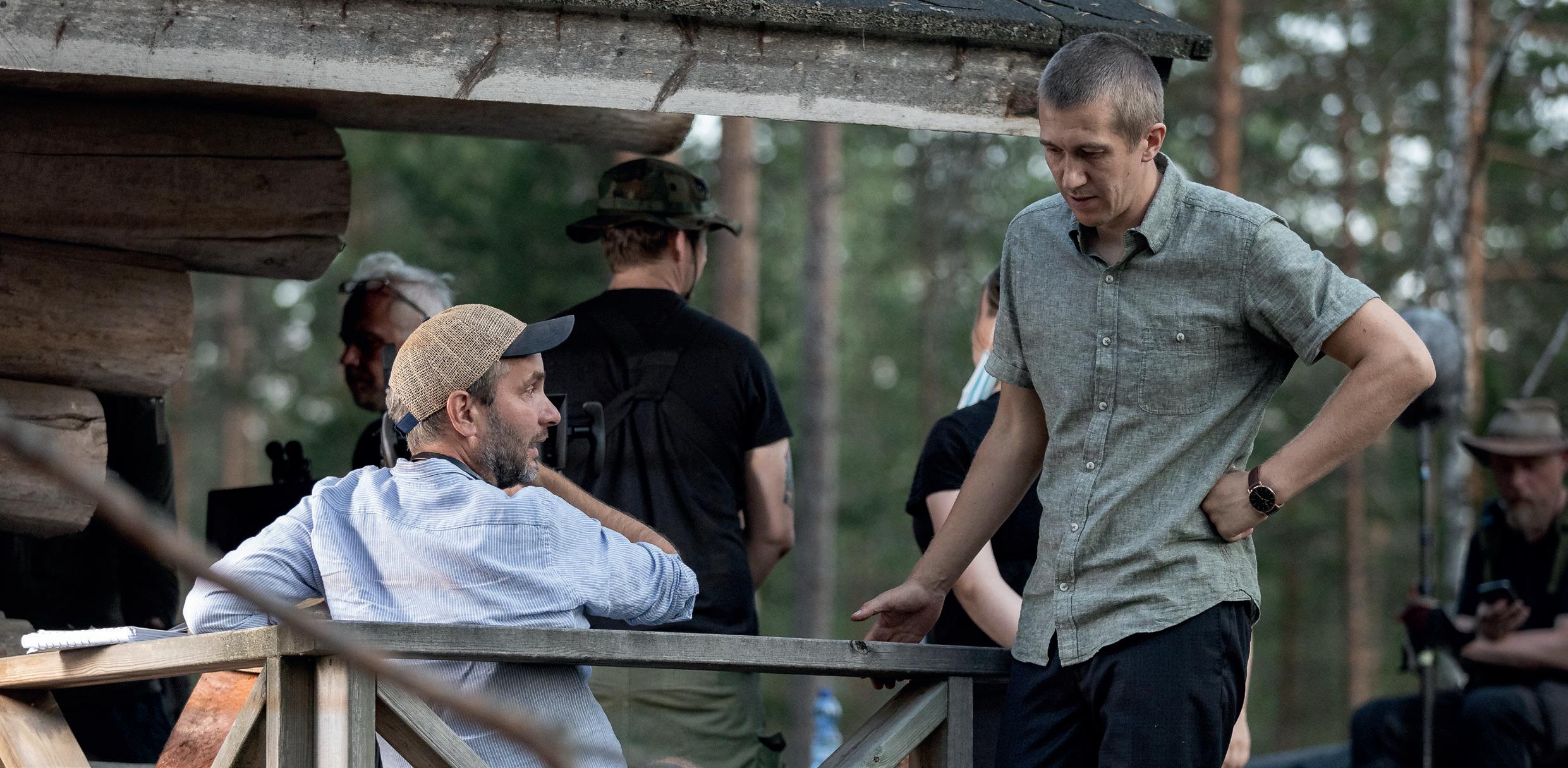
END CREDITS: Scene Stealers DQ . Spring 2023 41
“
”
Viewers seem to love the series right from the start – but when the last 20 minutes of the second episode start, people seem to be electrified.
Samuli Valkama Director
DQ
Vatanen in discussion with director Samuli Valkama on location
Why creatives need to be pitch perfect
WHENEVER THE LATEST SEASON OF THE APPRENTICE LANDS ON THE BBC, as it did at the start of the year, it’s guaranteed to serve up plenty of laughs and head-scratching, as well as instilling a belief that I could do a lot better than the contestants jostling for a place at Lord Sugar’s side.
popular, Copro Series pitch event. Ten projects from across Europe, Argentina and Canada were in town to seek out the potential coproducers, financiers, and distribution and broadcast partners among the swathes of executives sitting in the audience.
At a time when streamers and broadcasters alike are tightening their belts, with budgets under pressure from rising prices, pitches need to stand out more than ever if they’re to win the favour of the decision makers.
It’s probably an inflated sense of self that rises in living rooms across the country, as we watch the latest gaggle of budding entrepreneurs collecting a diverse – and often bewildering – list of items for the best possible price while charging across Brighton; pitching an educational children’s video game that just ends up just terrifying its target audience; or making and marketing a men’s moisturiser that comes in a snake-headed canister with the appearance of a hand grenade, the contents of which literally dye the skin green. Spoiler alert: they didn’t make any sales with that one.
The business reality series is best watched from the comfort of your living room, where you can shout at the TV to your heart’s content without fear of reprisals from Lord Sugar in his boardroom. Of course I could do it better – or could I?
I’ve never been much of a natural salesman. Working in a shop during my school exams meant simply helping customers find what they were looking for and taking their payment, while also trying to push those last-minute deals – chocolate bars, the CD of the week (hello, 1999) – sitting by the till. Similarly, the numerous bar jobs that kept me afloat during my university days only demanded I offer double shots while providing the requested drinks. In a city full of students, it wasn’t a hard sell.
All this is to say that I don’t envy the task facing writers and producers when they have to pitch their latest ideas to commissioners – the dreammakers and deal-breakers standing in the way of seeing your passion project realised.
That might, ever so slightly, be easier if it’s an entertainment format you’re selling, which might have a clearer indication of what the final product might look like. But when it comes to a scripted drama or comedy, the commissioner really has to buy into the story you’re telling if they’re going to back the project.
I was reminded of the challenge – and art – of pitching at the Berlin International Film Festival, where the Berlinale Series television strand held its annual, and very
Berlinale’s track record is remarkably strong, with series such as Babylon Berlin, Freud, Furia, Blackport and Trom all previously being pitched at the event, while two former projects – Norwegian series Dome 16 and Schnee (Snow) from Austria and Germany – were screened at this year’s event.
Of course, C21’s own International Drama Series Pitch also regularly draws entrants from around the world, and the event is a key component of the annual Content London conference. In March this year, I was also invited to host the finale of C21’s Digital Drama Pitch 2023, a spin-off from the main in-person event with seven shortlisted projects from the US, France, New Zealand, South Africa and Finland.
If pitching a project in person in front of hundreds of industry peers isn’t challenging enough, it’s a completely different task when you’re presenting something digitally – a skill many people will have honed during lockdowns. Pitches need to succinctly introduce the story at the project’s heart and demonstrate why we should want to follow the characters involved through the world of the series, while those pitching must also sell themselves, explaining why their idea is a viable production and why they’re the ones to do it – all while staring into a camera with no chance of immediate feedback or the opportunity to answer questions from the judges.
But just like every project, every pitch is different, and therein lies the skill of the commissioners themselves to dig into each one and find the shows they think will get people talking. At a time when streamers and broadcasters alike are tightening their belts, with budgets under pressure from rising prices, pitches need to stand out more than ever if they’re to win the favour of the decision makers. Only then will they have the chance to grab the attention of the viewing public too.
Michael Pickard Editor, Drama Quarterly
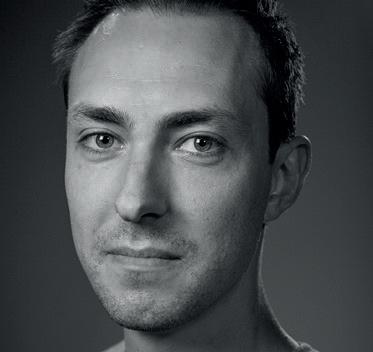
WHO’S WHO
EDITORIAL Editorial director Ed Waller ed@c21media.net, Editor of C21Media.net Jonathan Webdale jonathan@c21media.net, Chief sub-editor Gary Smitherman gary@c21media.net, Chief sub-editor, Drama Quarterly John Winfield john@c21media.net, News editor Clive Whittingham clive@c21media.net, Channel21 International editor Nico Franks nico@c21media.net, DQ editor Michael Pickard michael@c21media.net, Research editor Gün Akyuz gun@c21media.net, North American editor Jordan Pinto jordan@c21media.net, C21Kids editor Karolina Kaminska karolina@c21media.net, Senior reporter Neil Batey neil@c21media.net C21TV Head of C21TV Jason Olive jason@c21media.net, Video editor/ motion designer Adrian Ruiz Martin adrian@c21media.net SALES Founding partner & commercial director Odiri Iwuji odiri@c21media.net, Sales director Peter Treacher peter@c21media.net, Business development director Nick Waller nick@c21media.net, Sales Manager Hayley Salt hayley@ c21media.net, Senior sales executives Richard Segal richard@c21media.net, Malvina Marque malvina@c21media.net, Telesales executive Yasmin Connolly yasmin@c21media.net EVENTS Event programming director Ruth Palmer ruth@c21media.net, Head of event programming Adam Webb adam.webb@c21media.net, Head of events Gemma Burt gemma@c21media.net, Events assistant Francesca Bartlett francesca@c21media. net PRODUCTION Operations director Lucy Scott lucy@c21media.net, Operations manager Milly Aylott Harvey milly@c21media.net, Head of digital Laura Stevens laura@c21media.net, Production & events coordinator Courtney Brewster courtney@c21media.net, Events coordinator Lucy Corona lucy.corona@c21media.net FINANCE Finance director Susan Dean susan@c21media.net, Finance manager Marina Sedra marina@ c21media.net, Finance officer Shuhely Mirza shuhely@c21media.net. Editor-in-chief & managing director David Jenkinson david@c21media.net
DQ Magazine
C21Media Ltd





2nd Floor, 148 Curtain Road, London EC2A 3AT
Tel: + 44 (0) 20 7729 7460
Fax: + 44 (0) 20 7729 7461
Email: michael@dramaquarterly.com
Dramatic Question Spring 2023
“ ”
The top-rating event in television is back
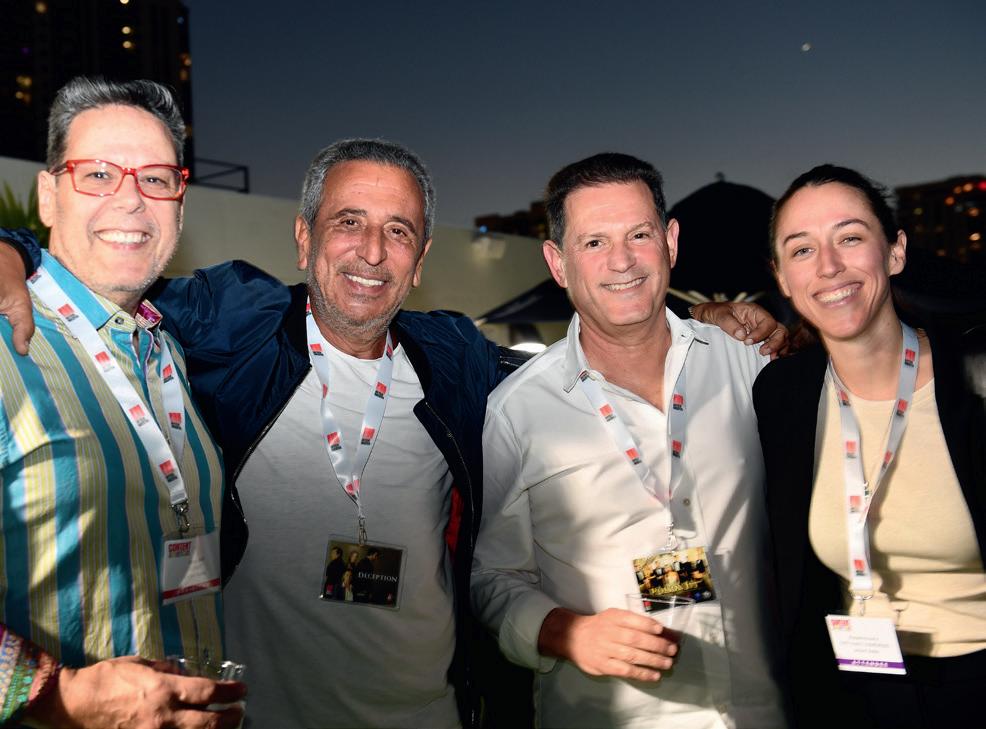
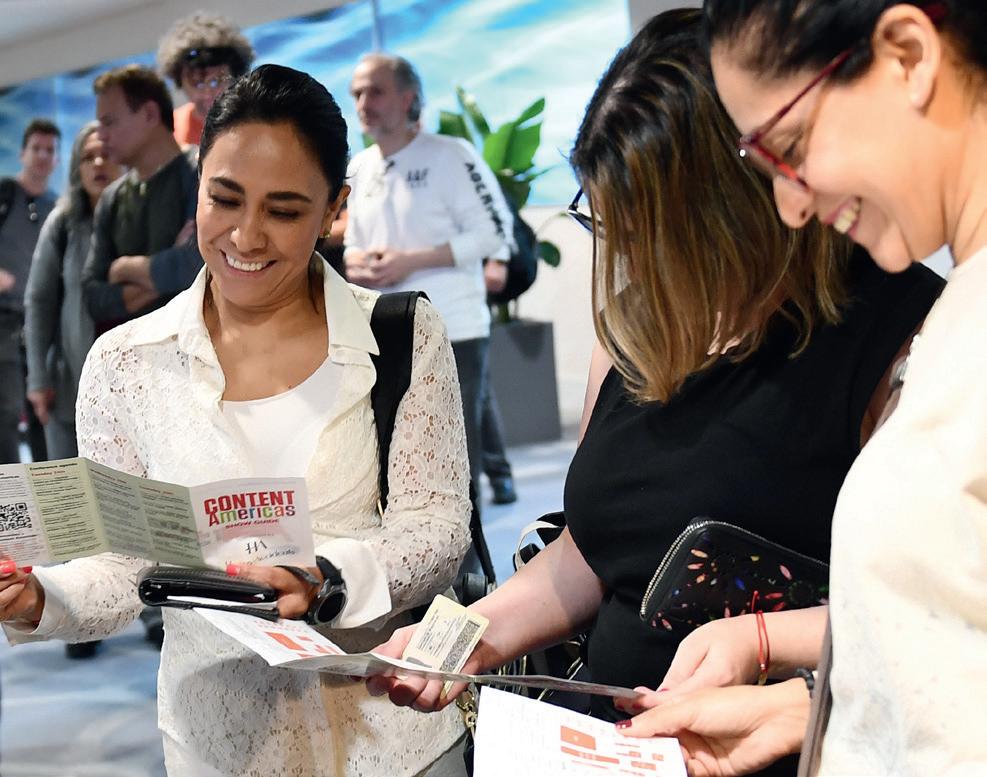
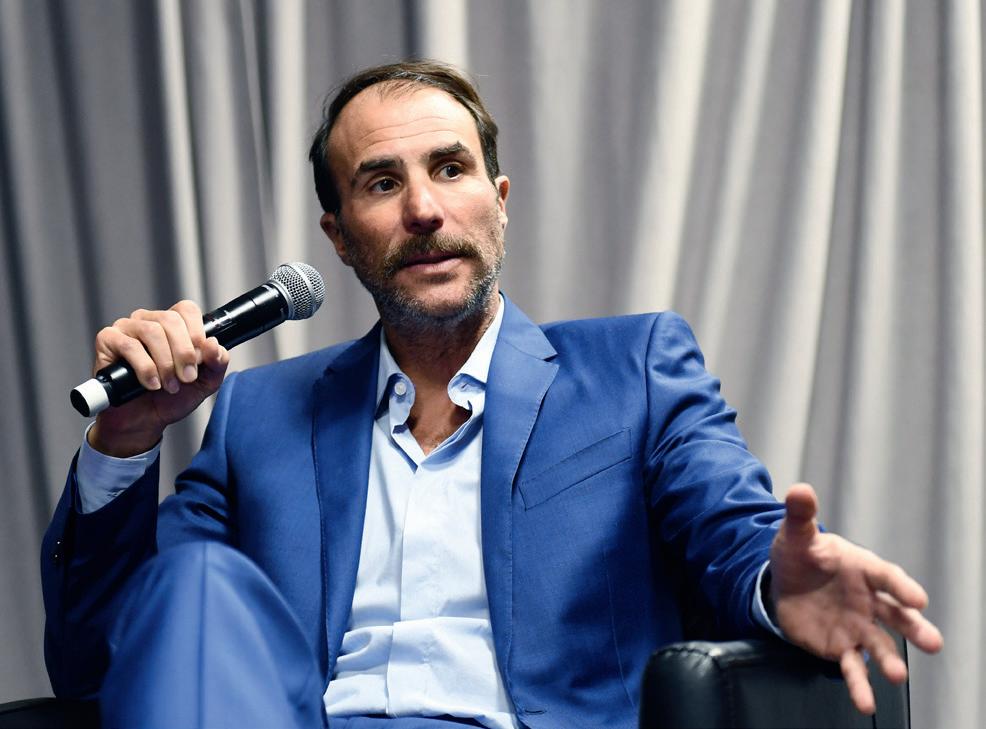
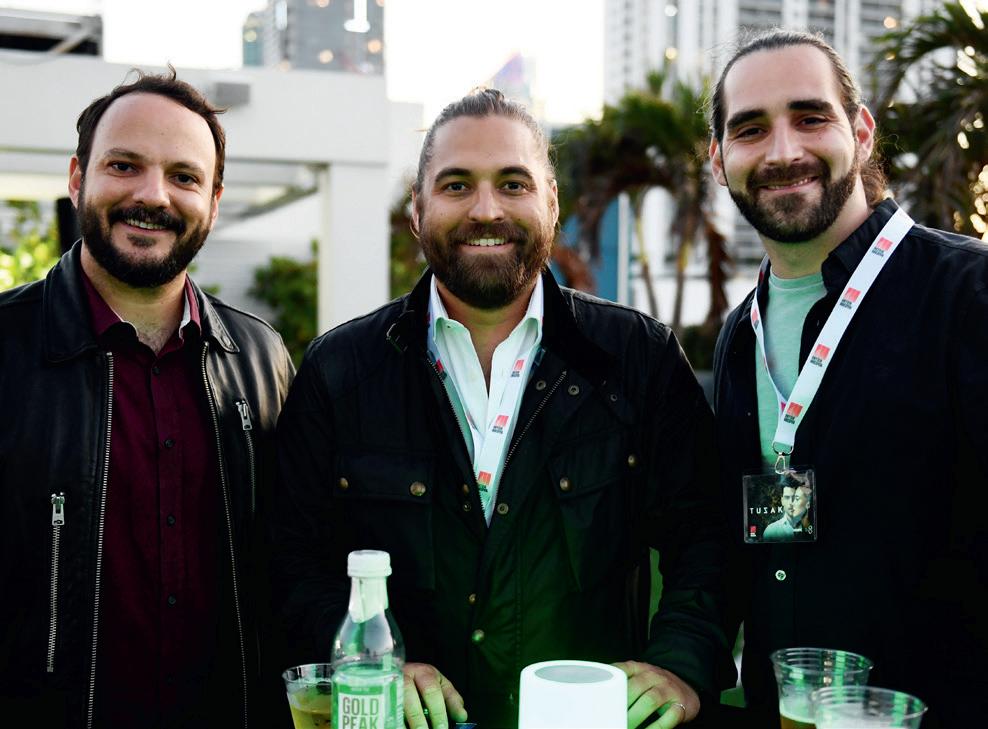
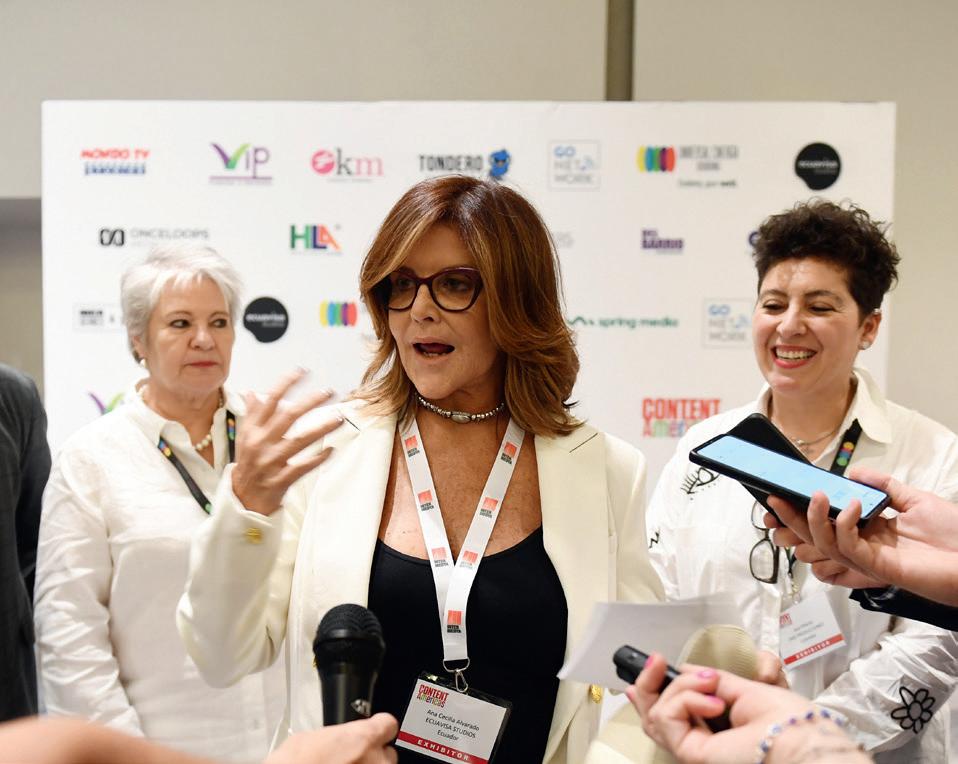
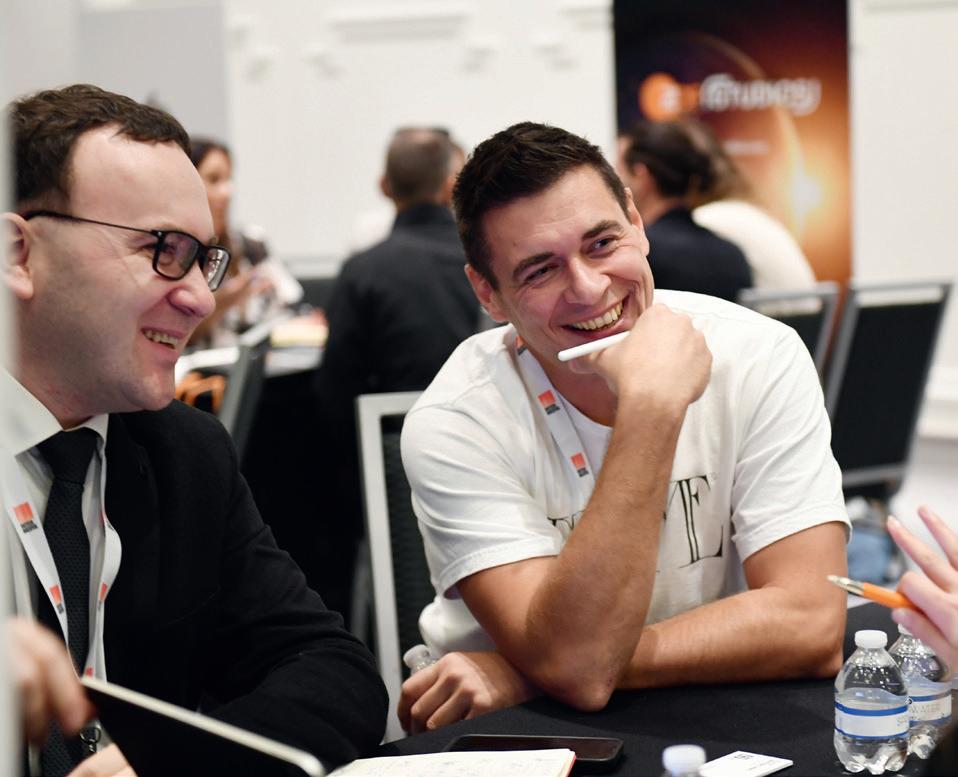

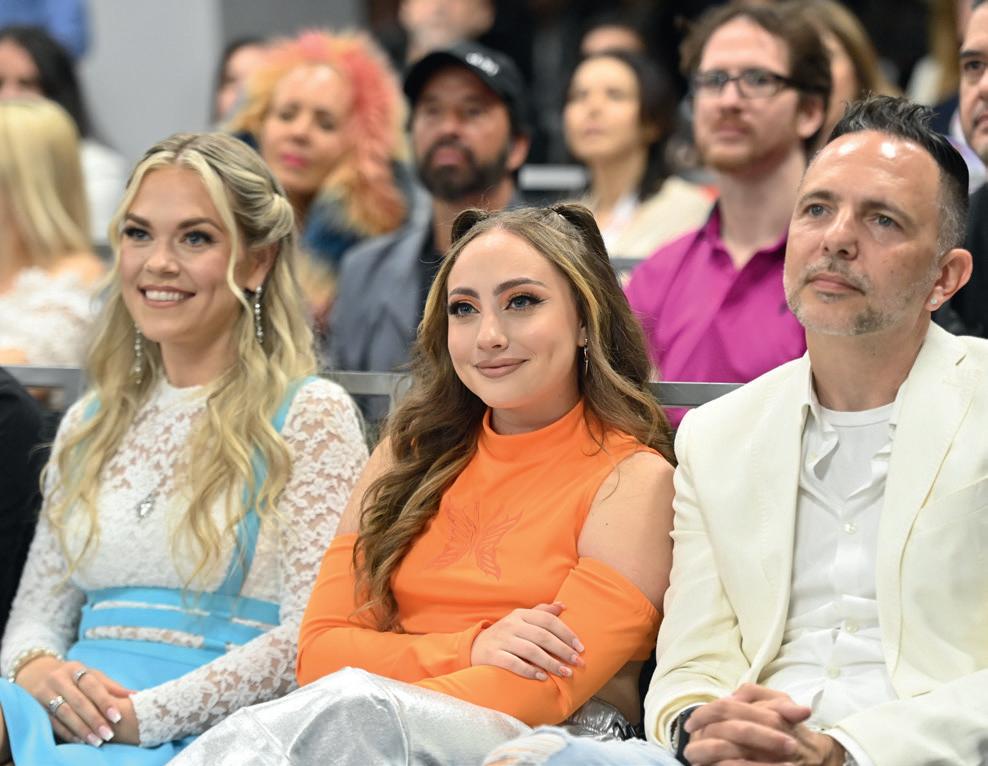
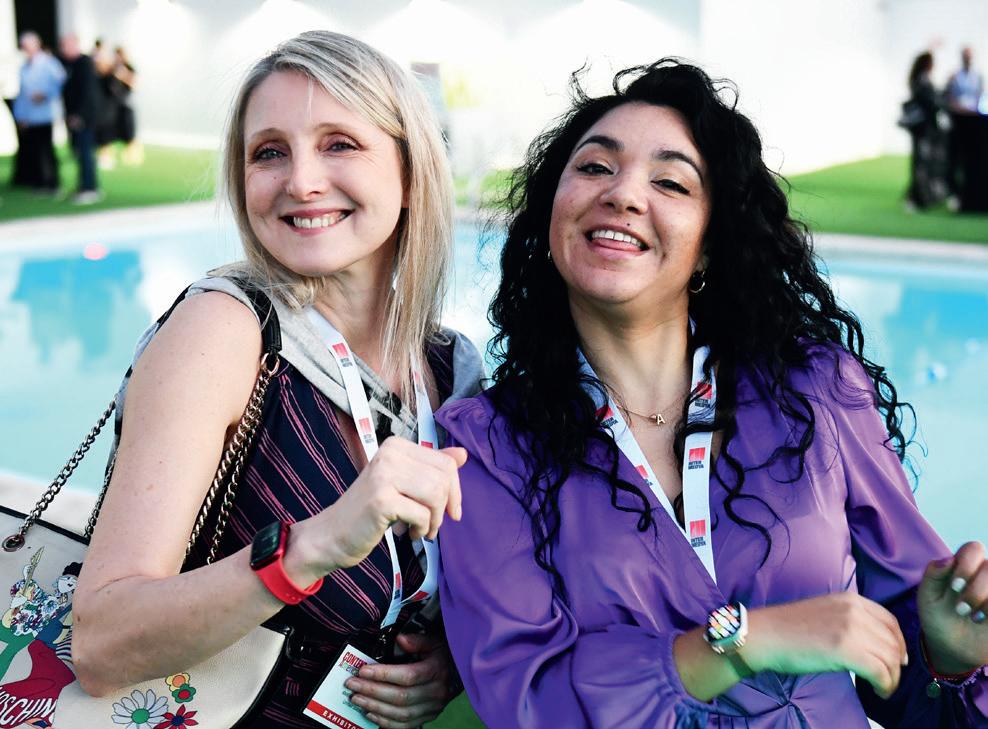
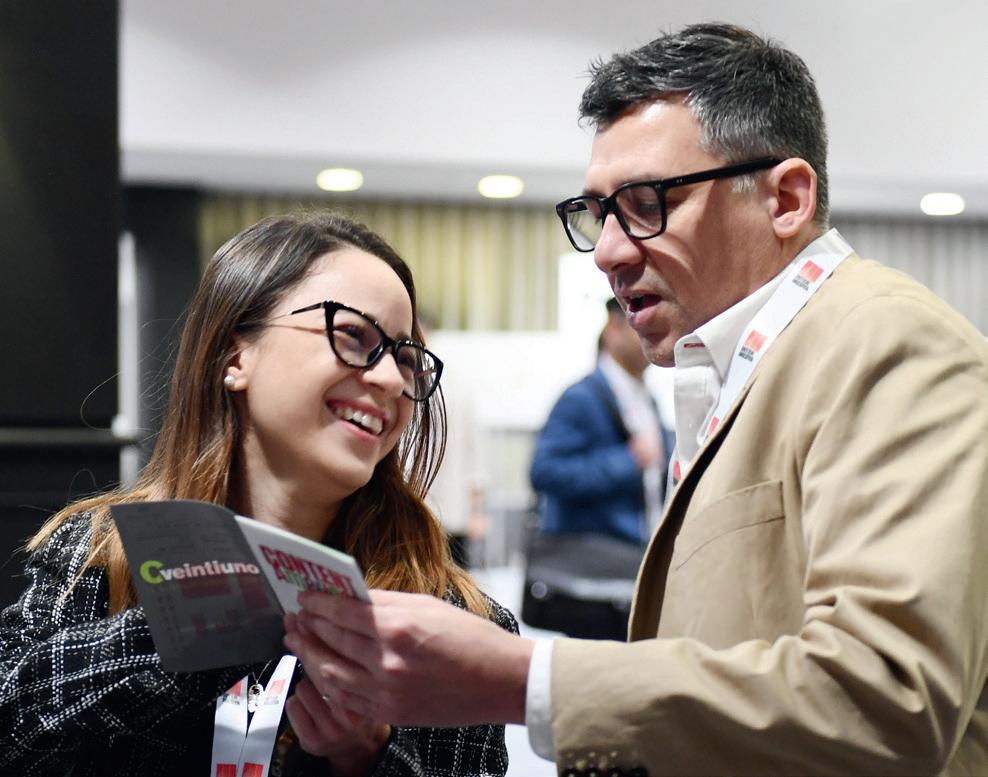
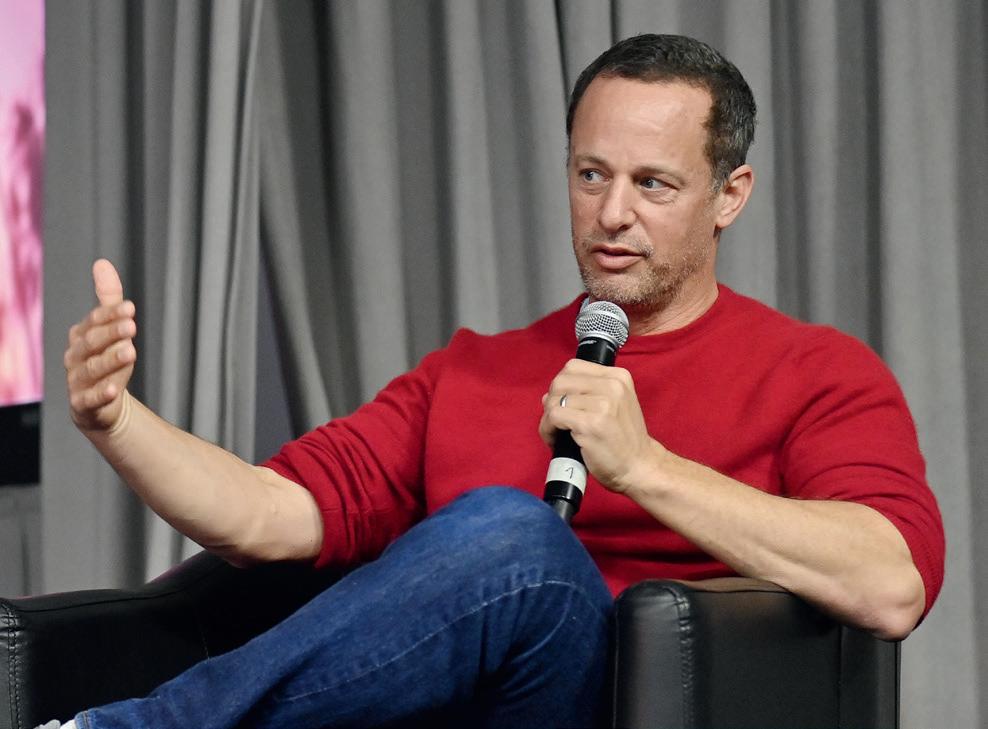
Hilton Miami Downtown 23-25 January 2024



GLOBAL DRAMA FROM ALL3MEDIA INTERNATIONAL
B-Reel Films for SVT, Sweden and ZDF, Germany in association with All3Media International






















 Grantchester
Riches
Grantchester
Riches







































 By Michael Pickard
By Michael Pickard




























































































































































































































































































































































































































































































